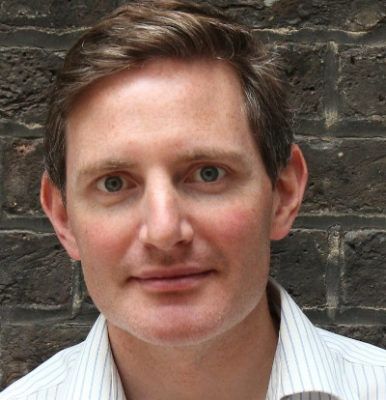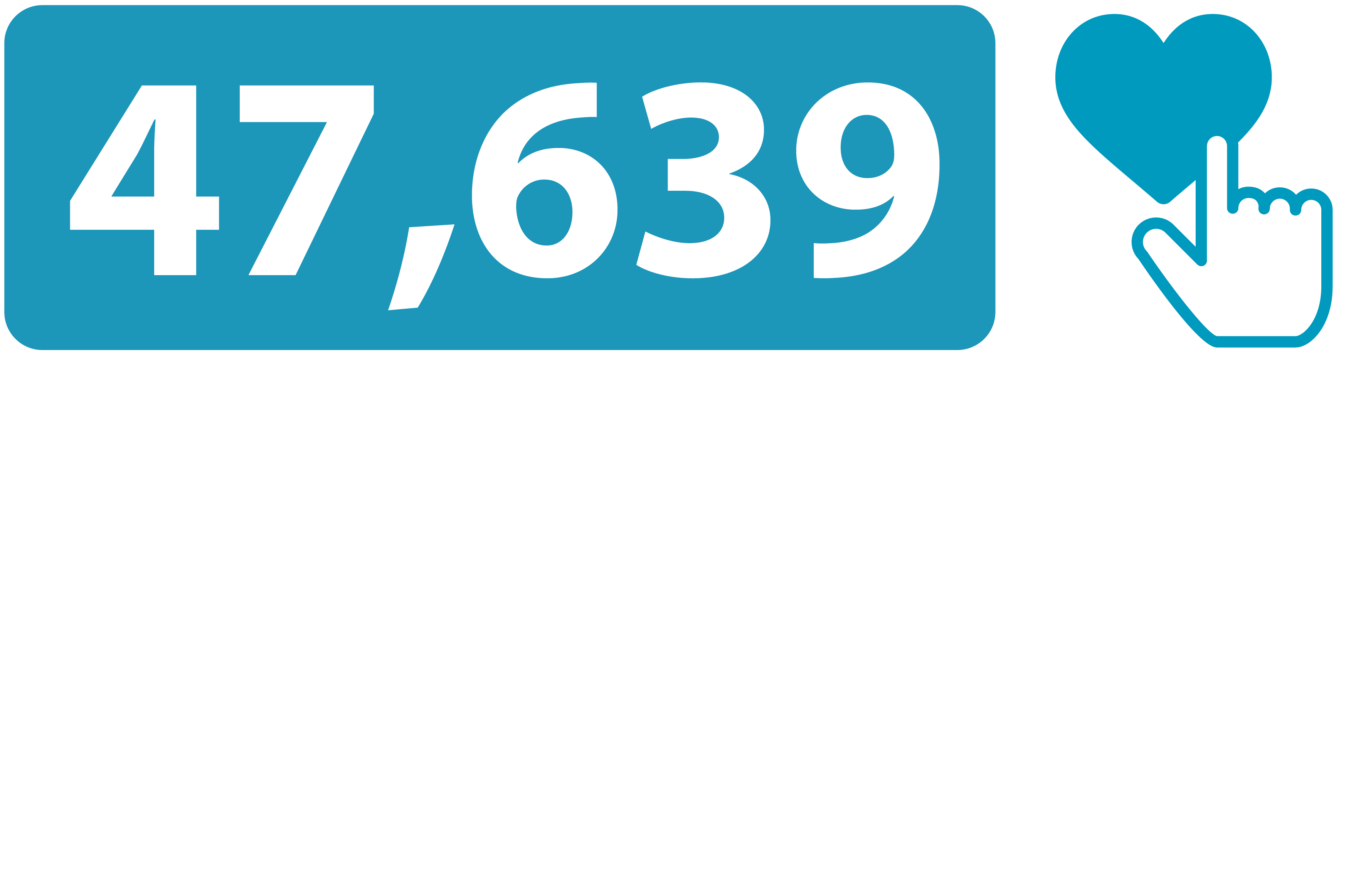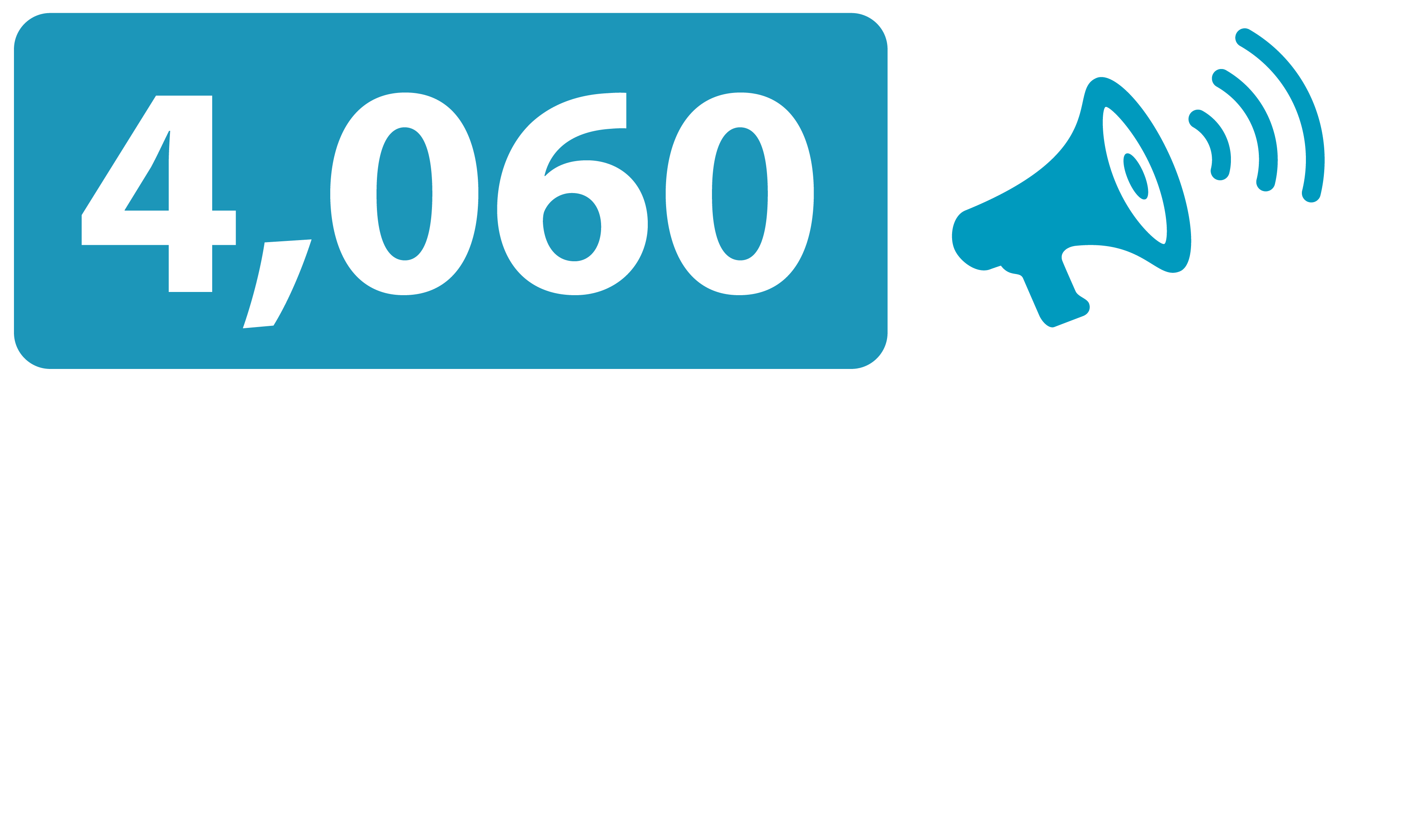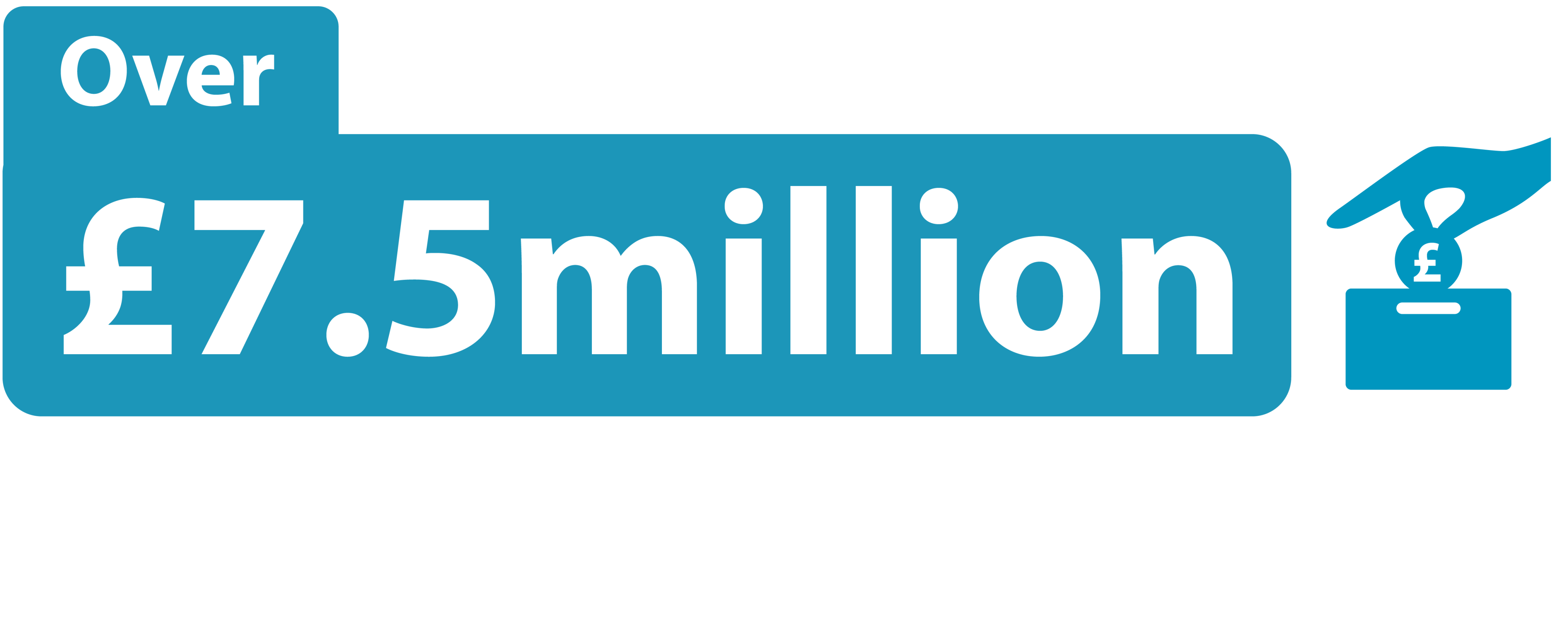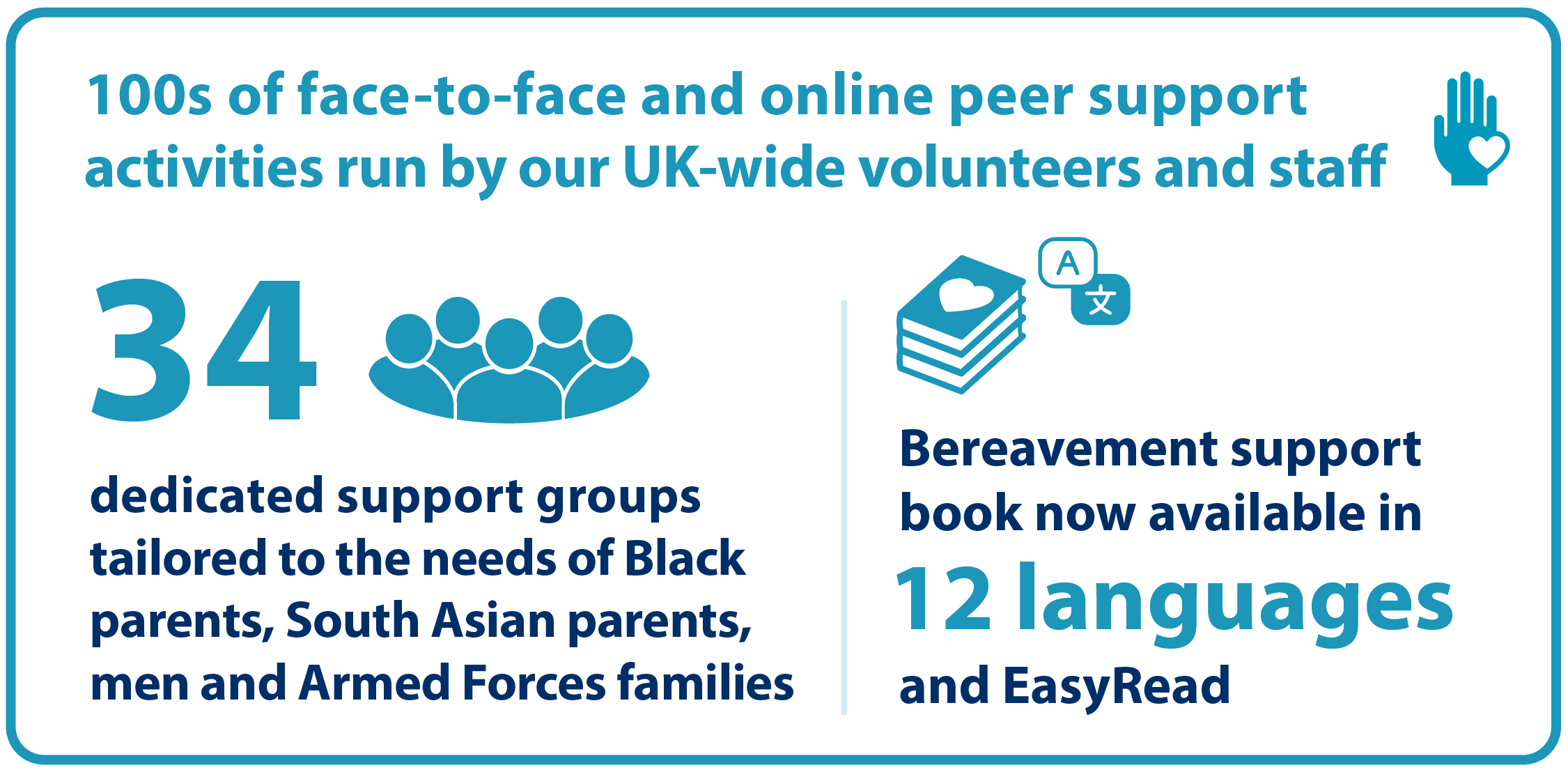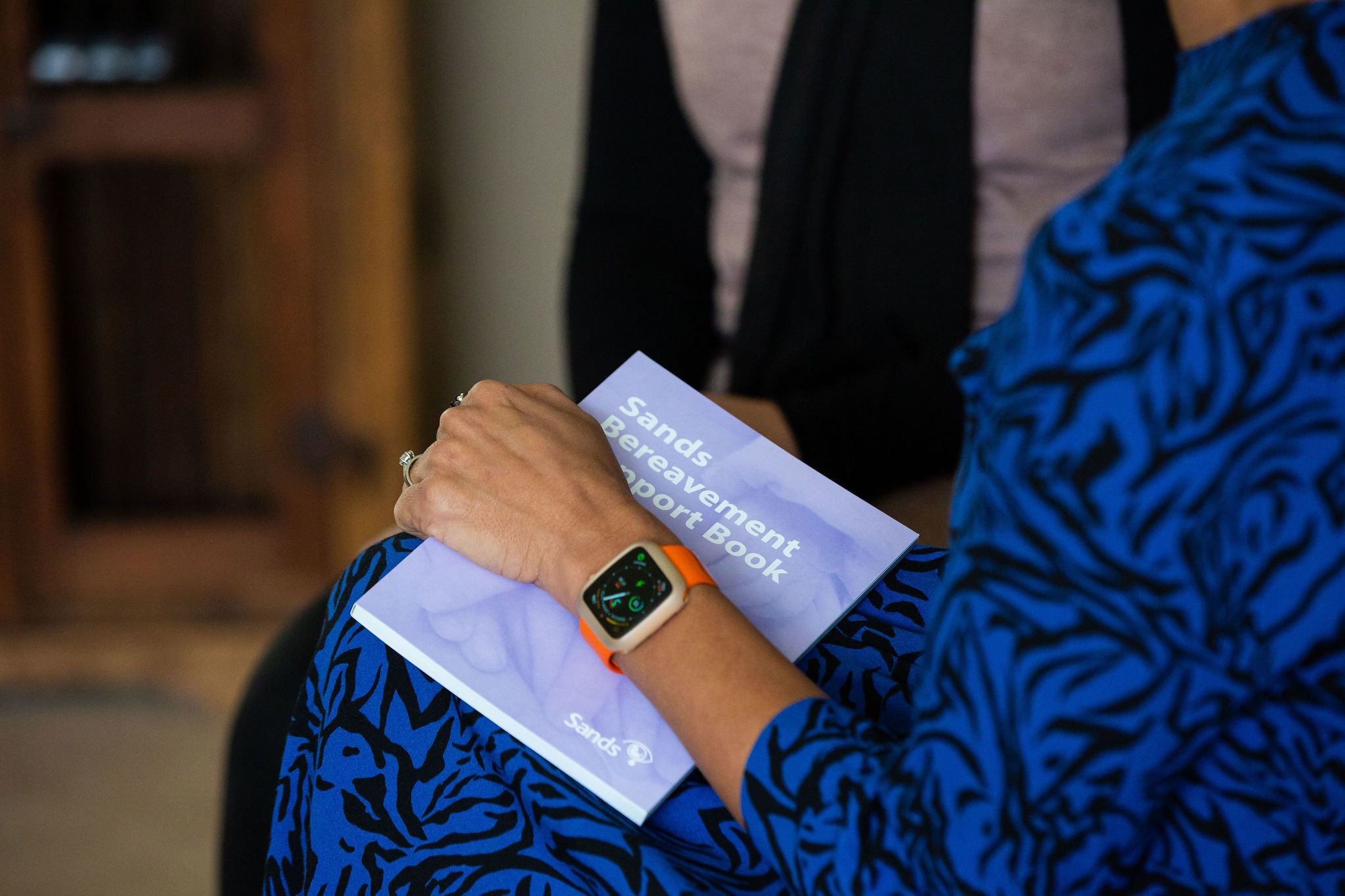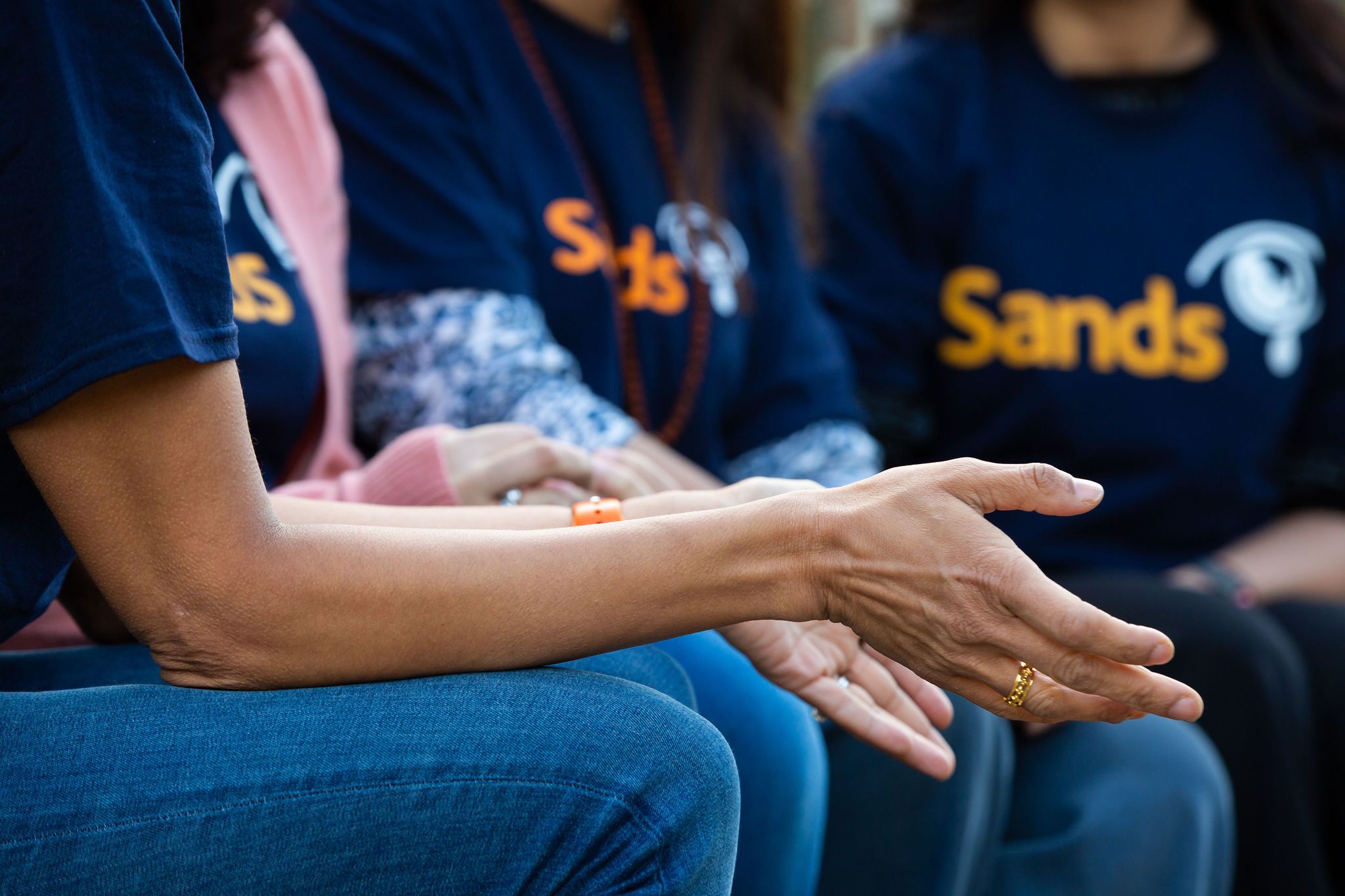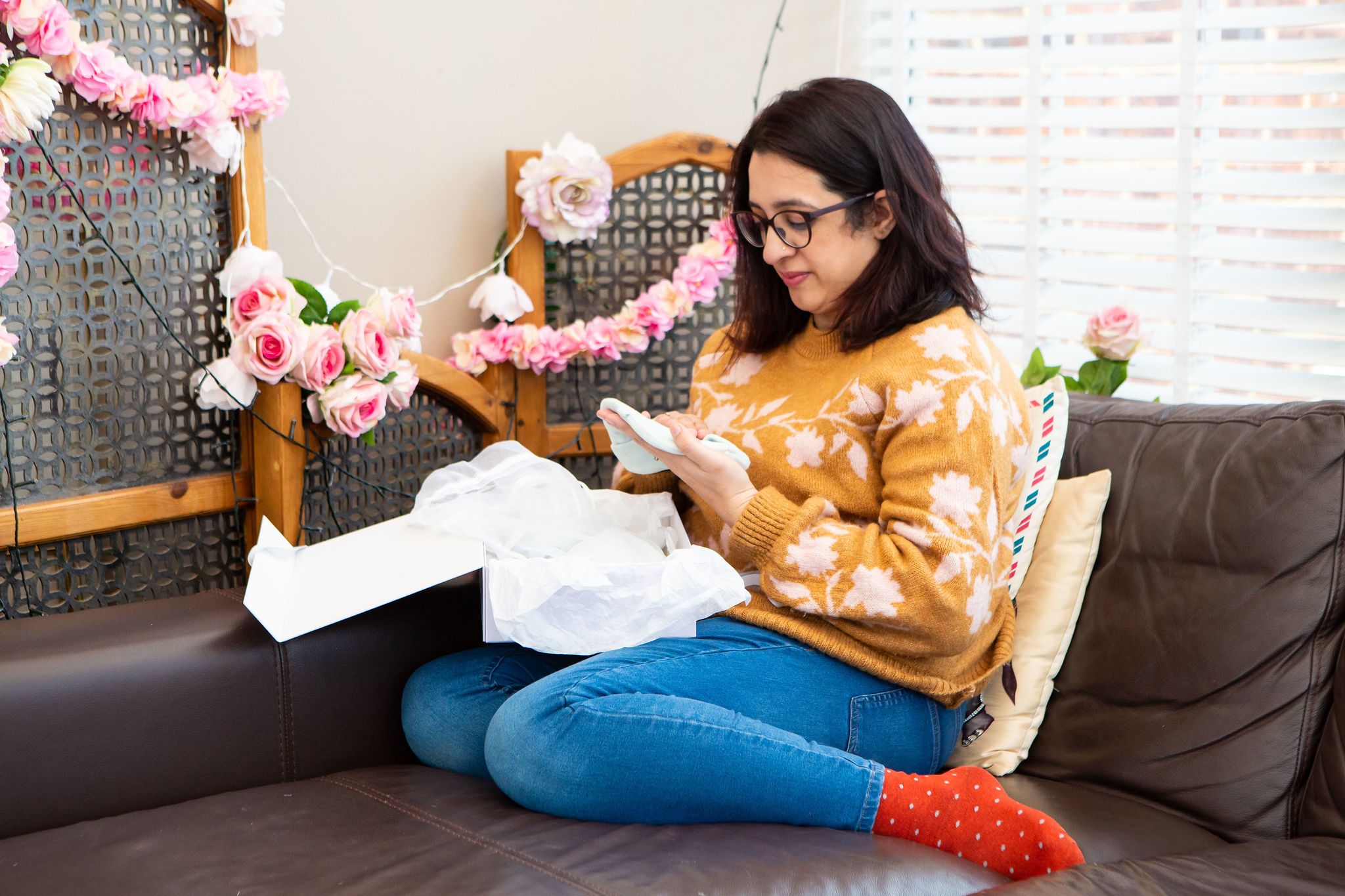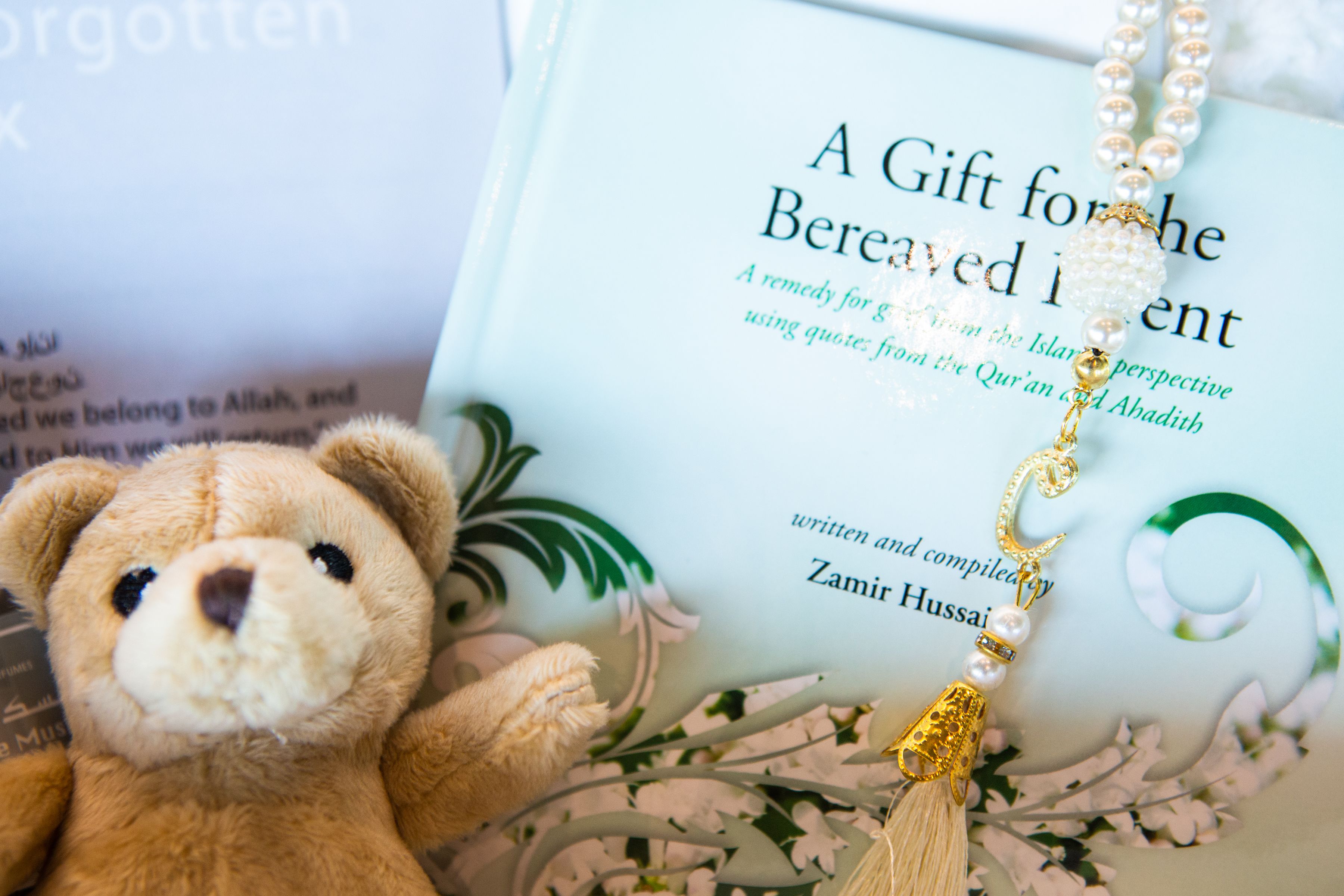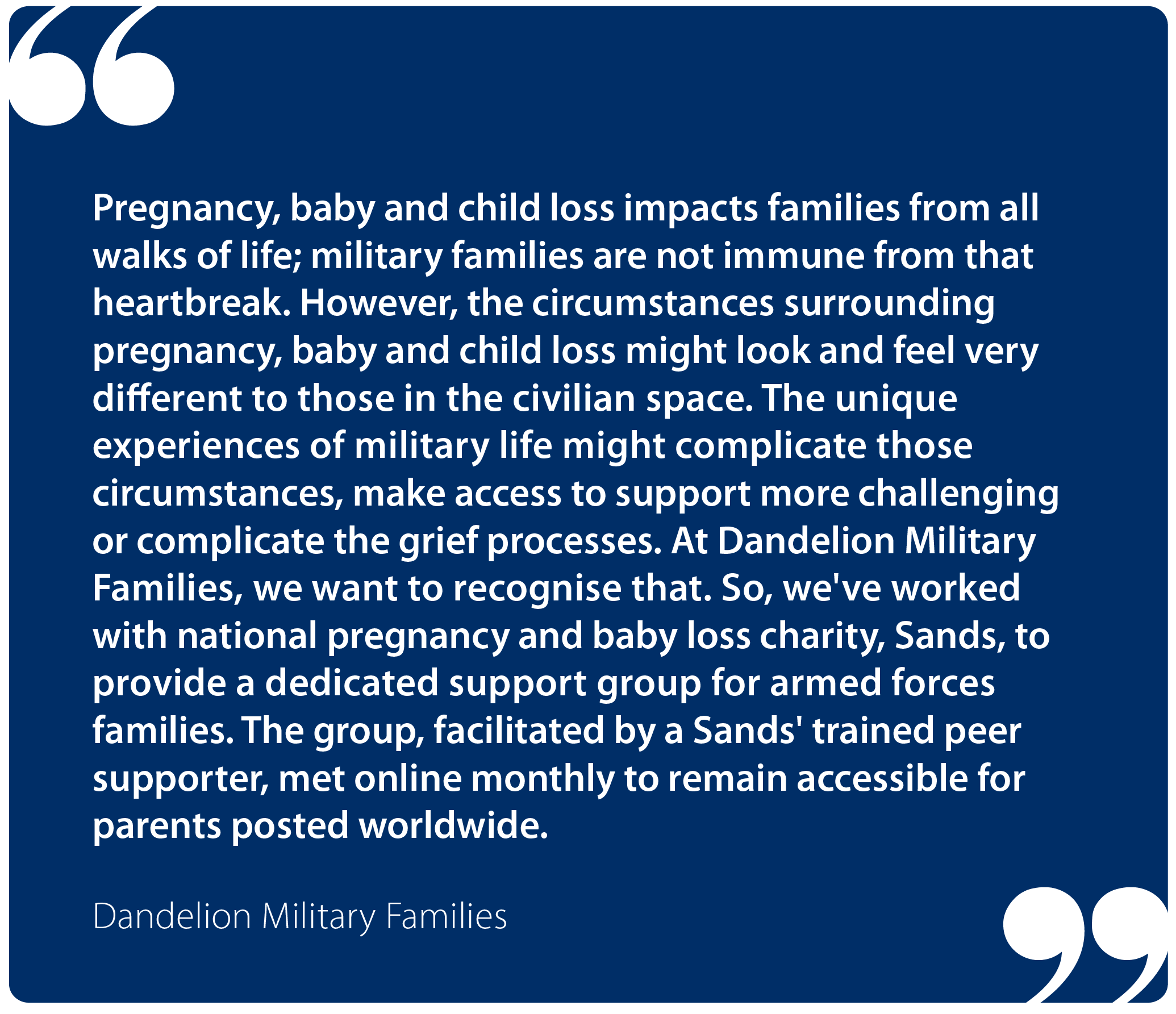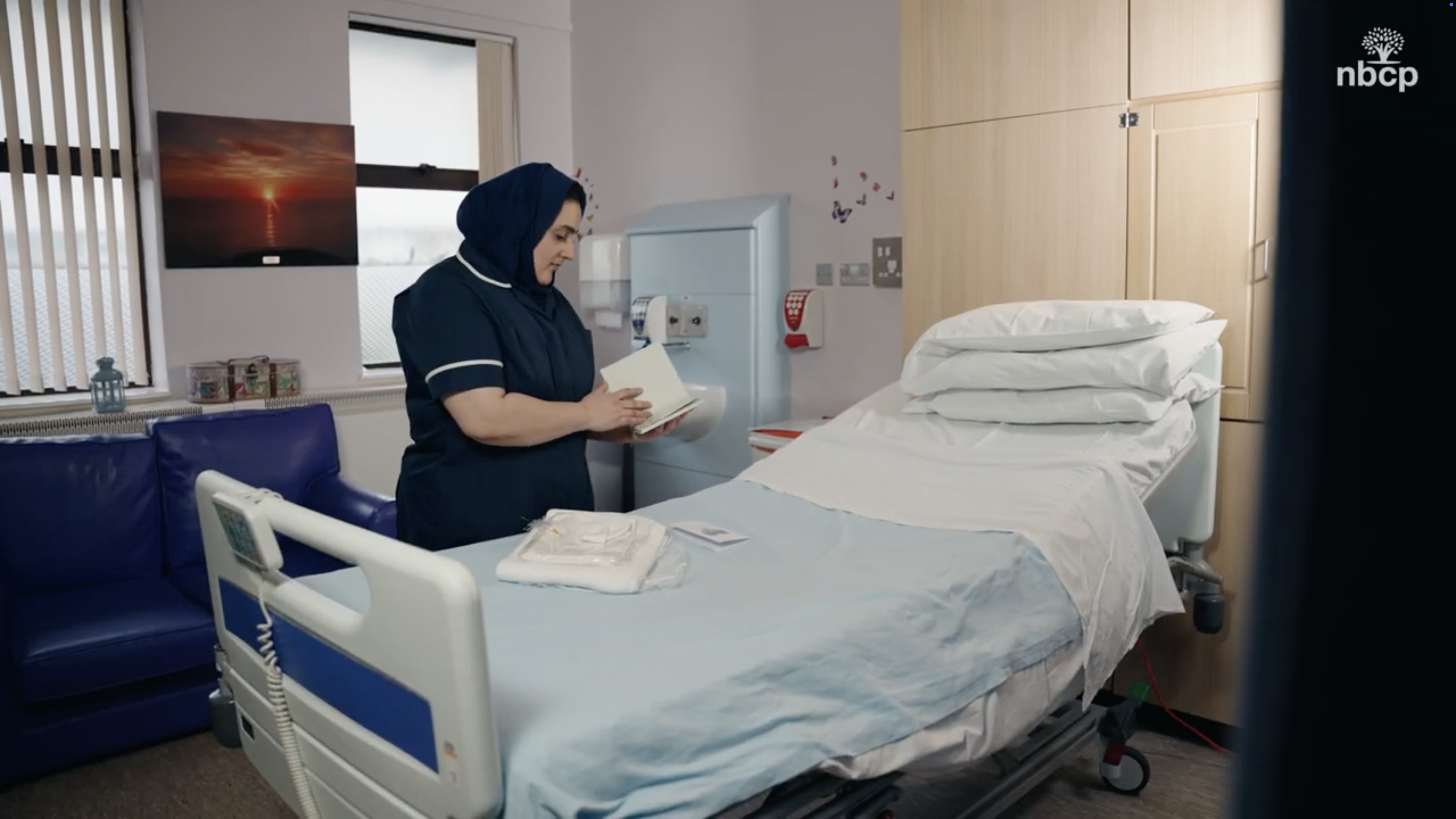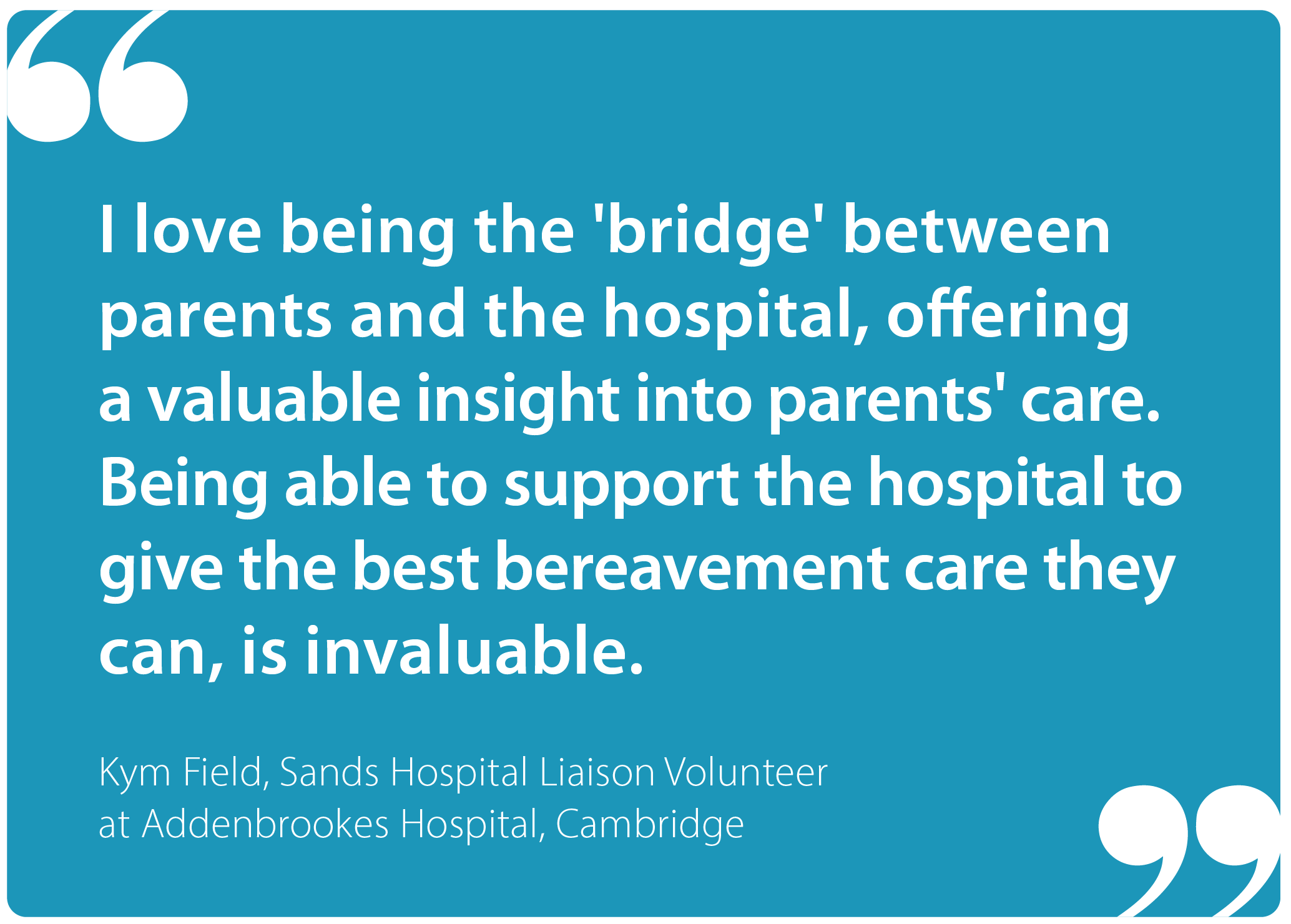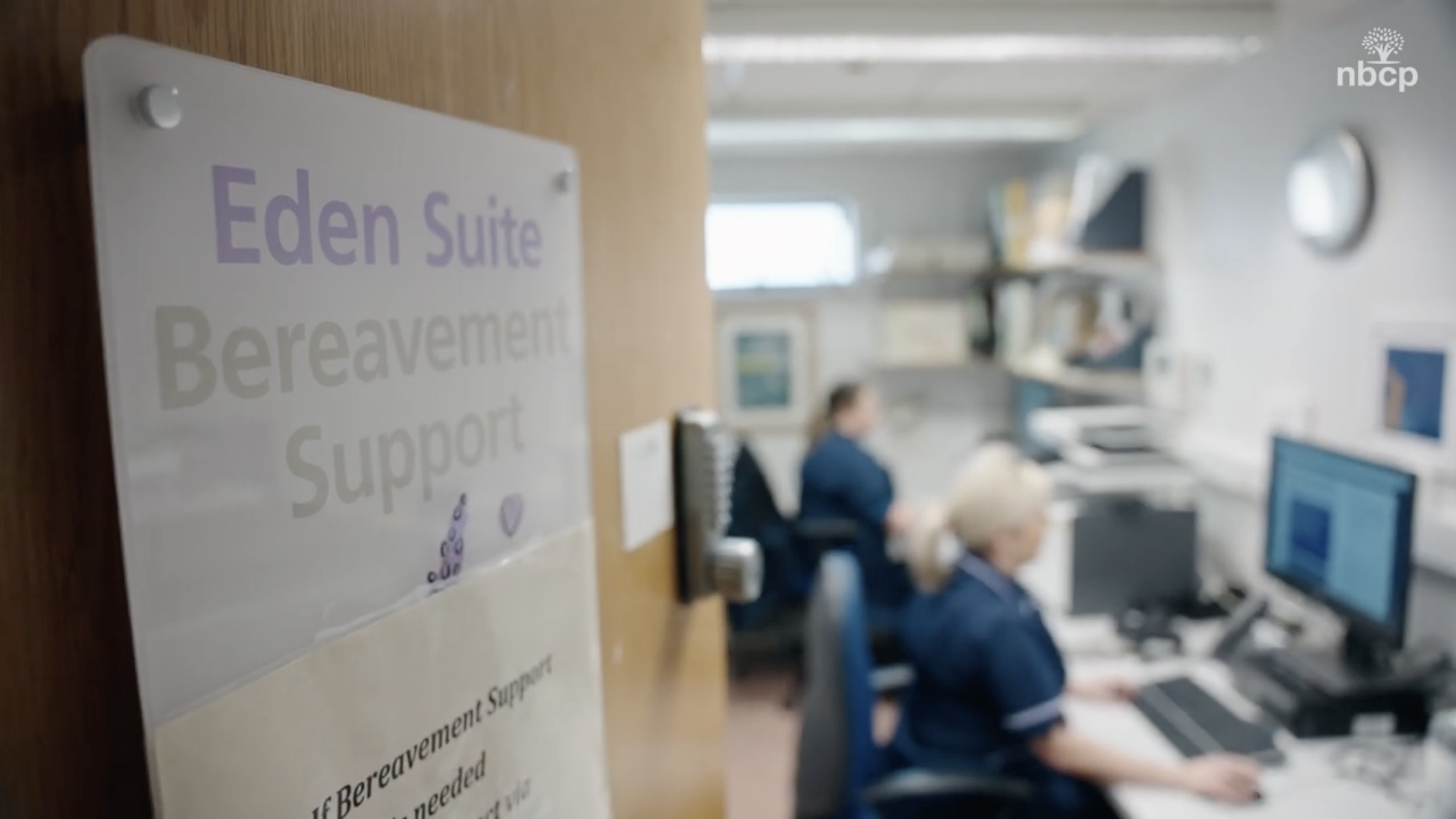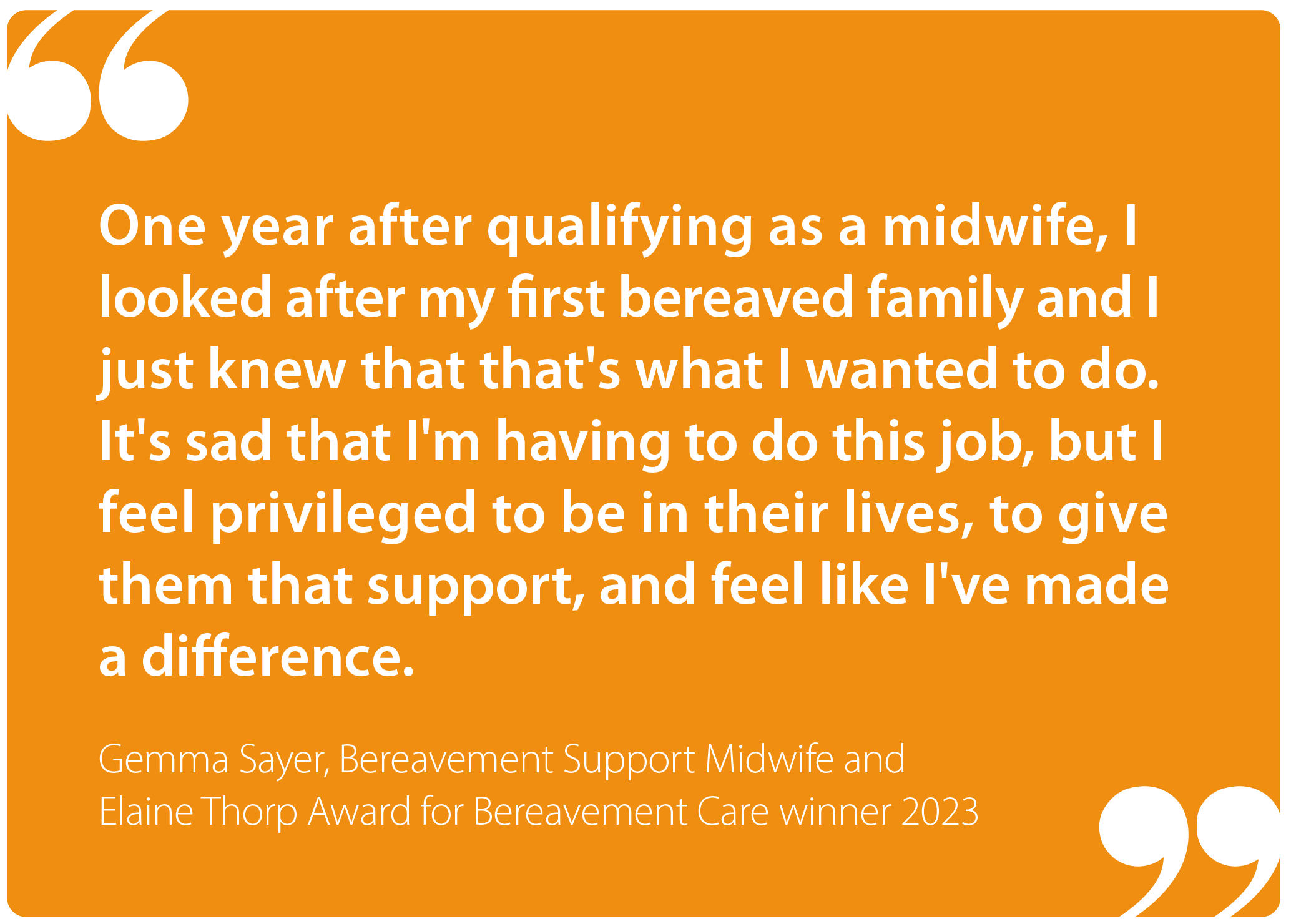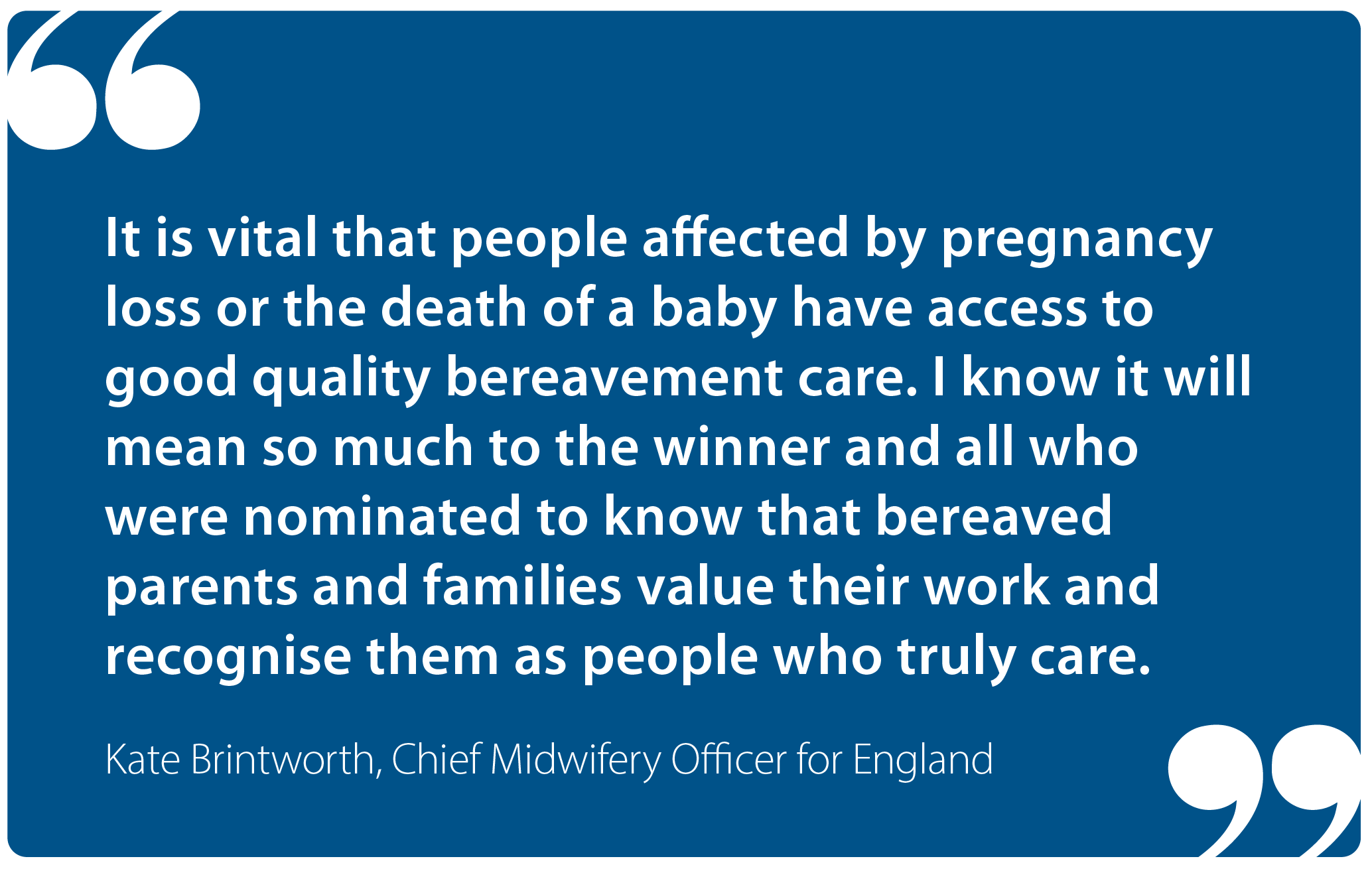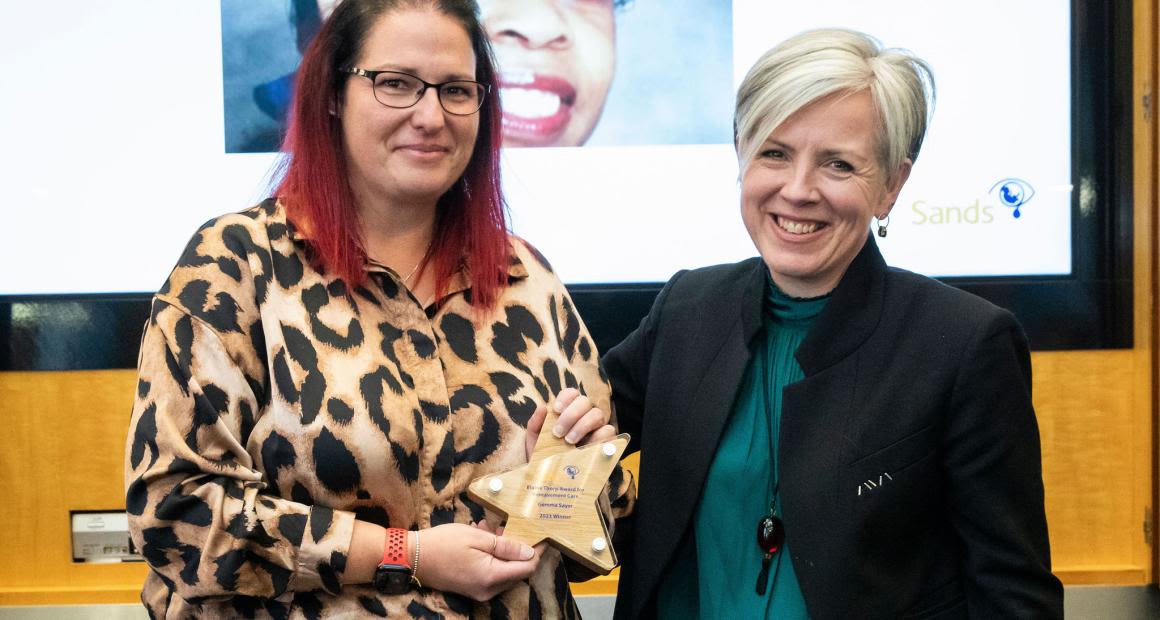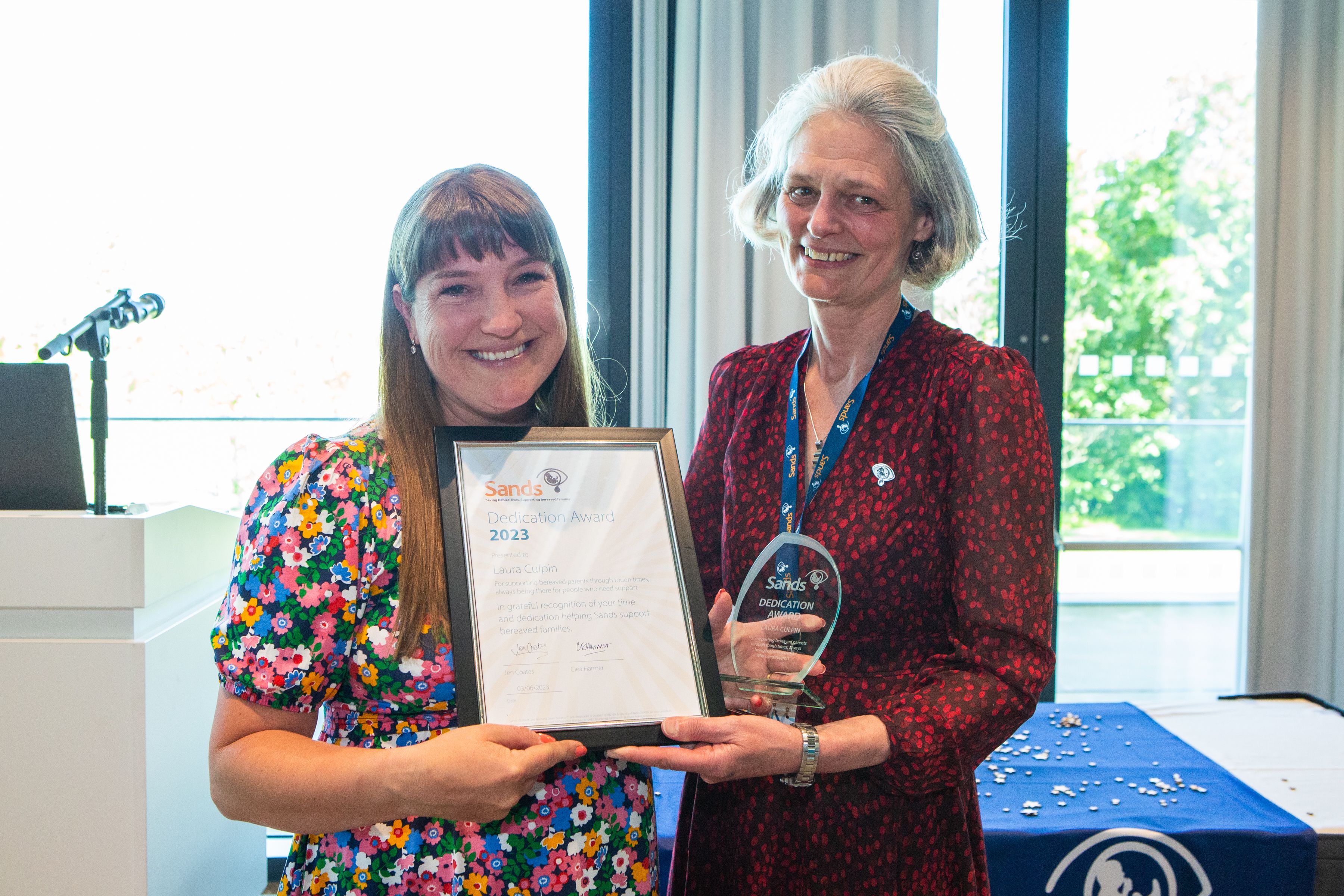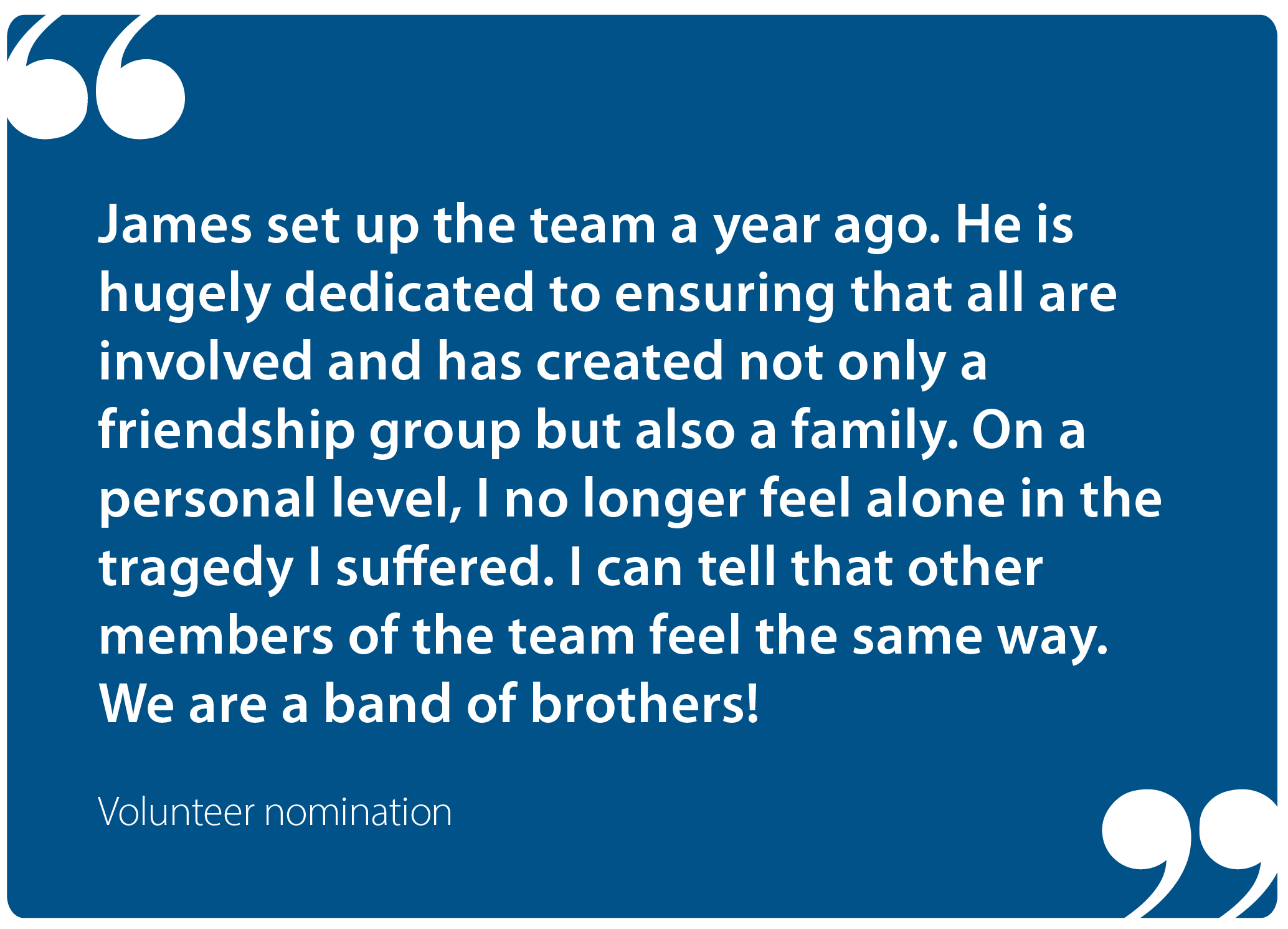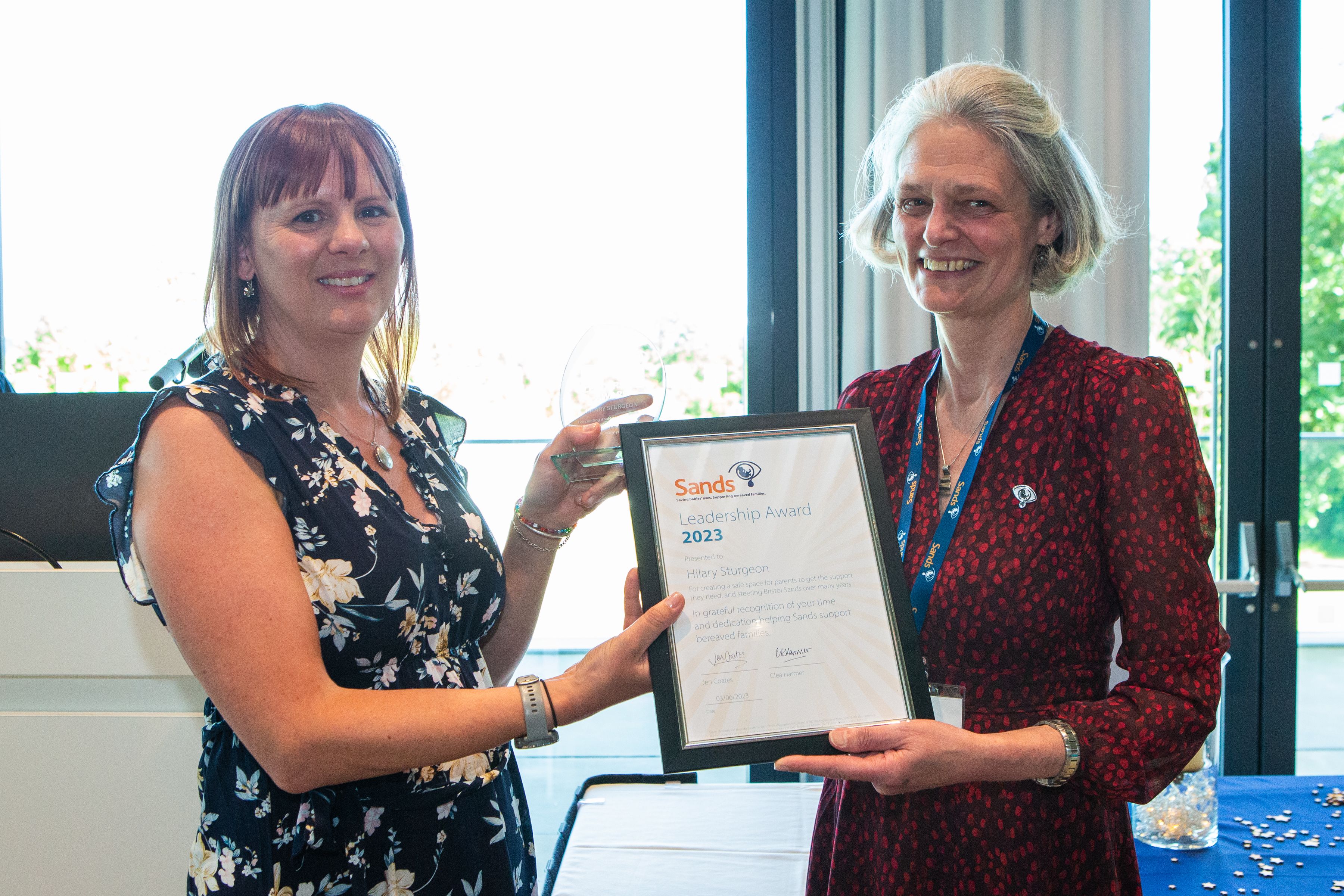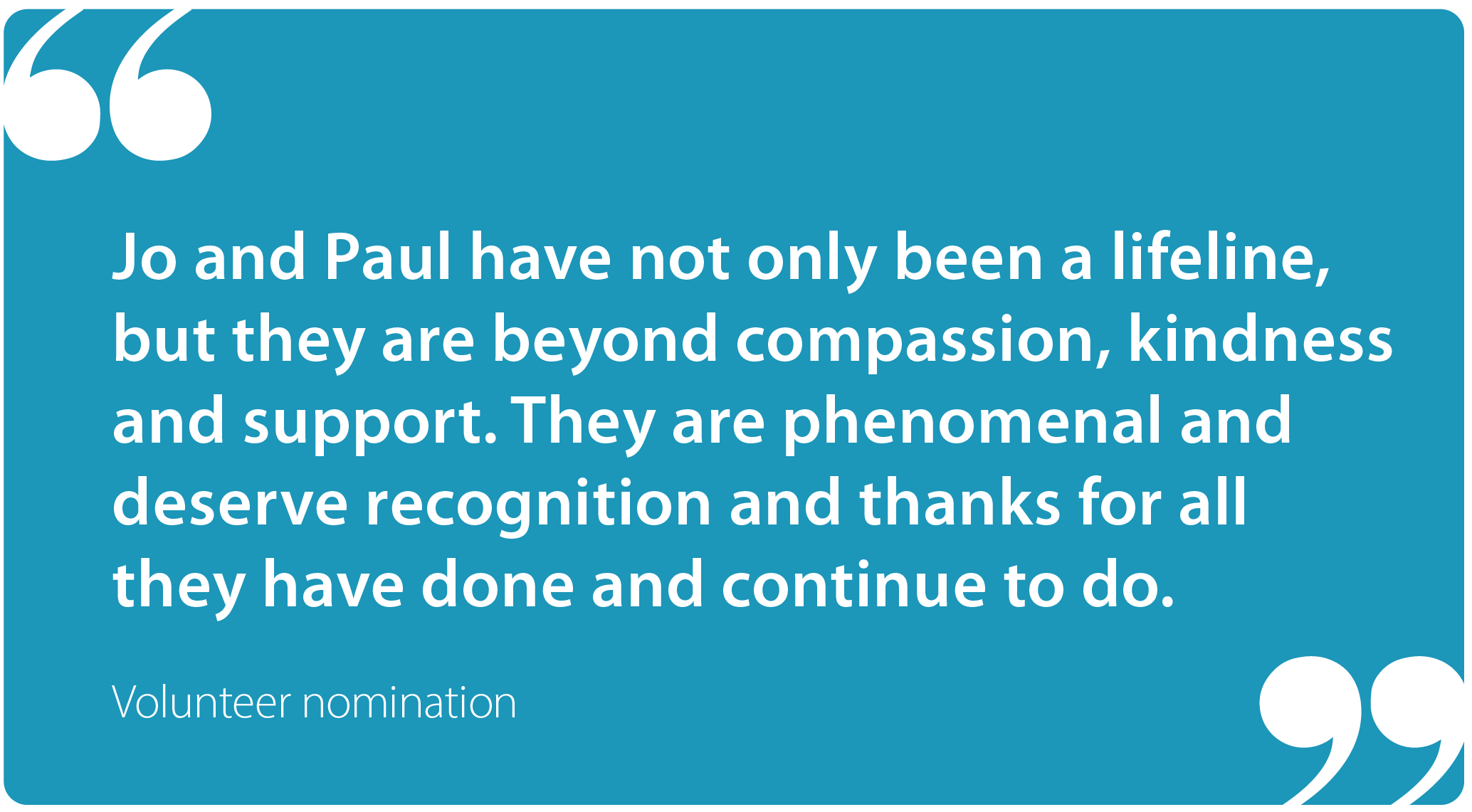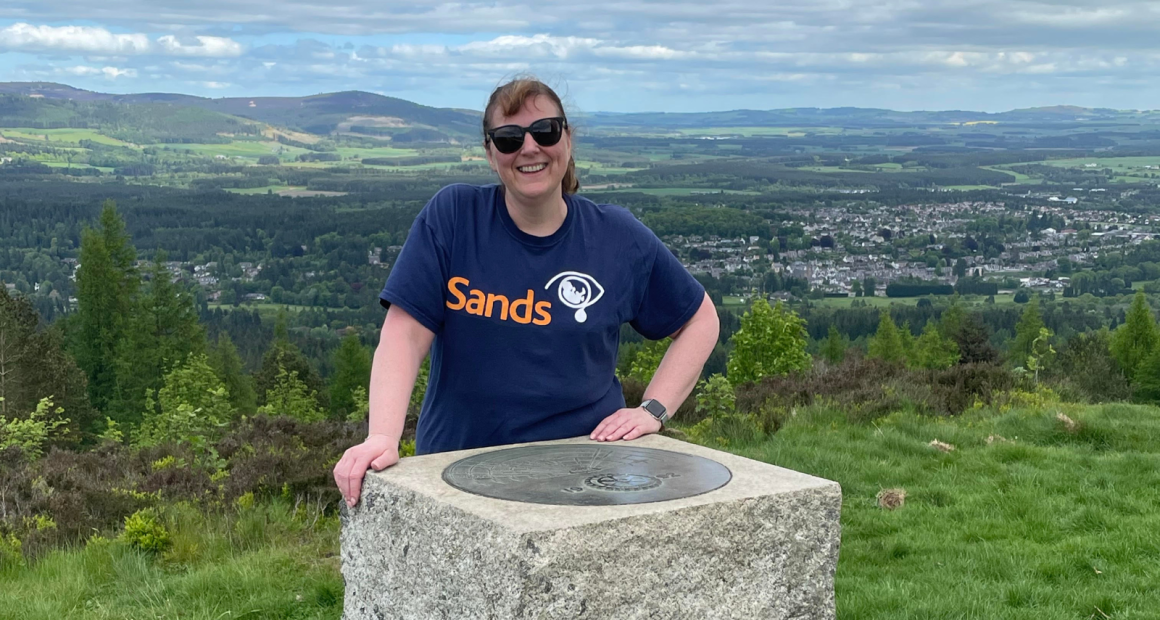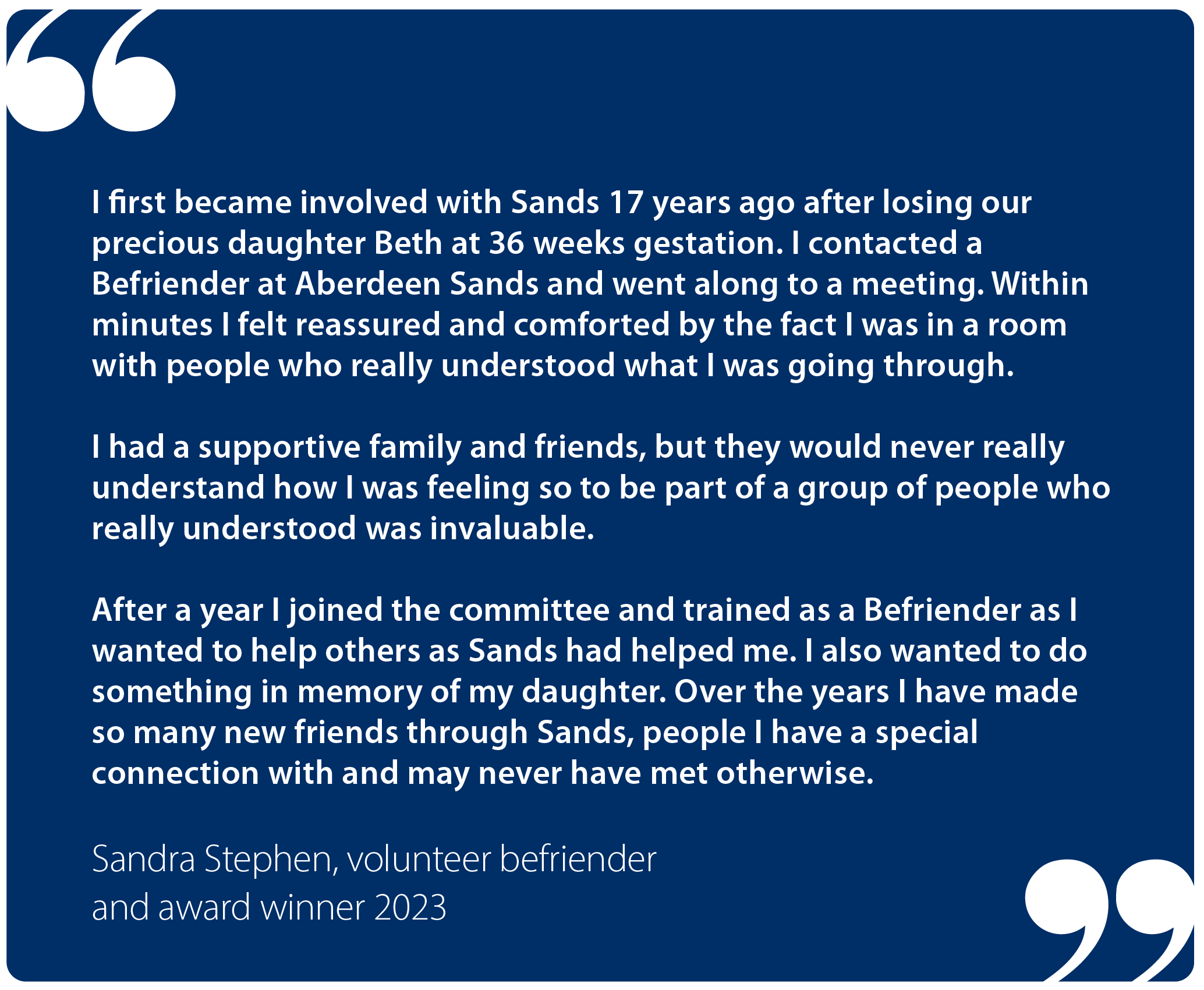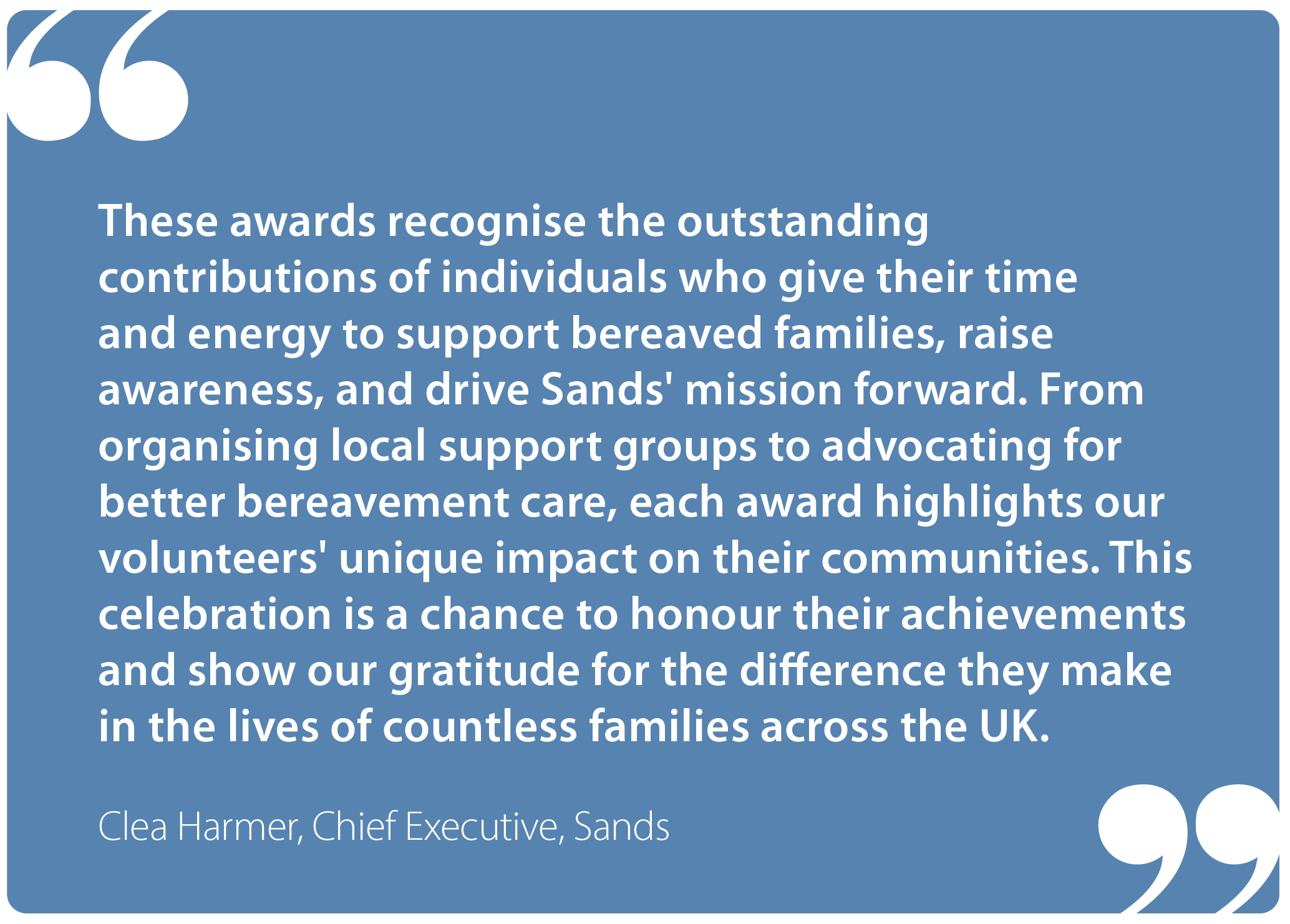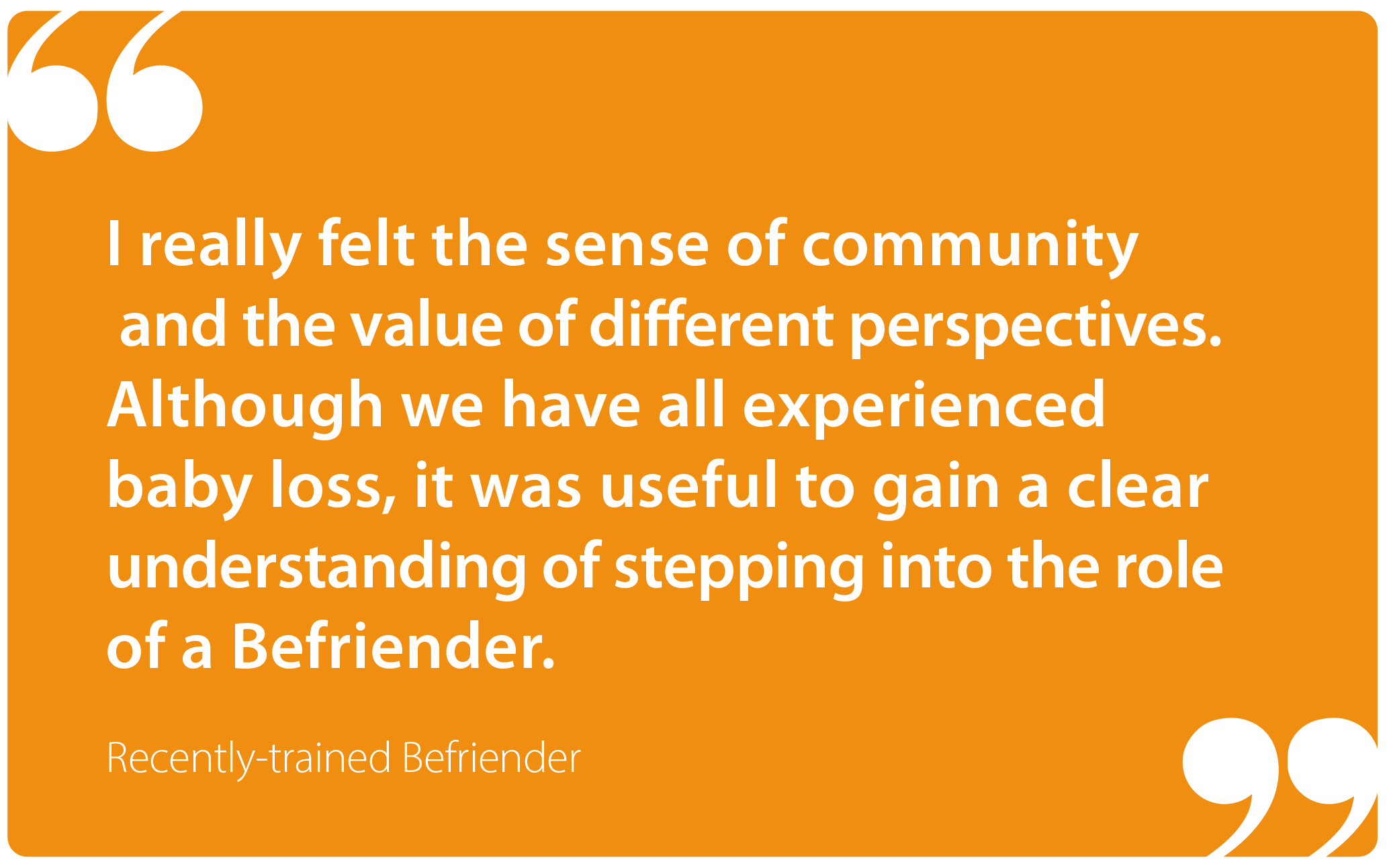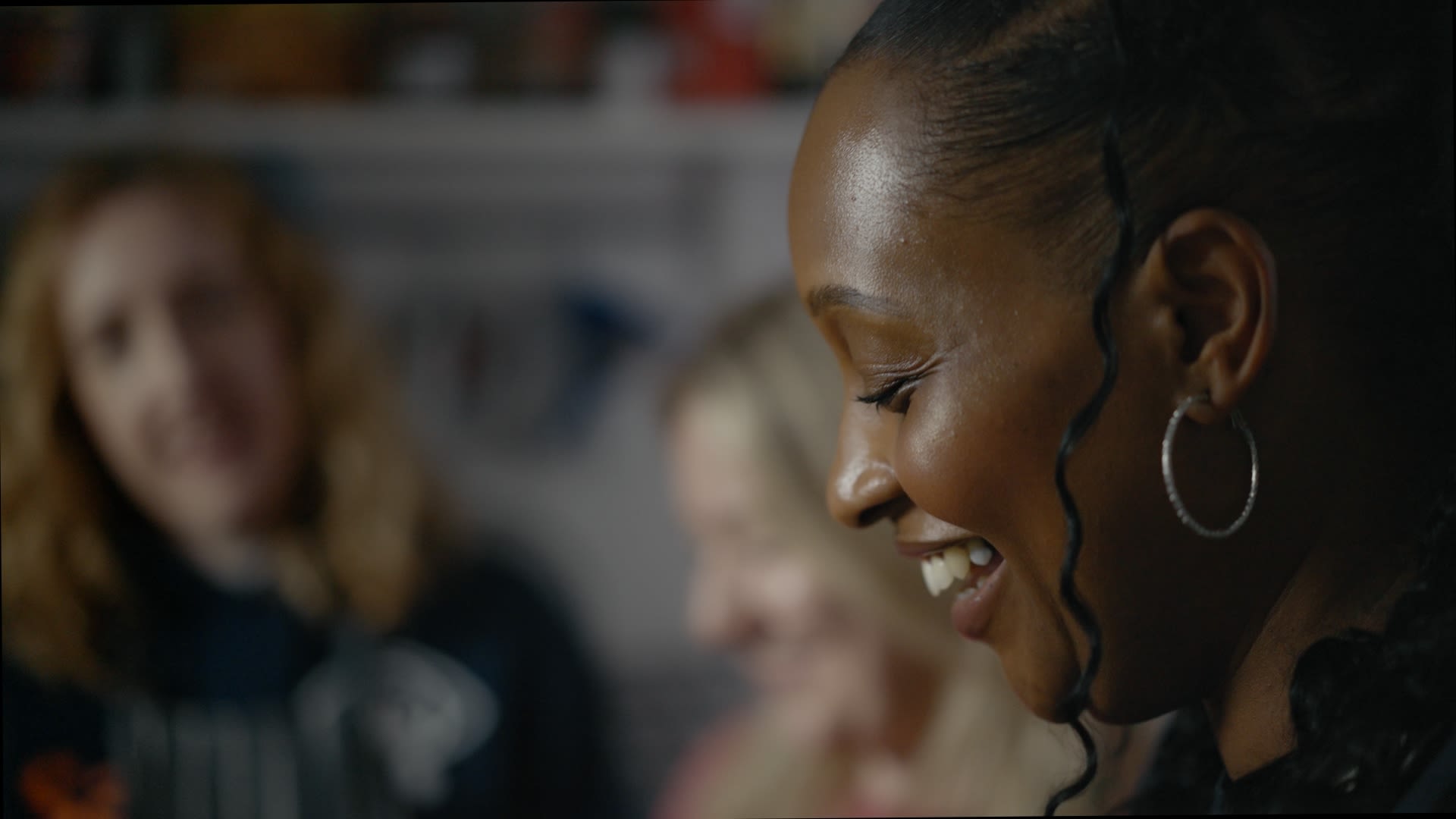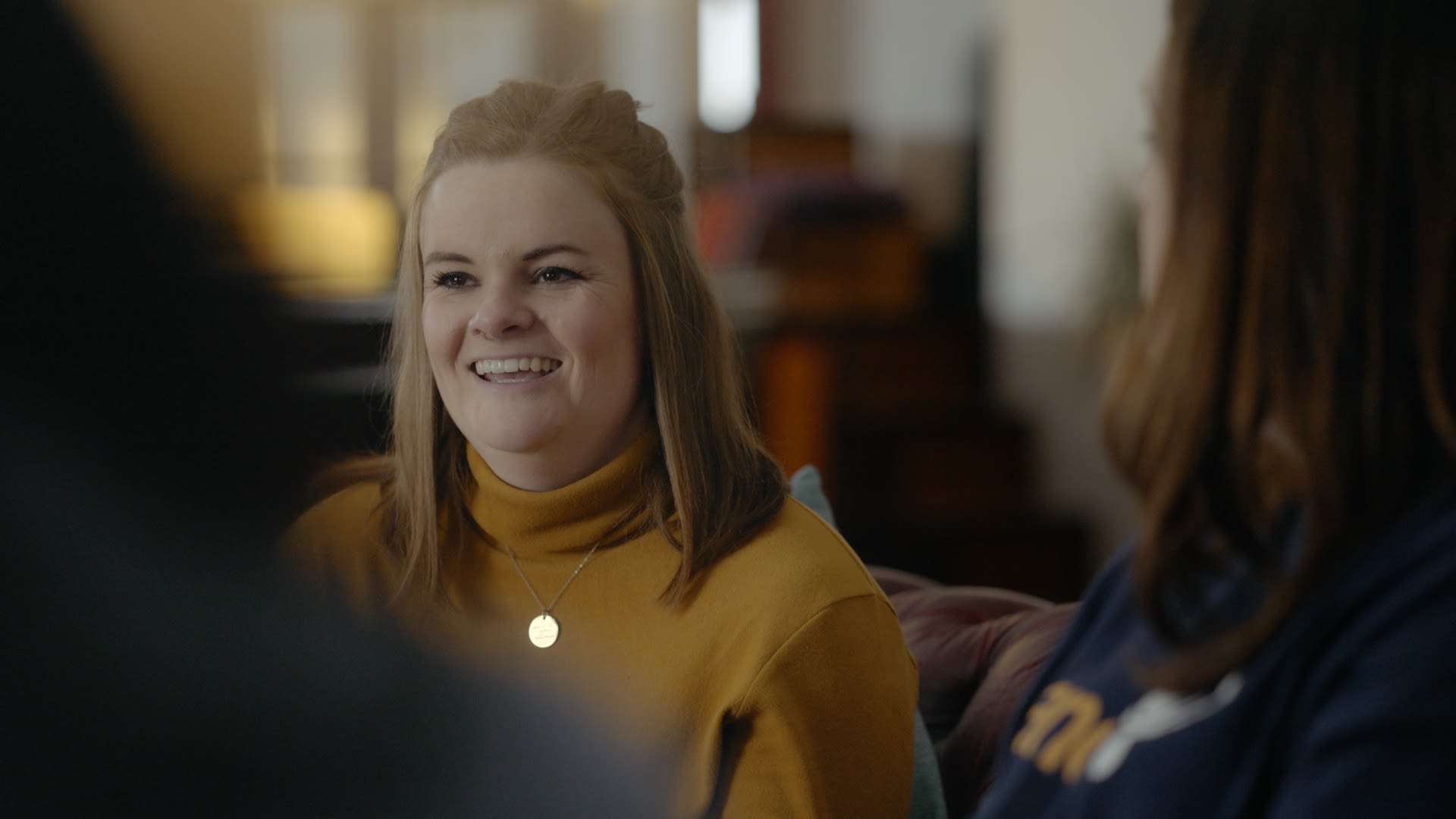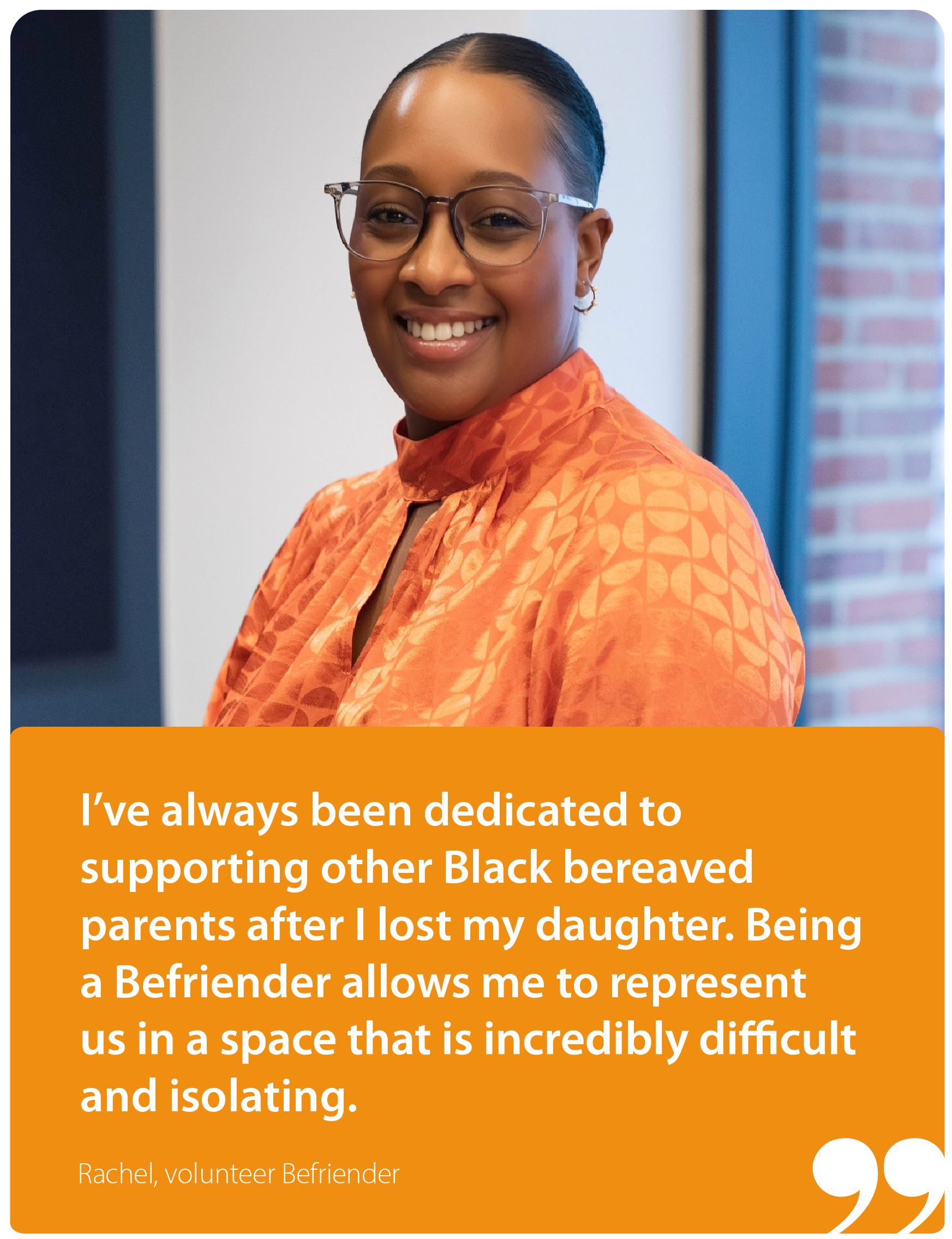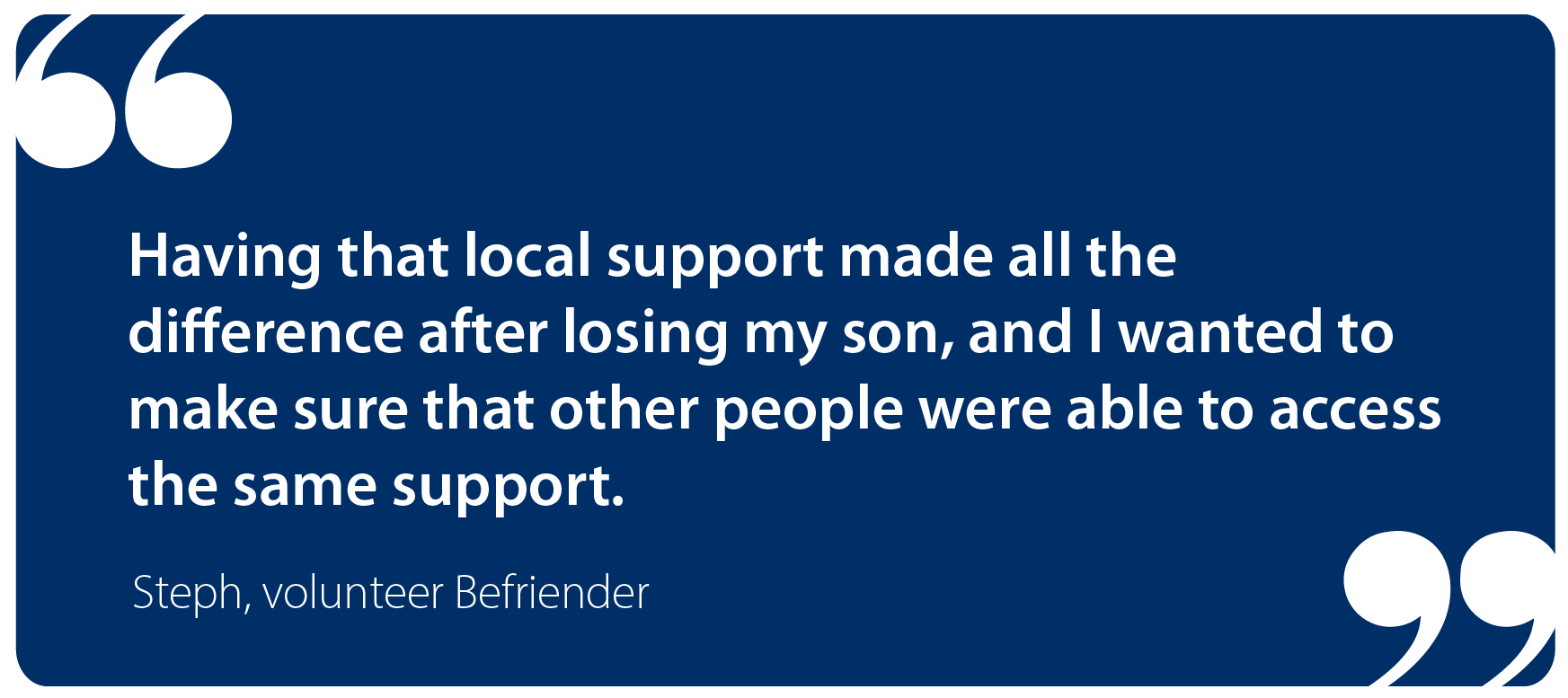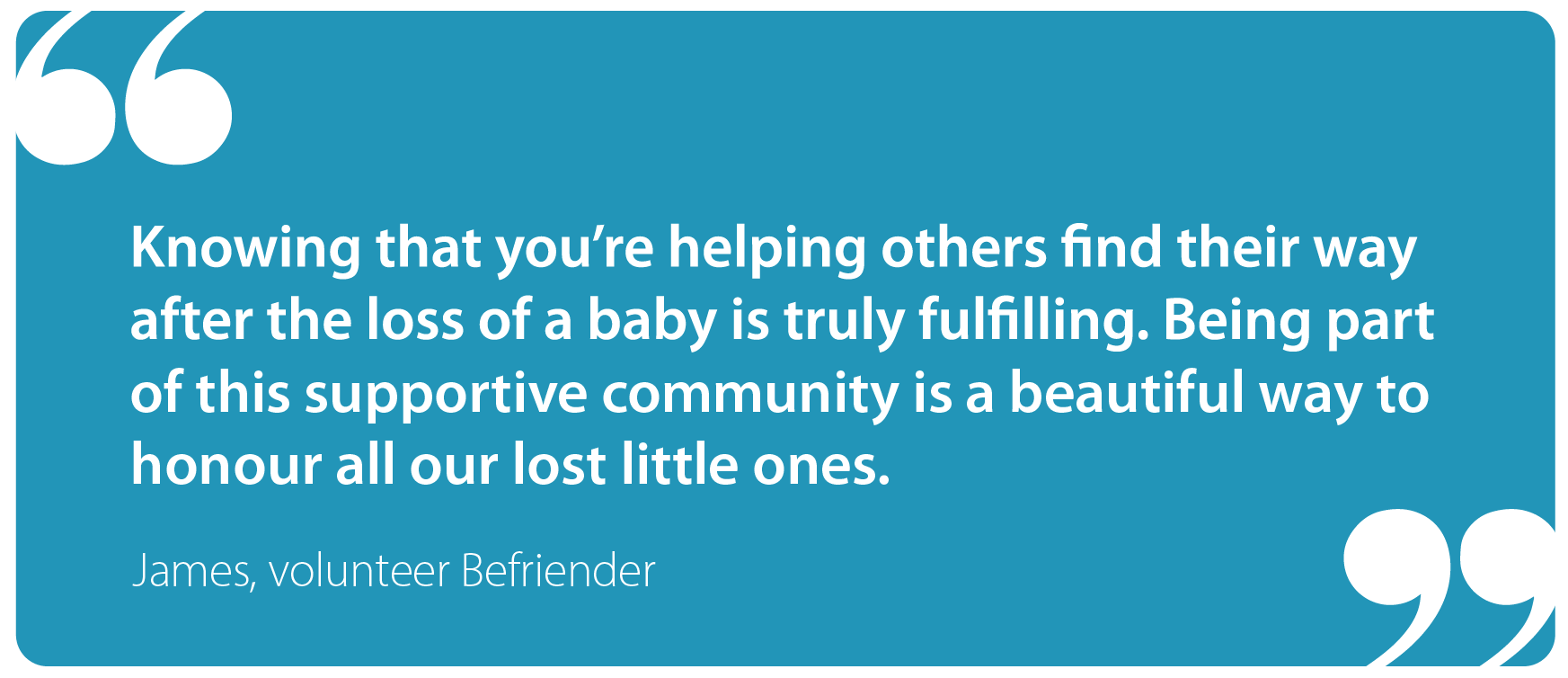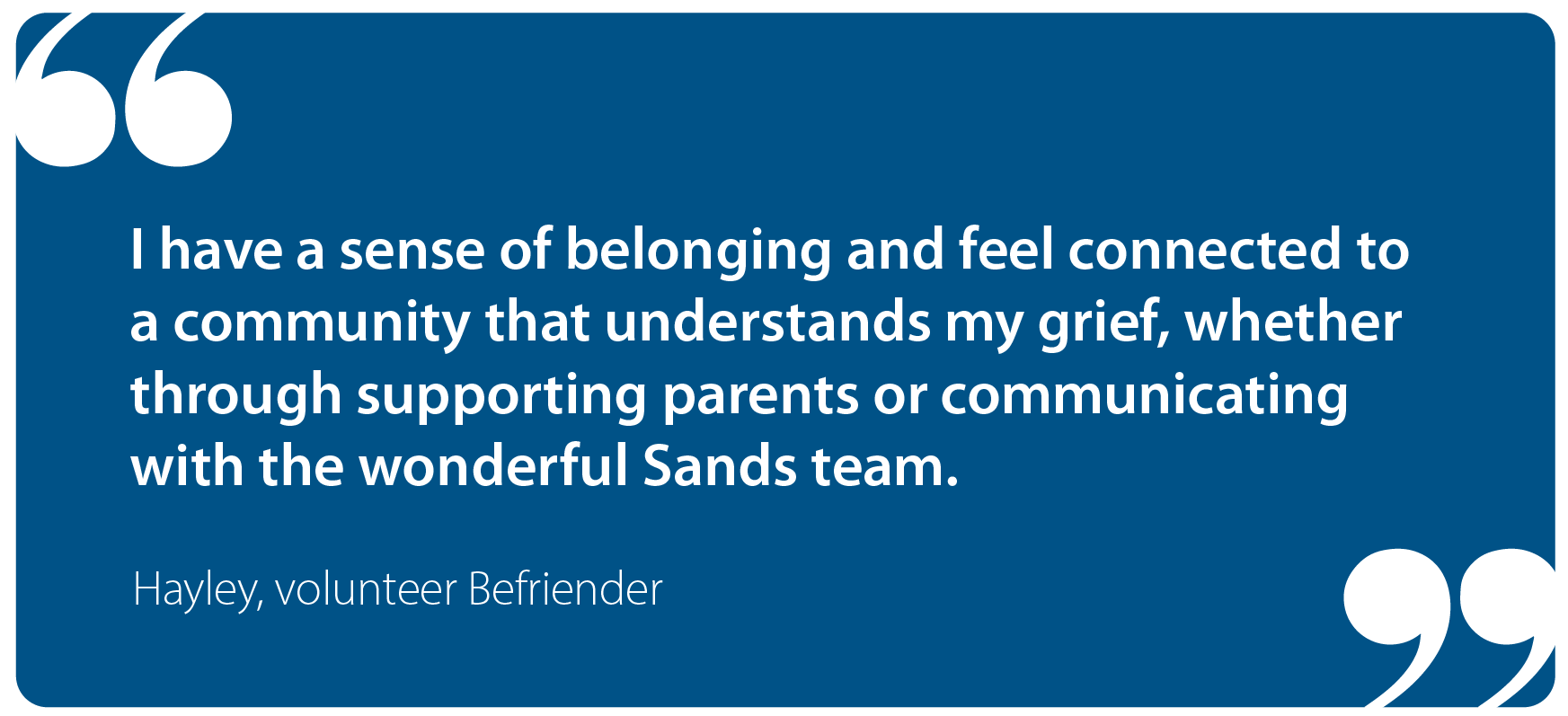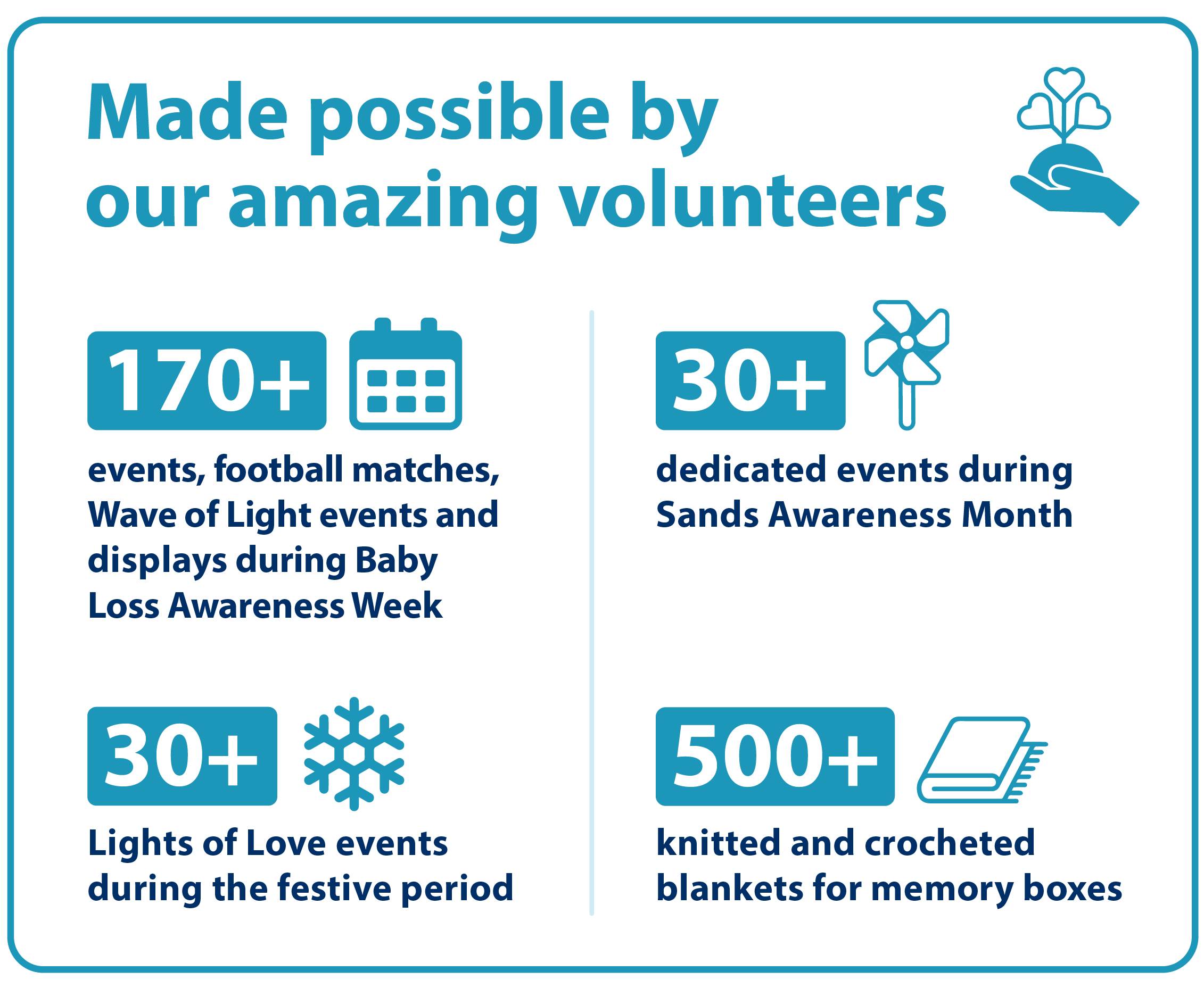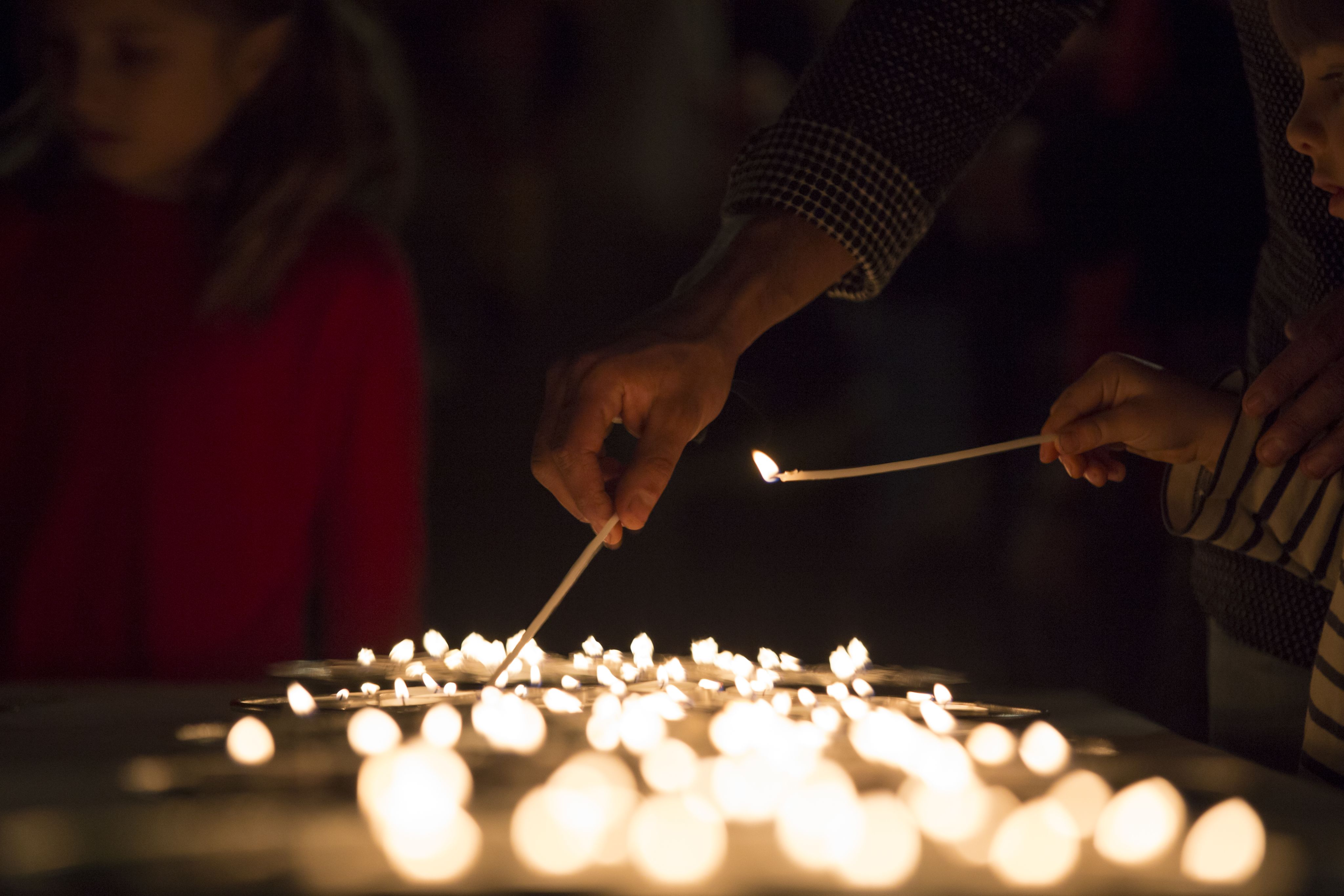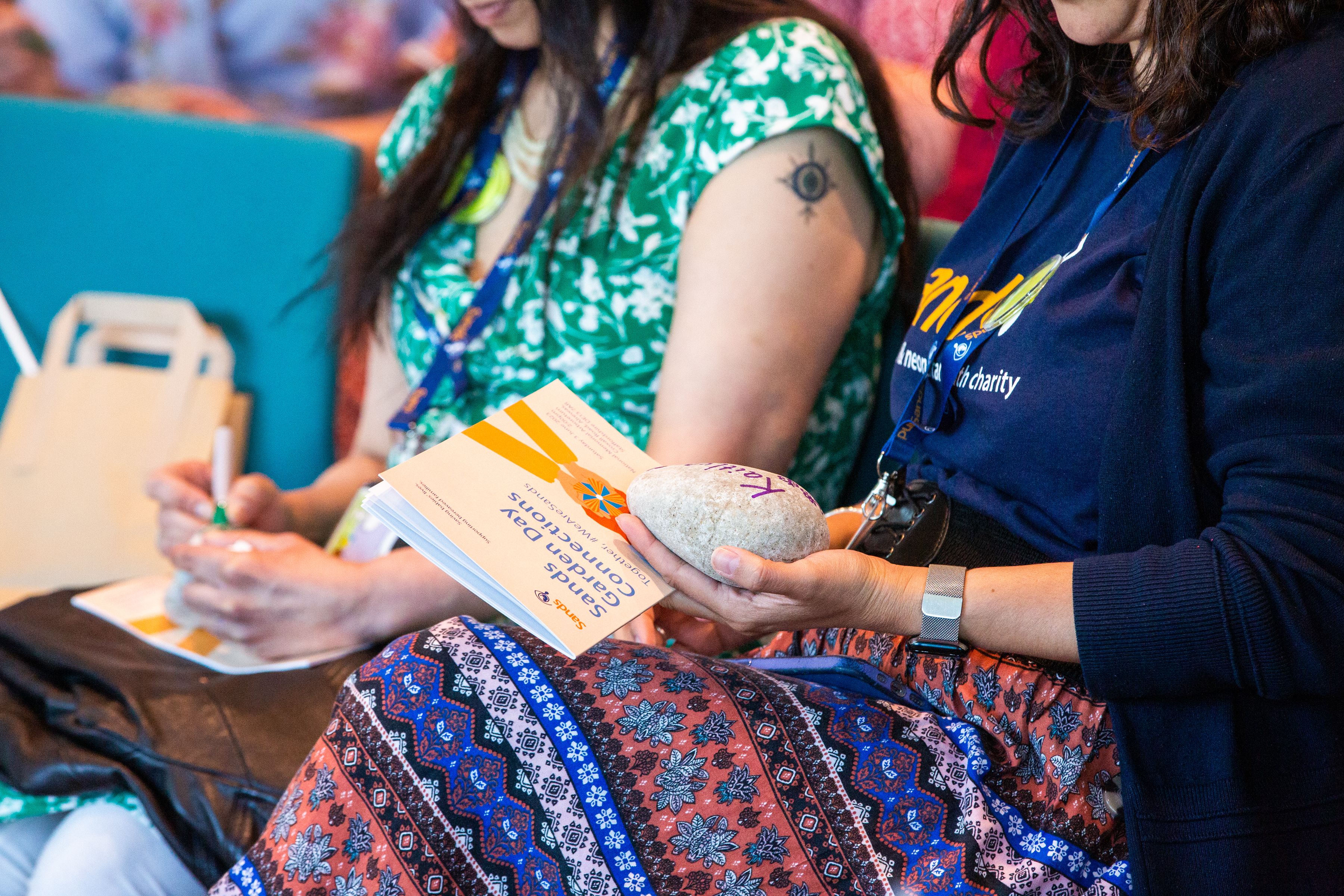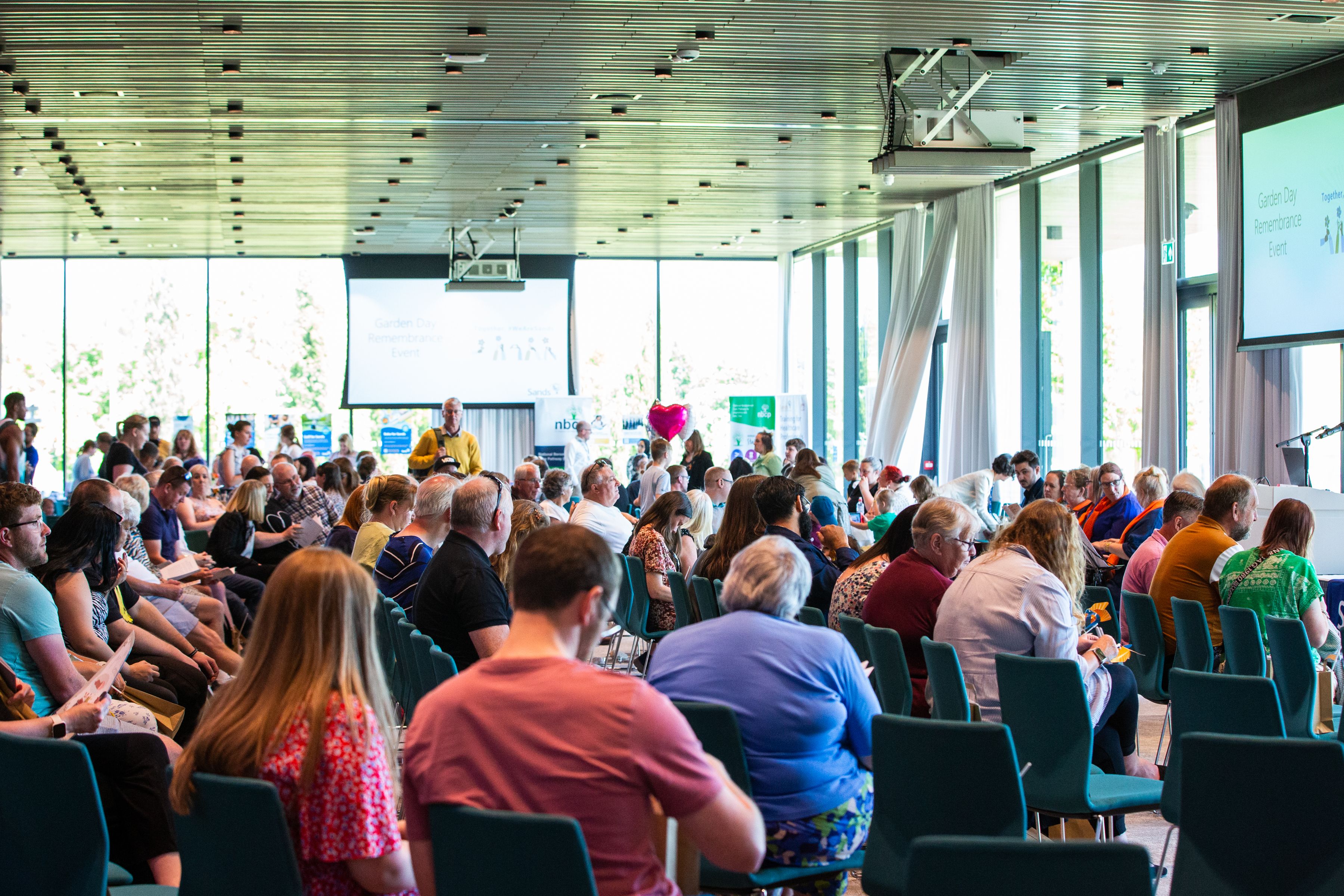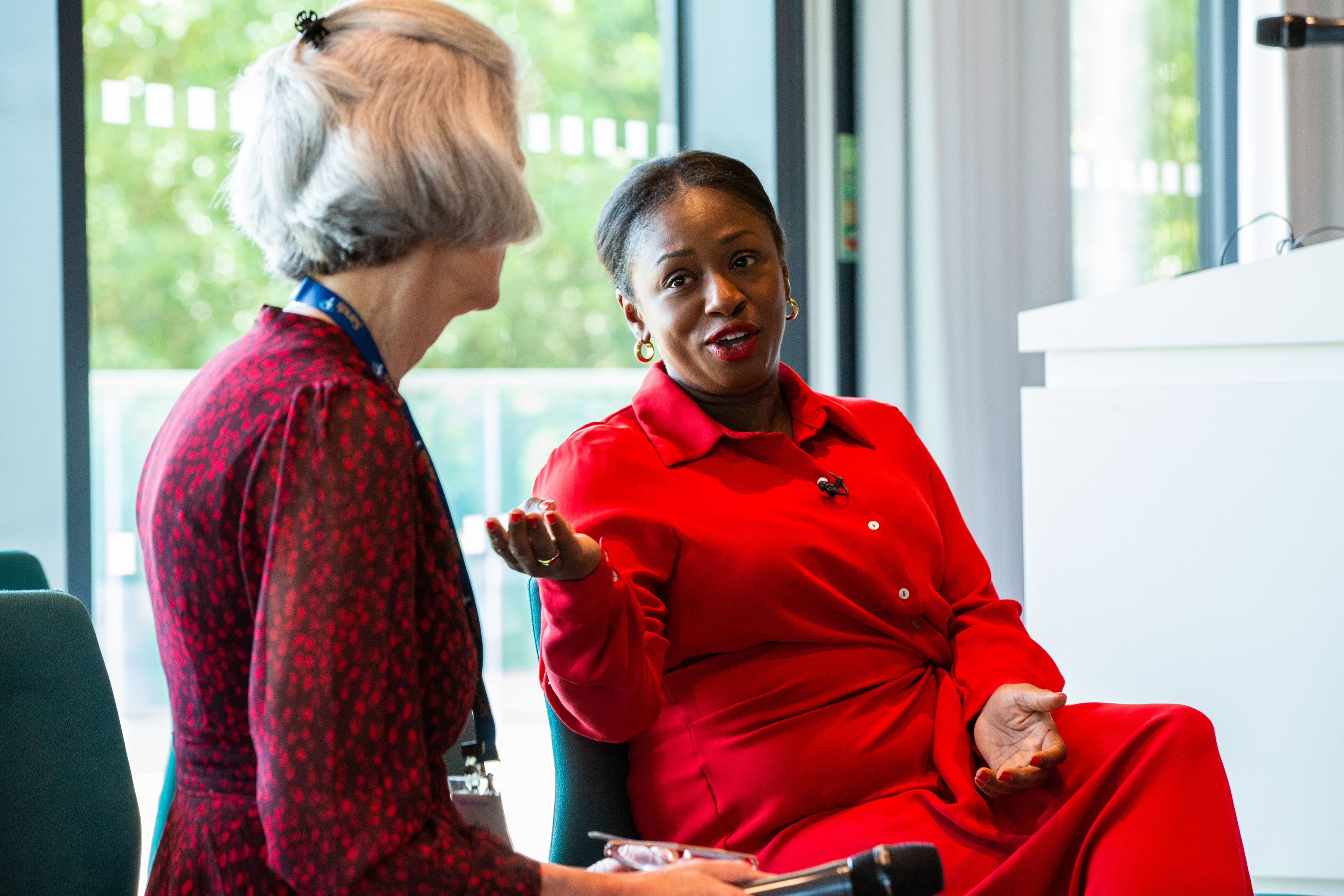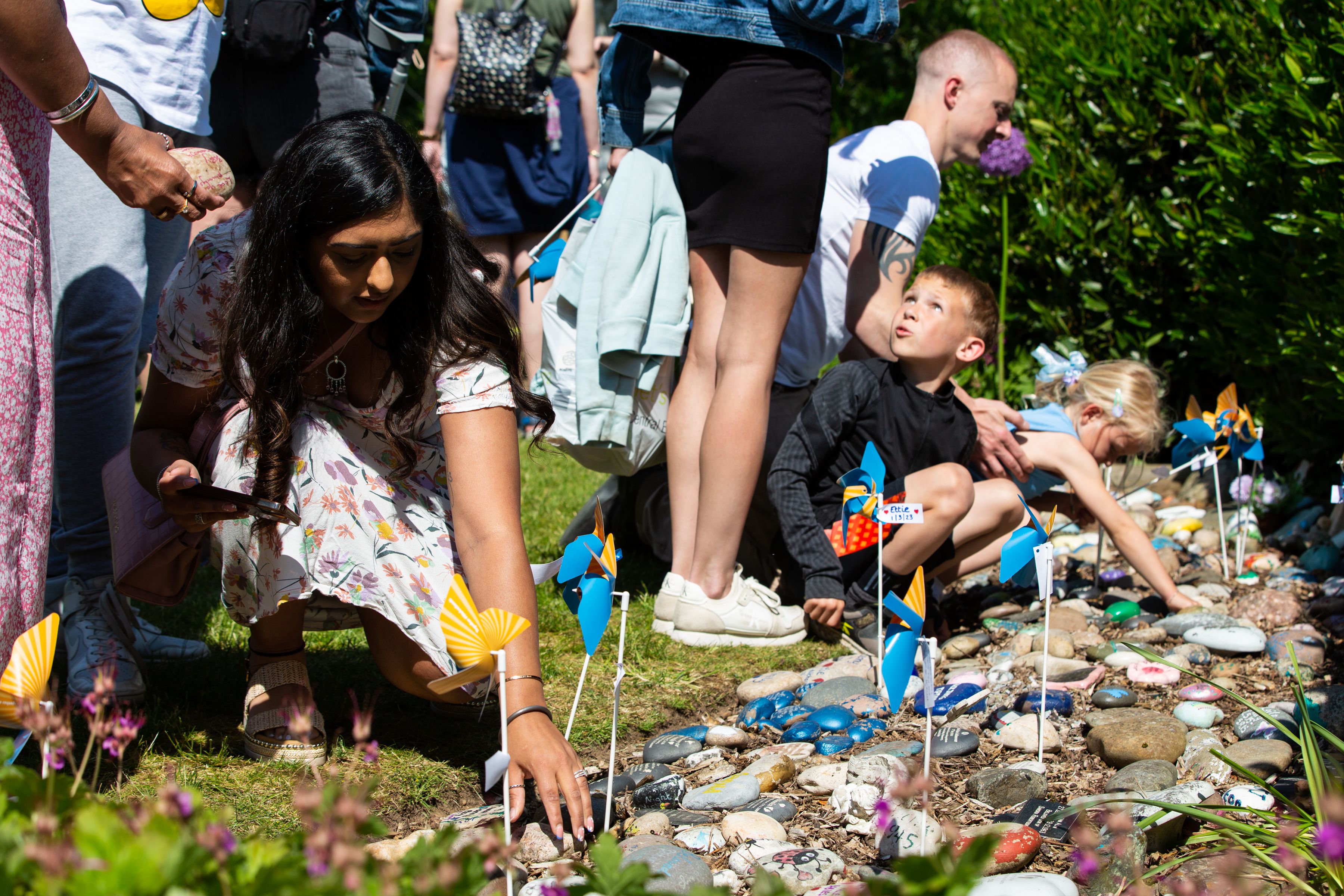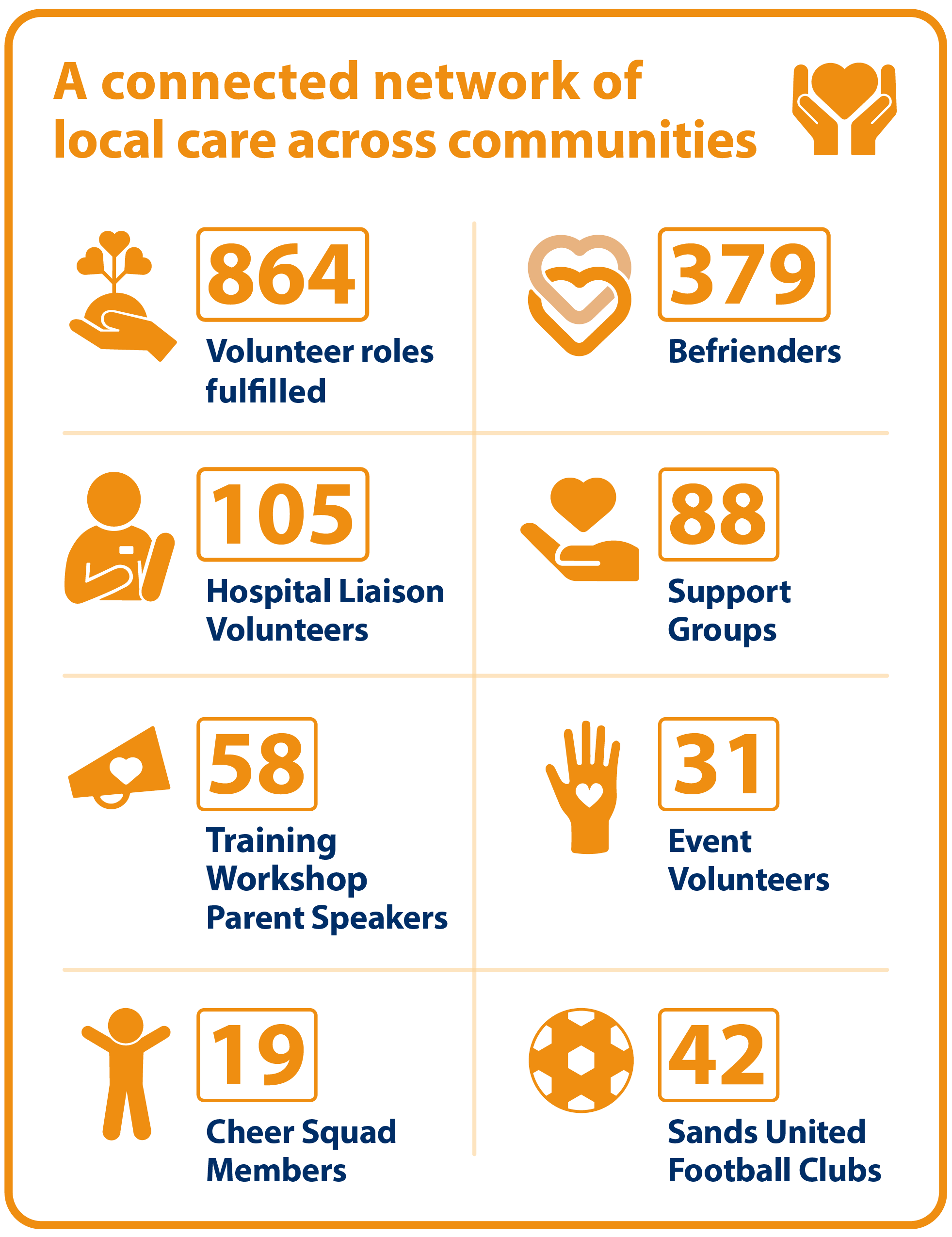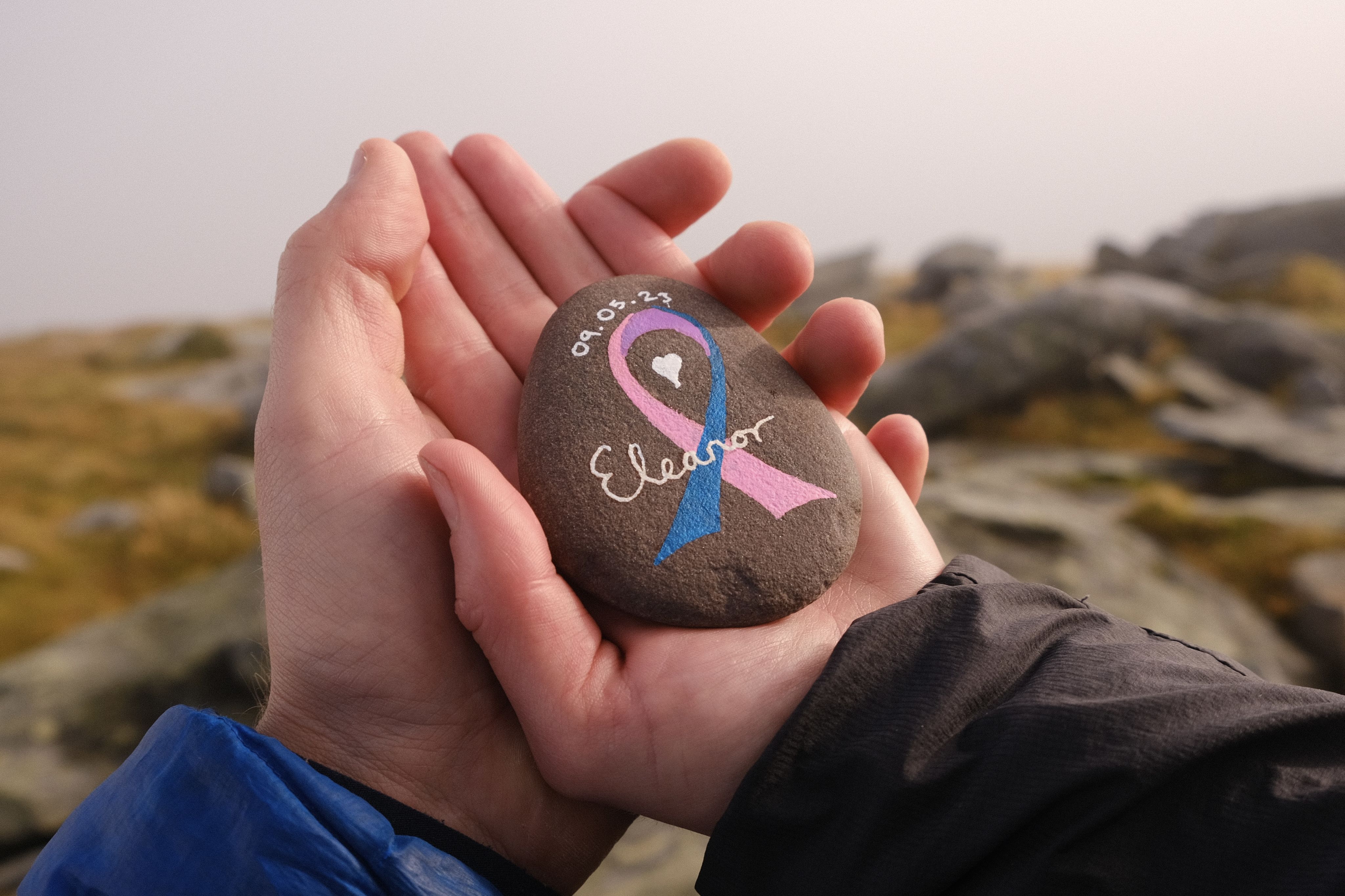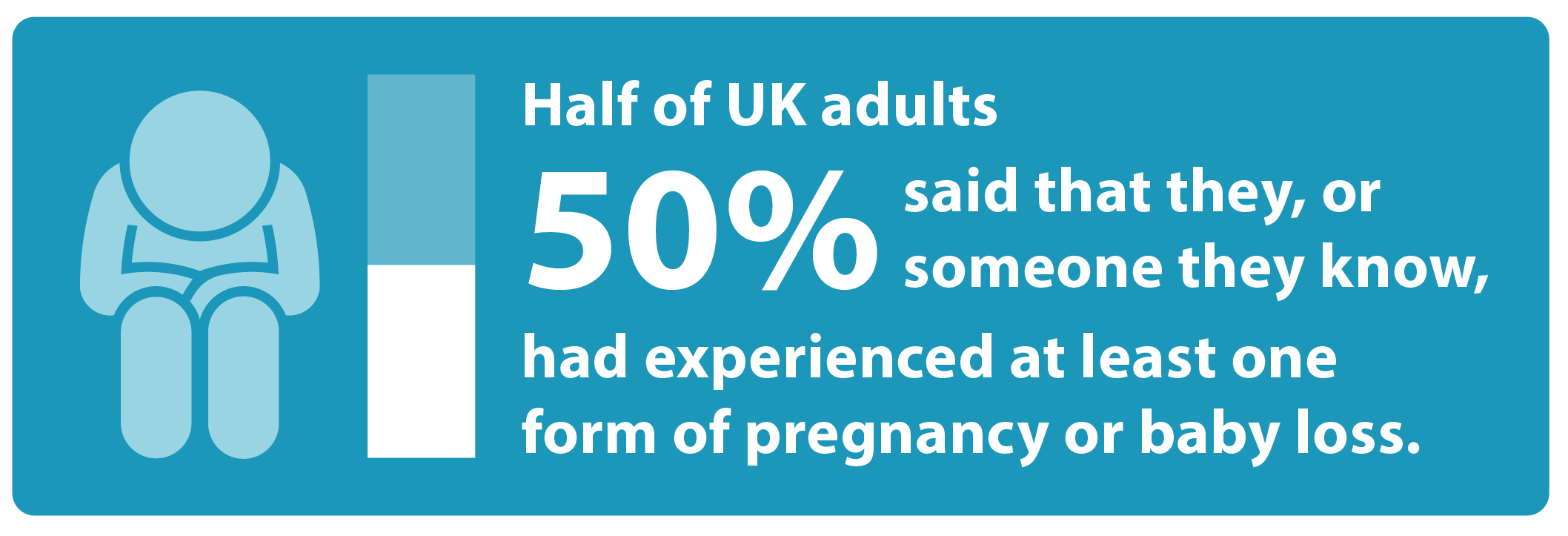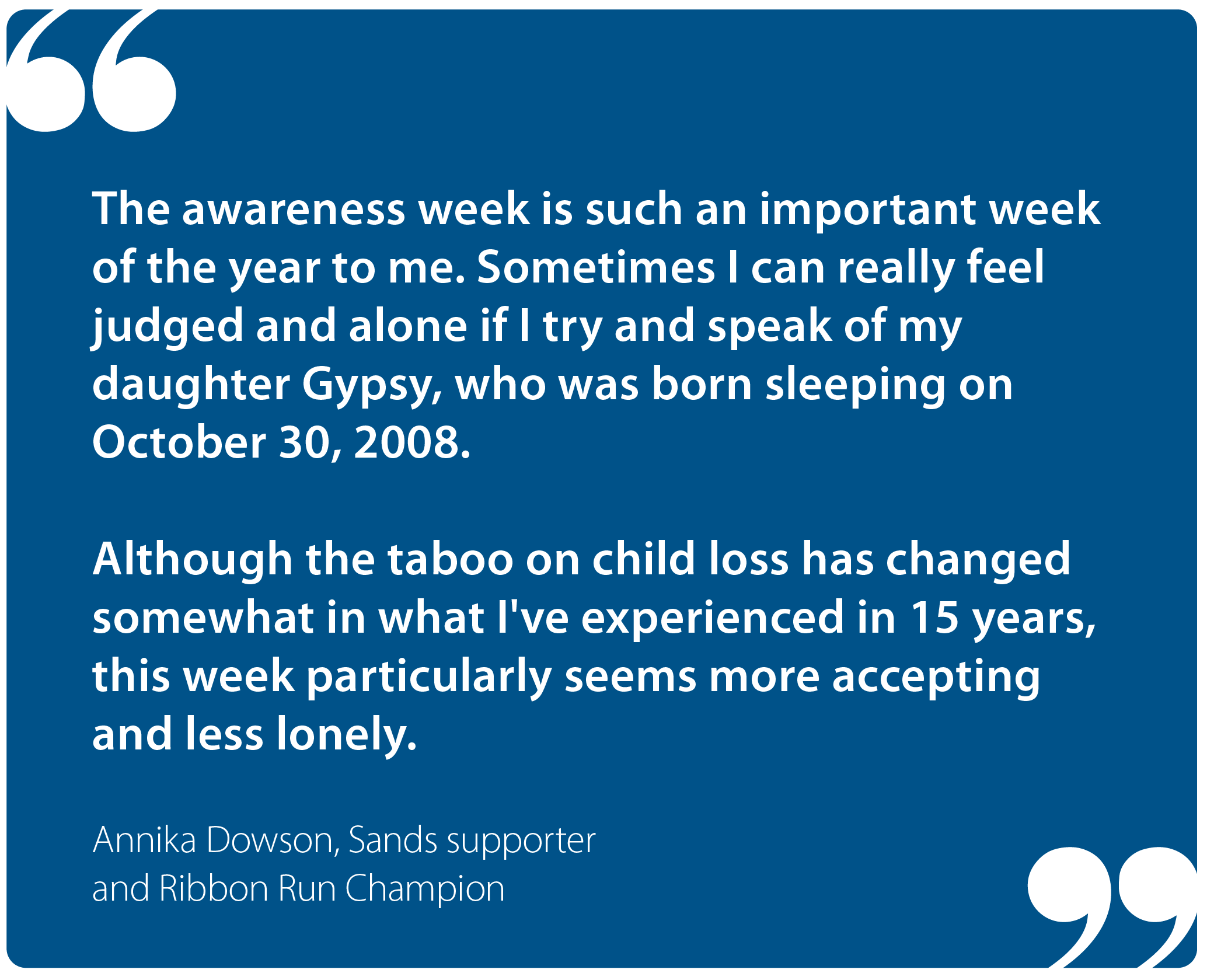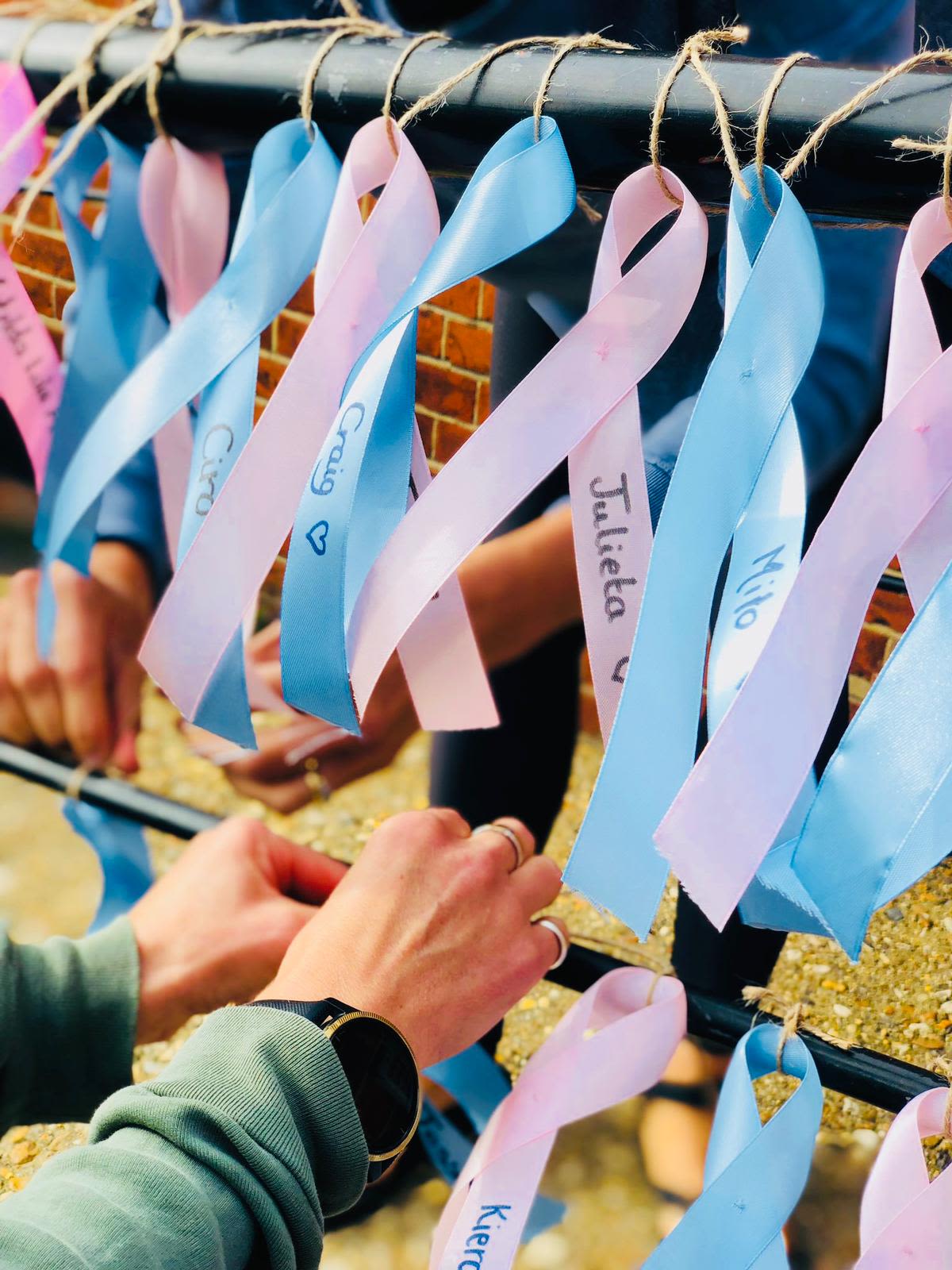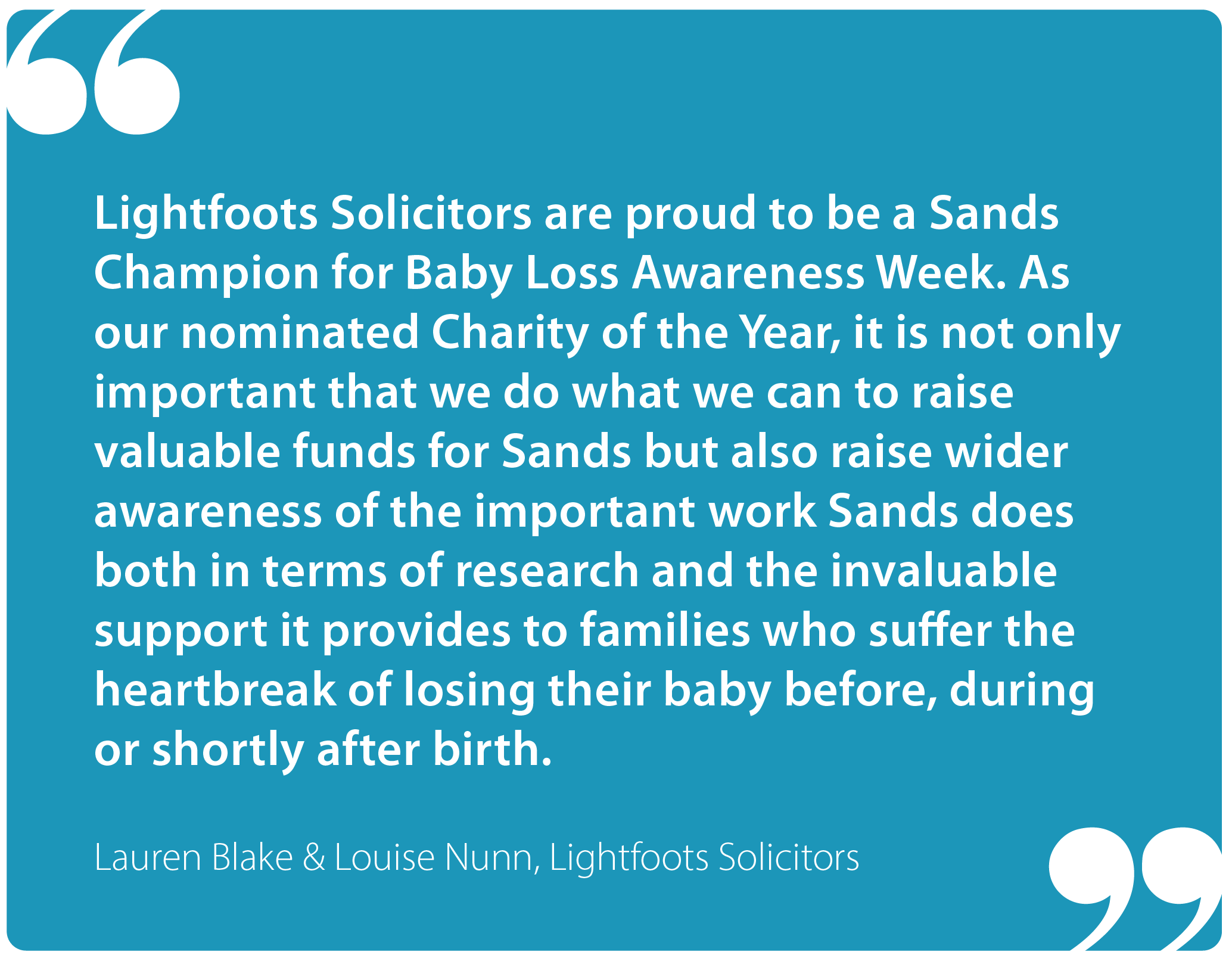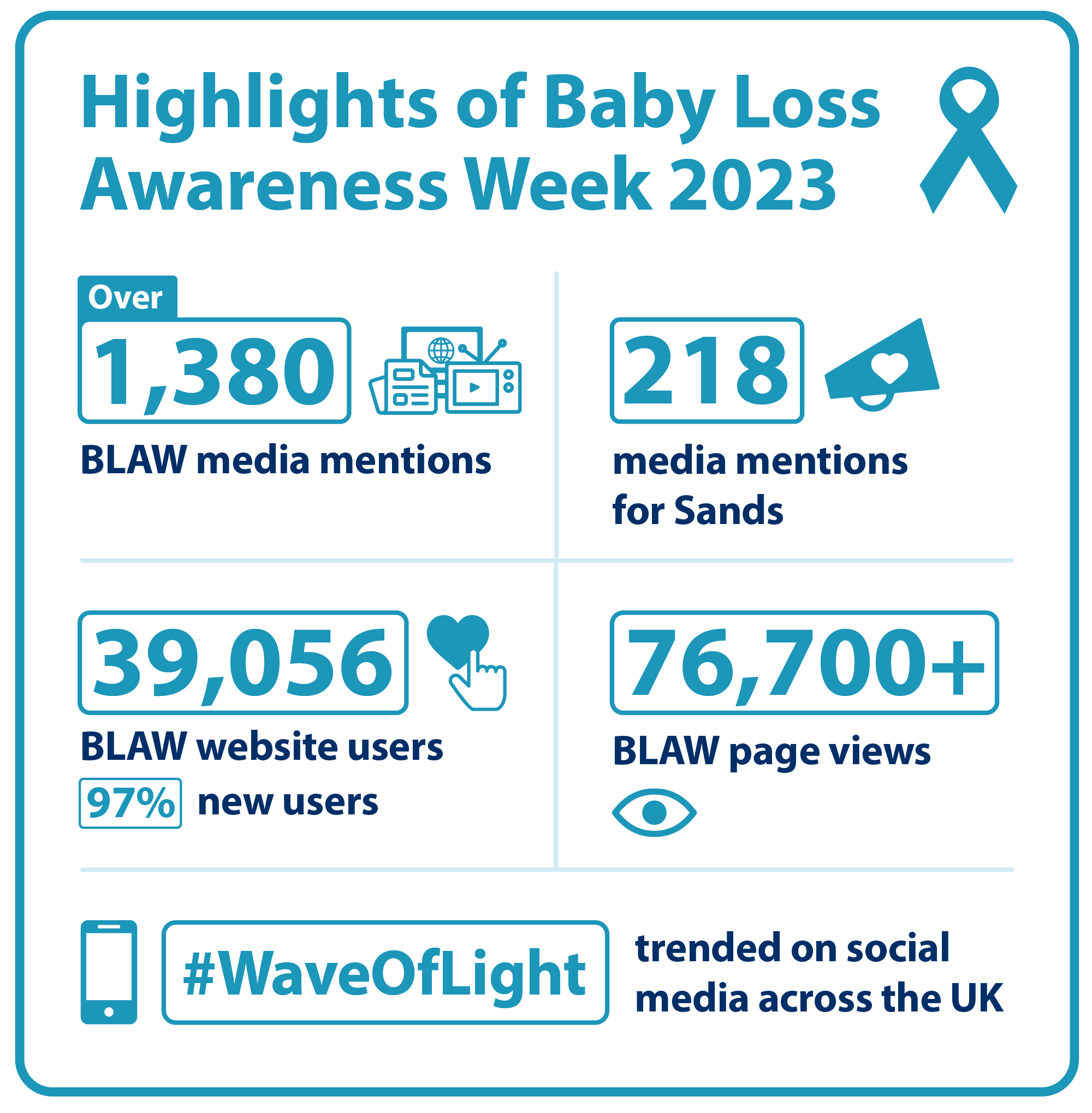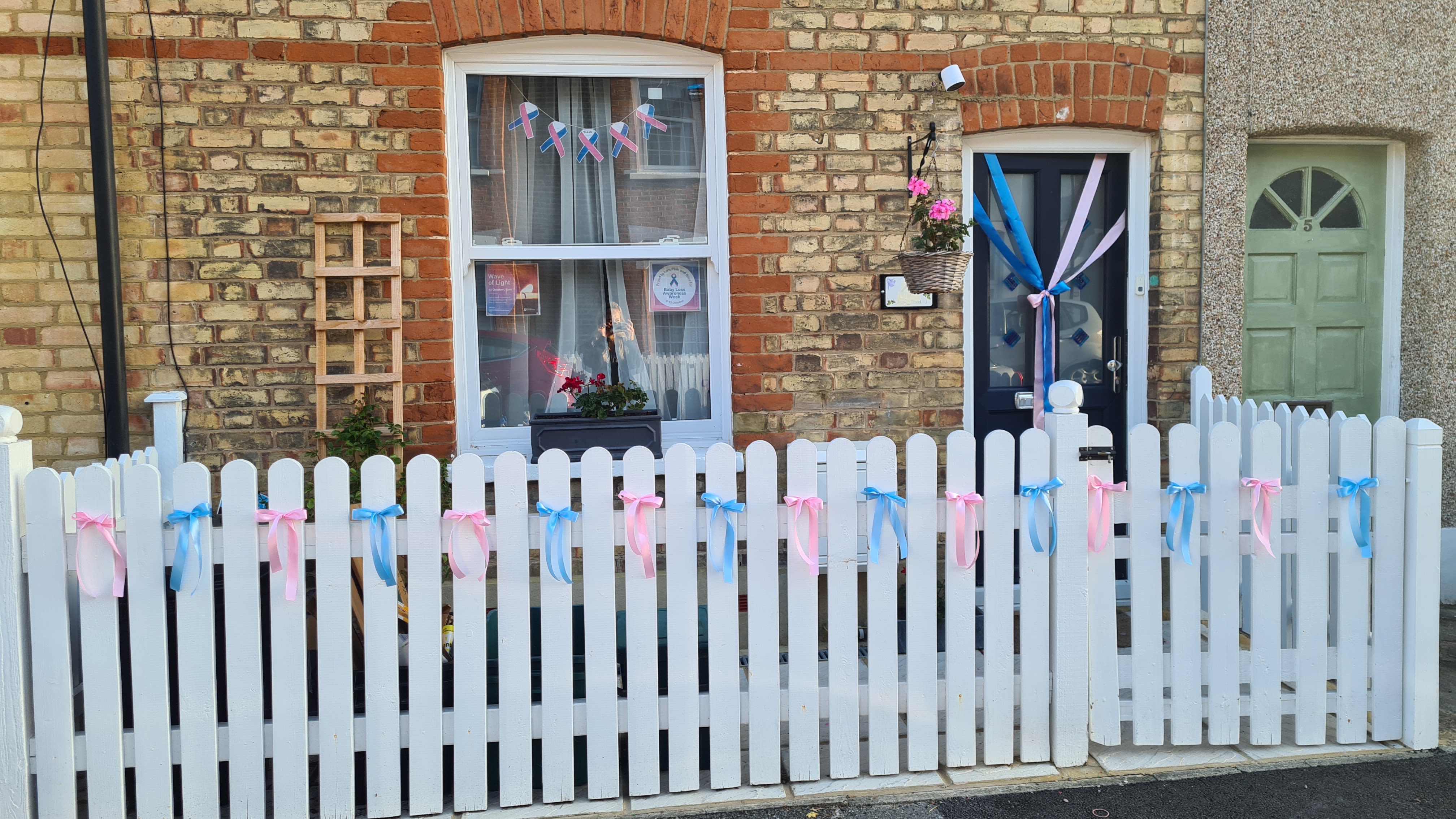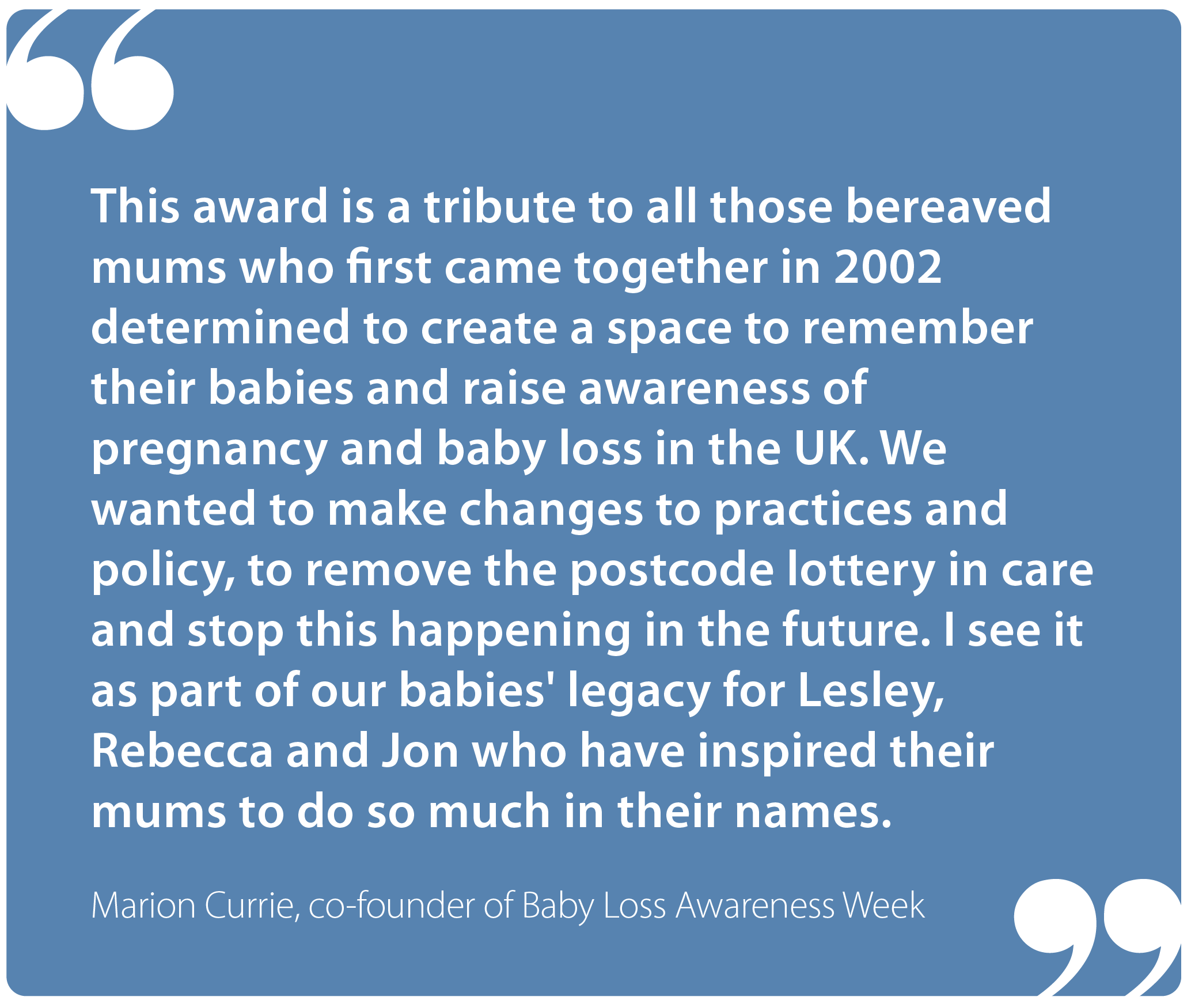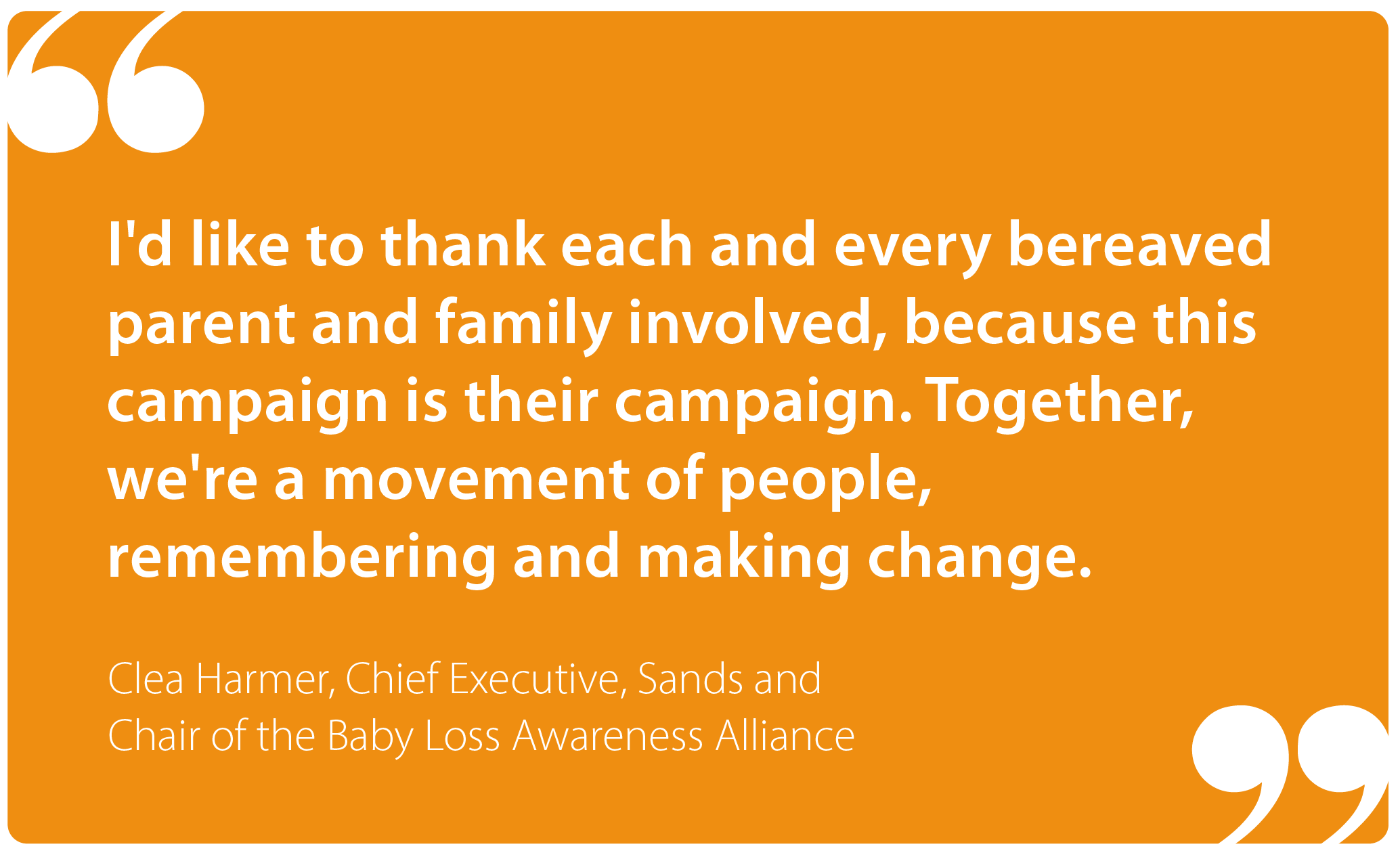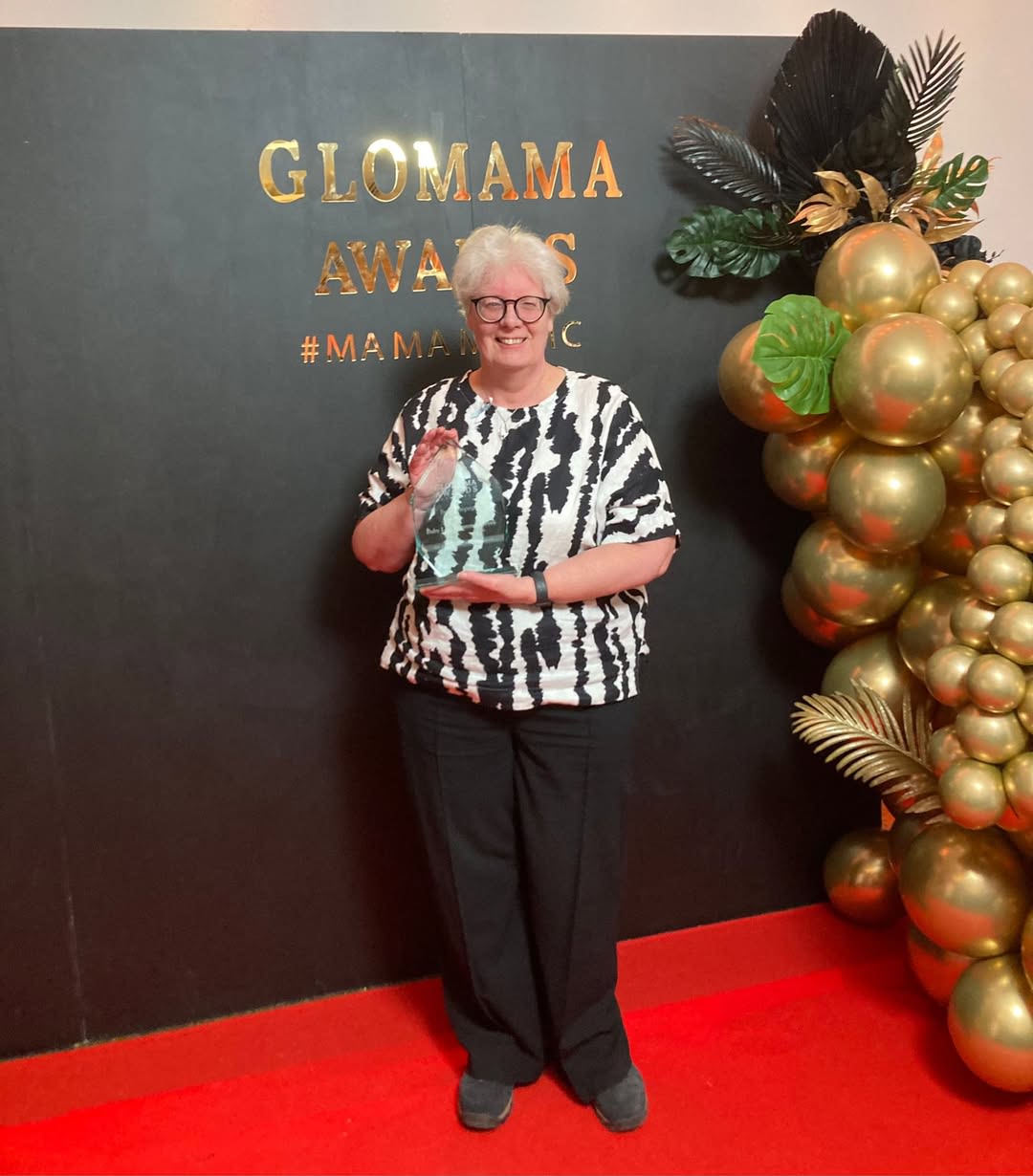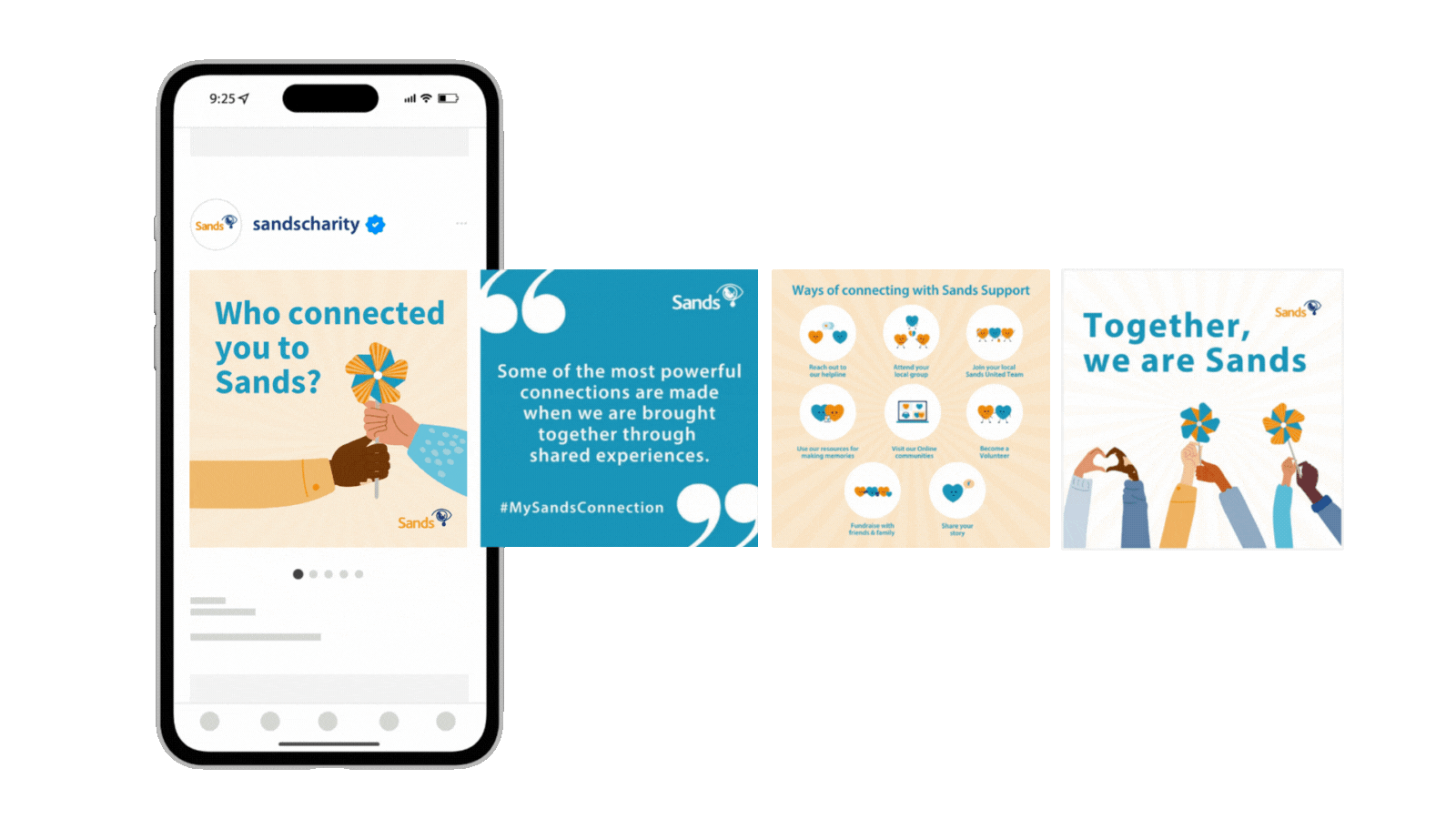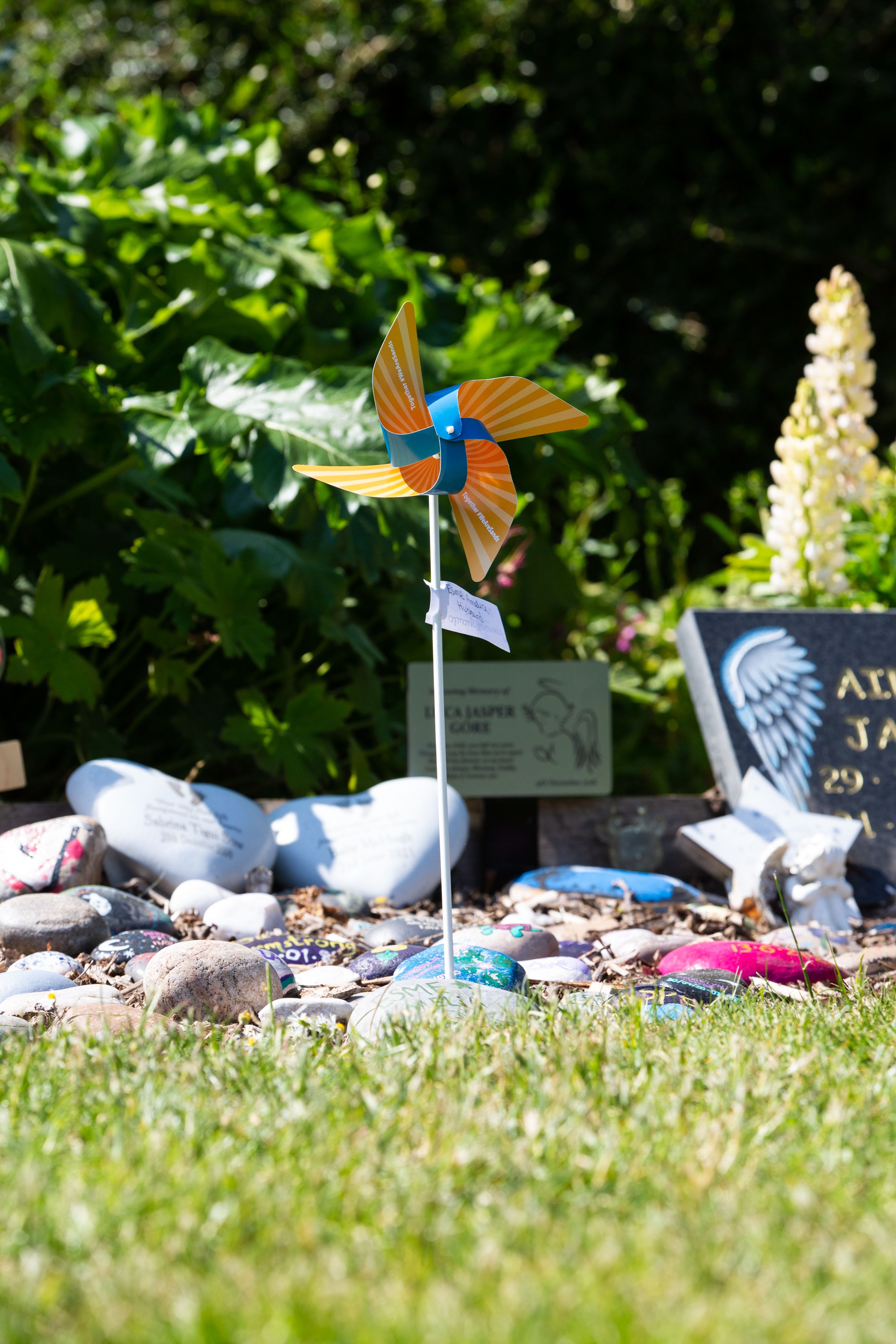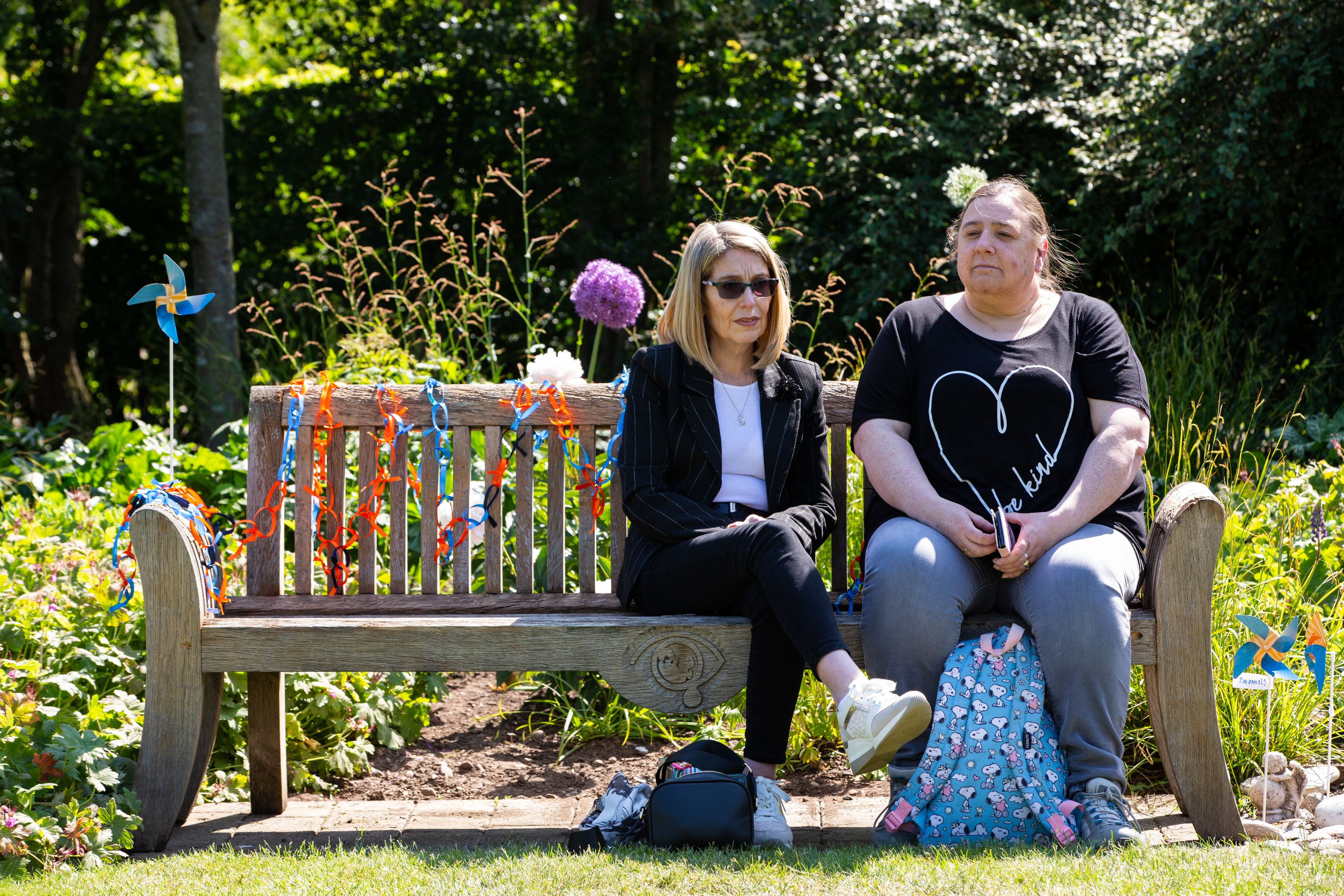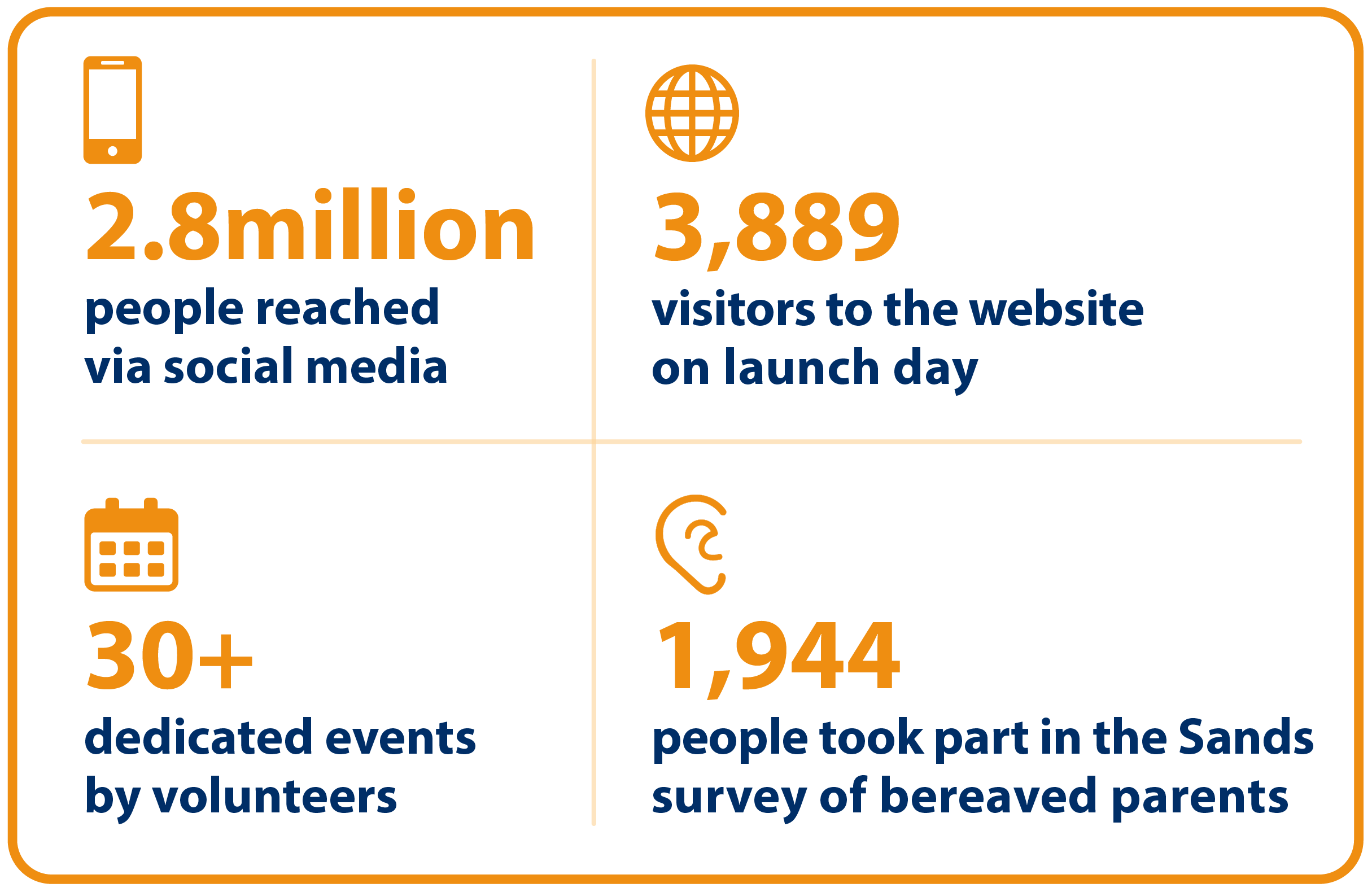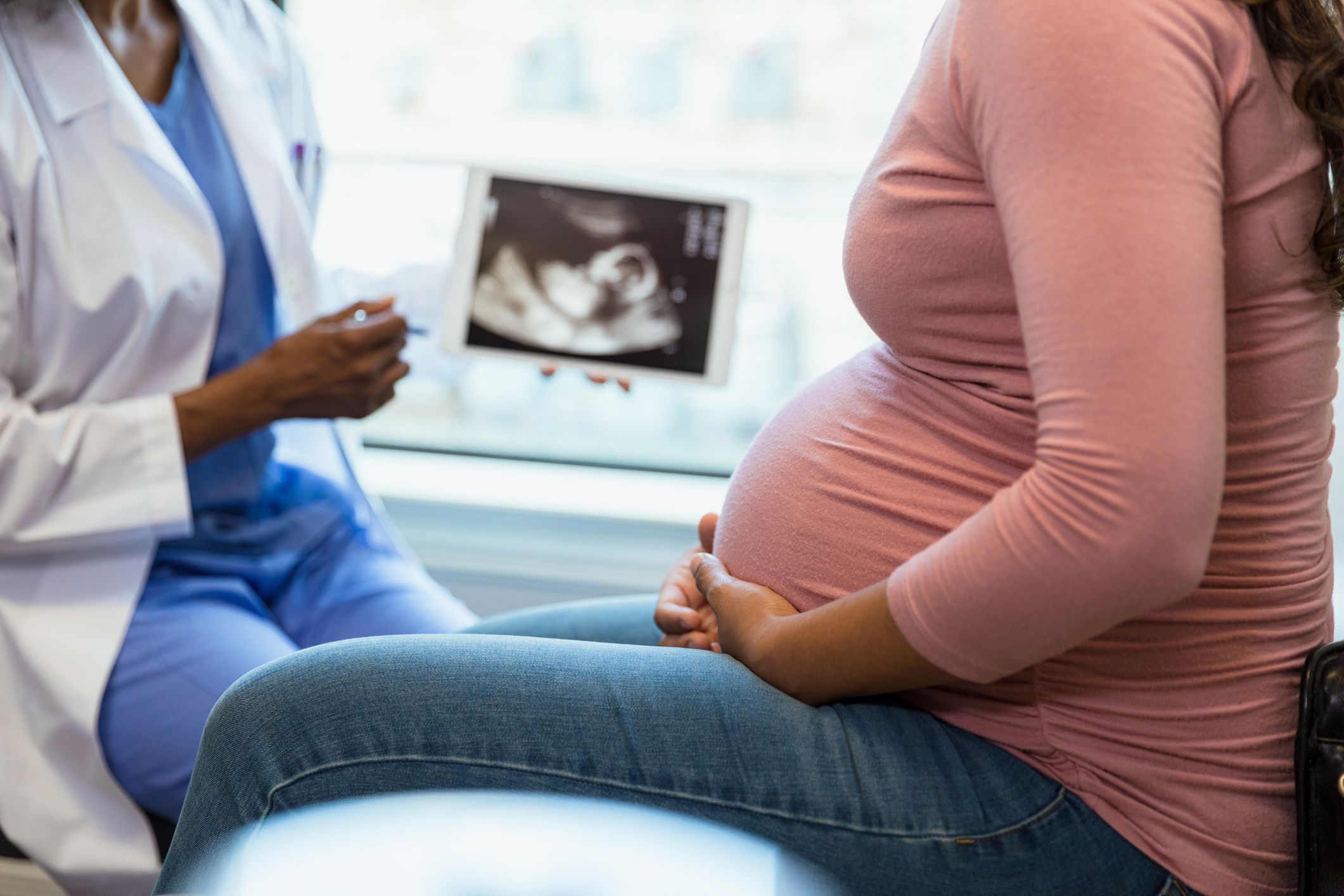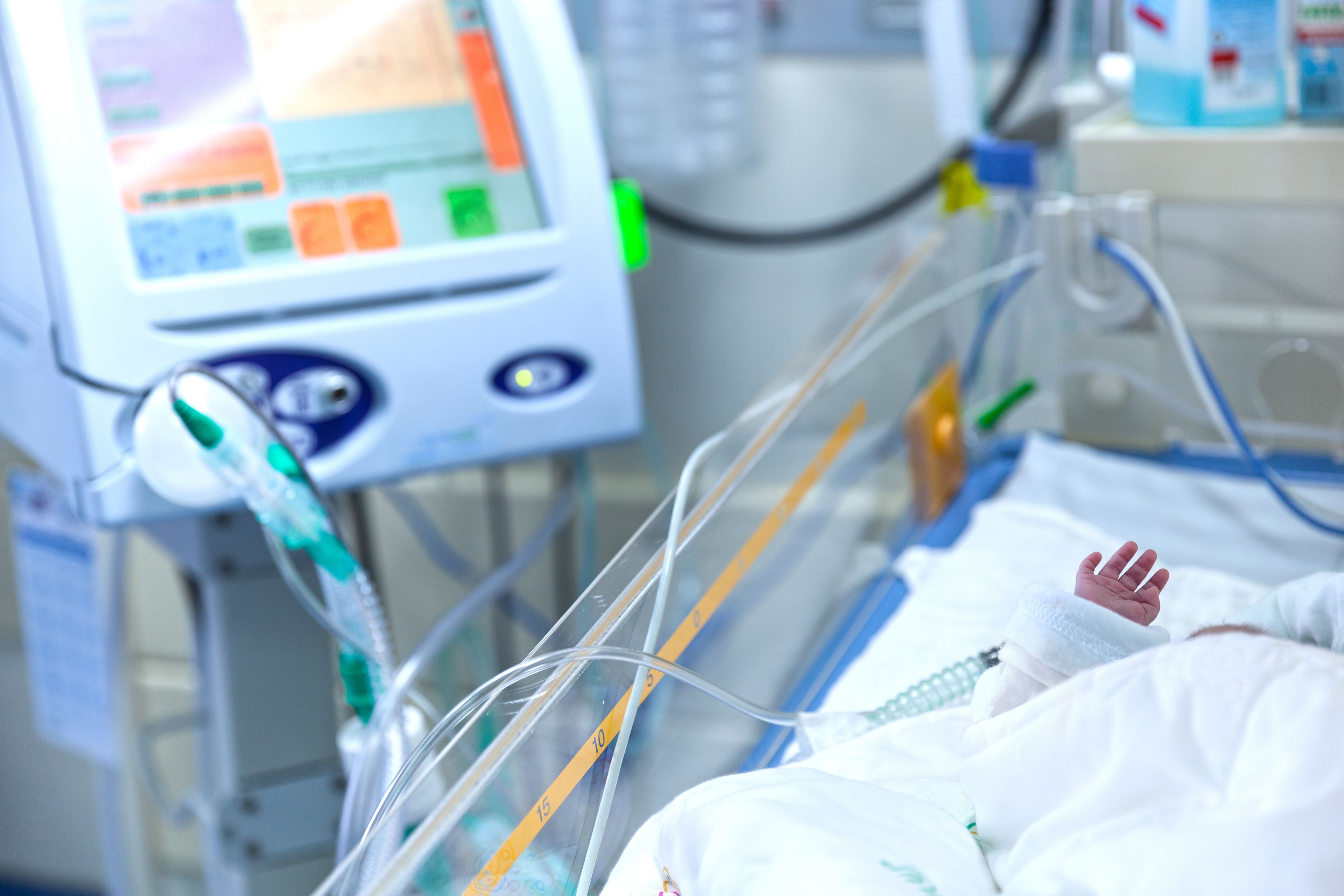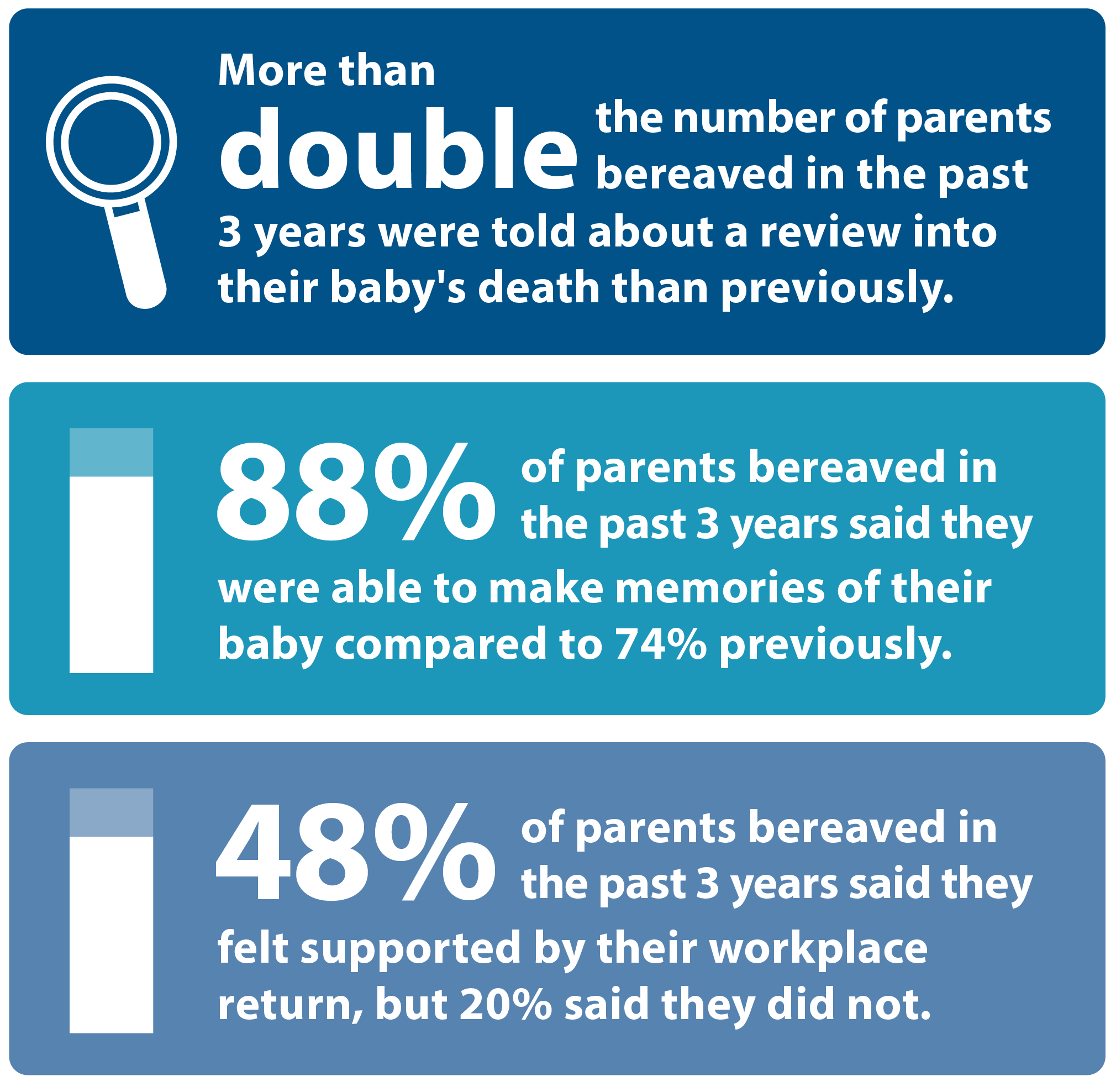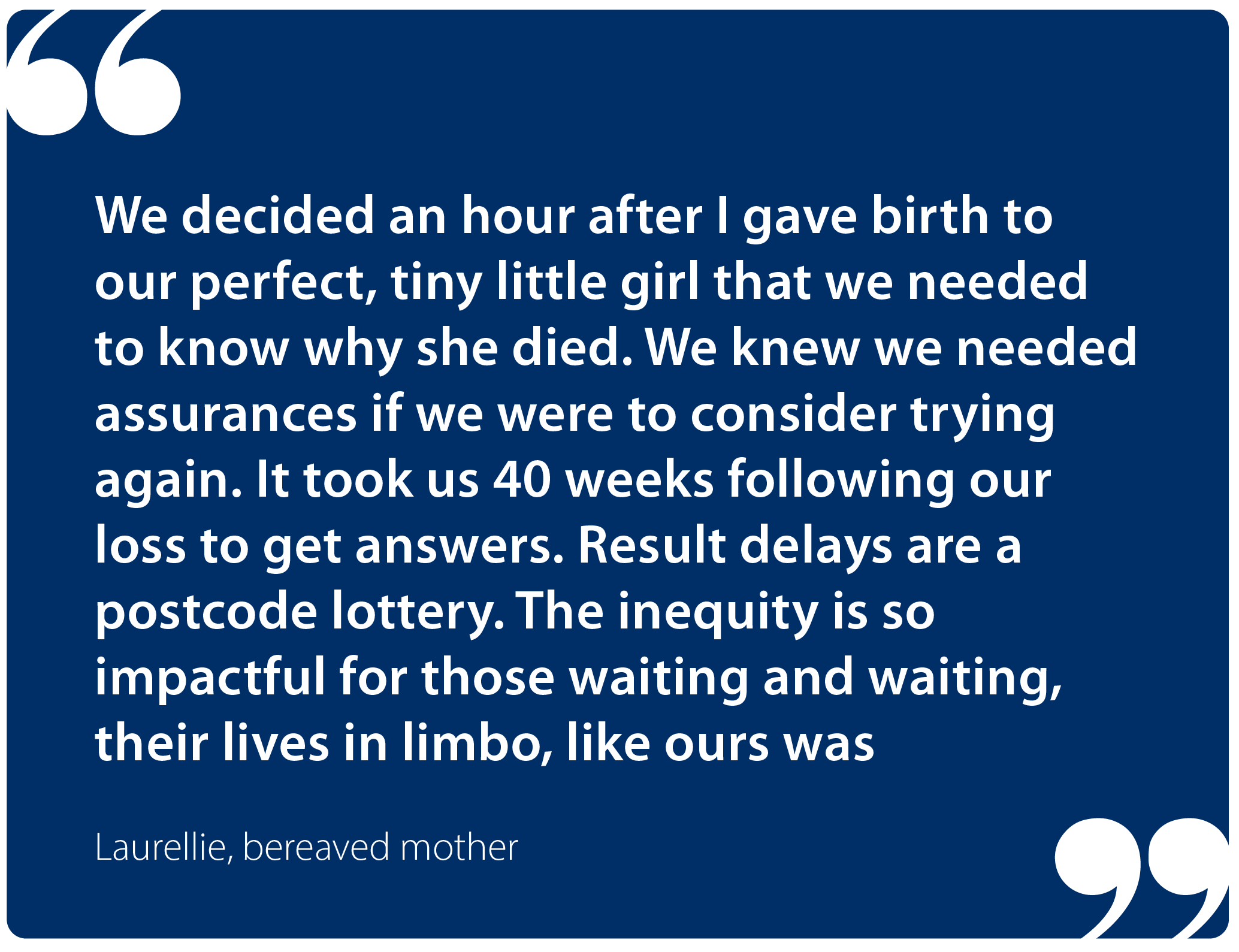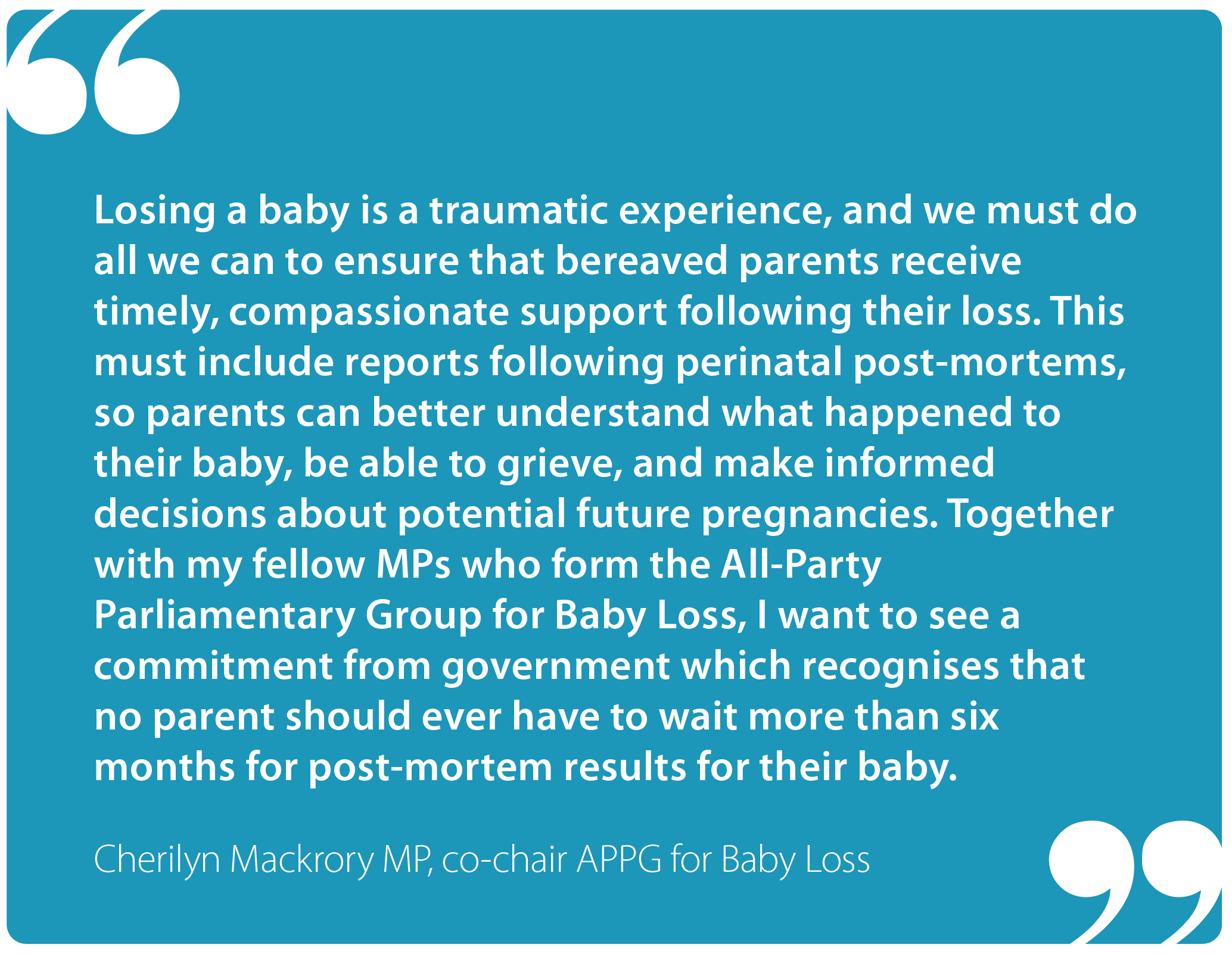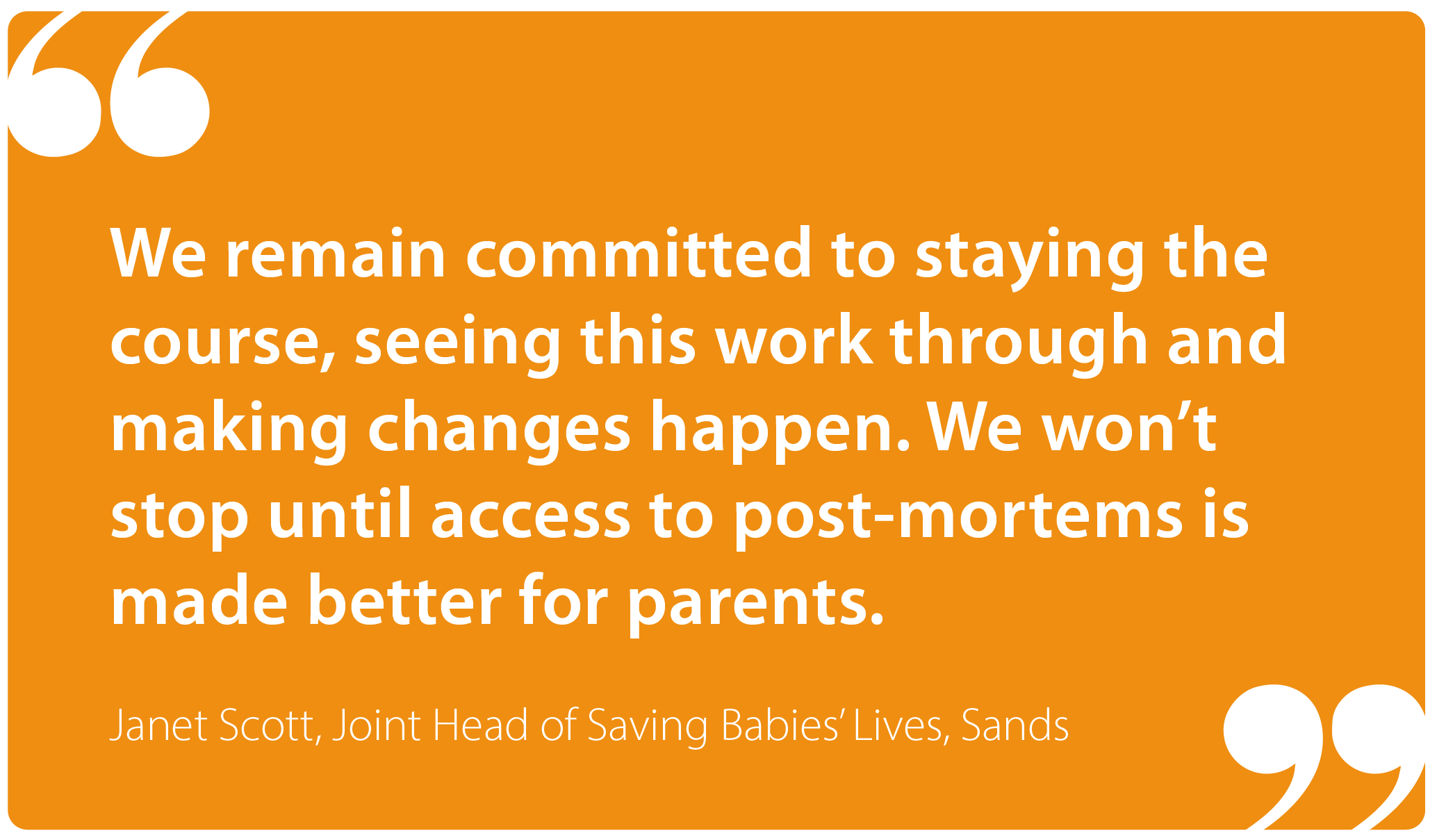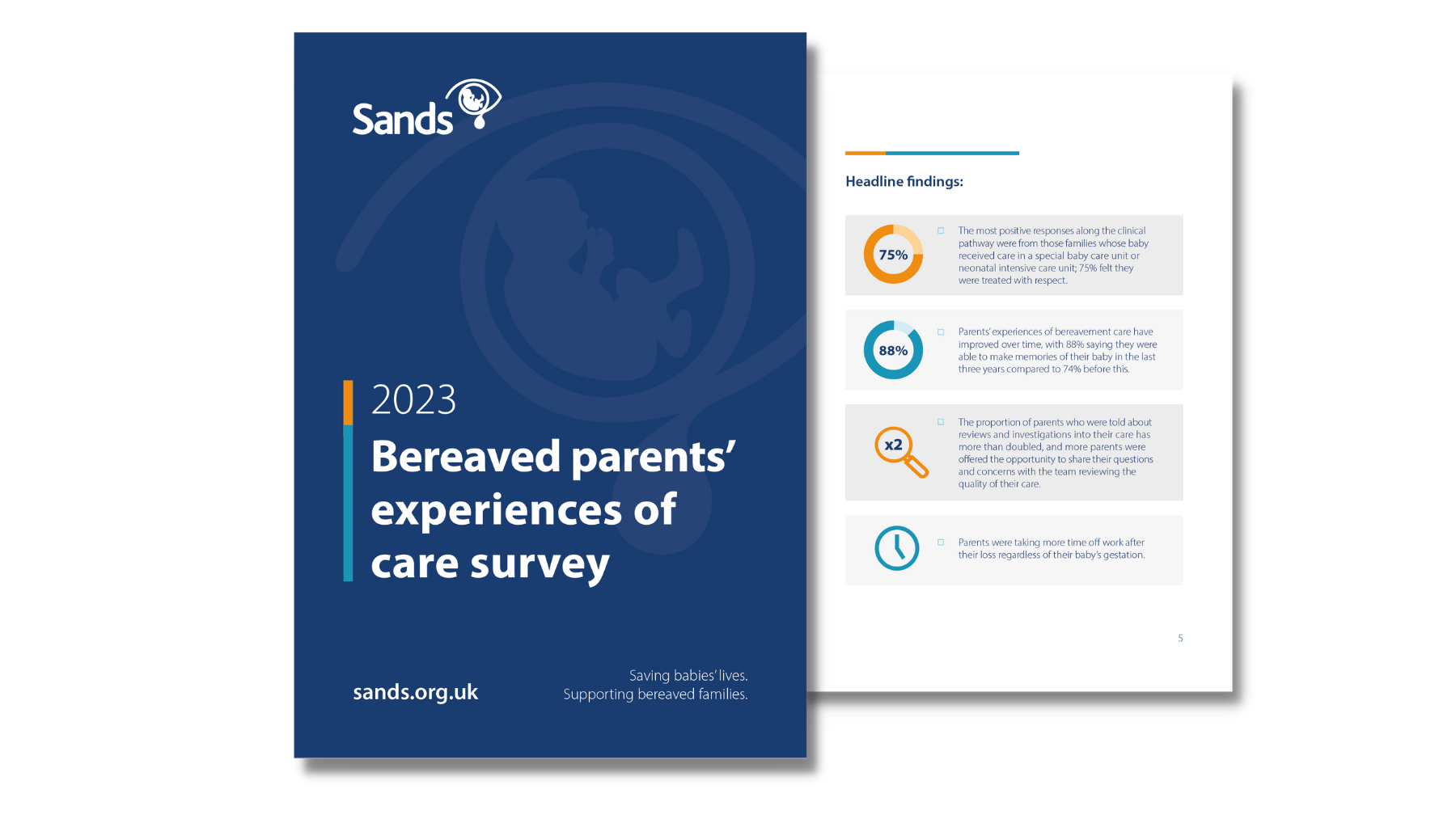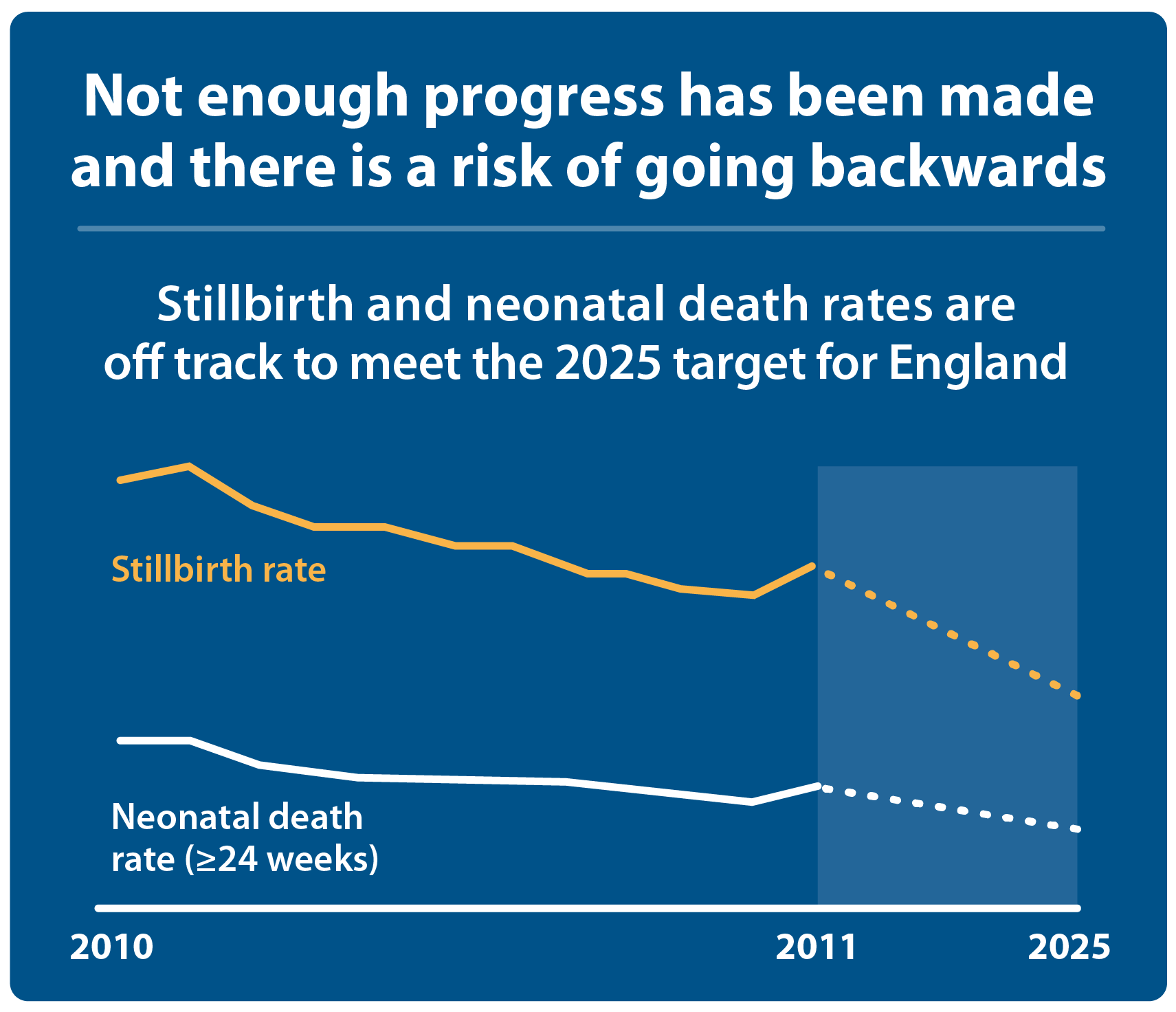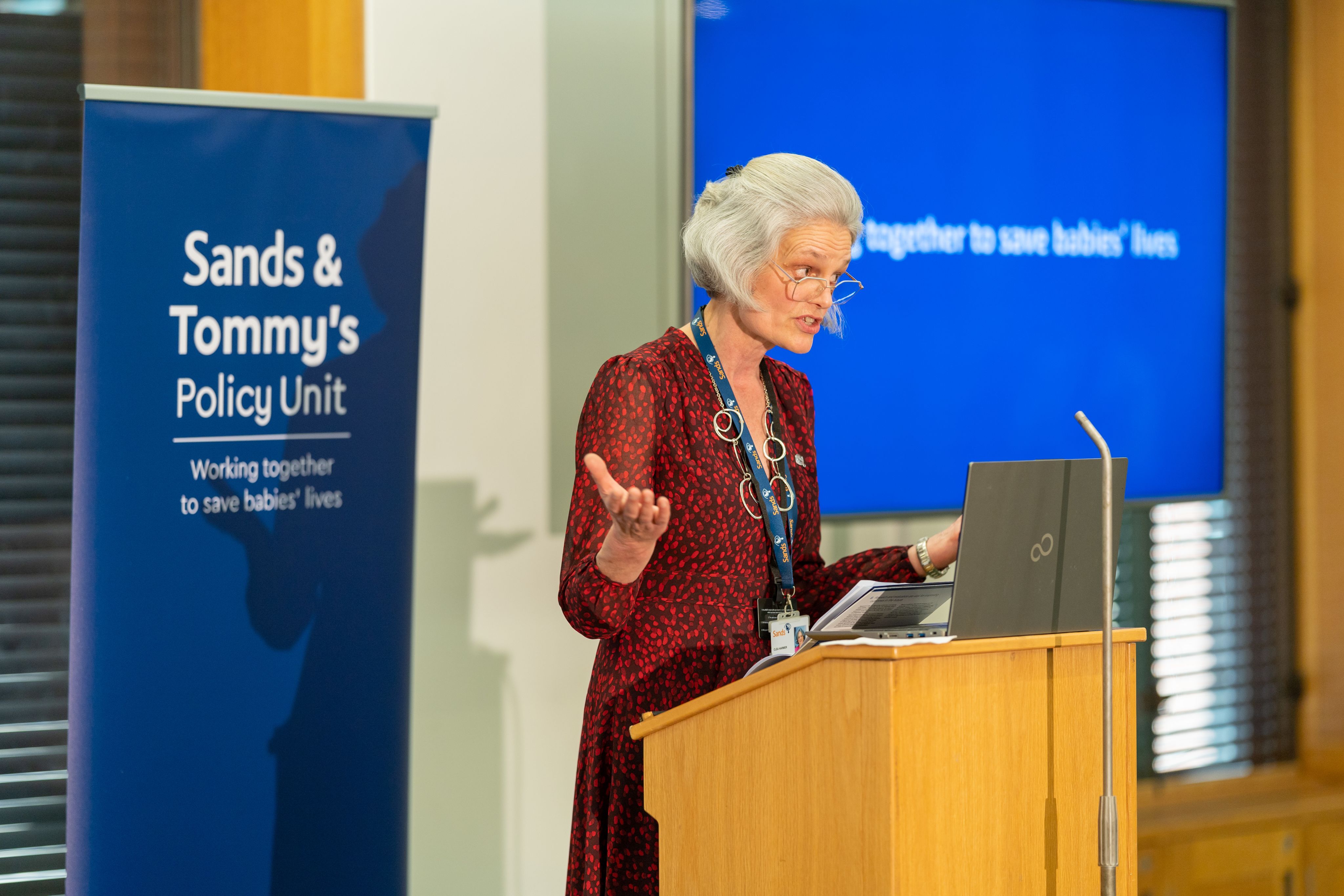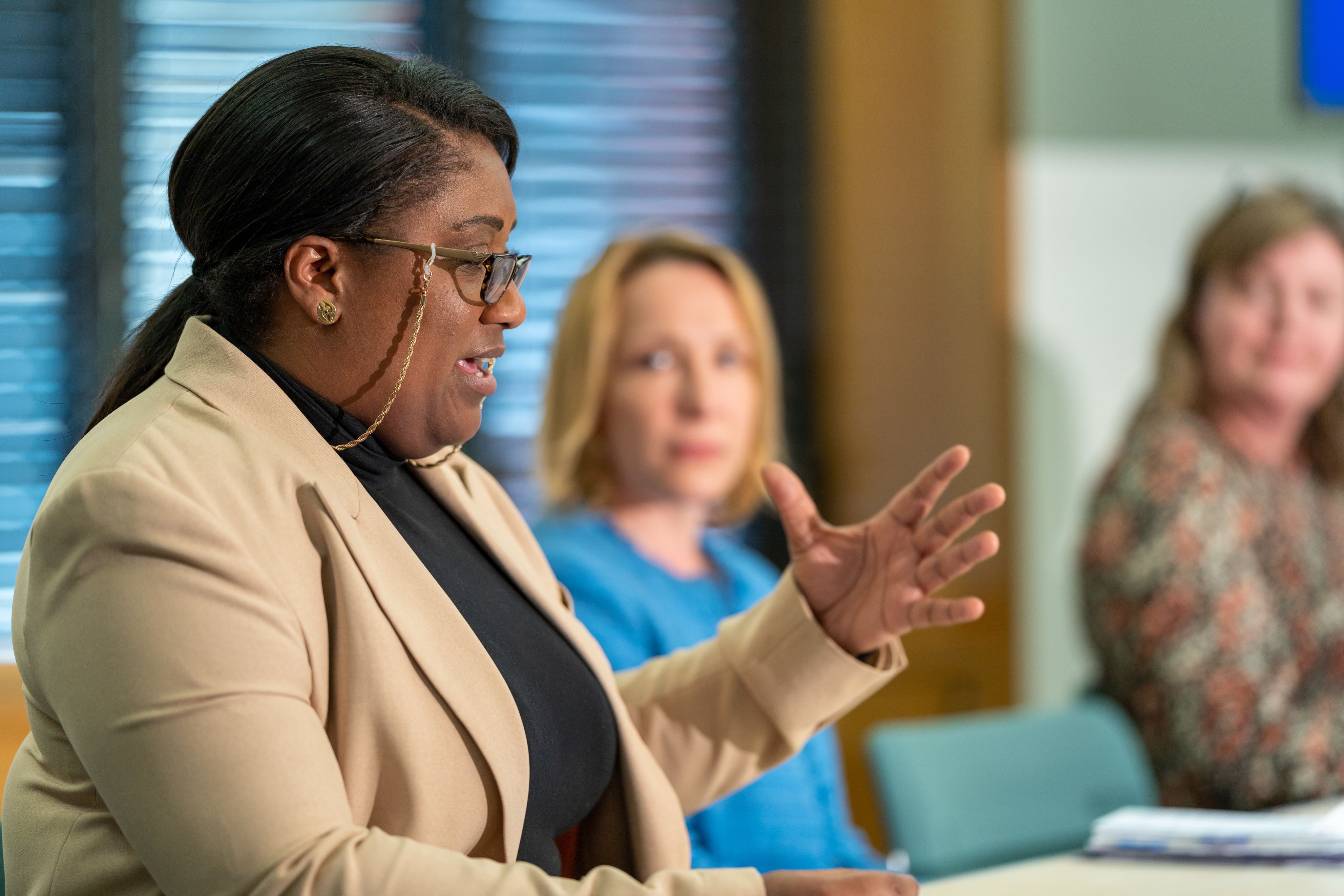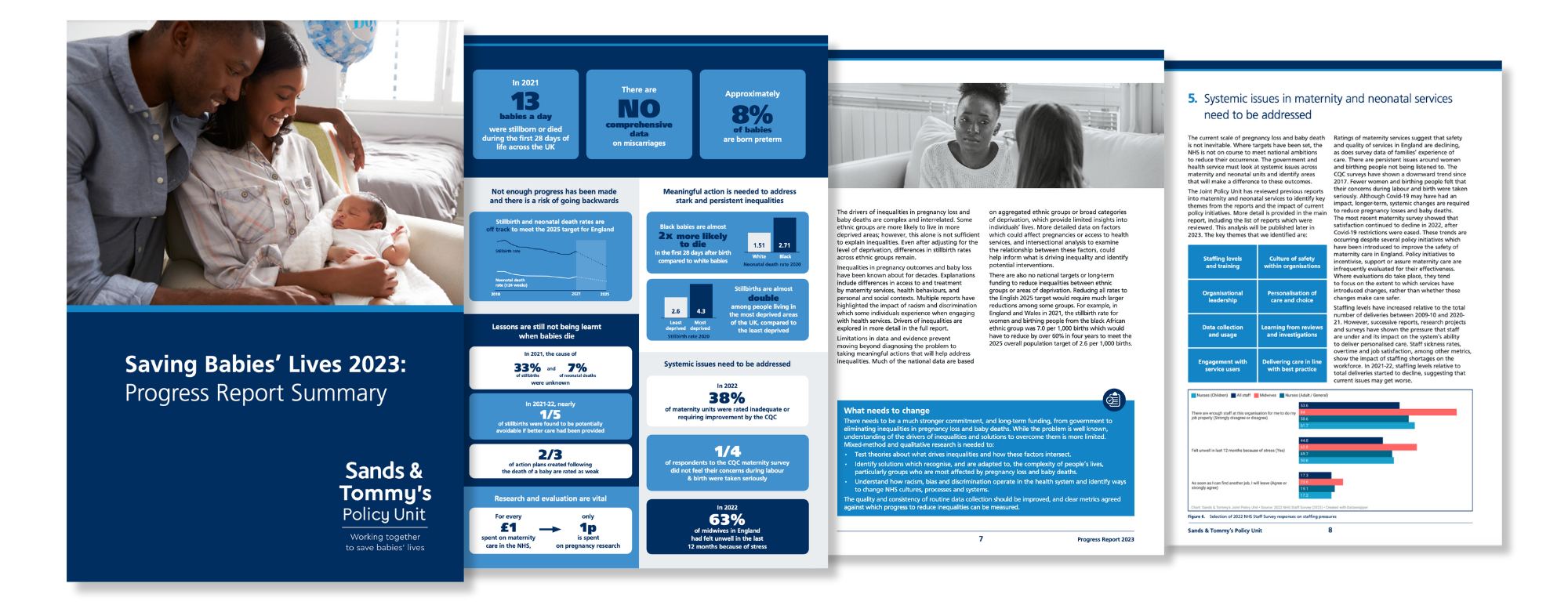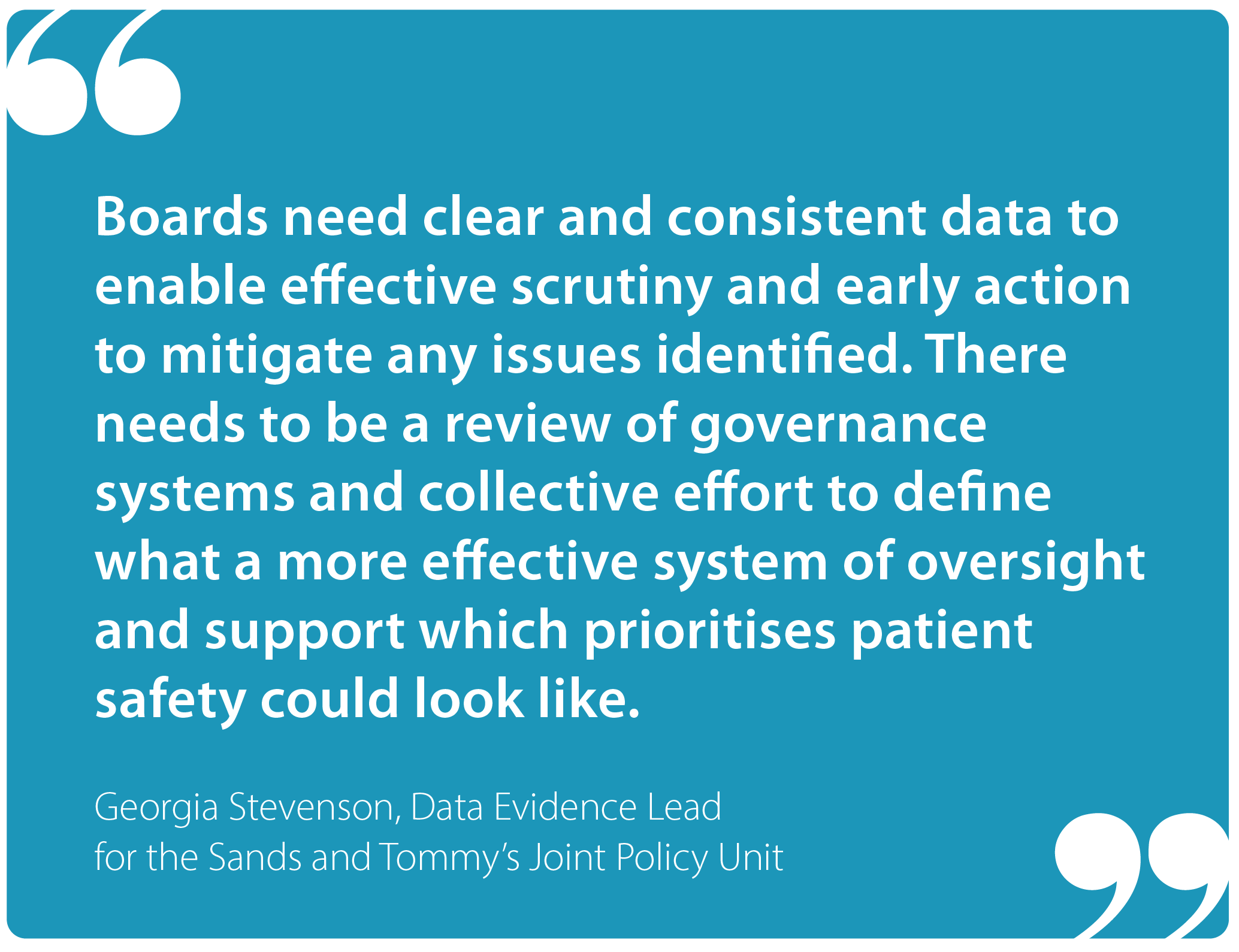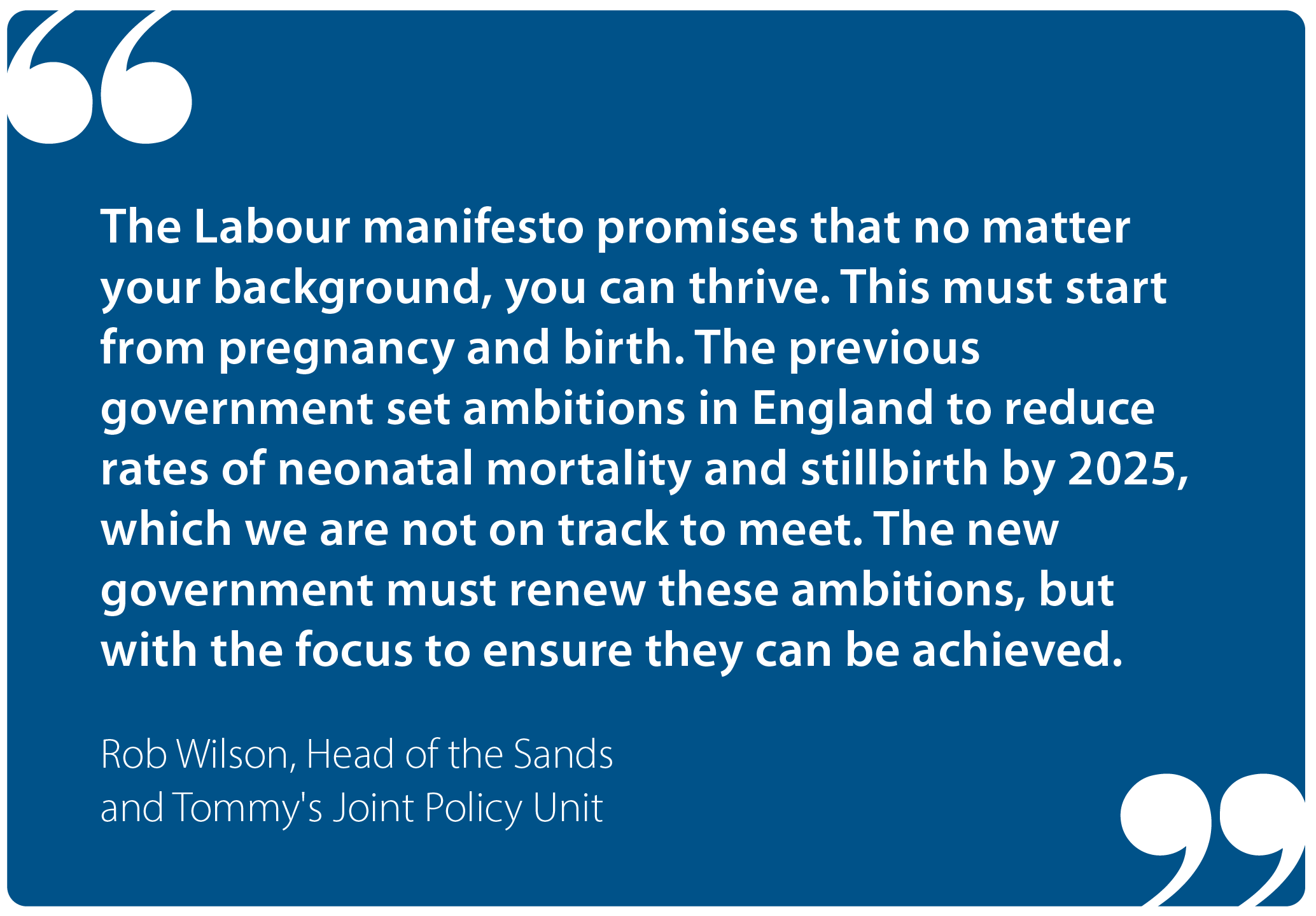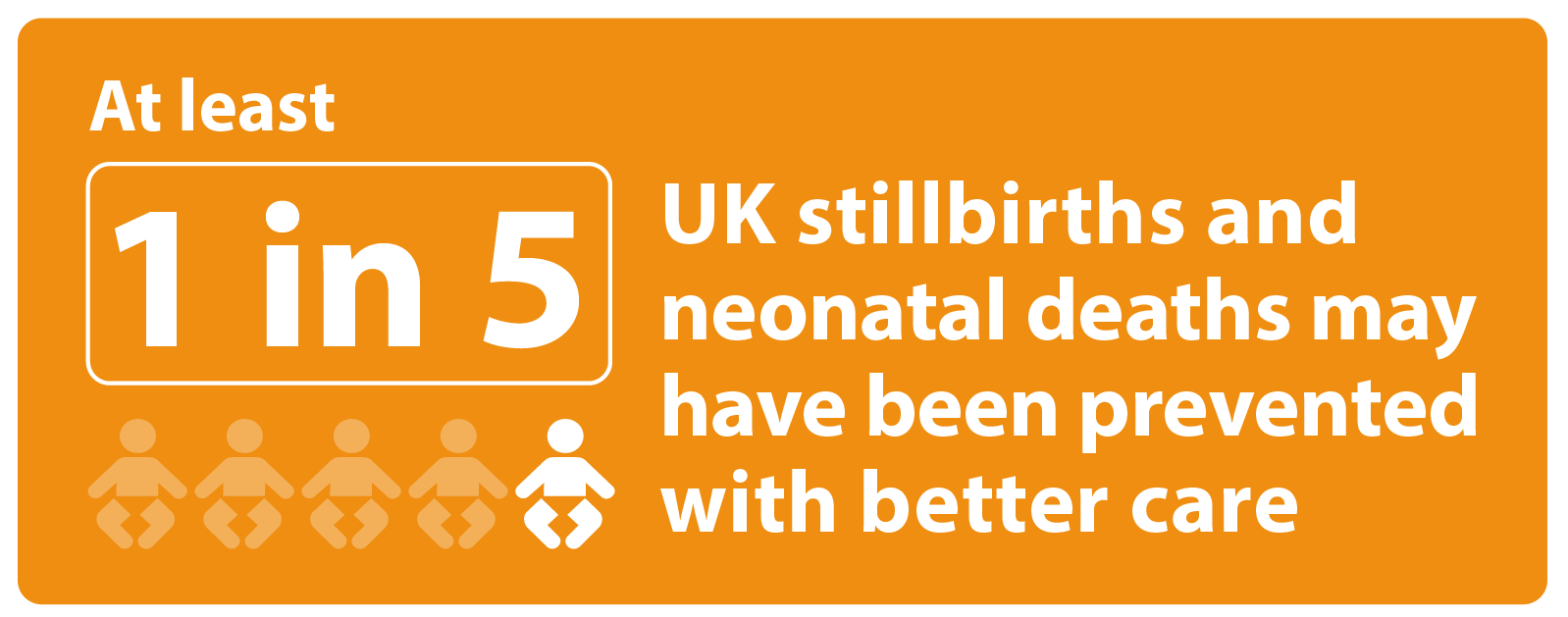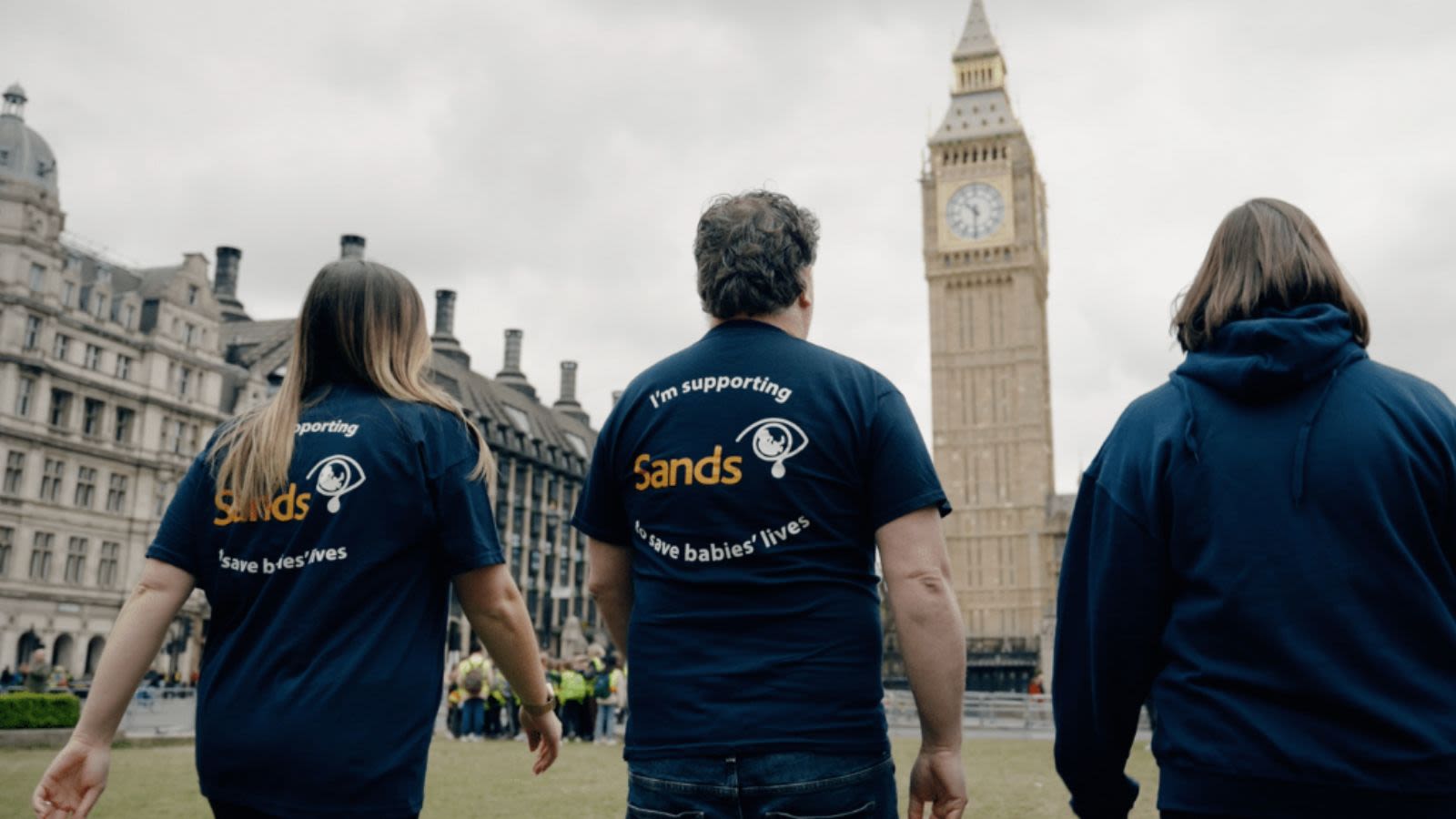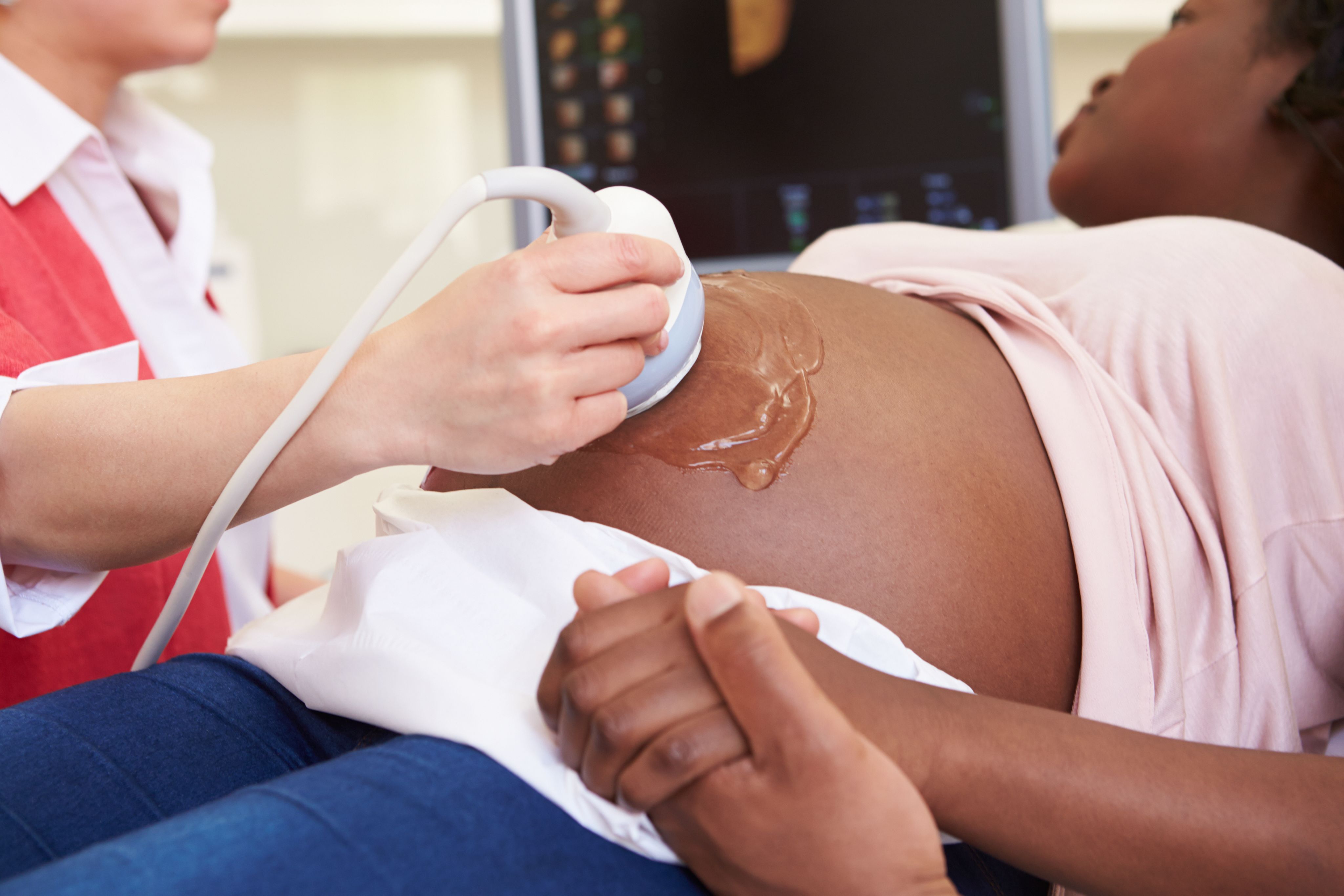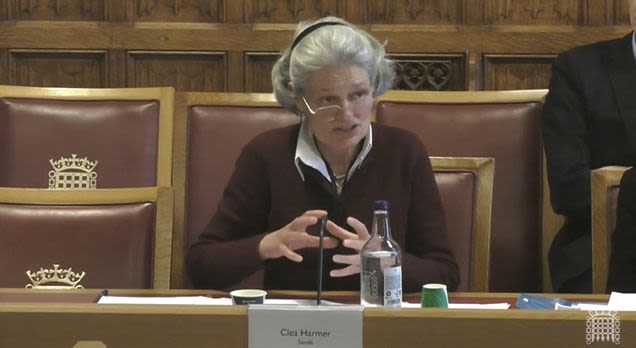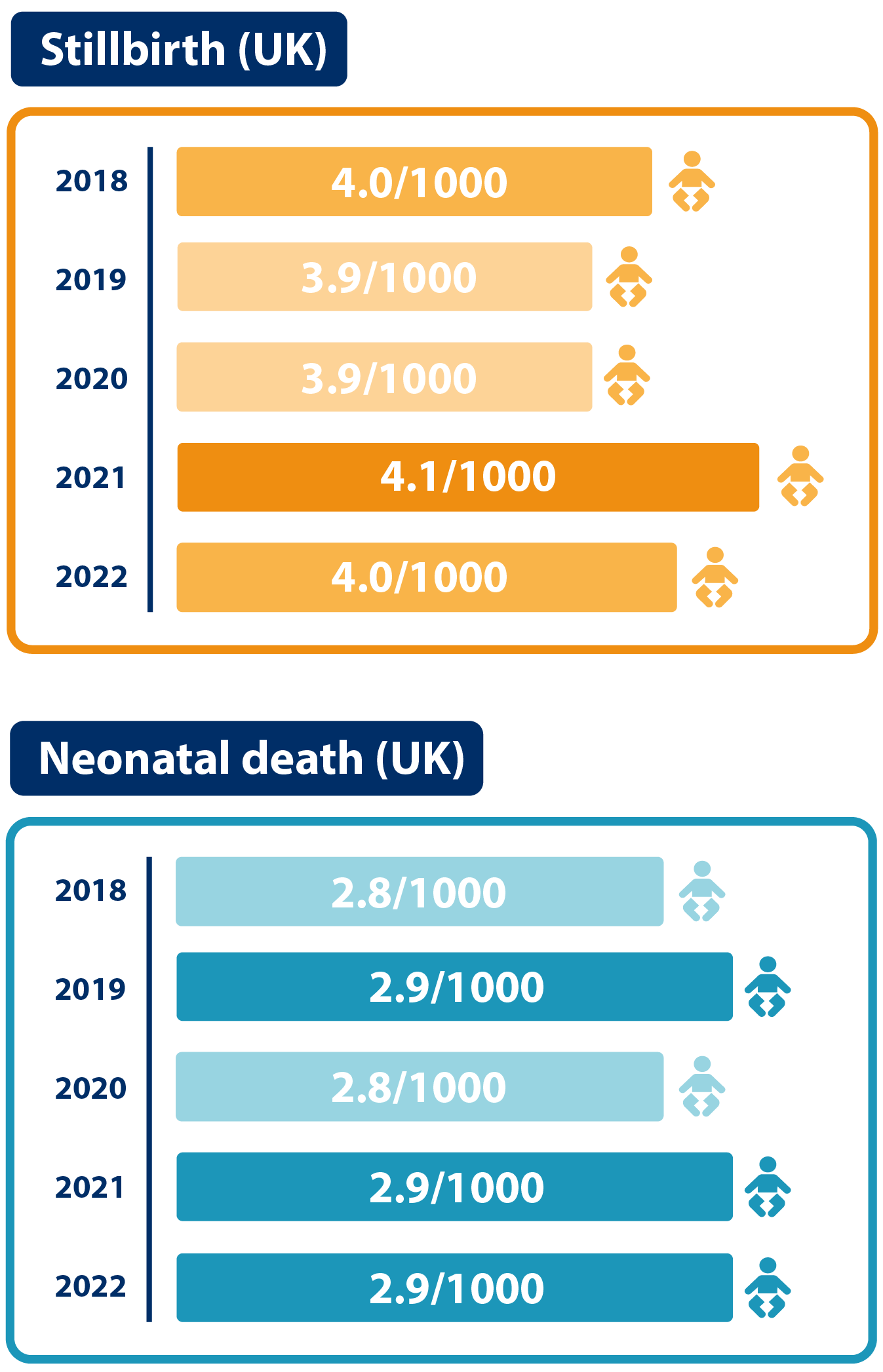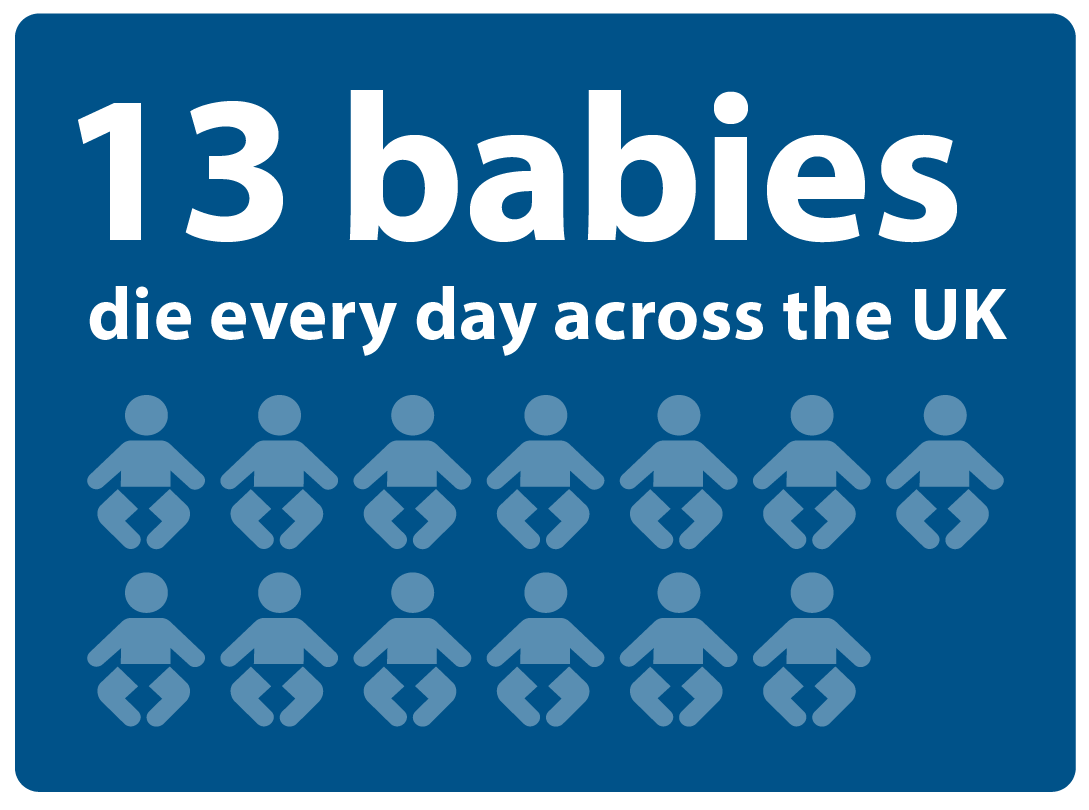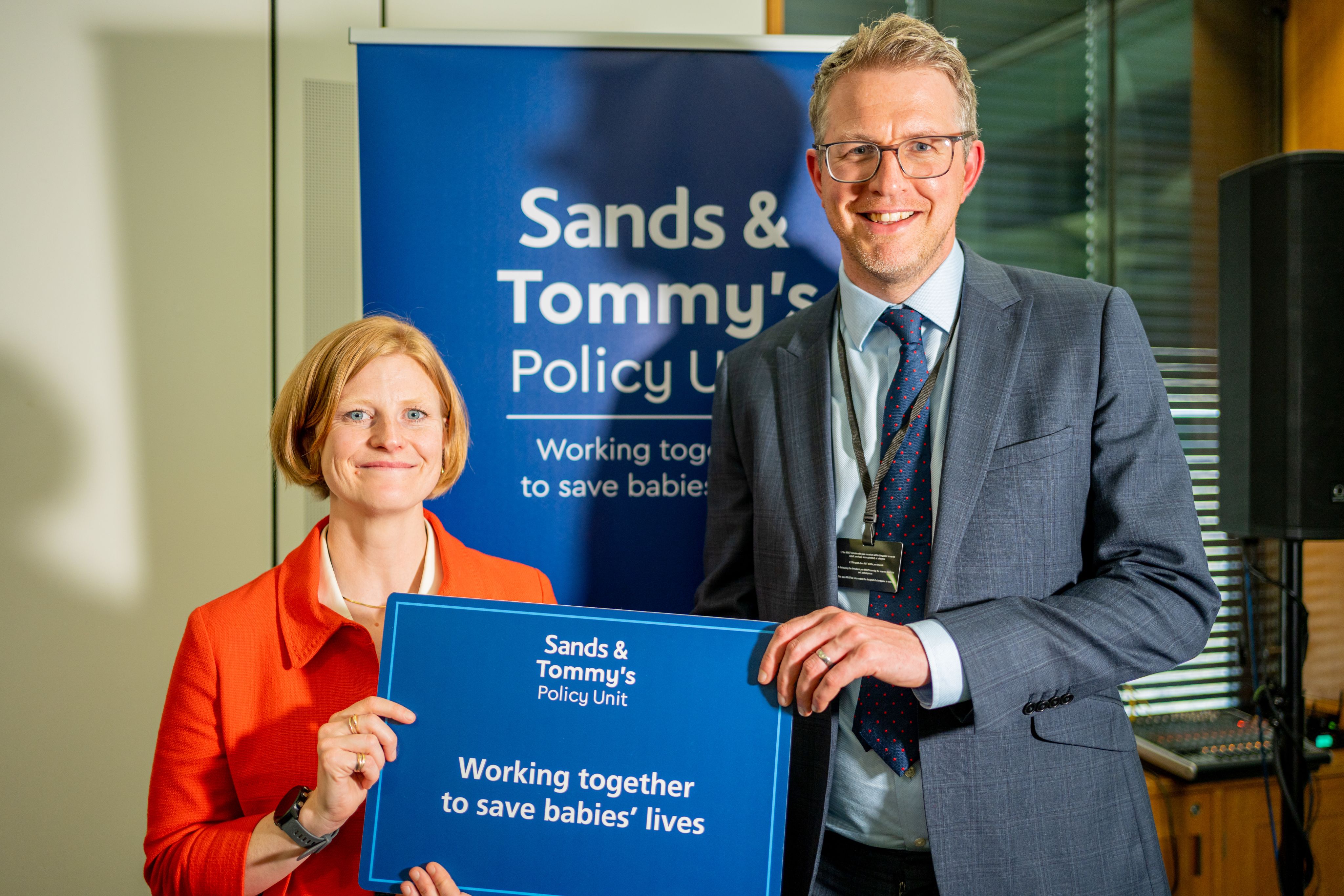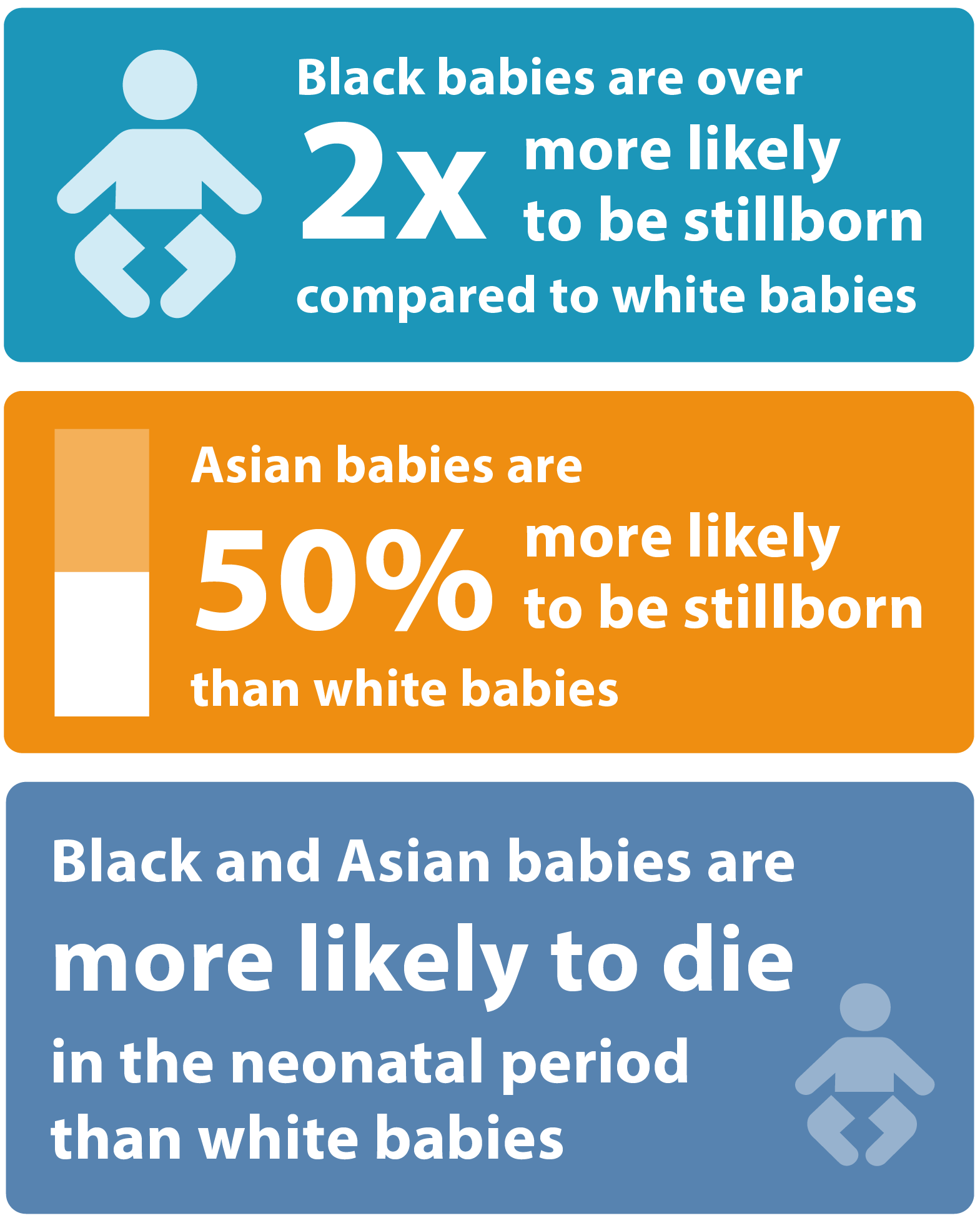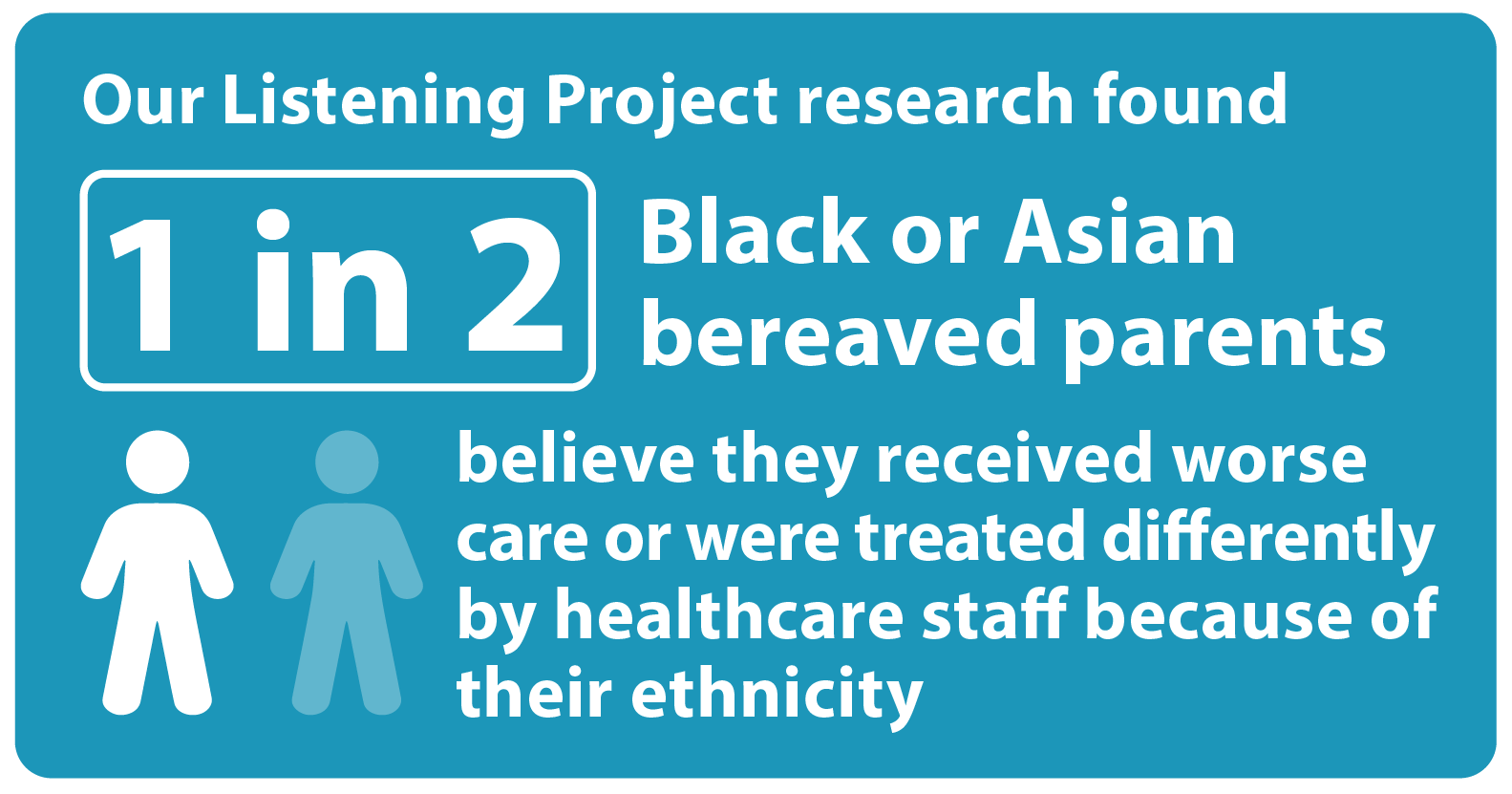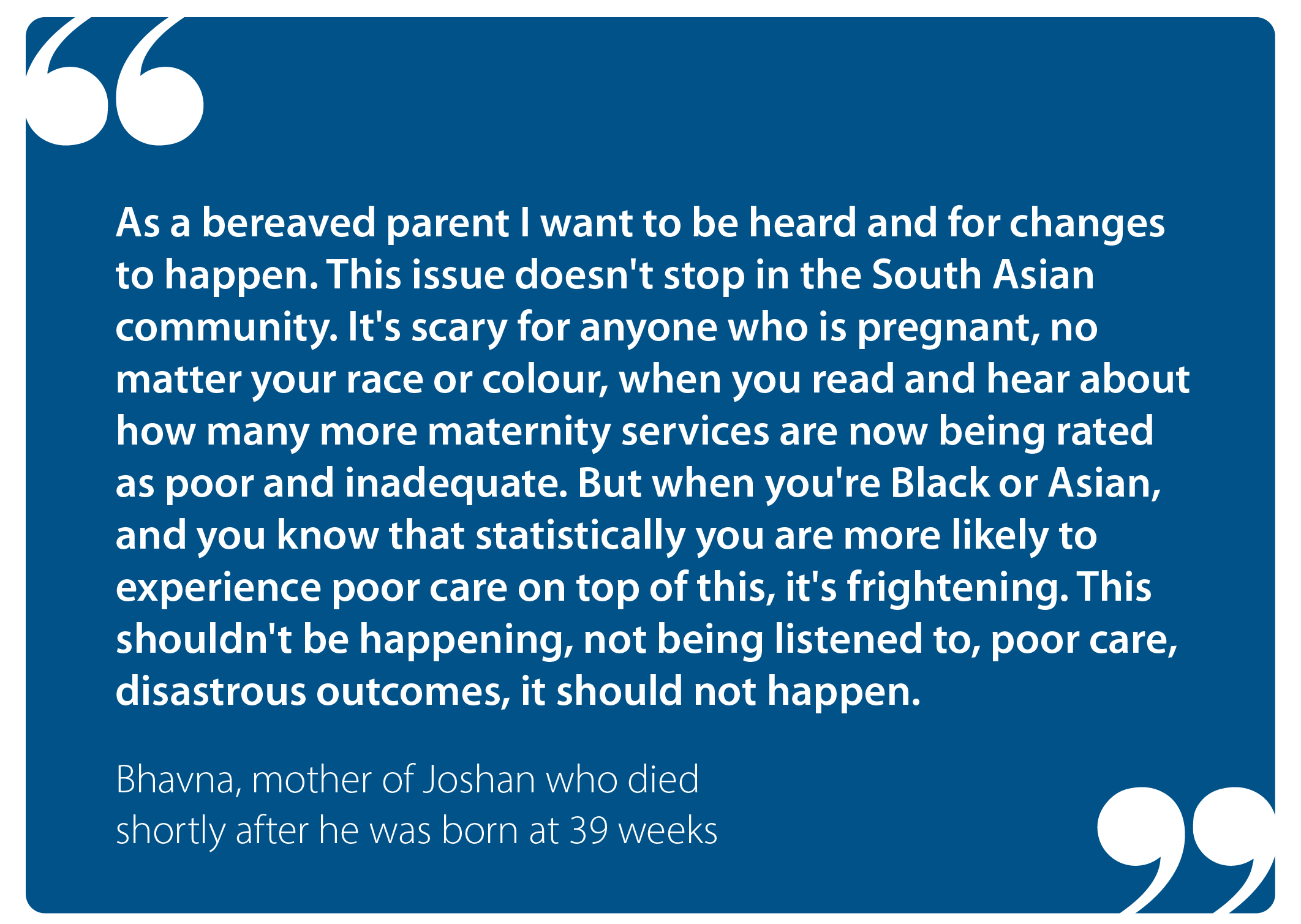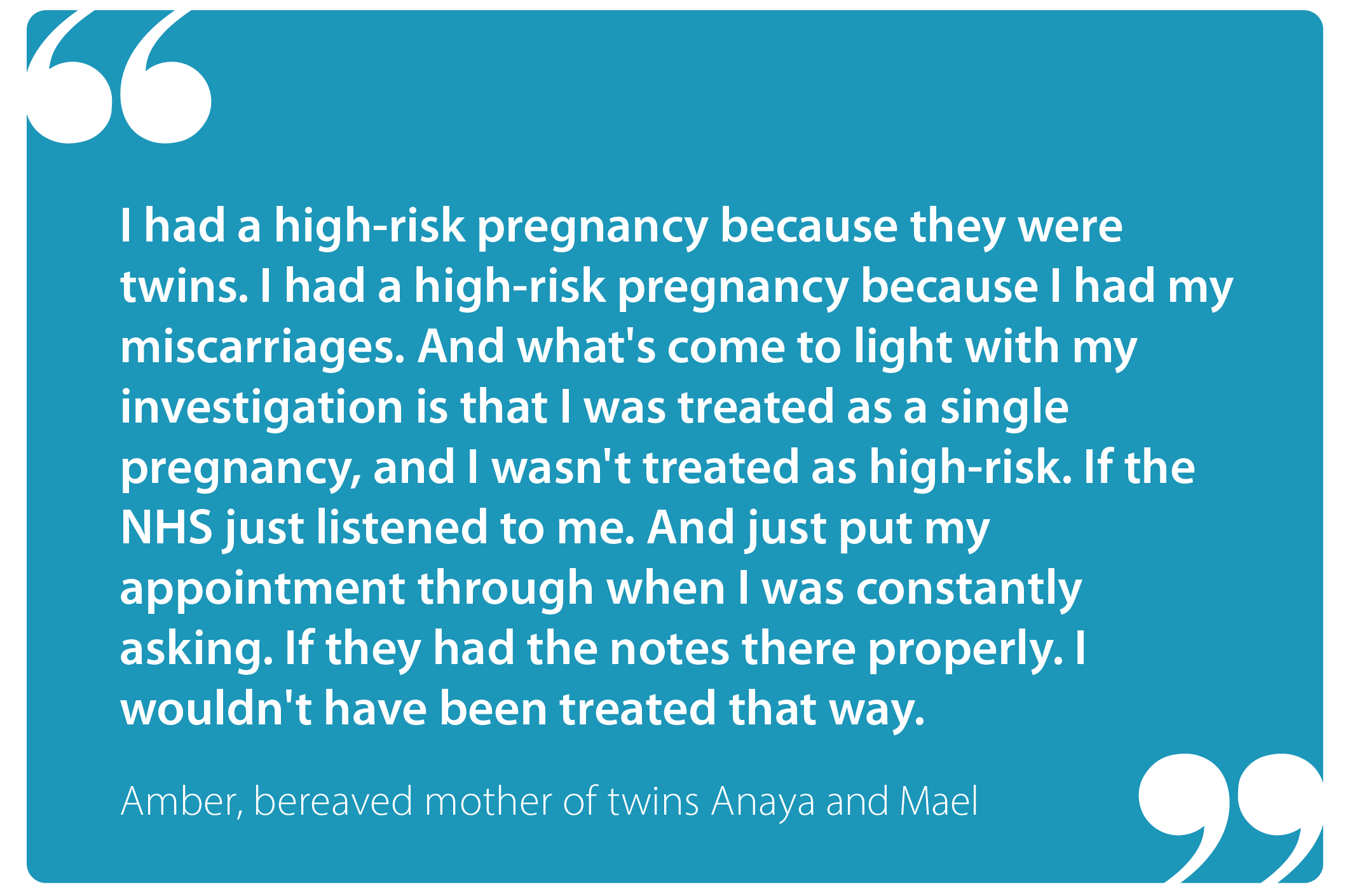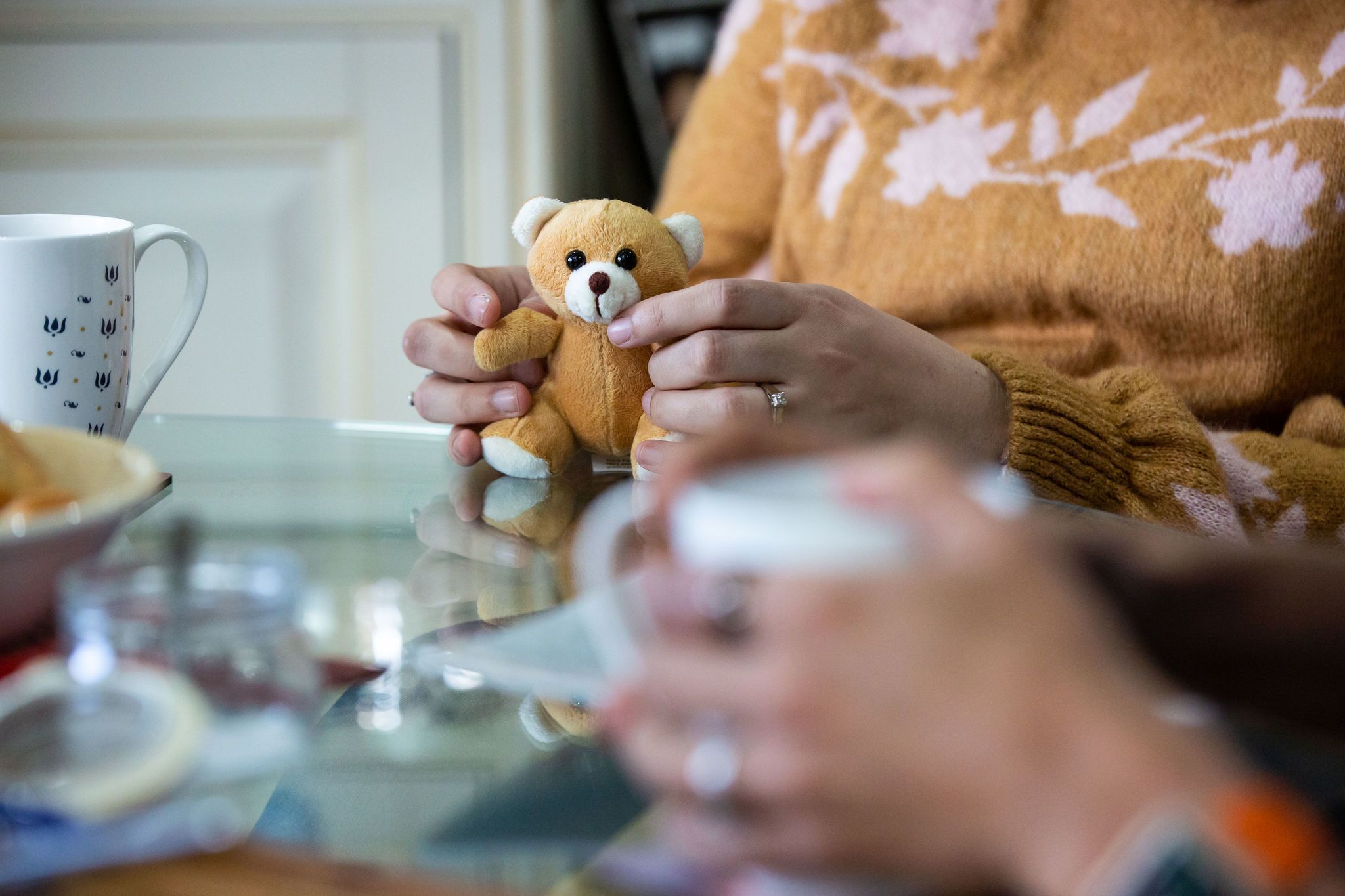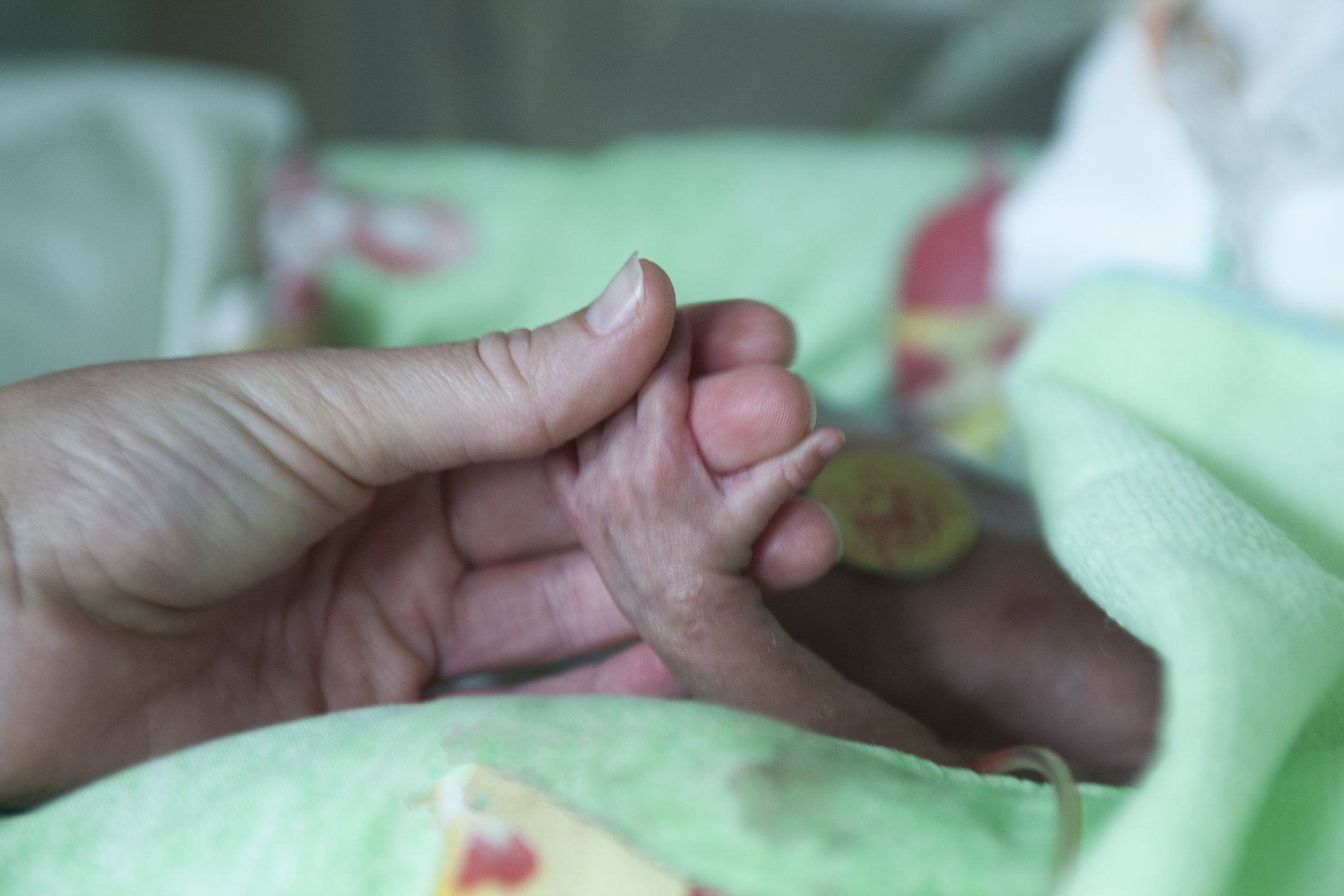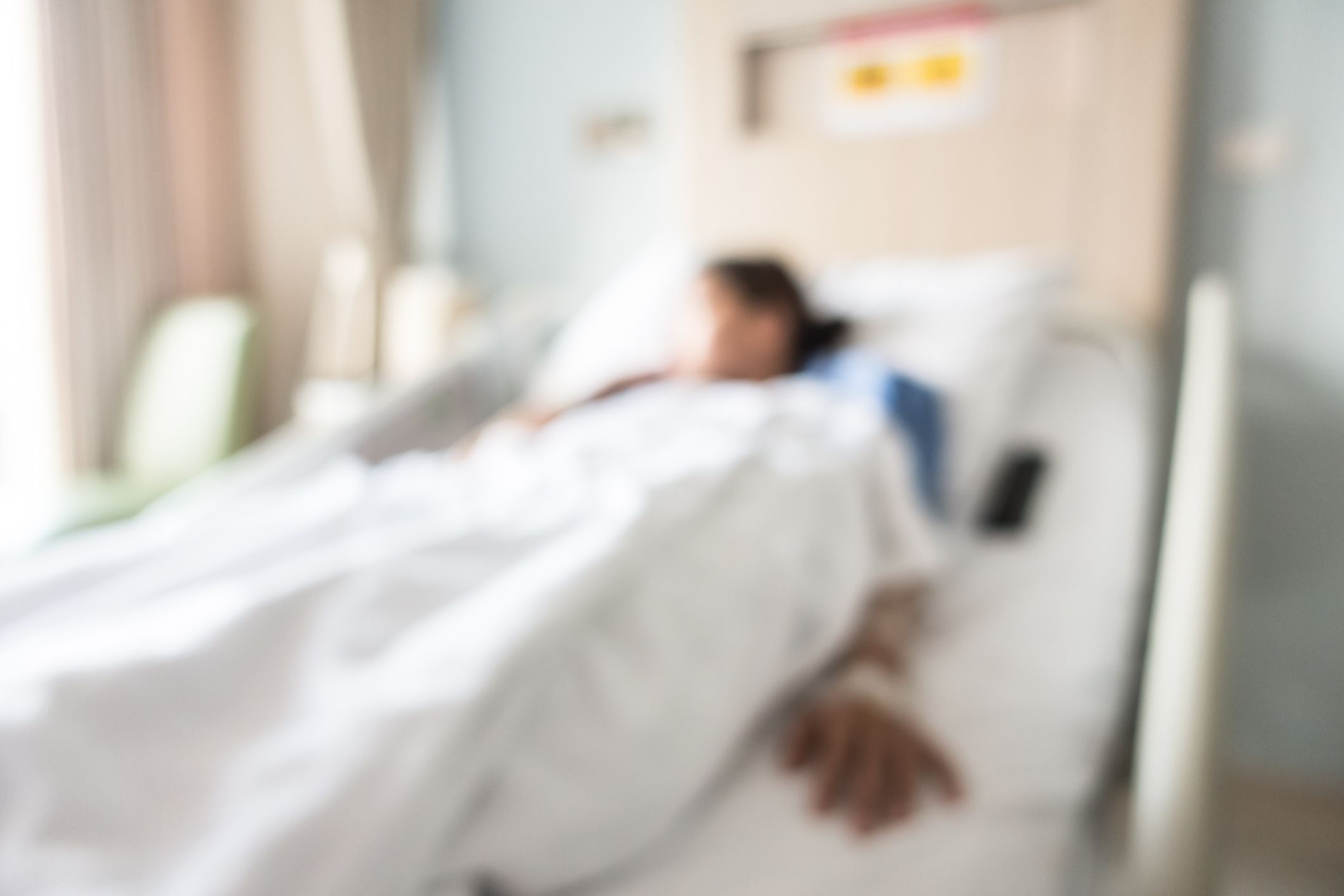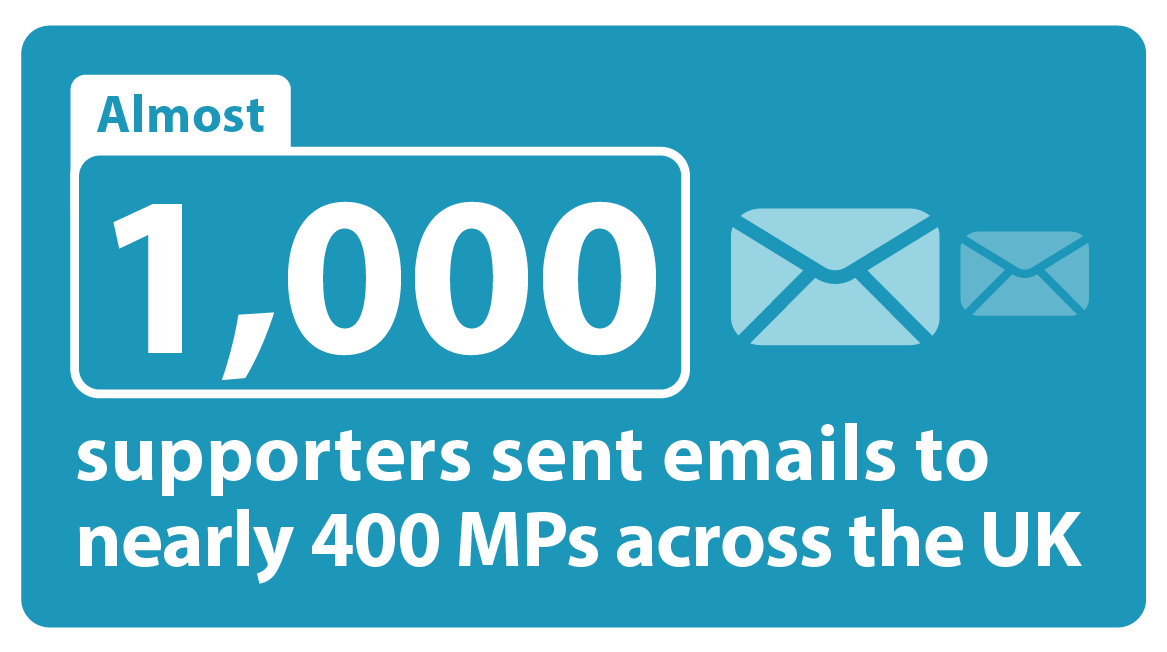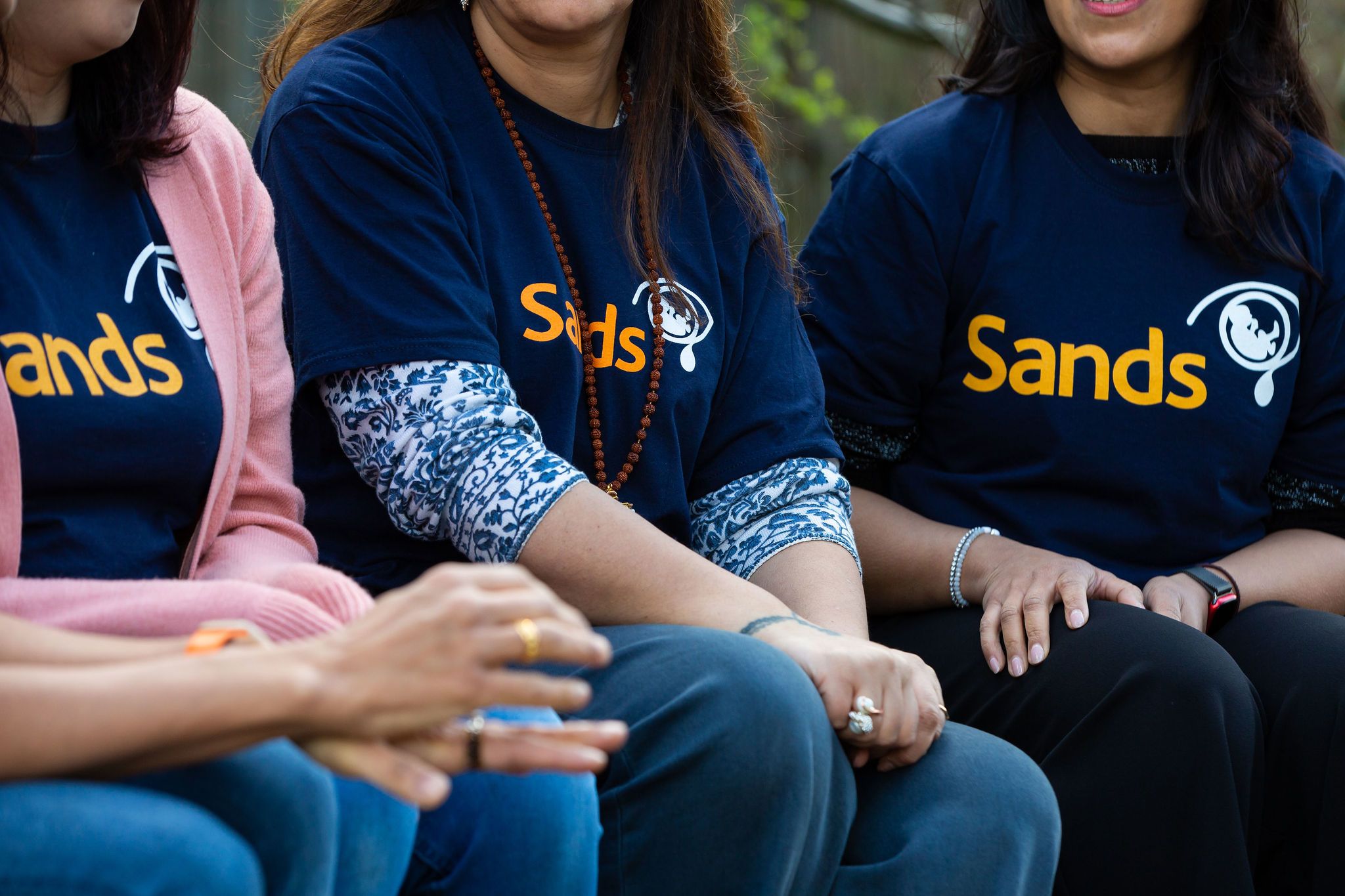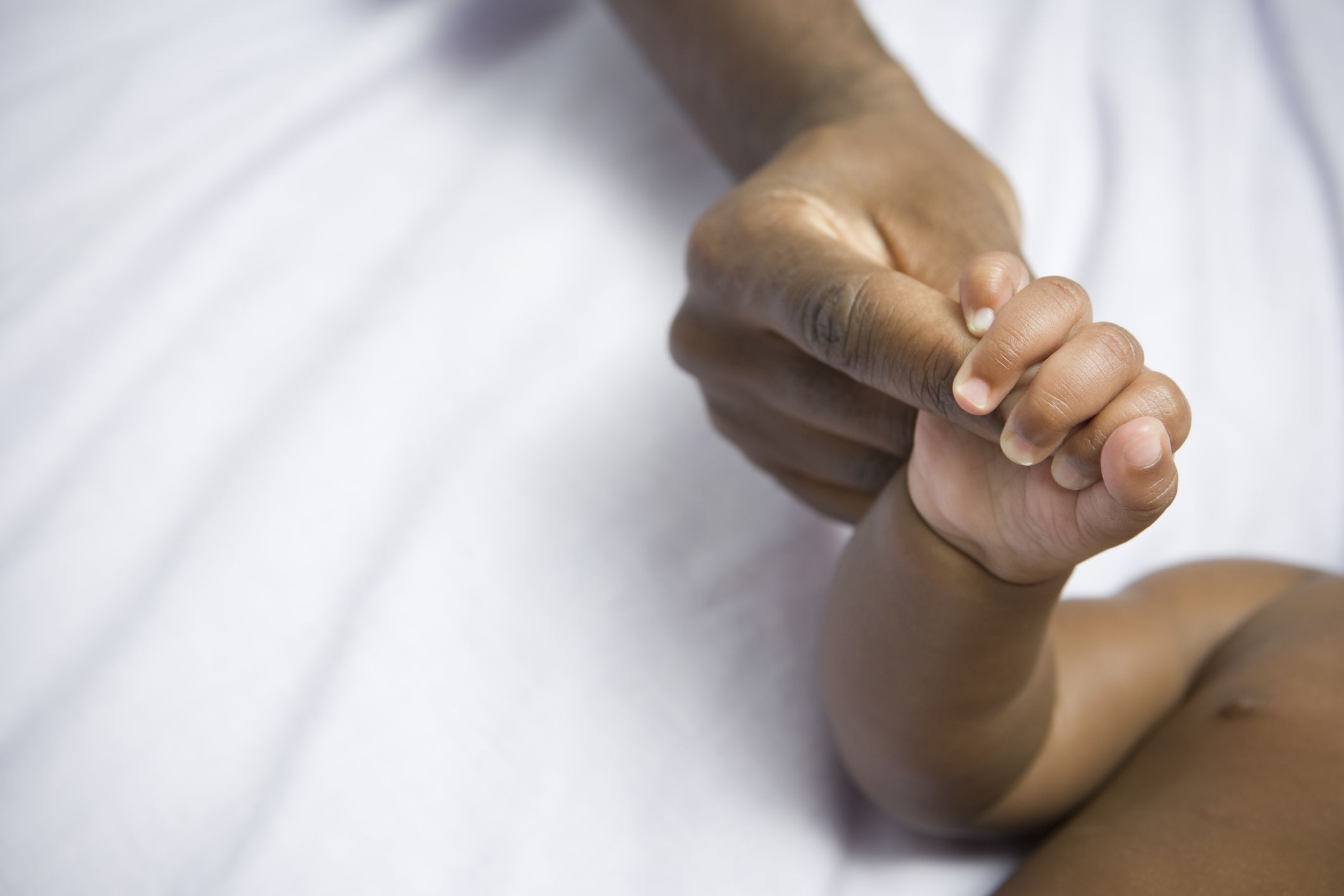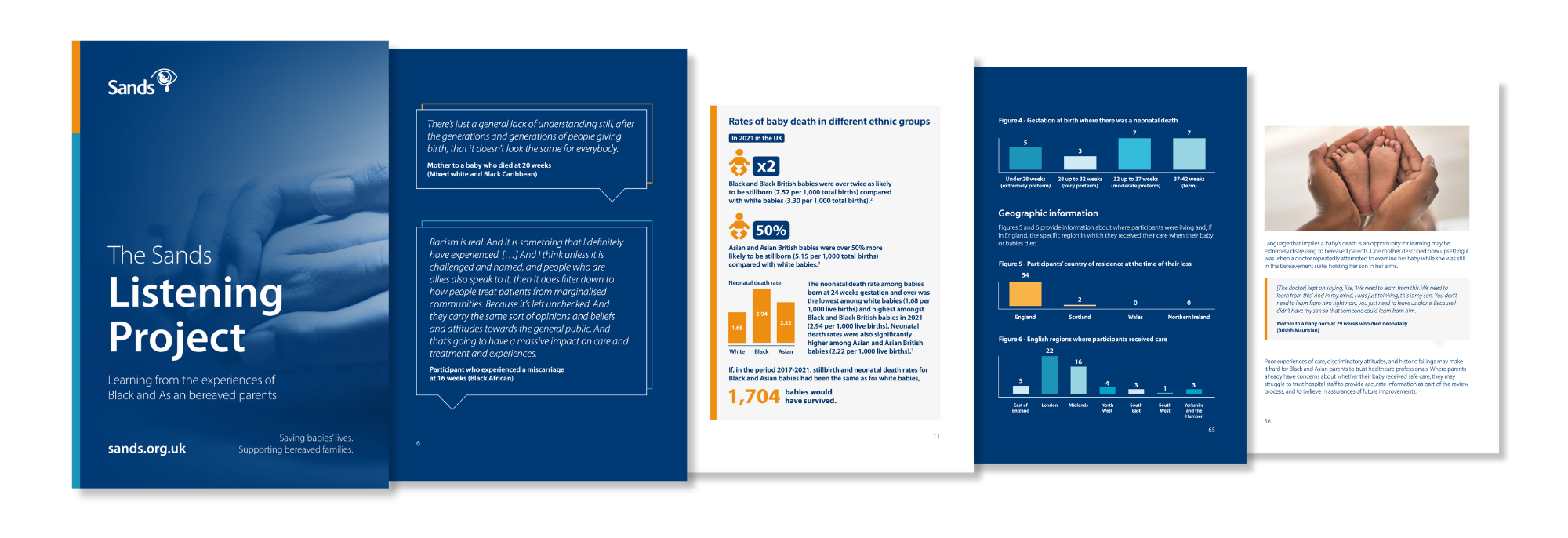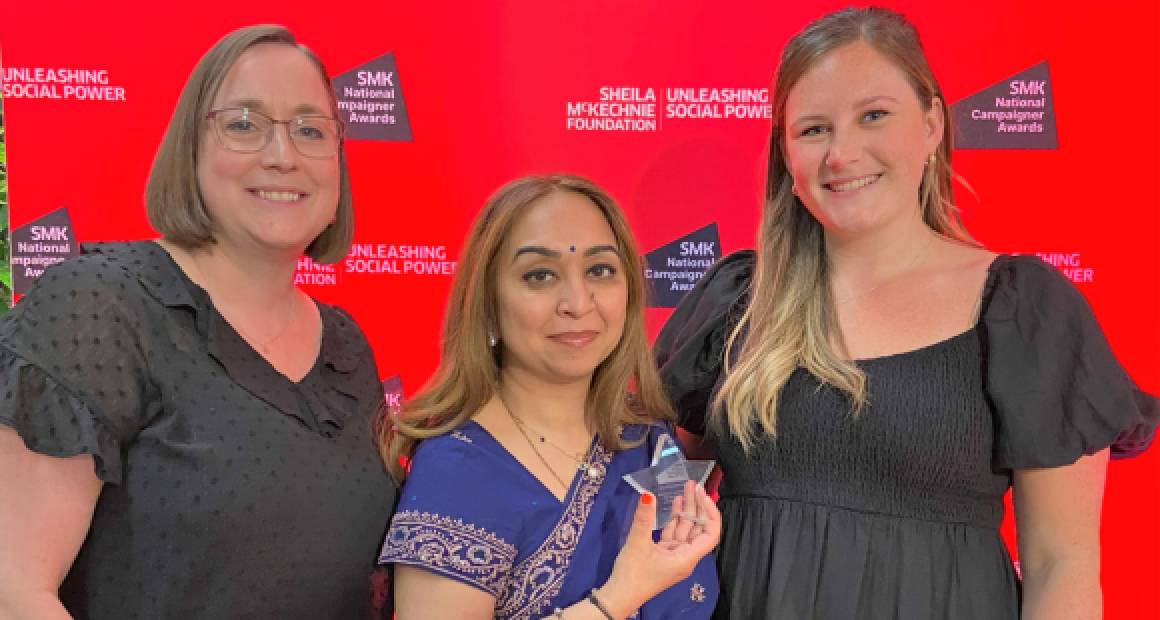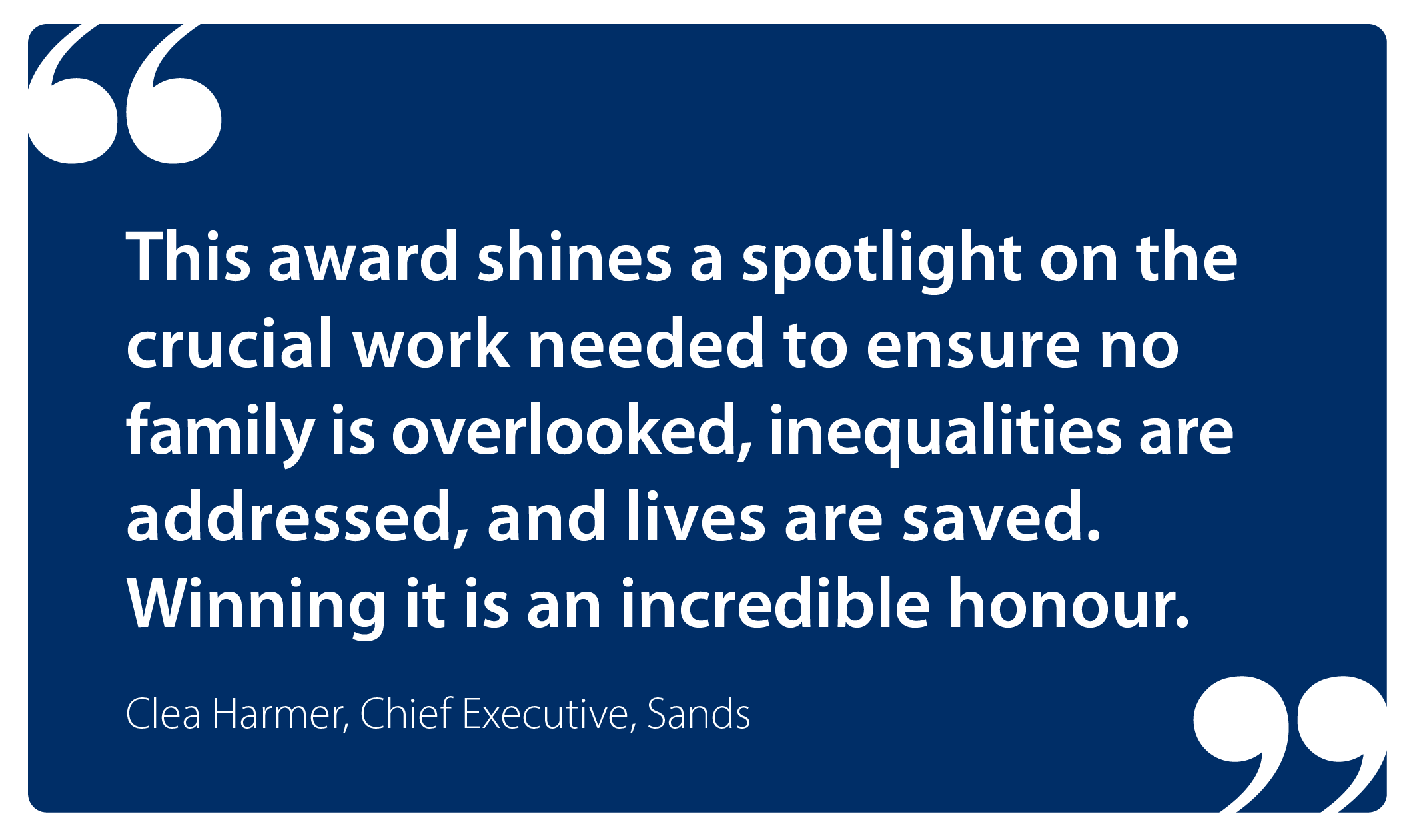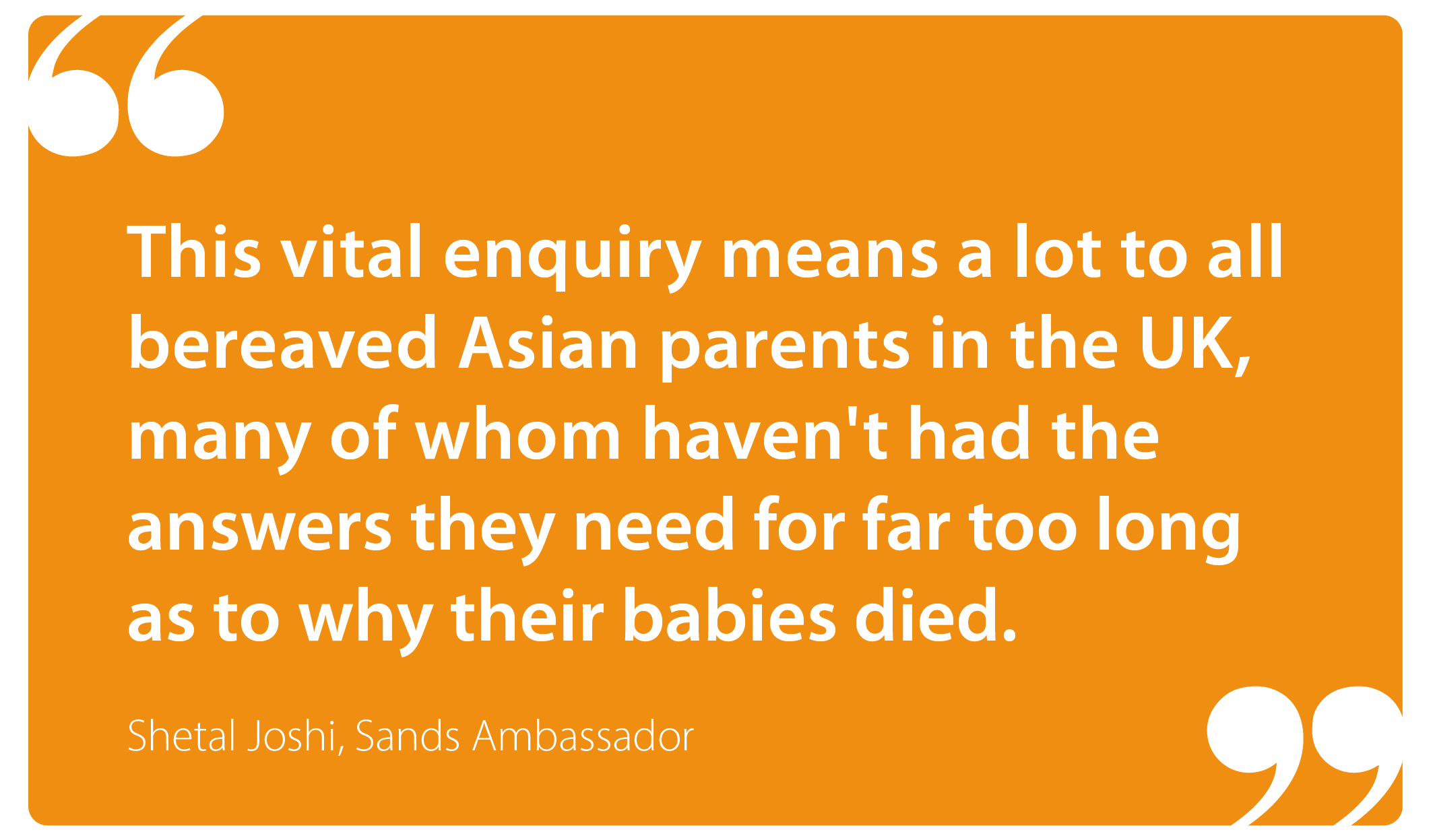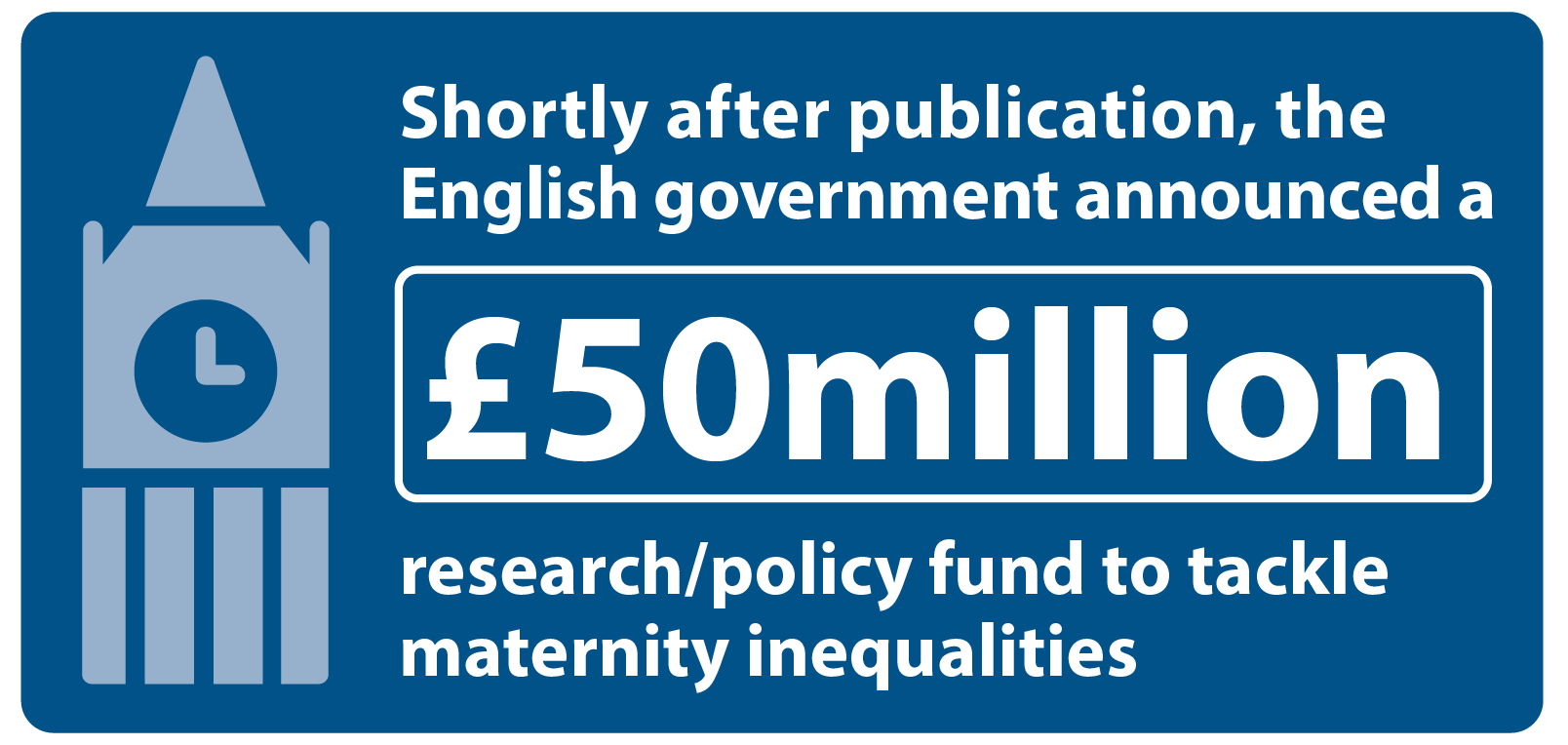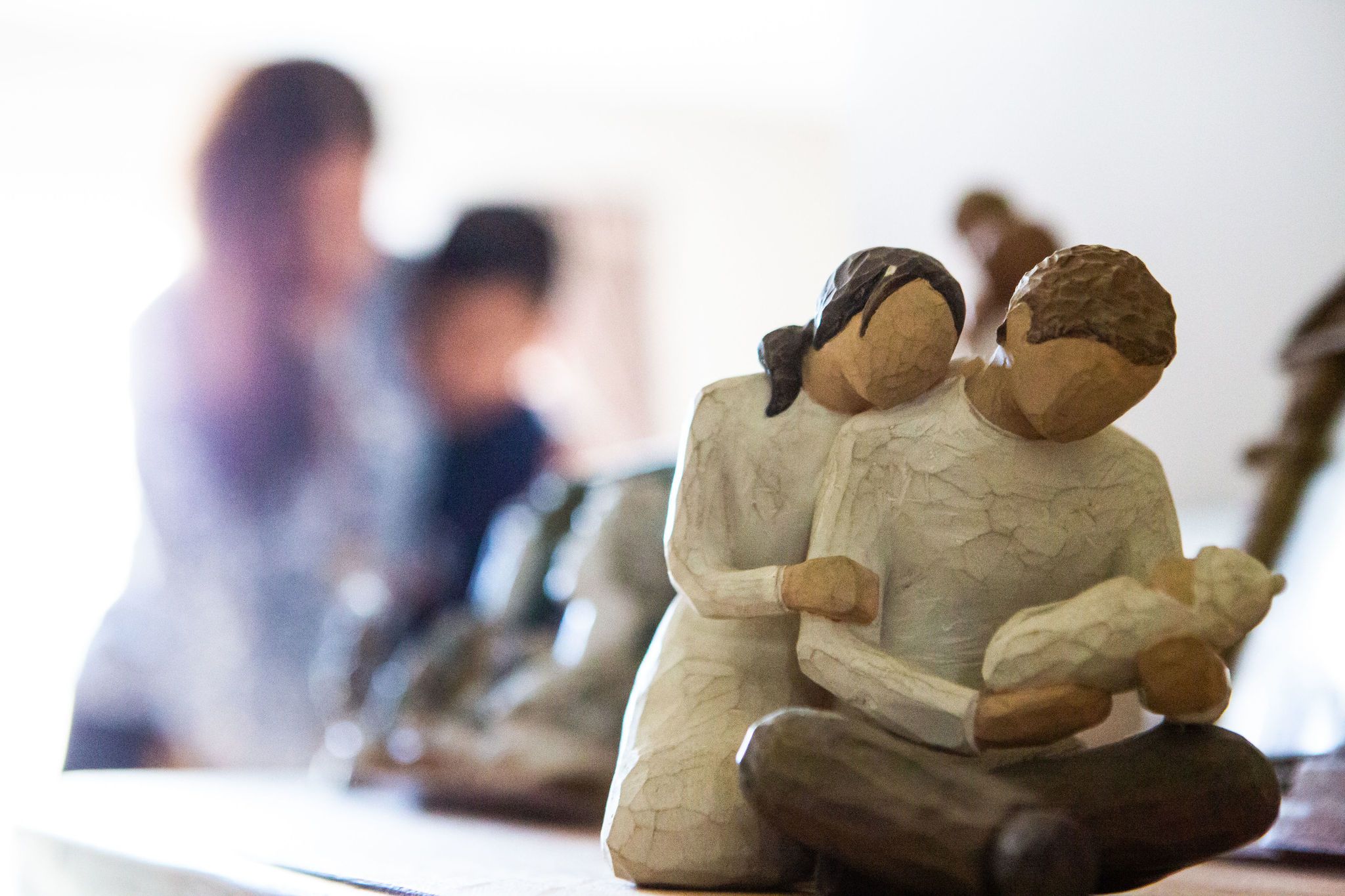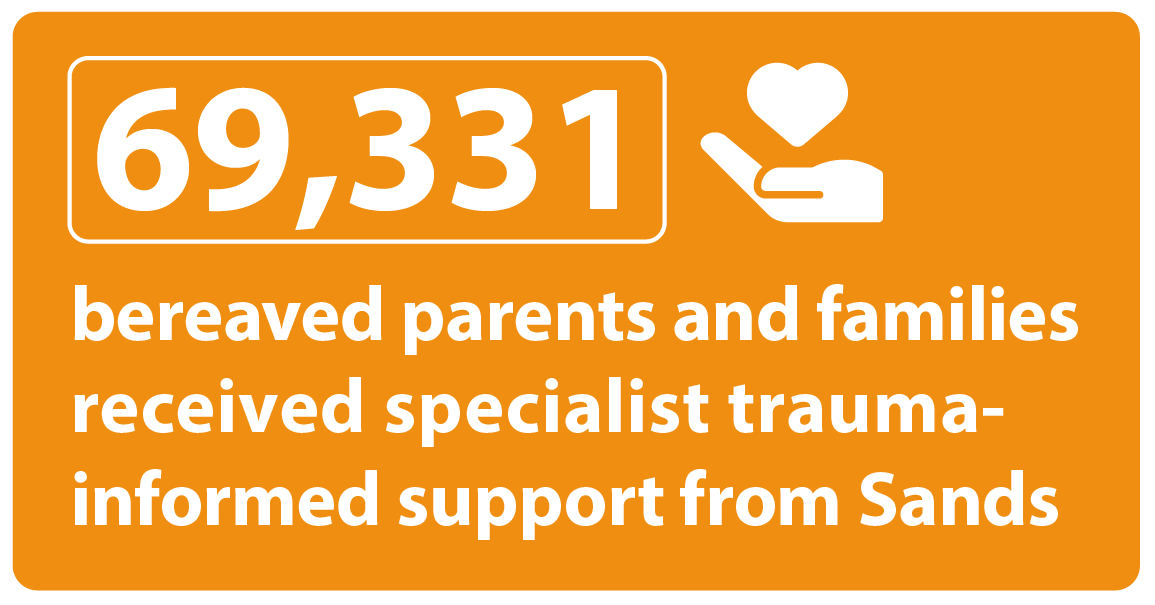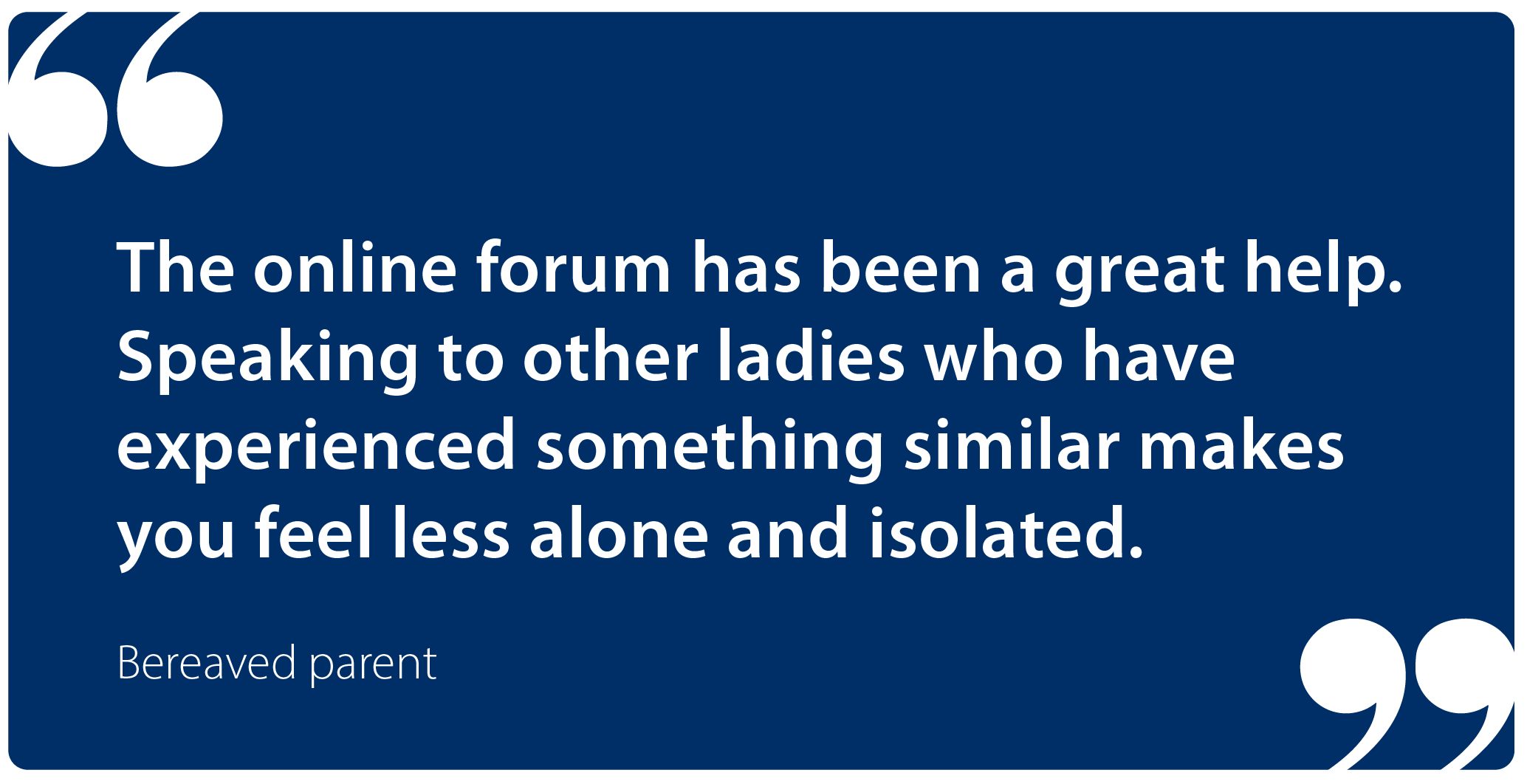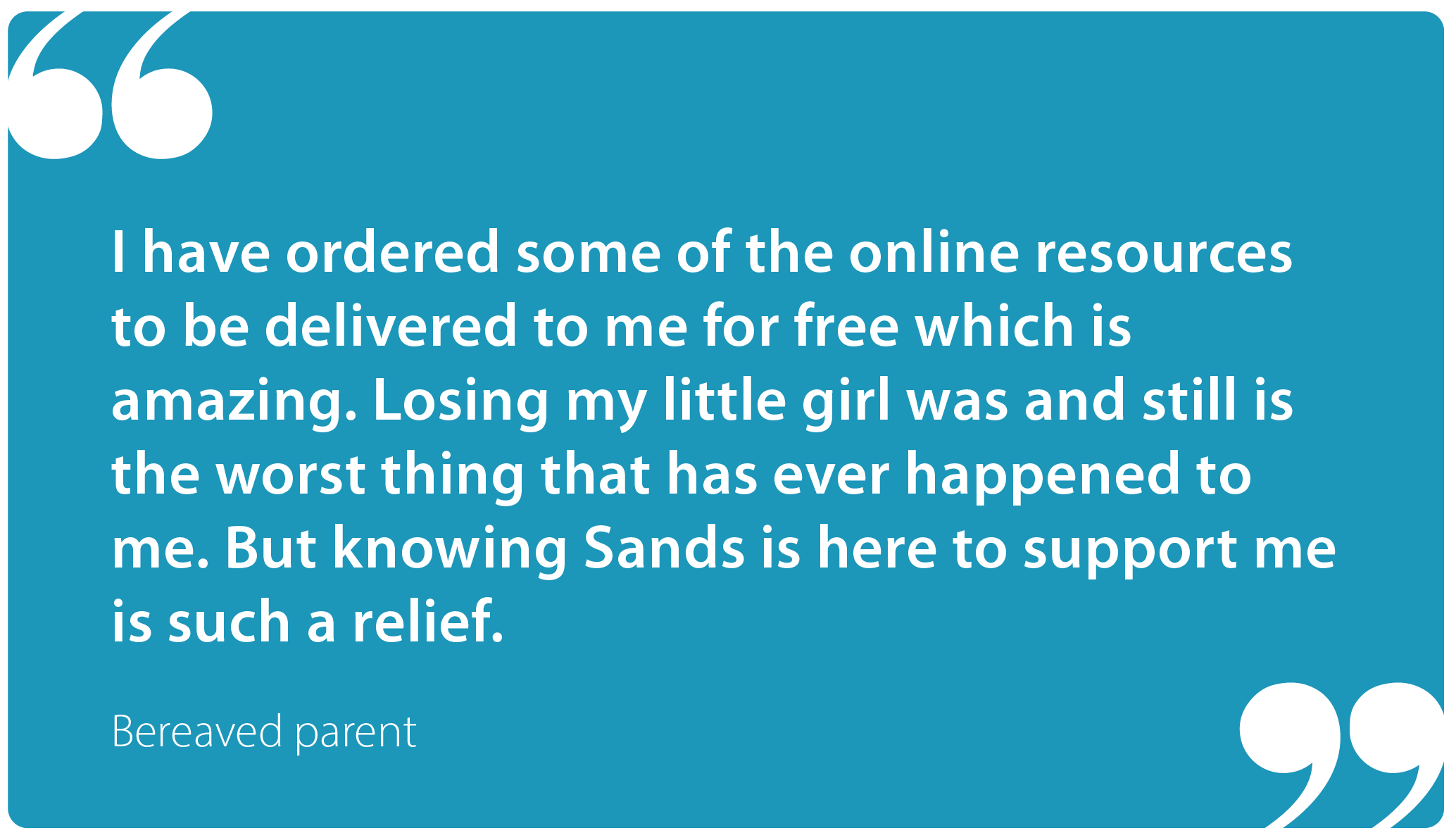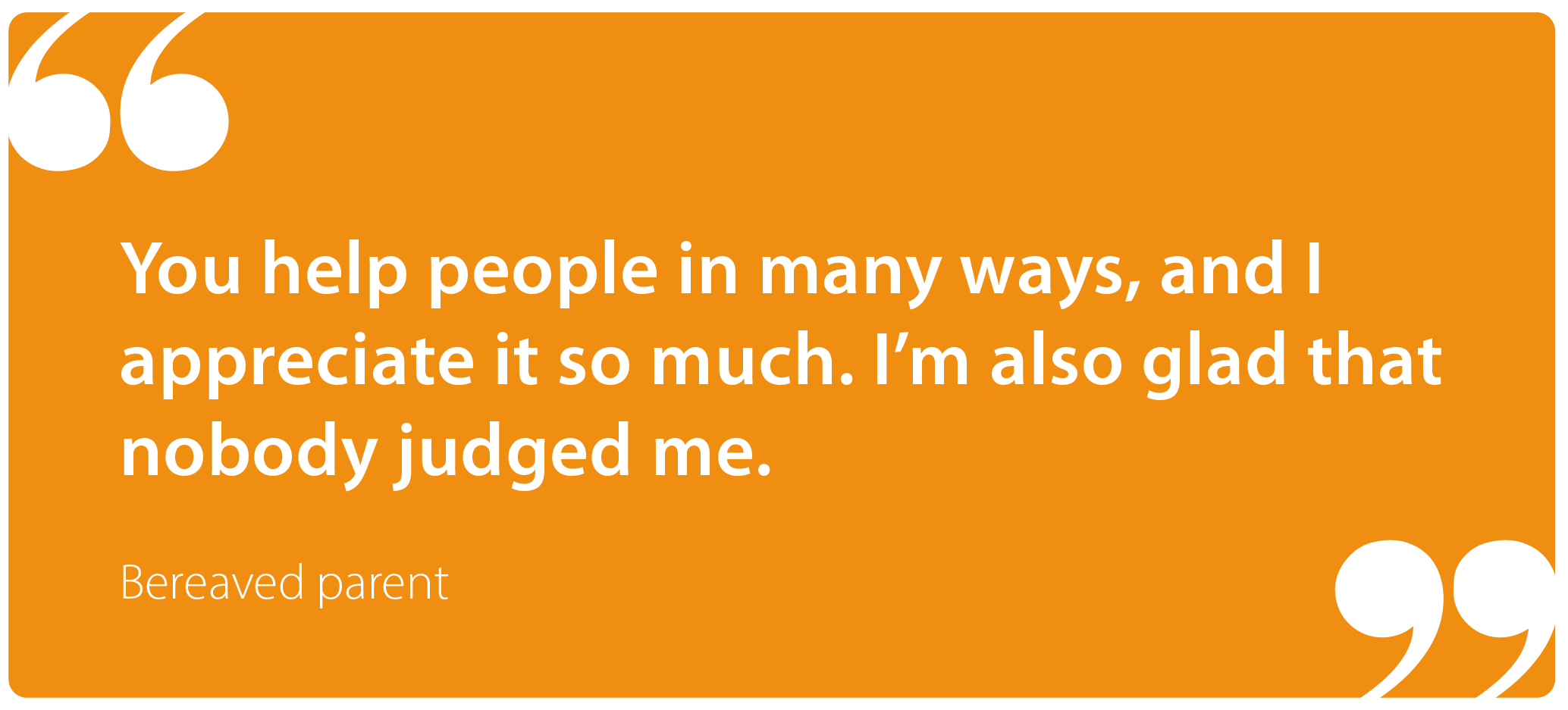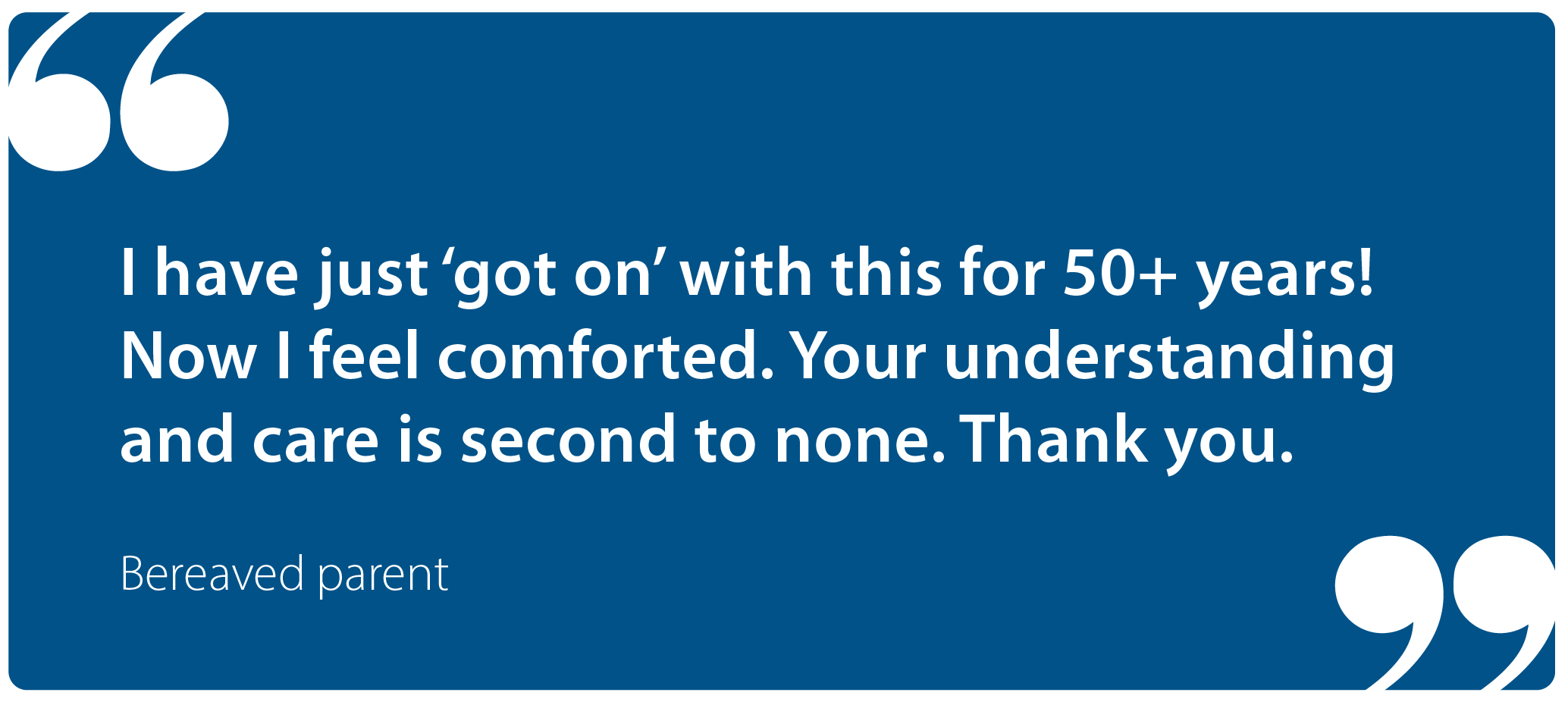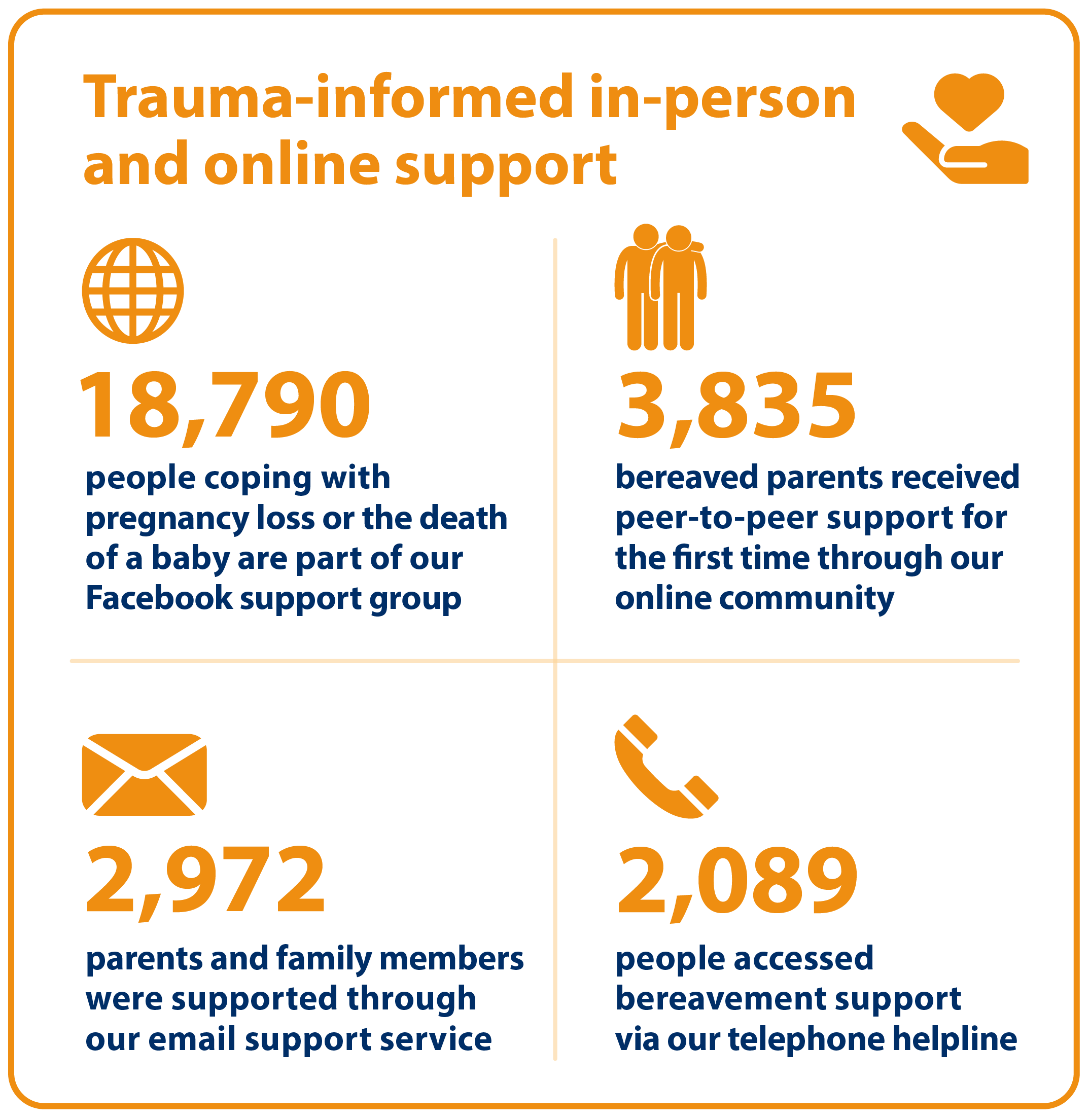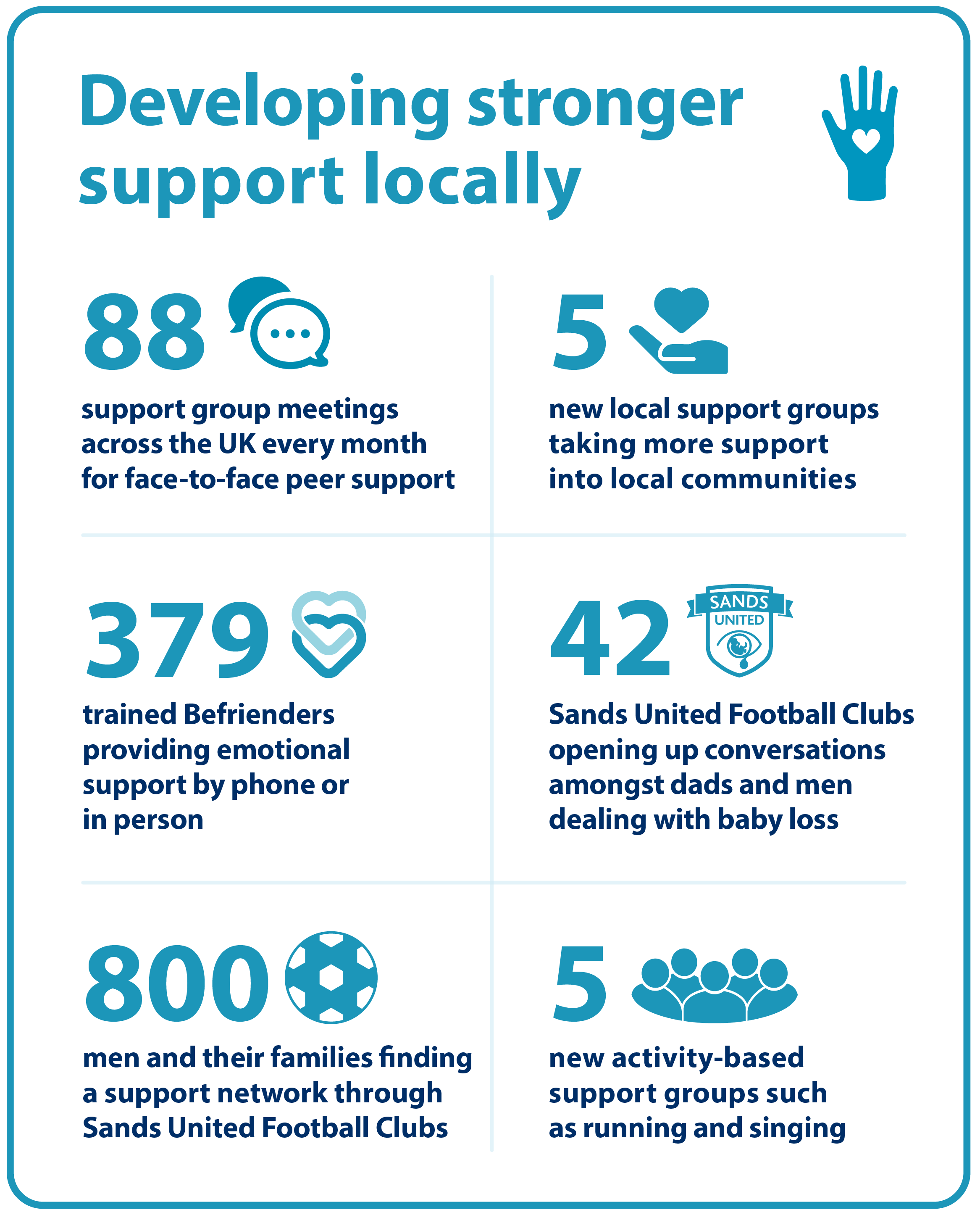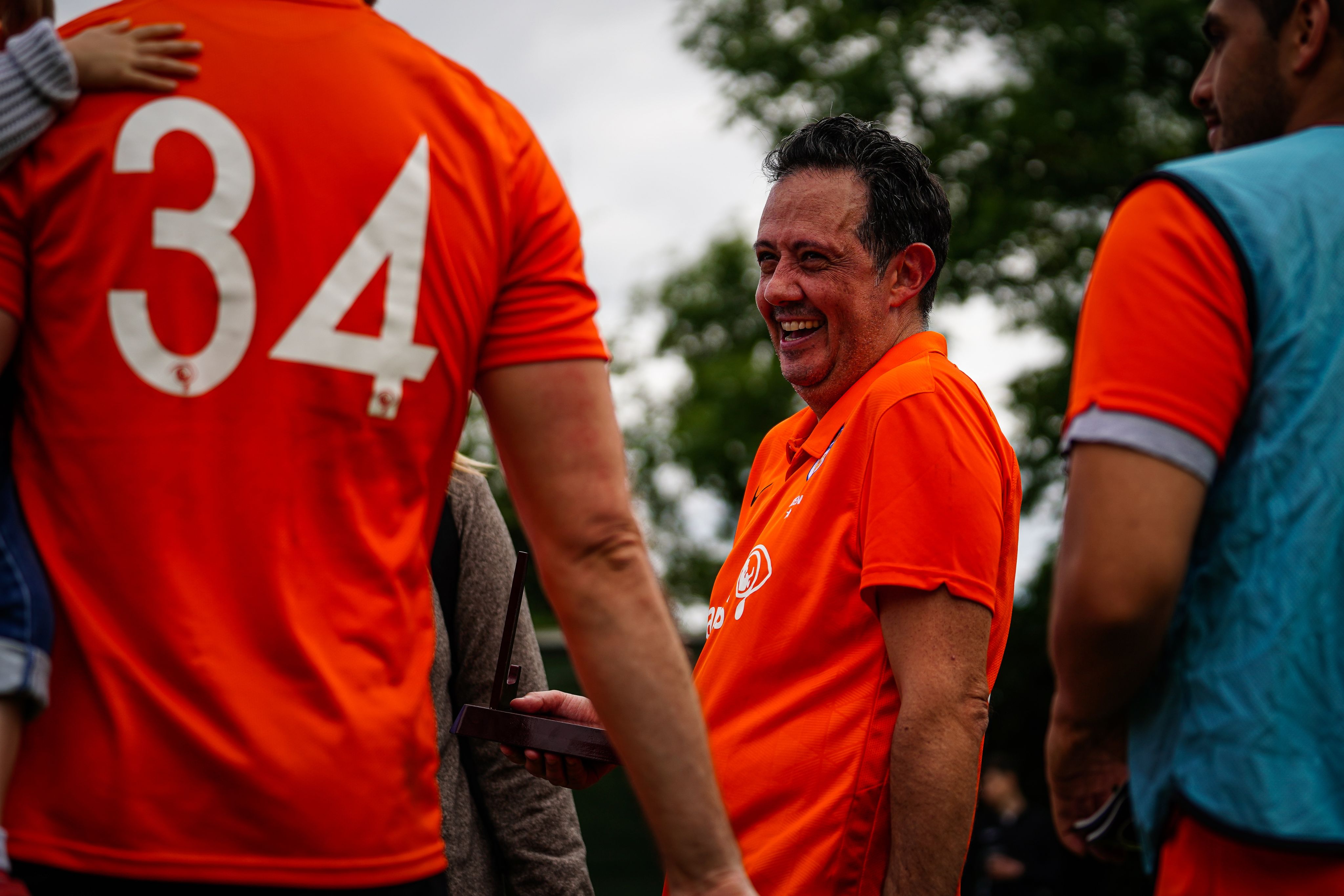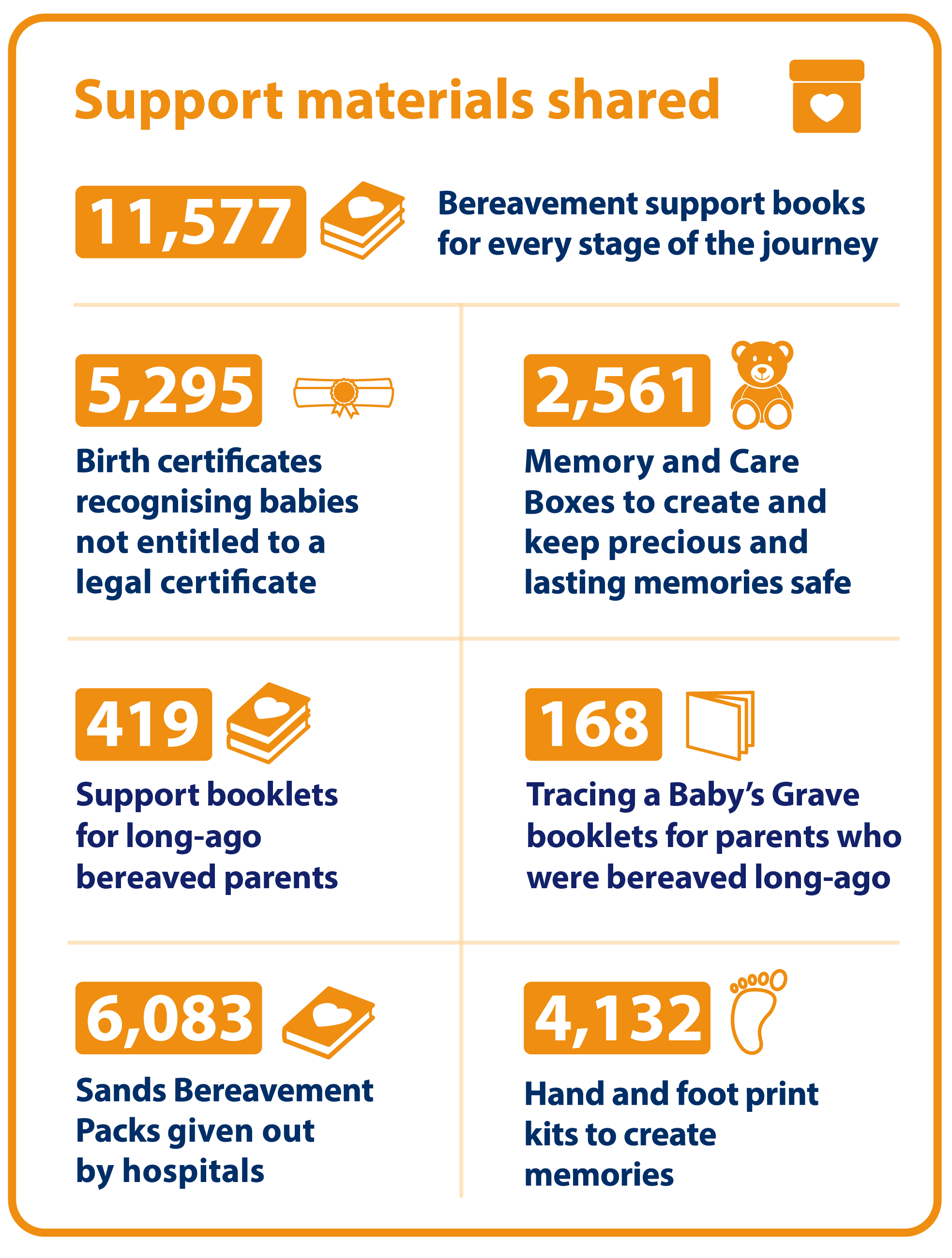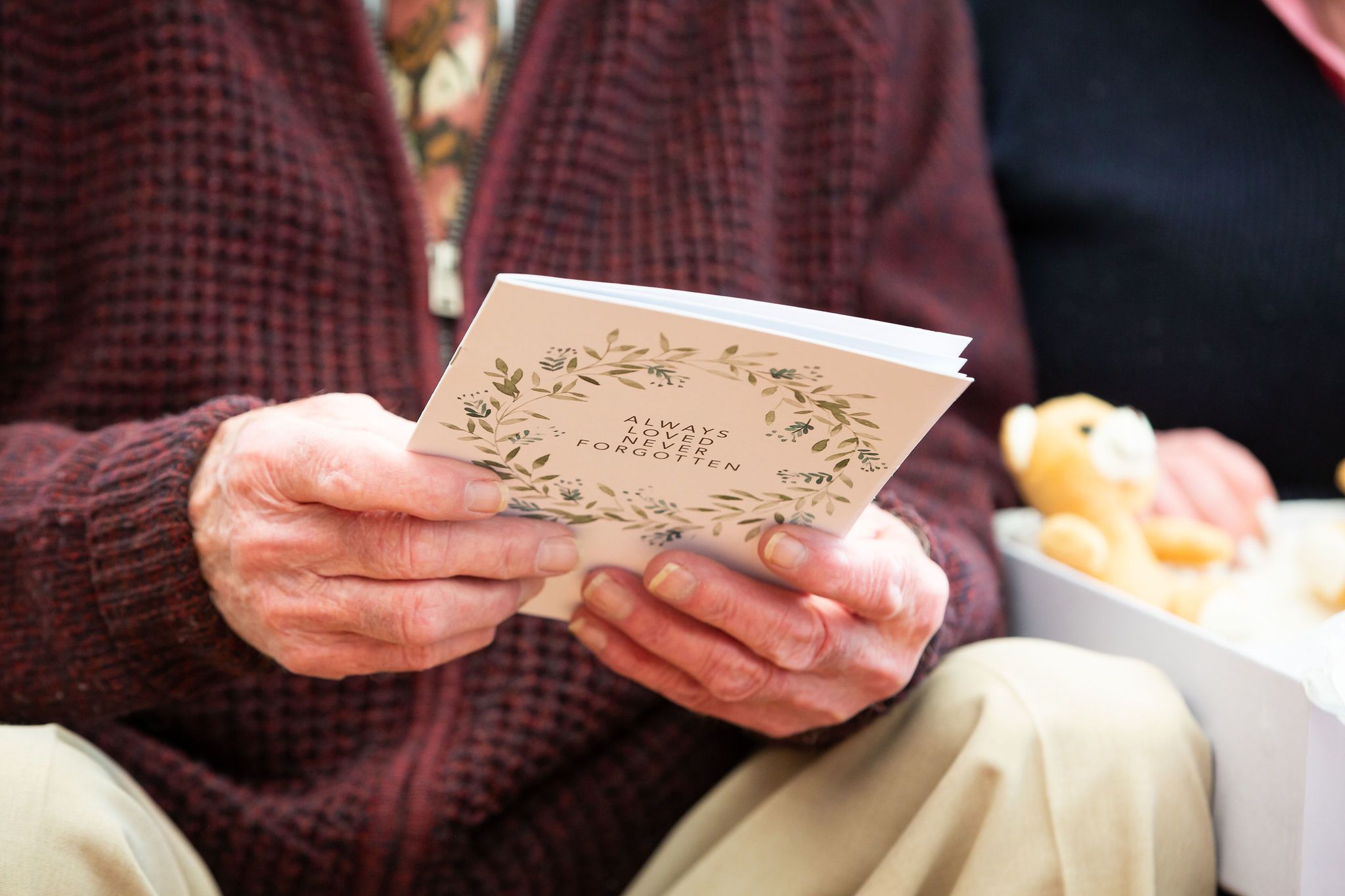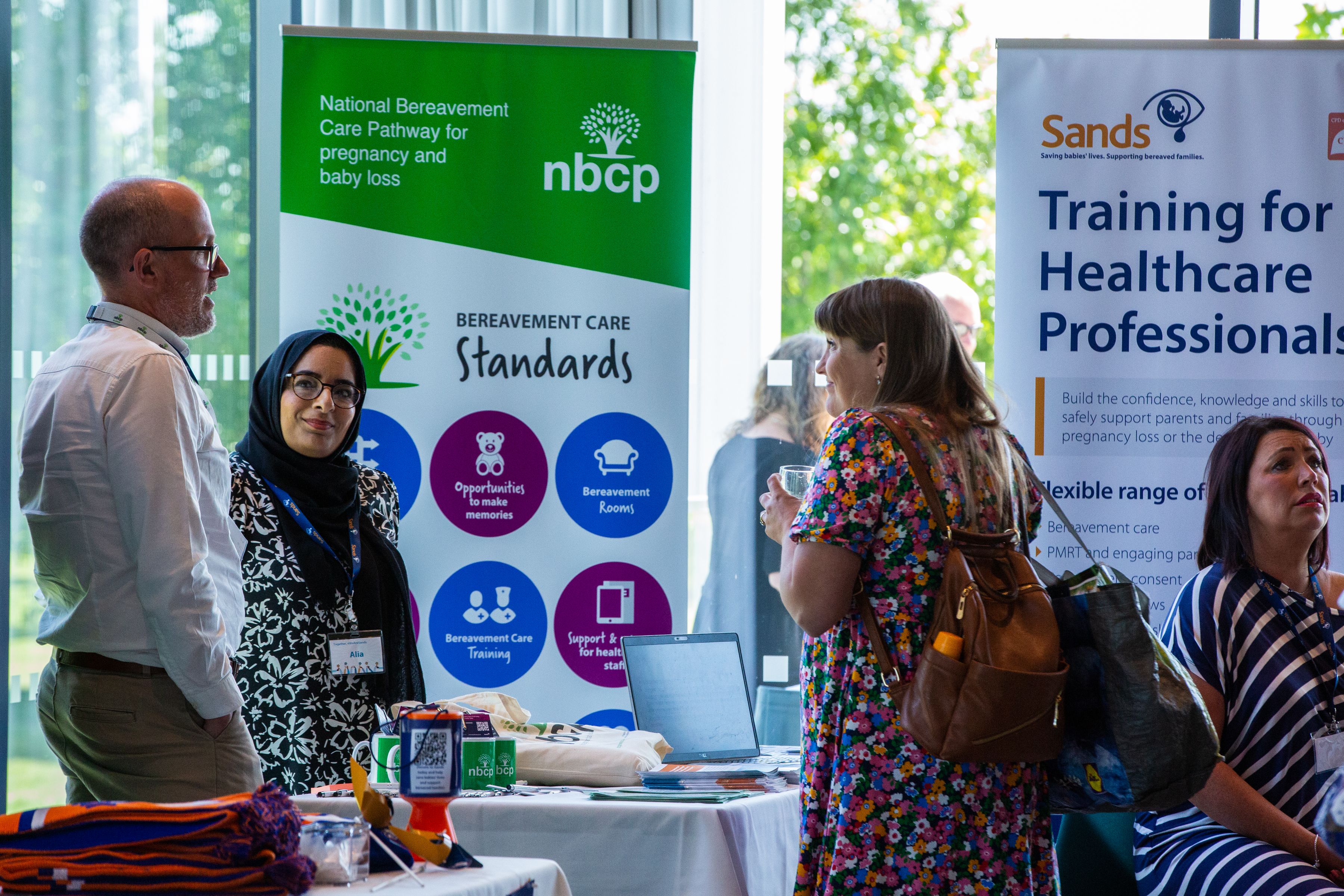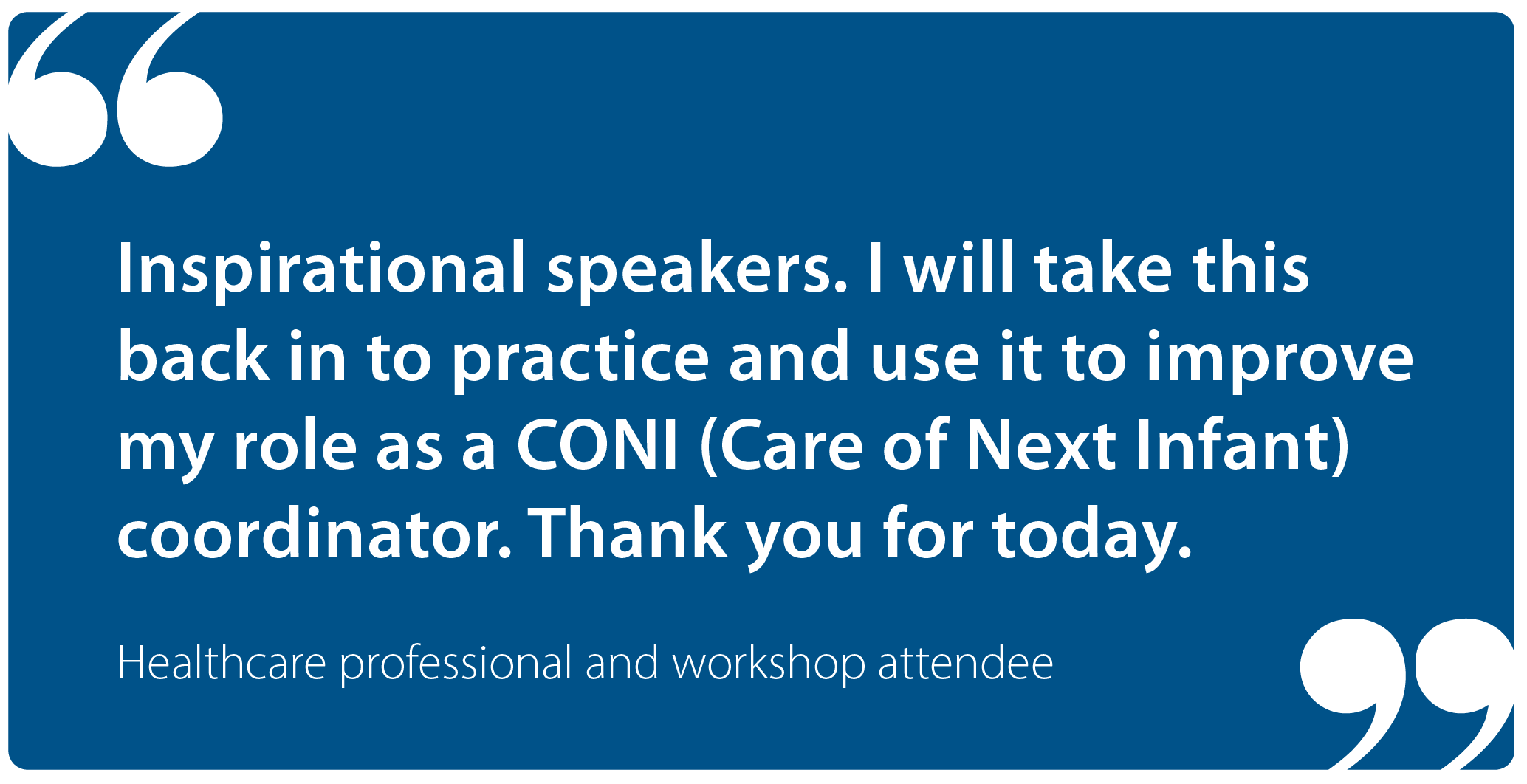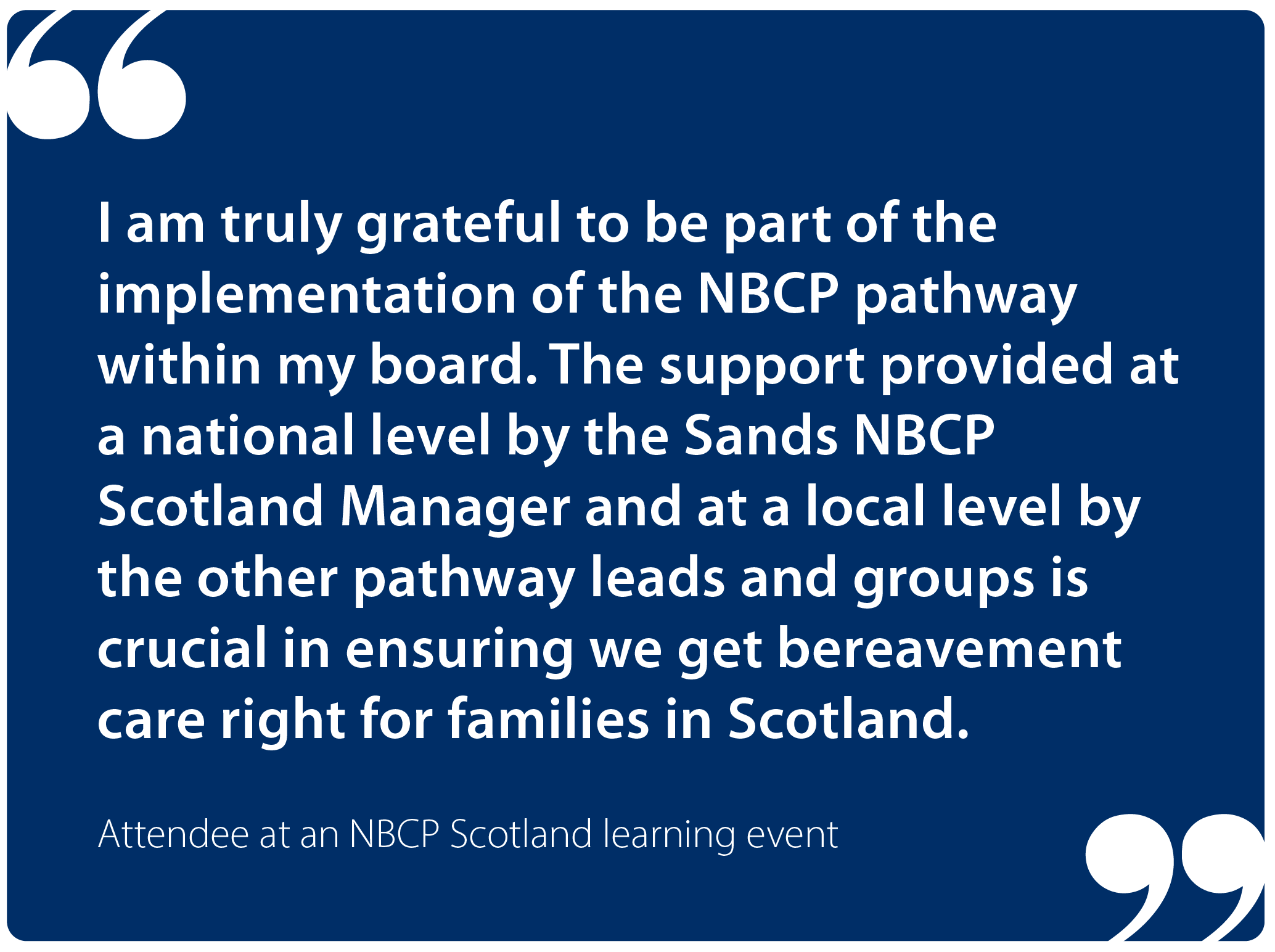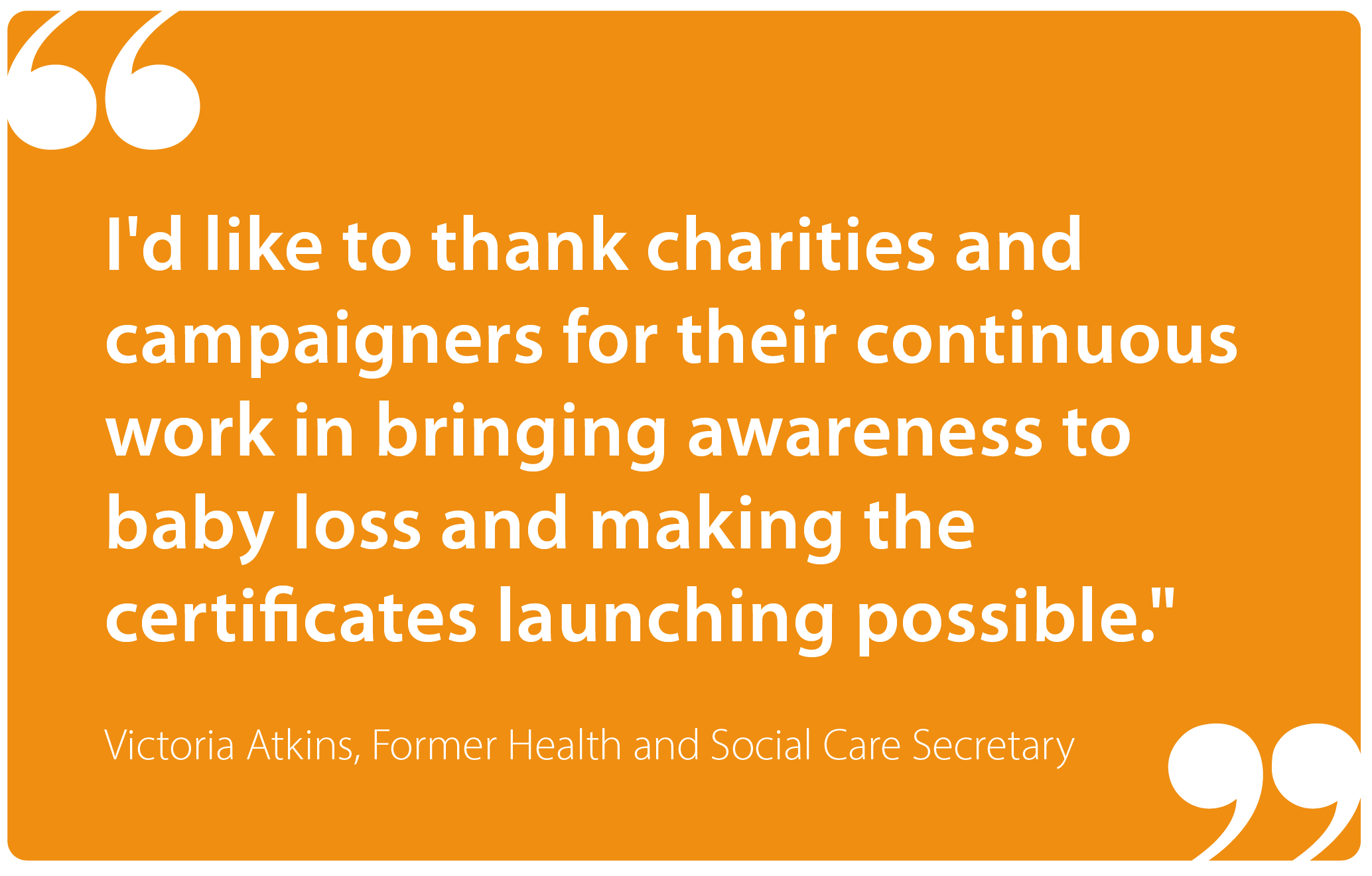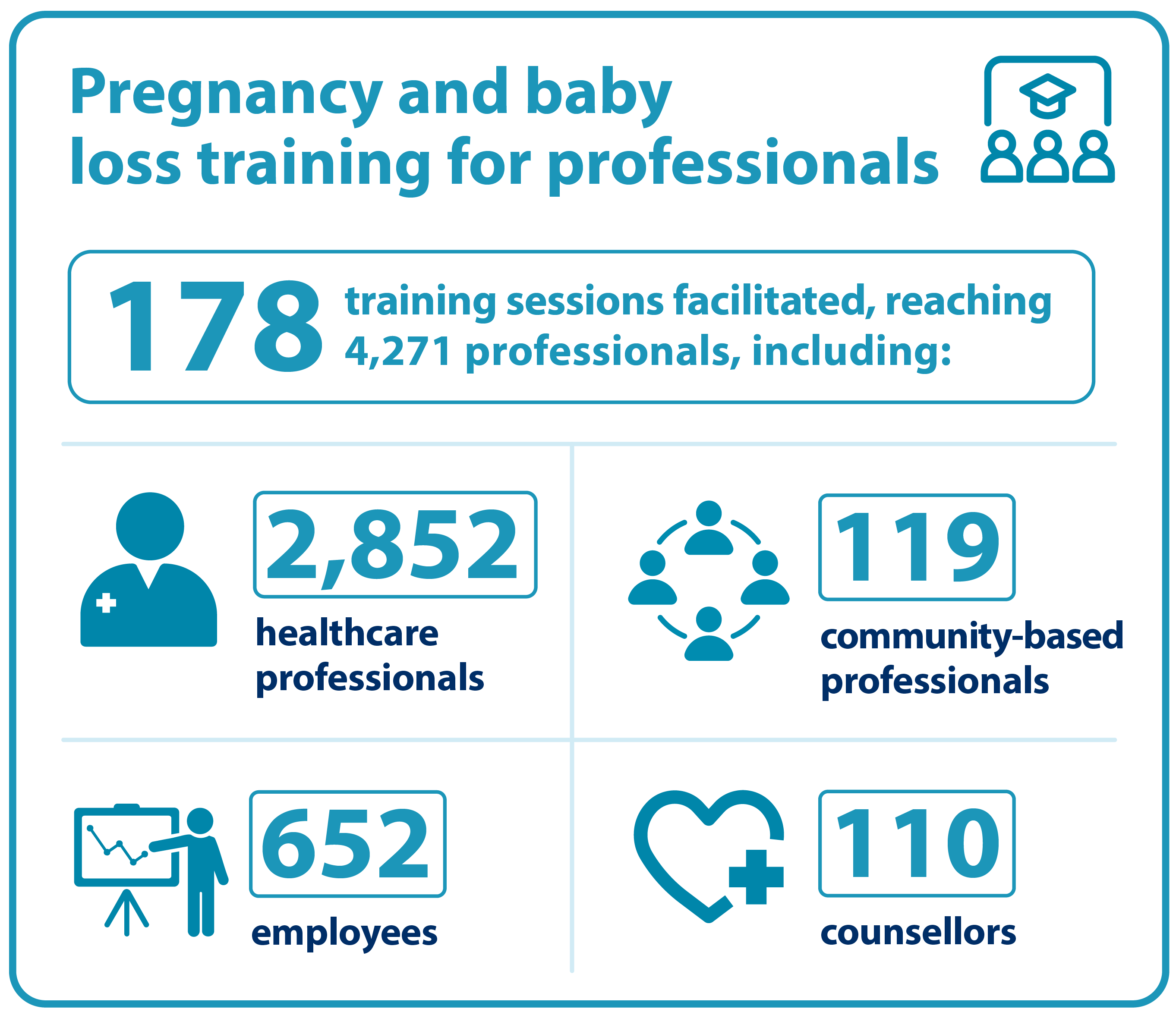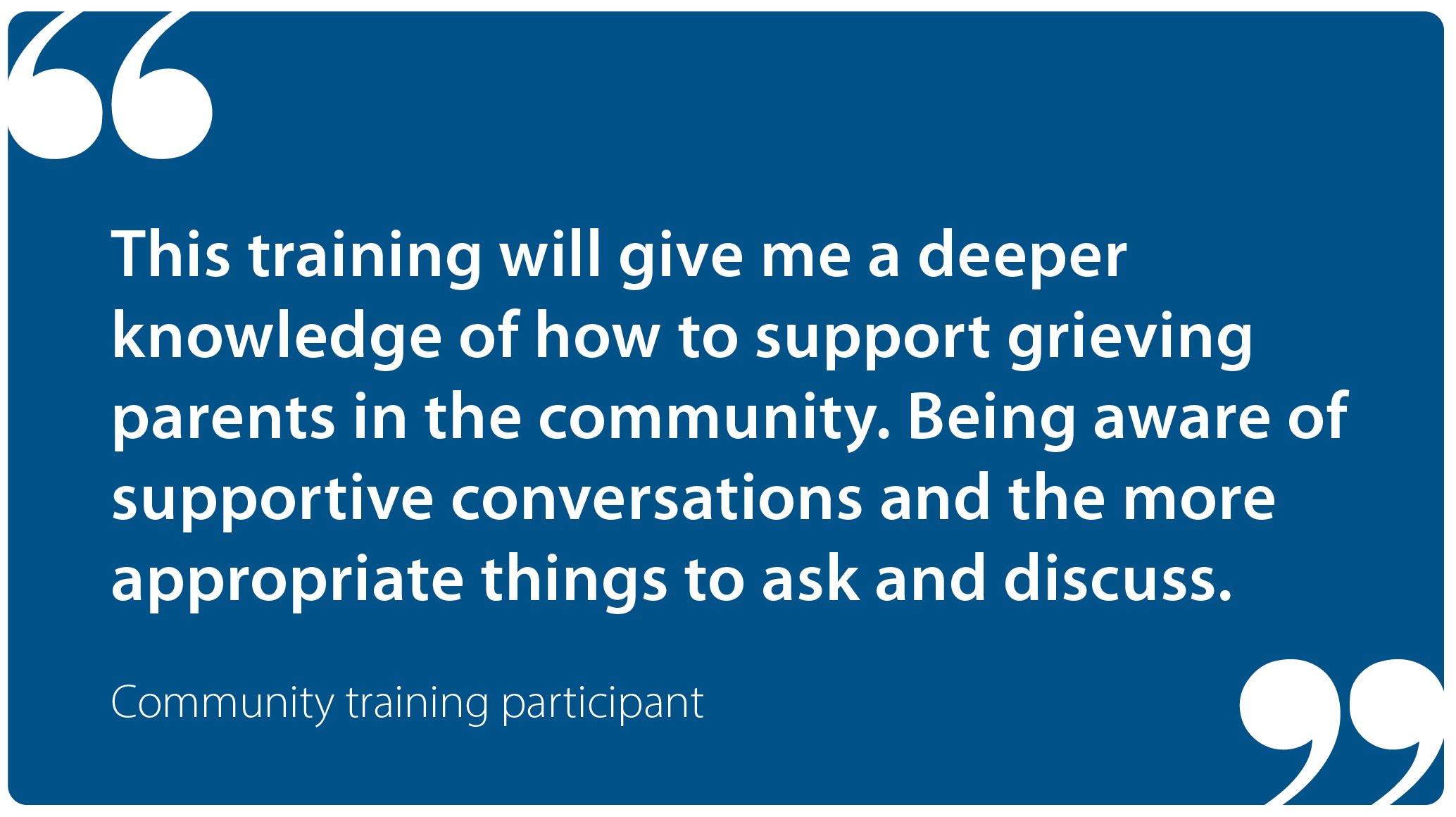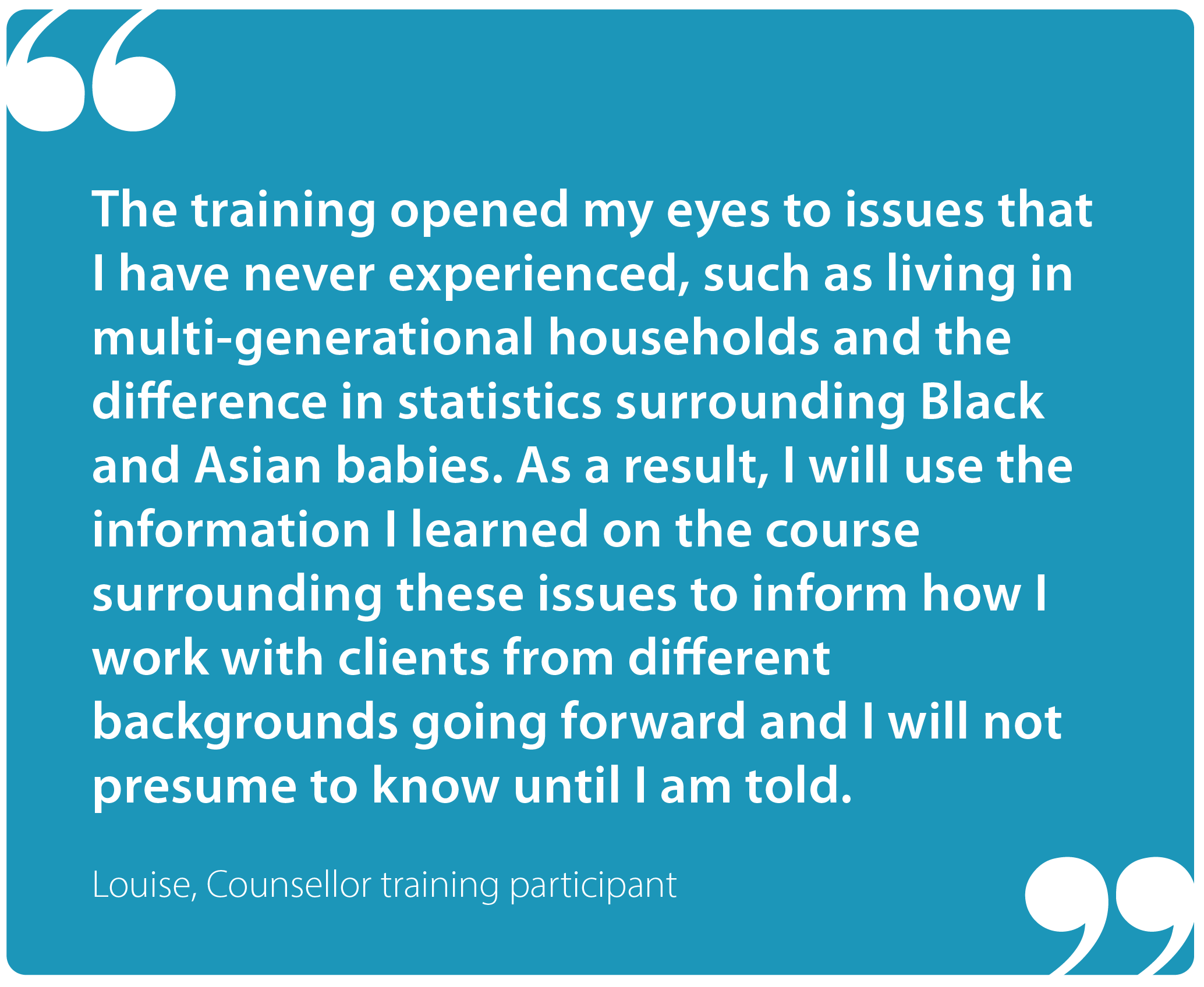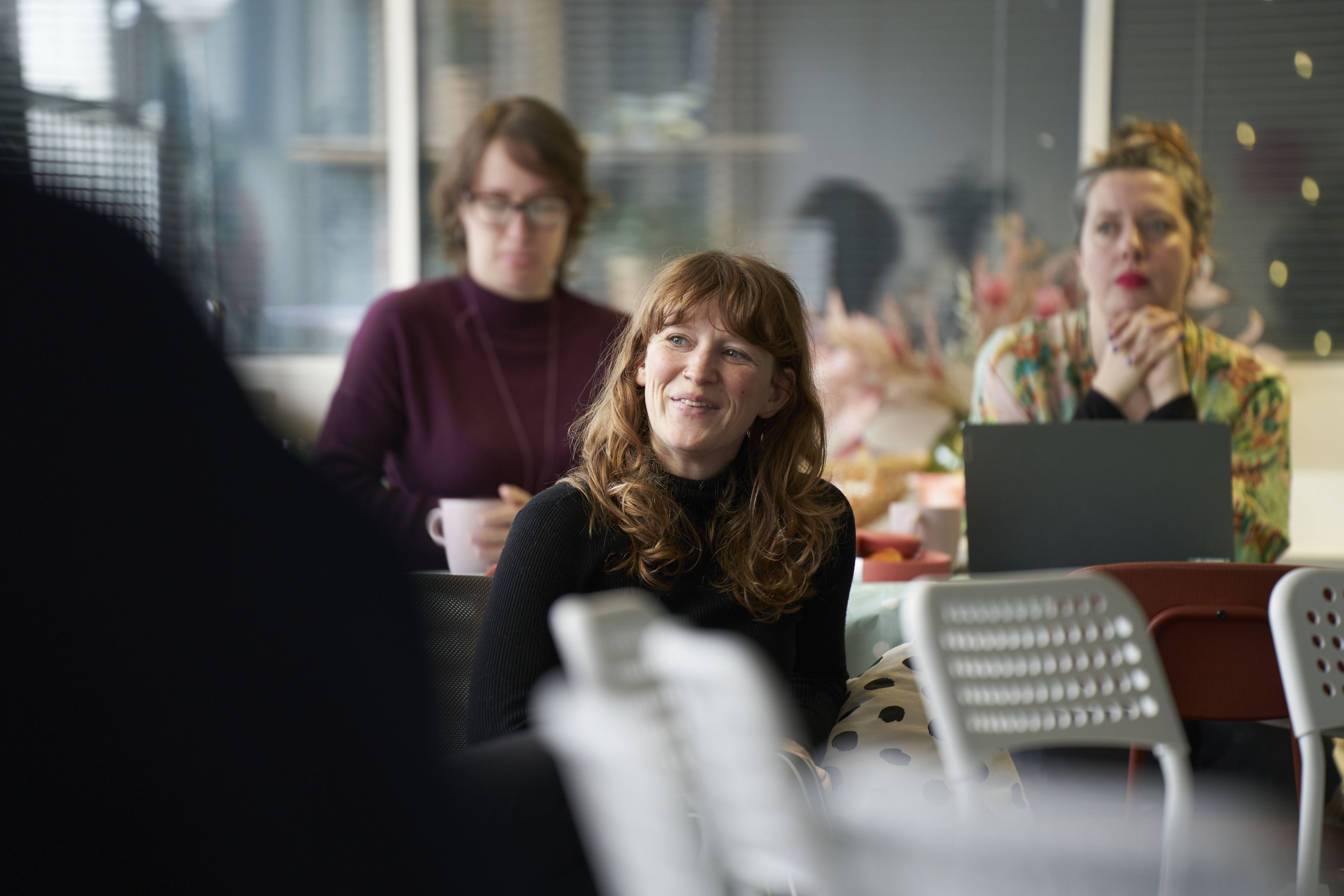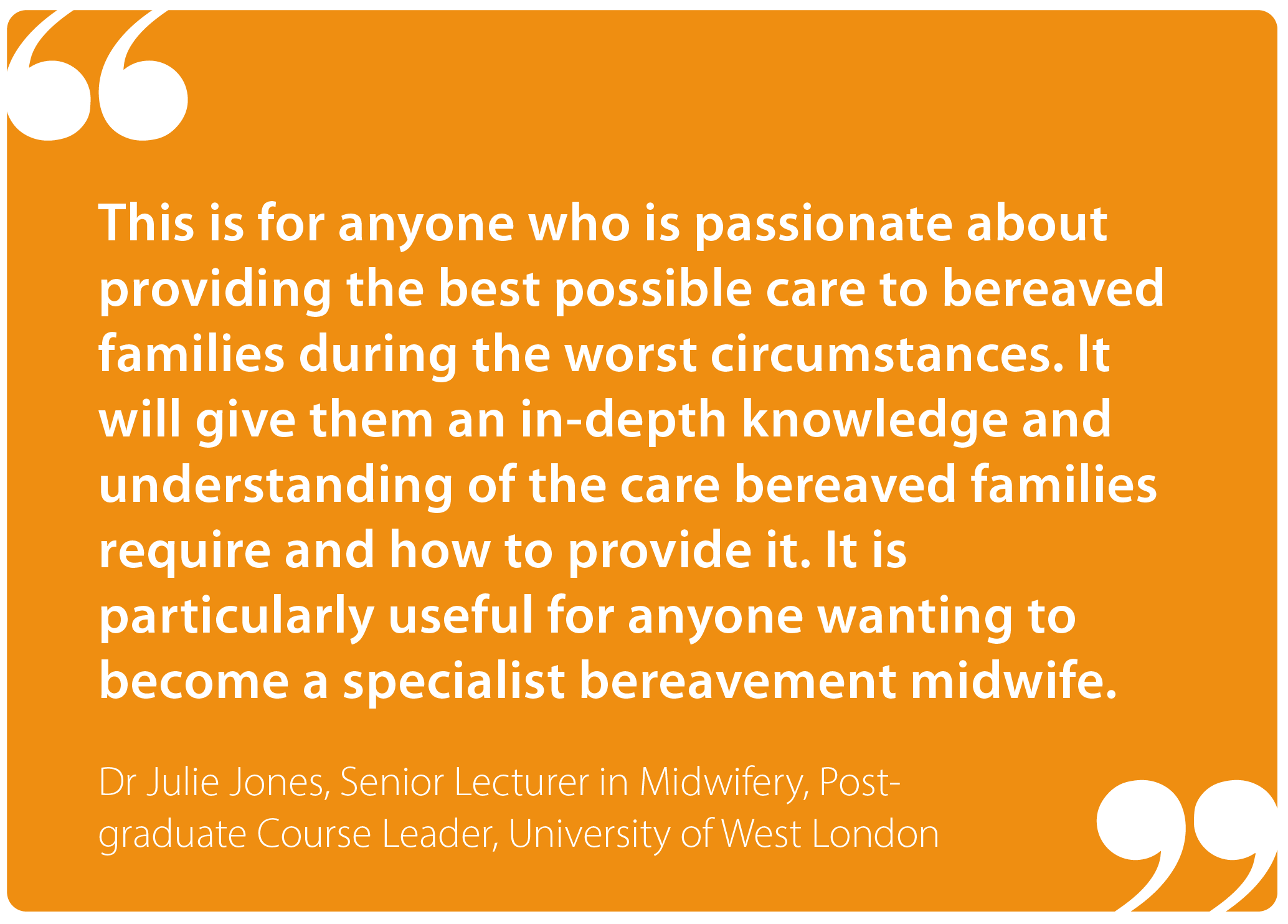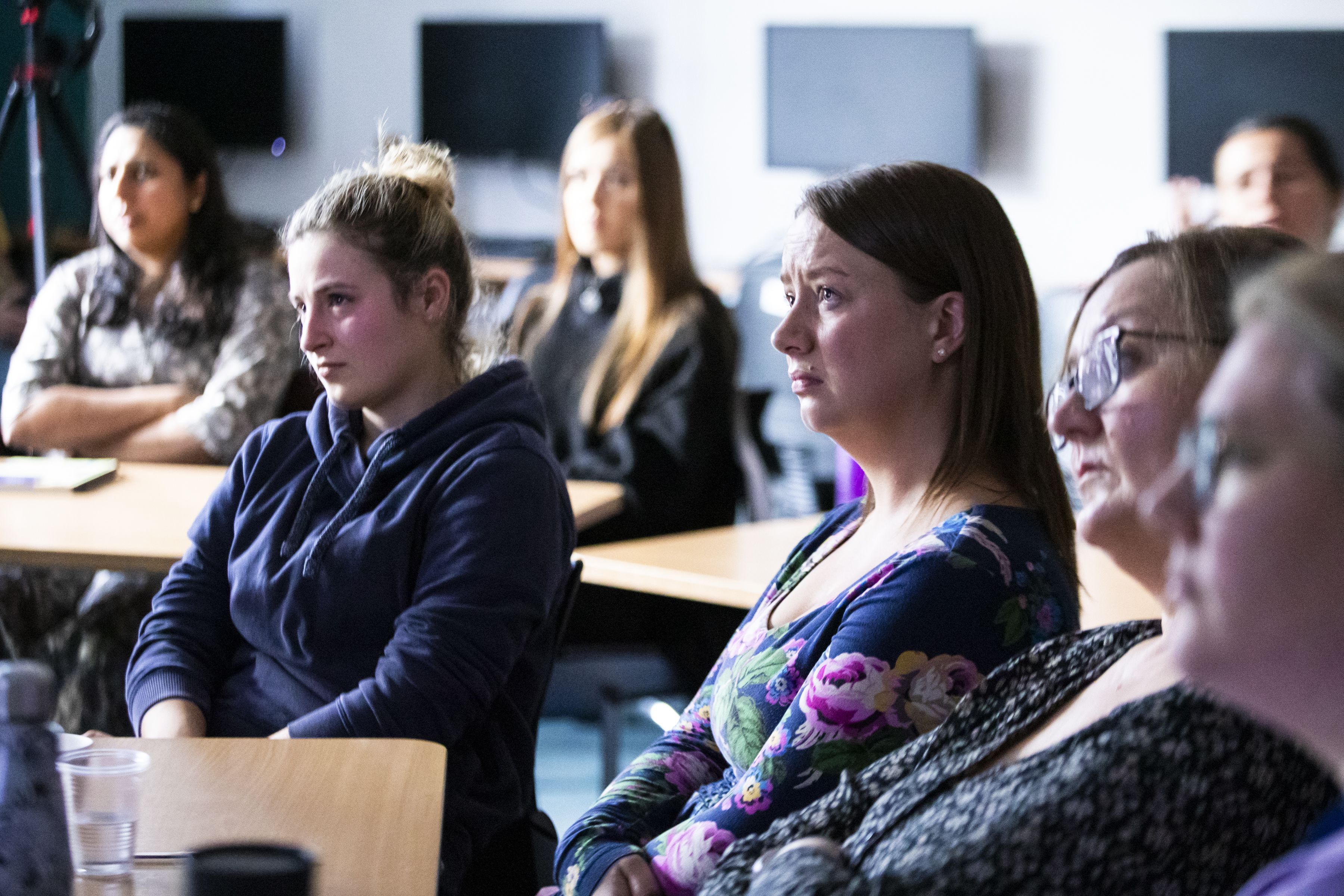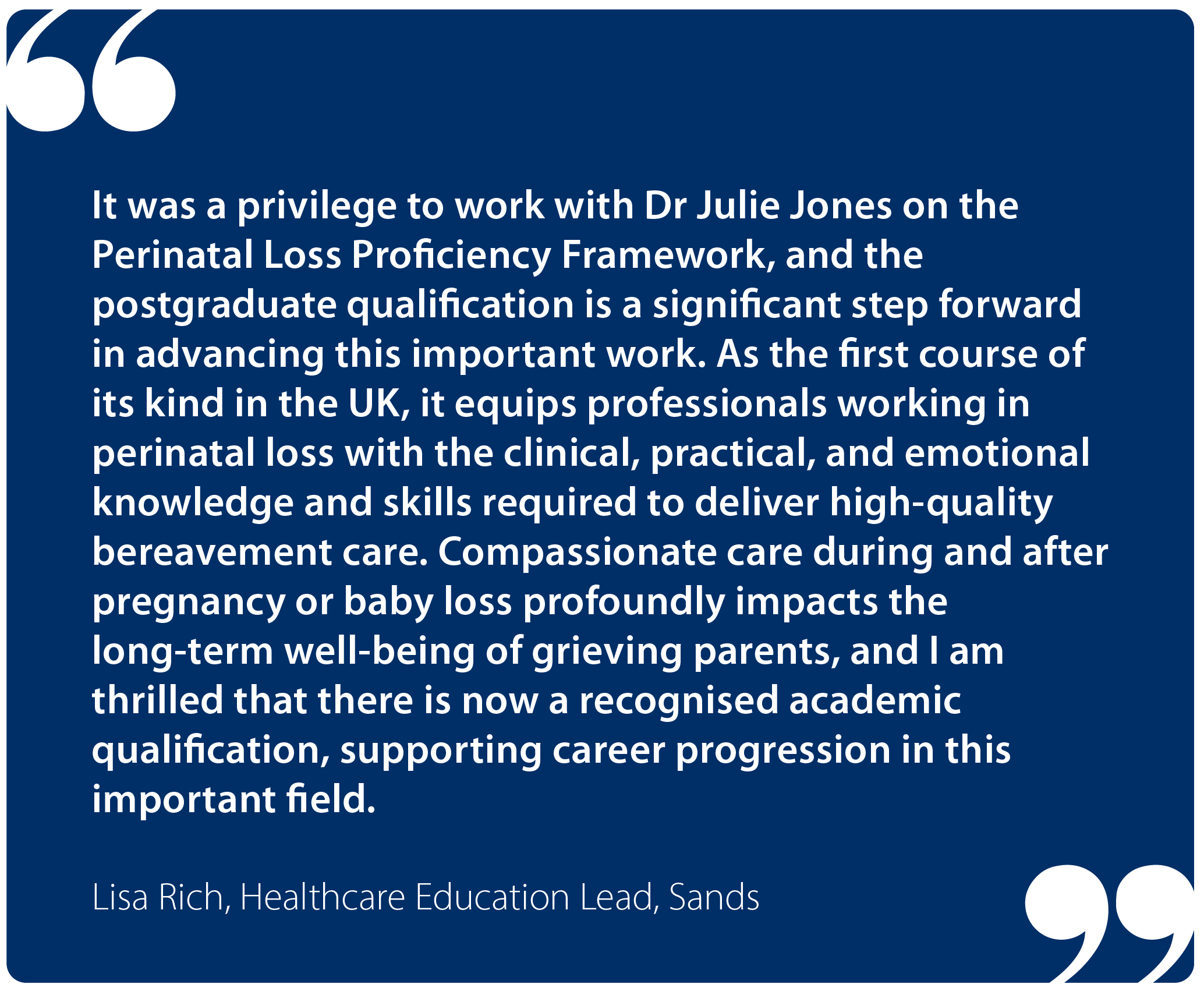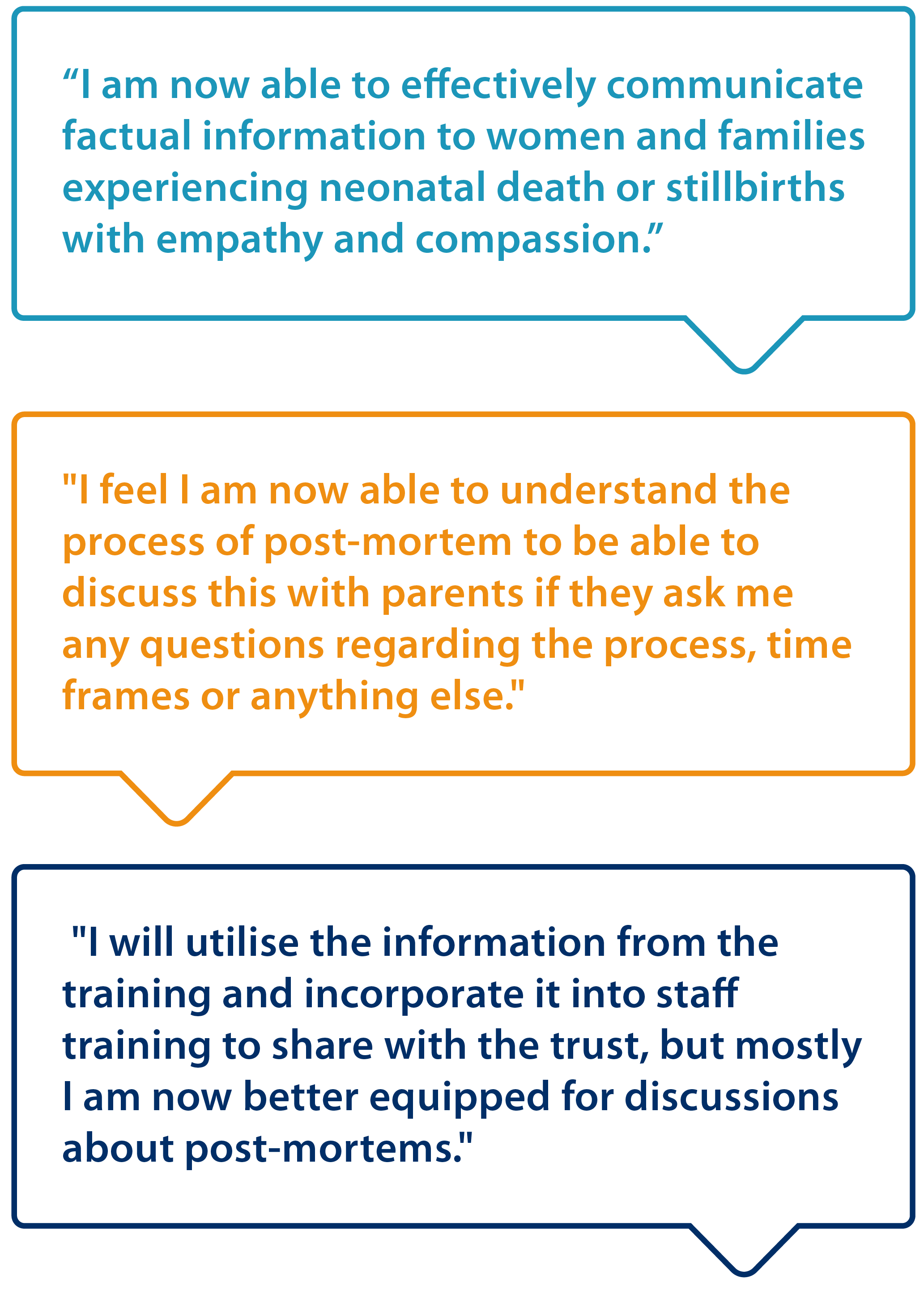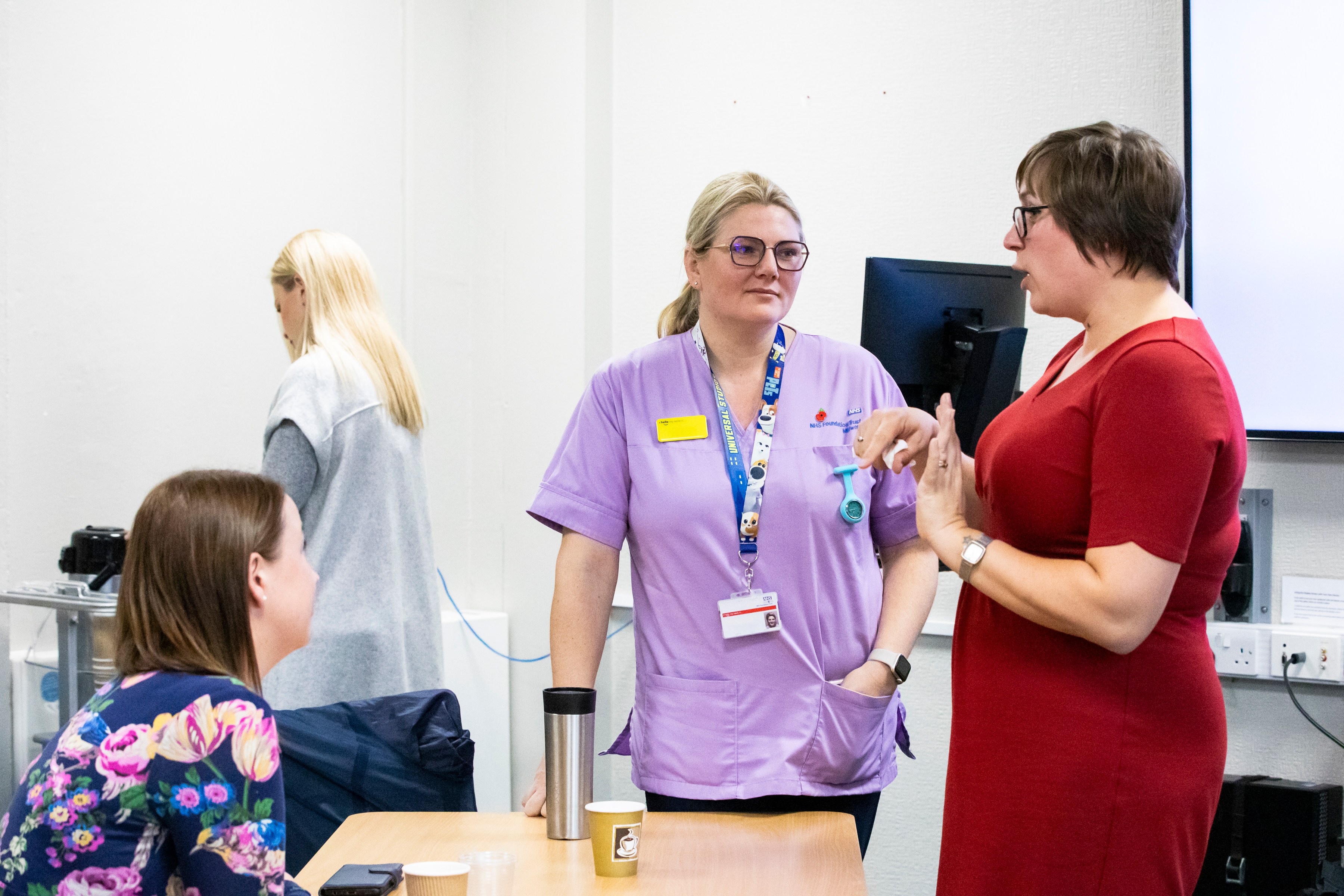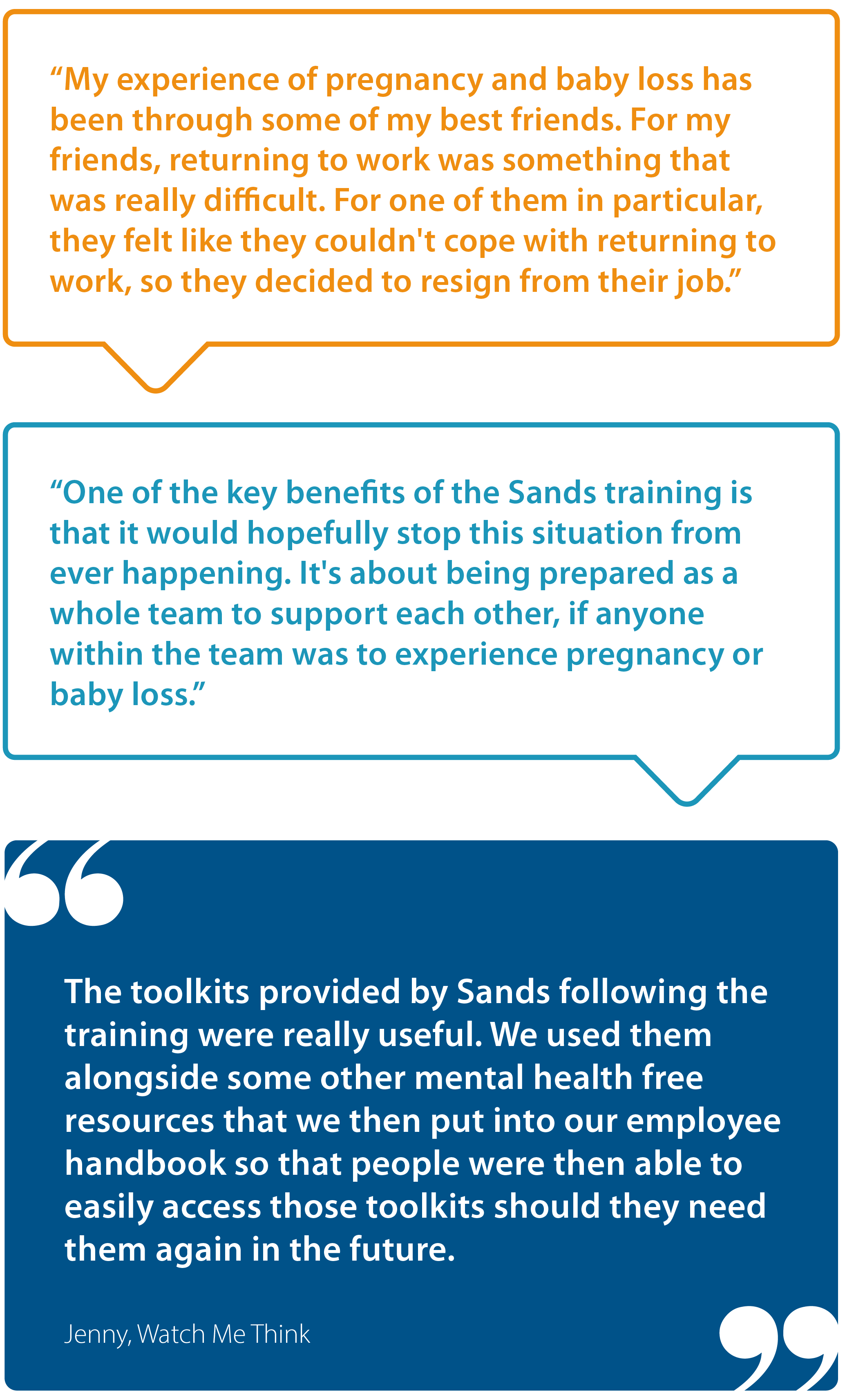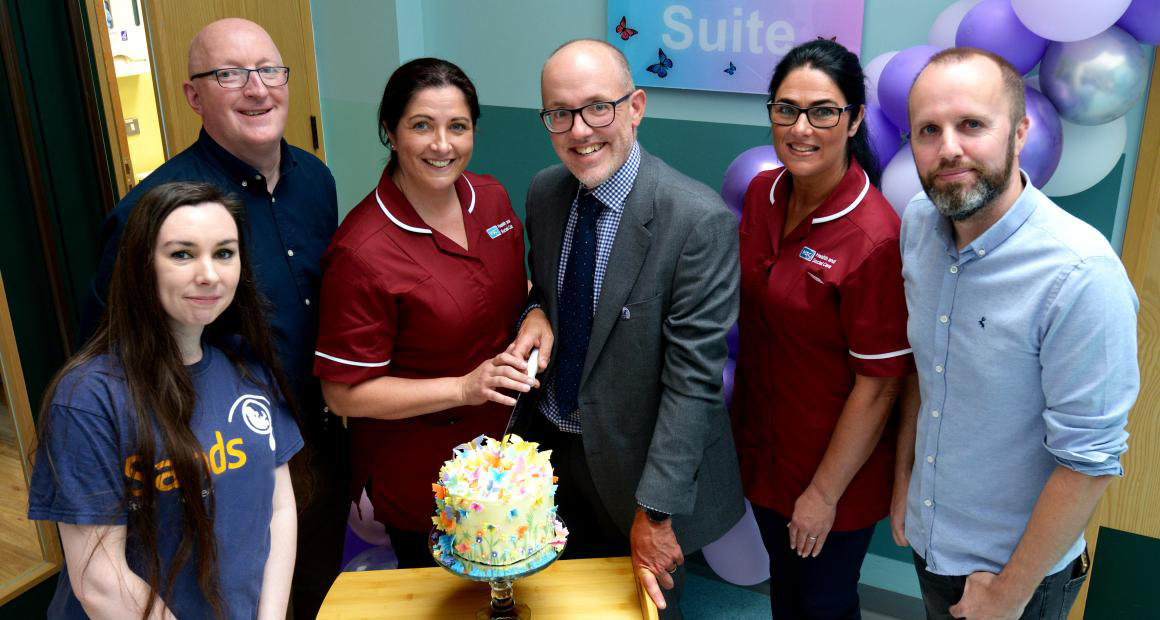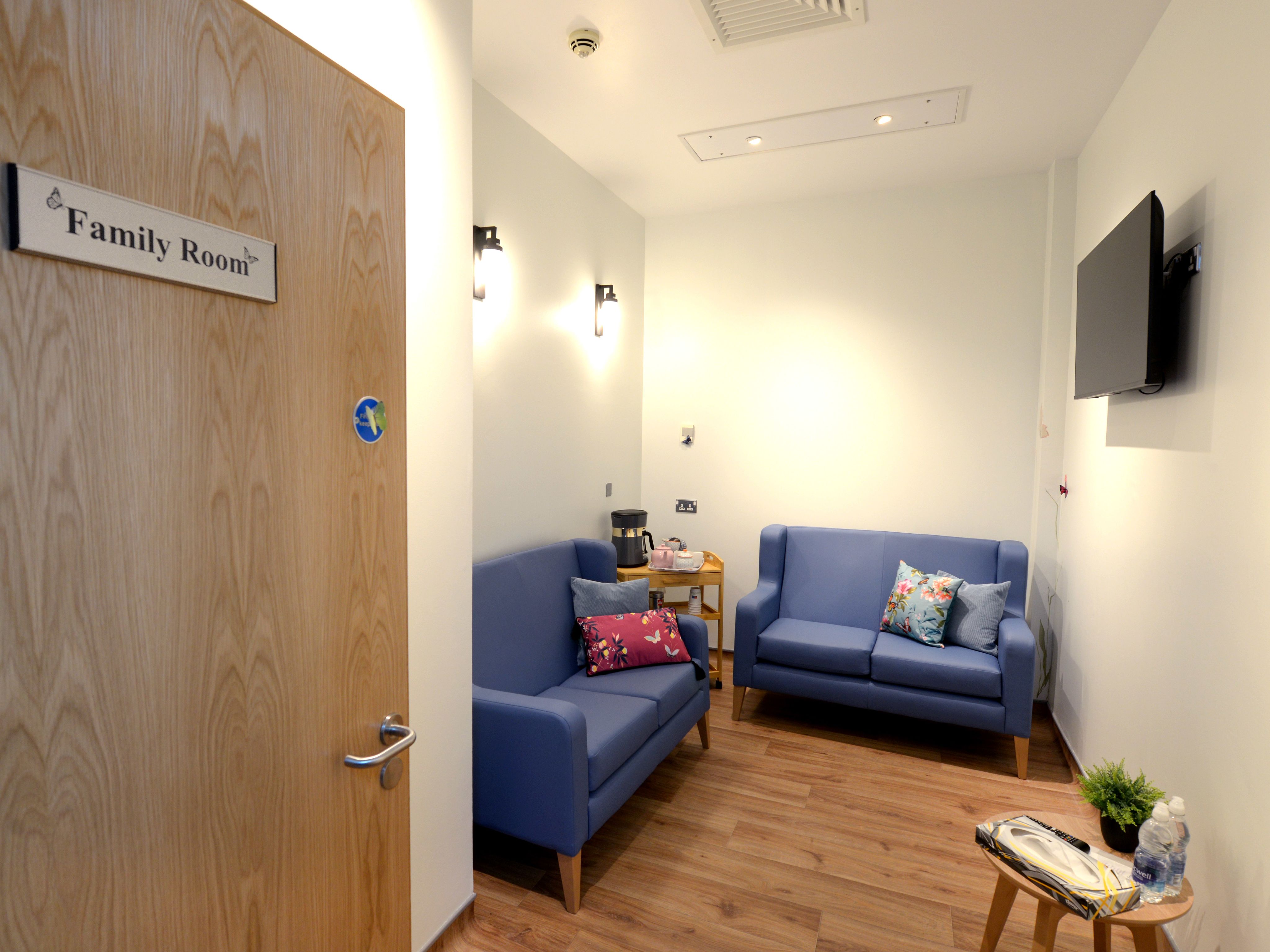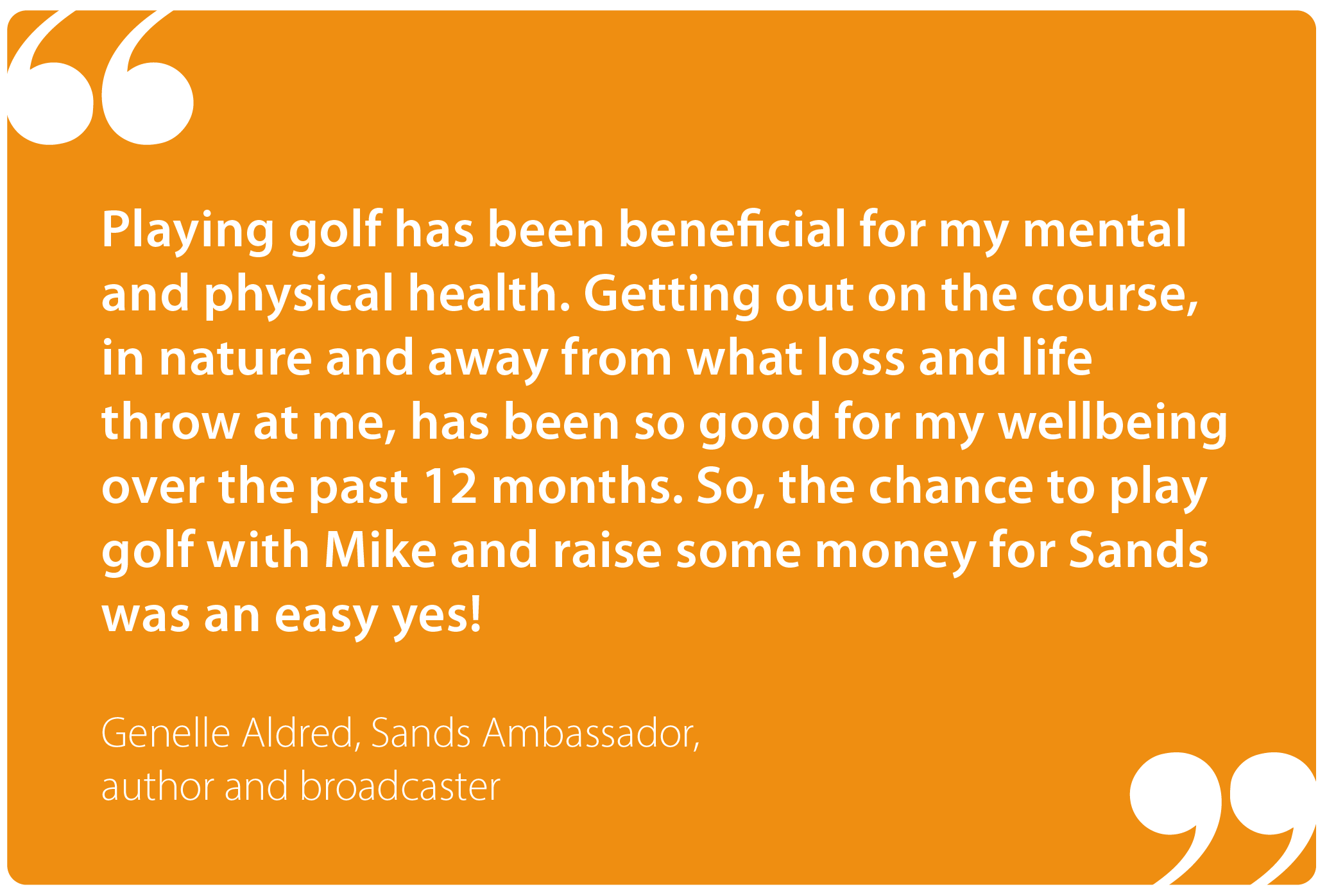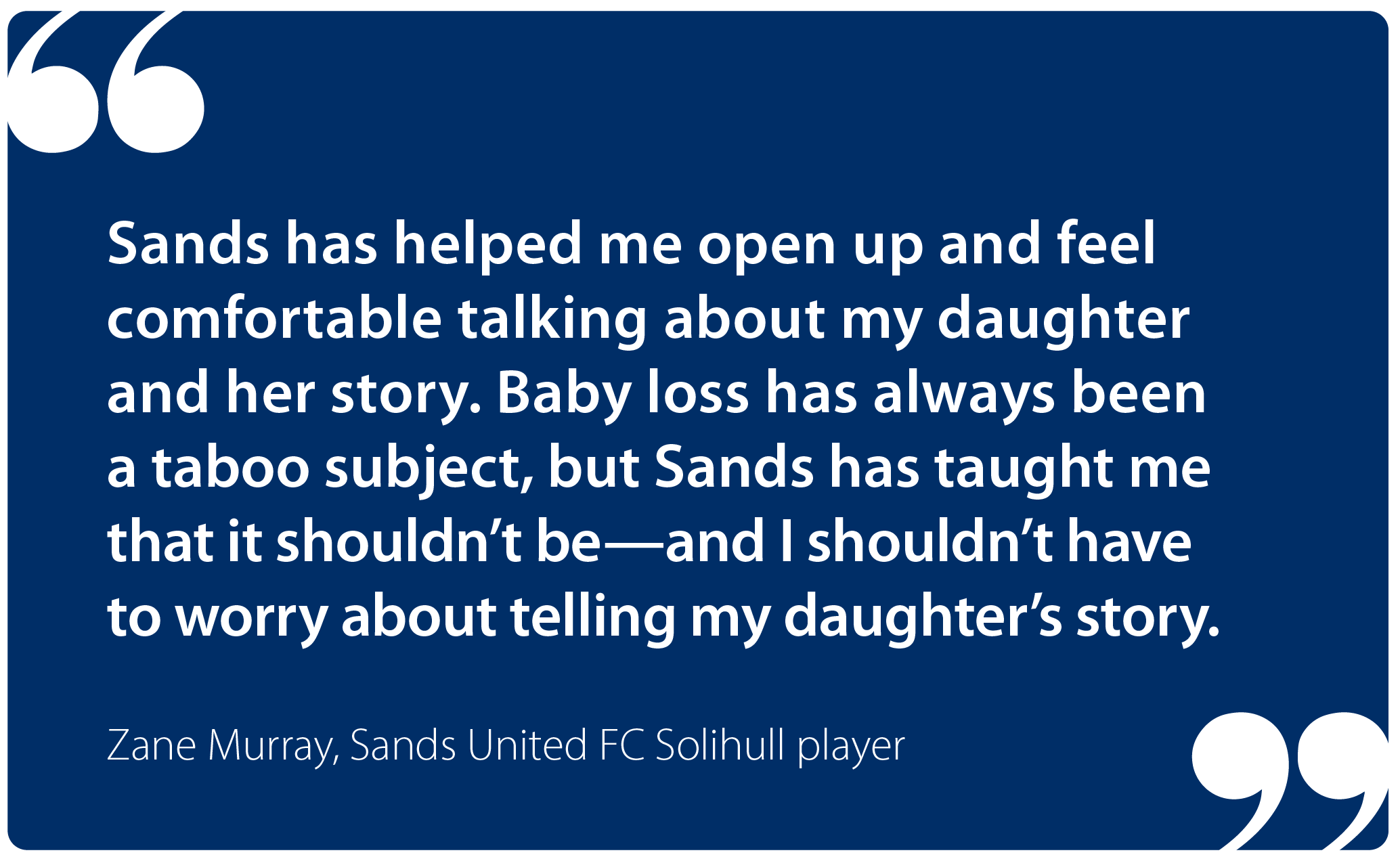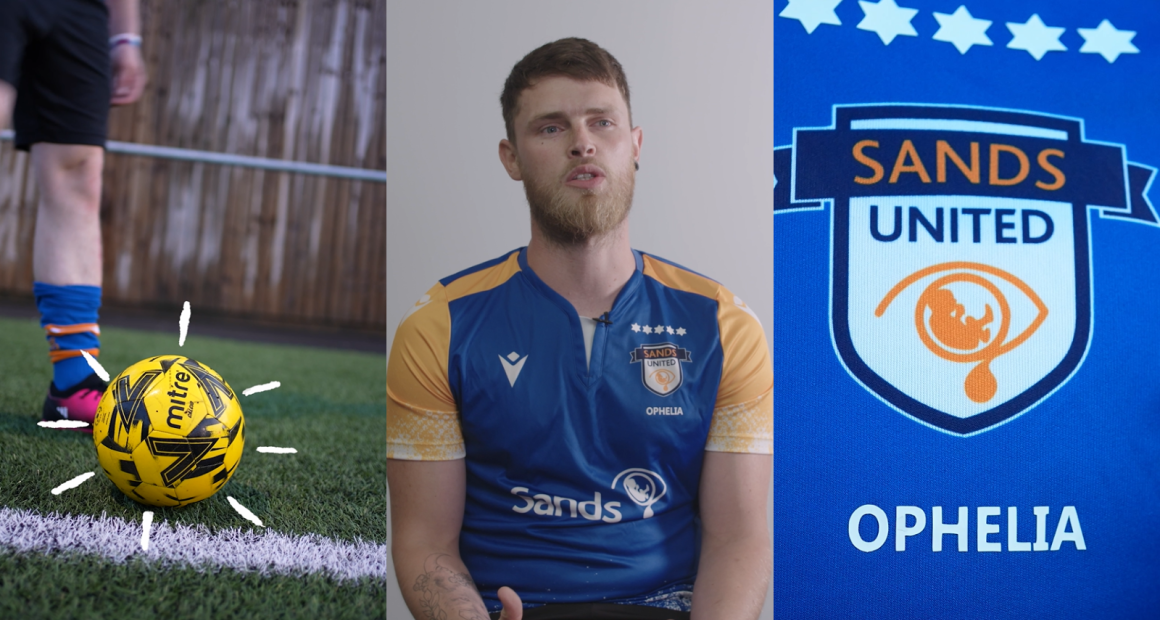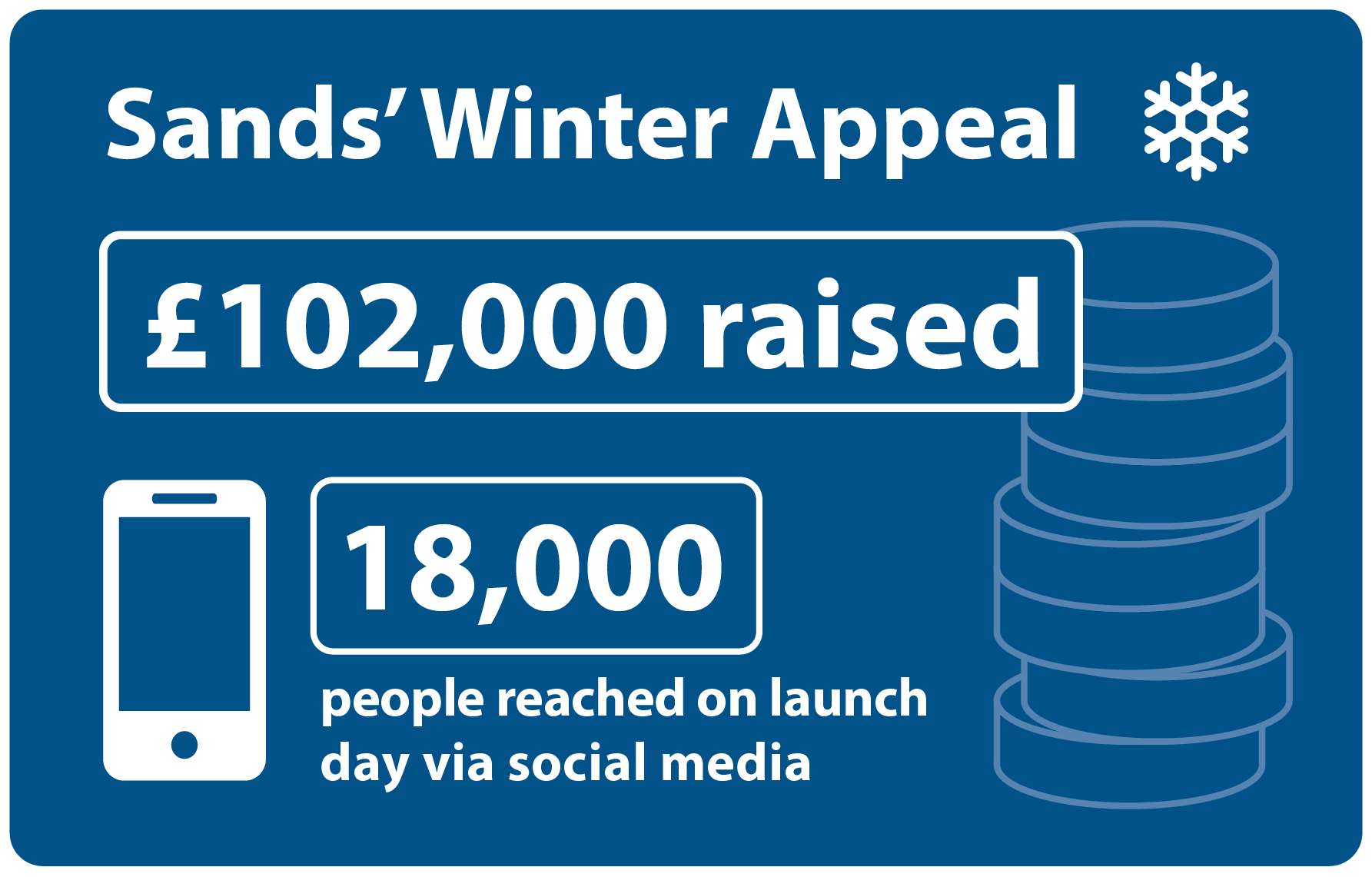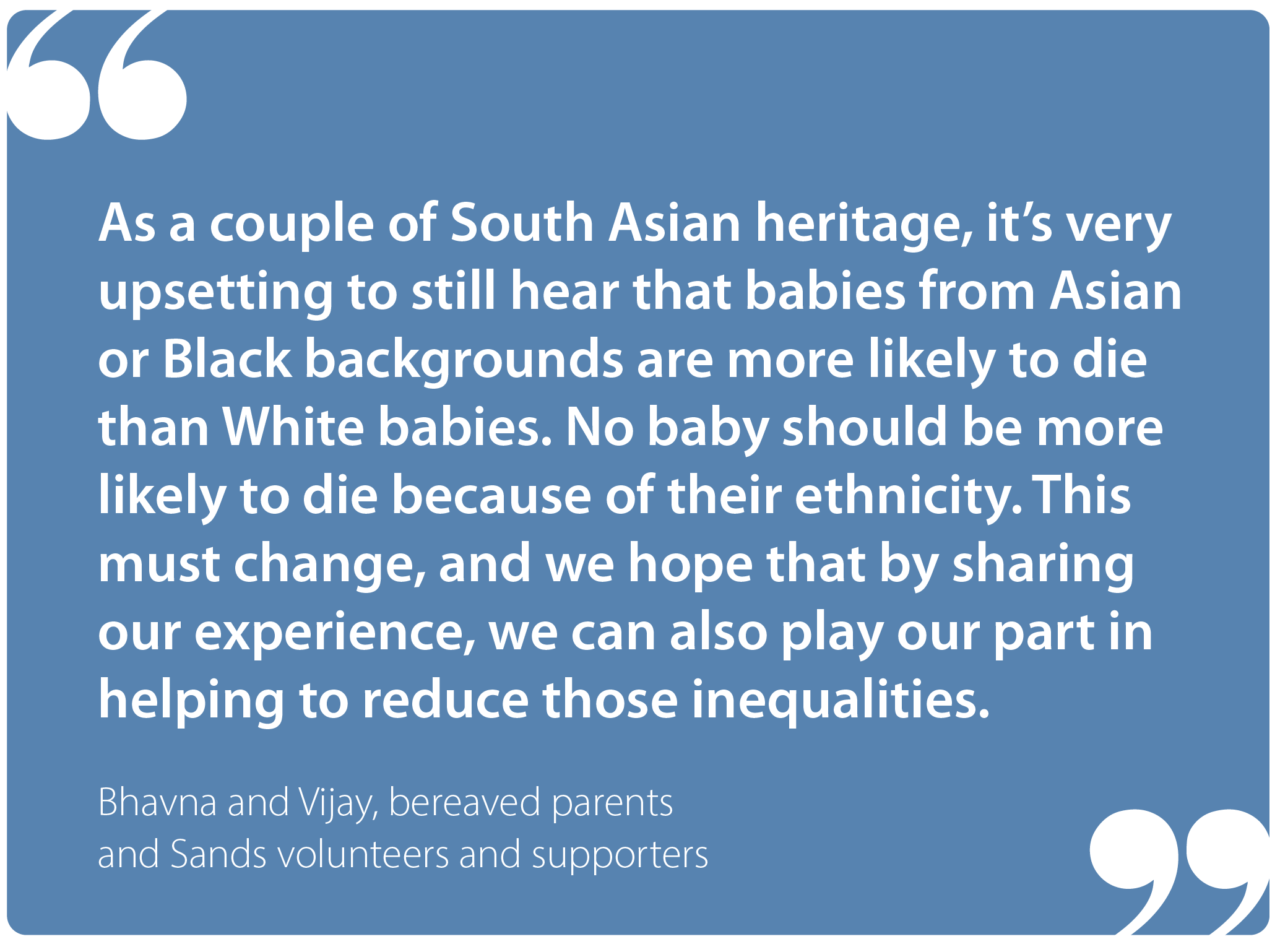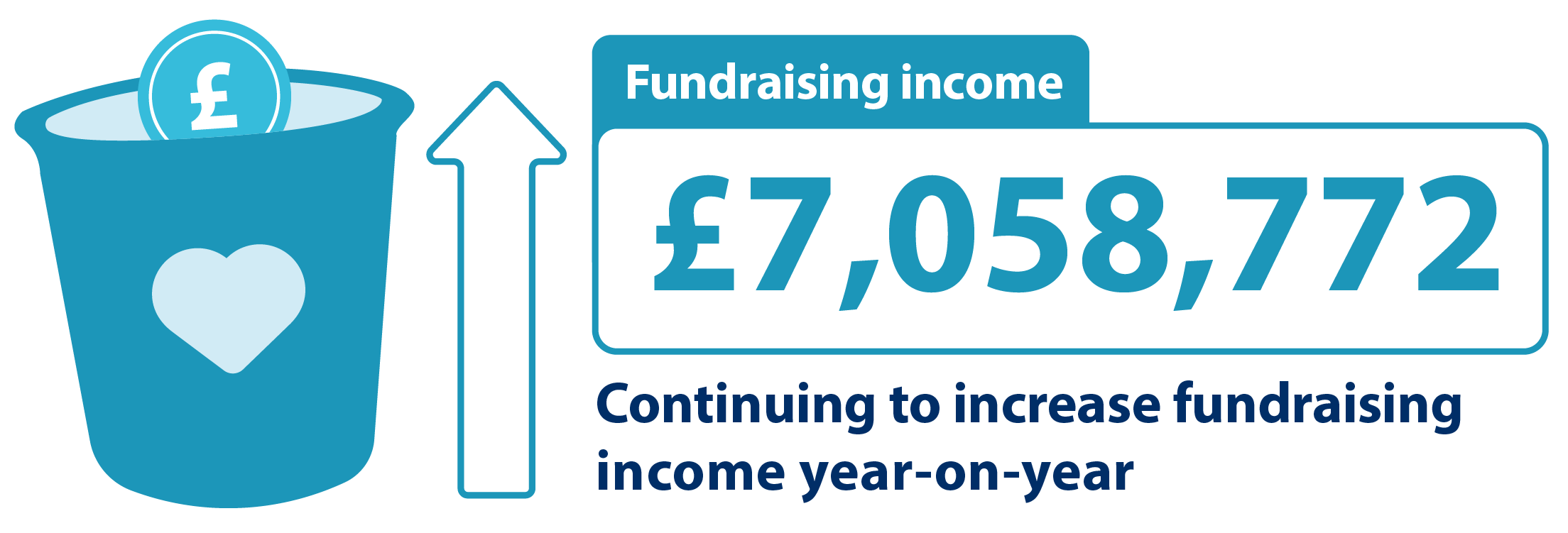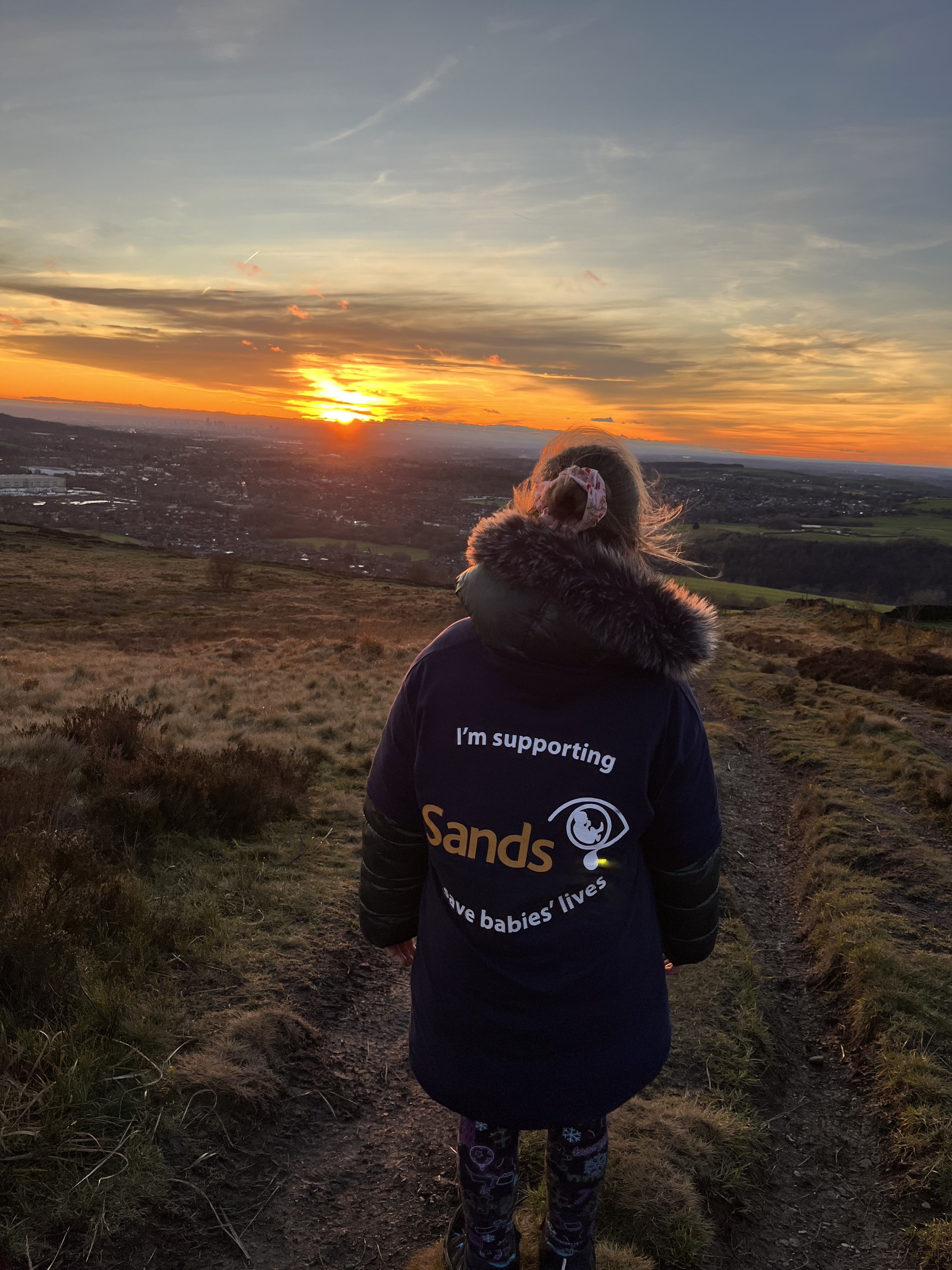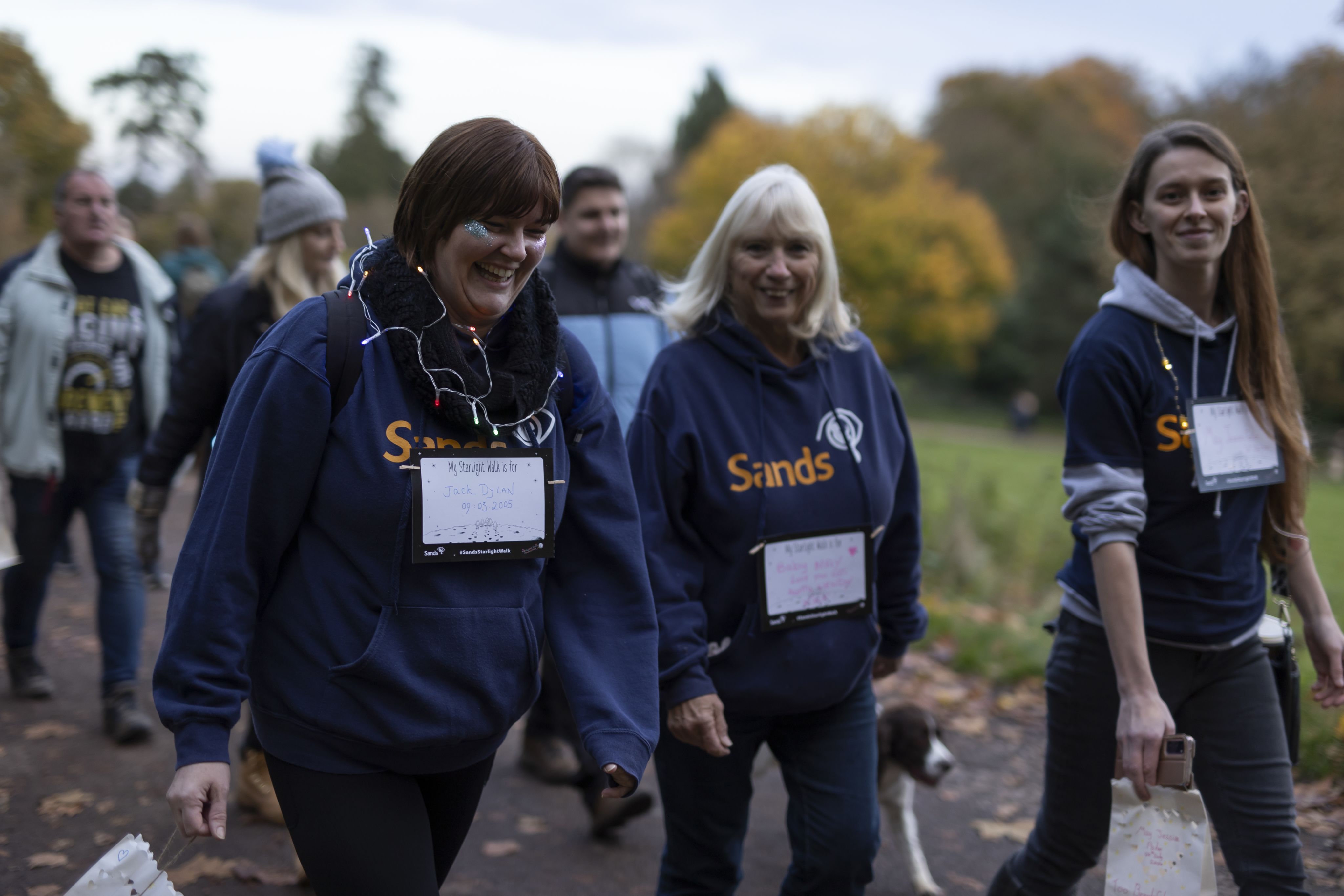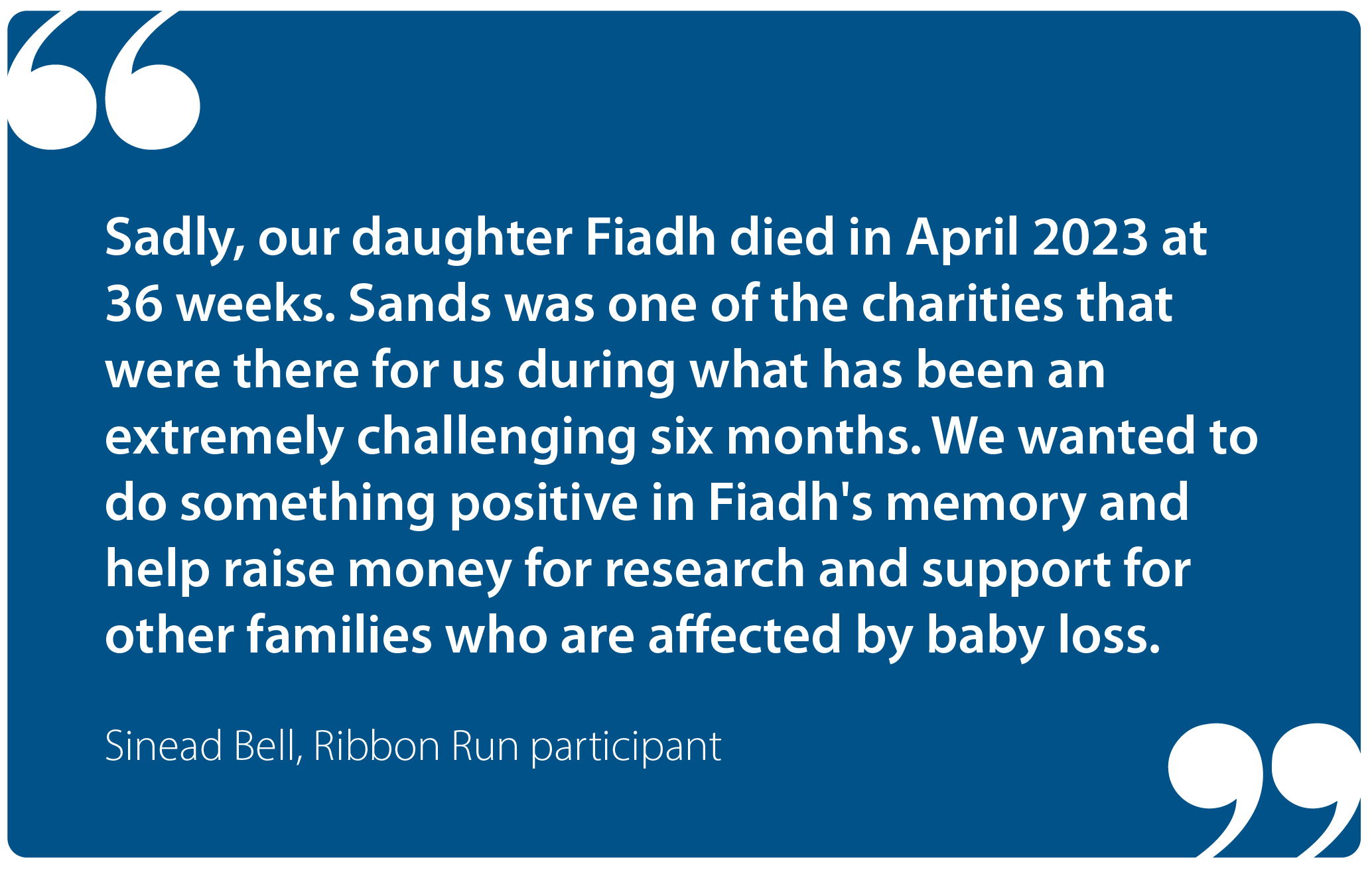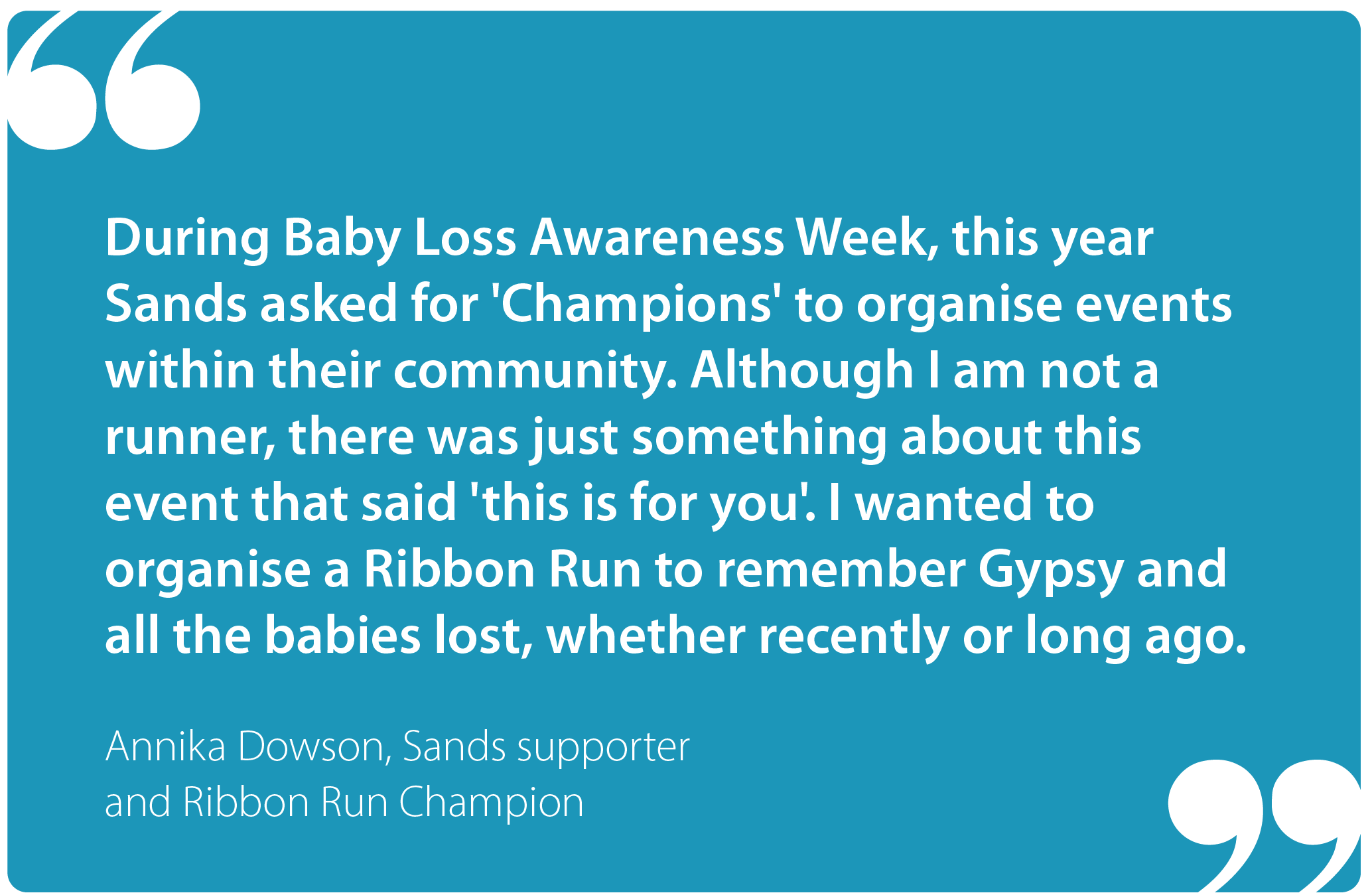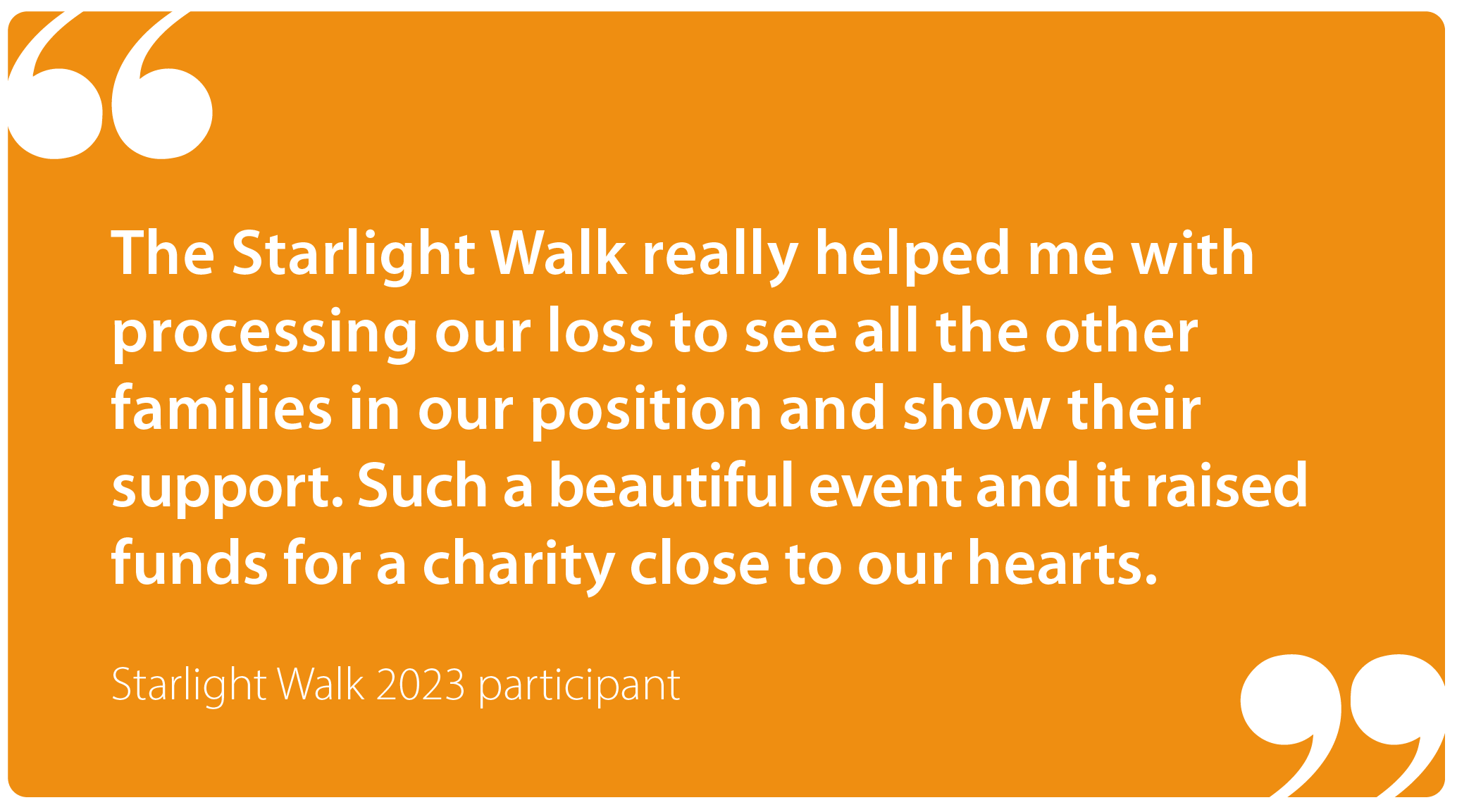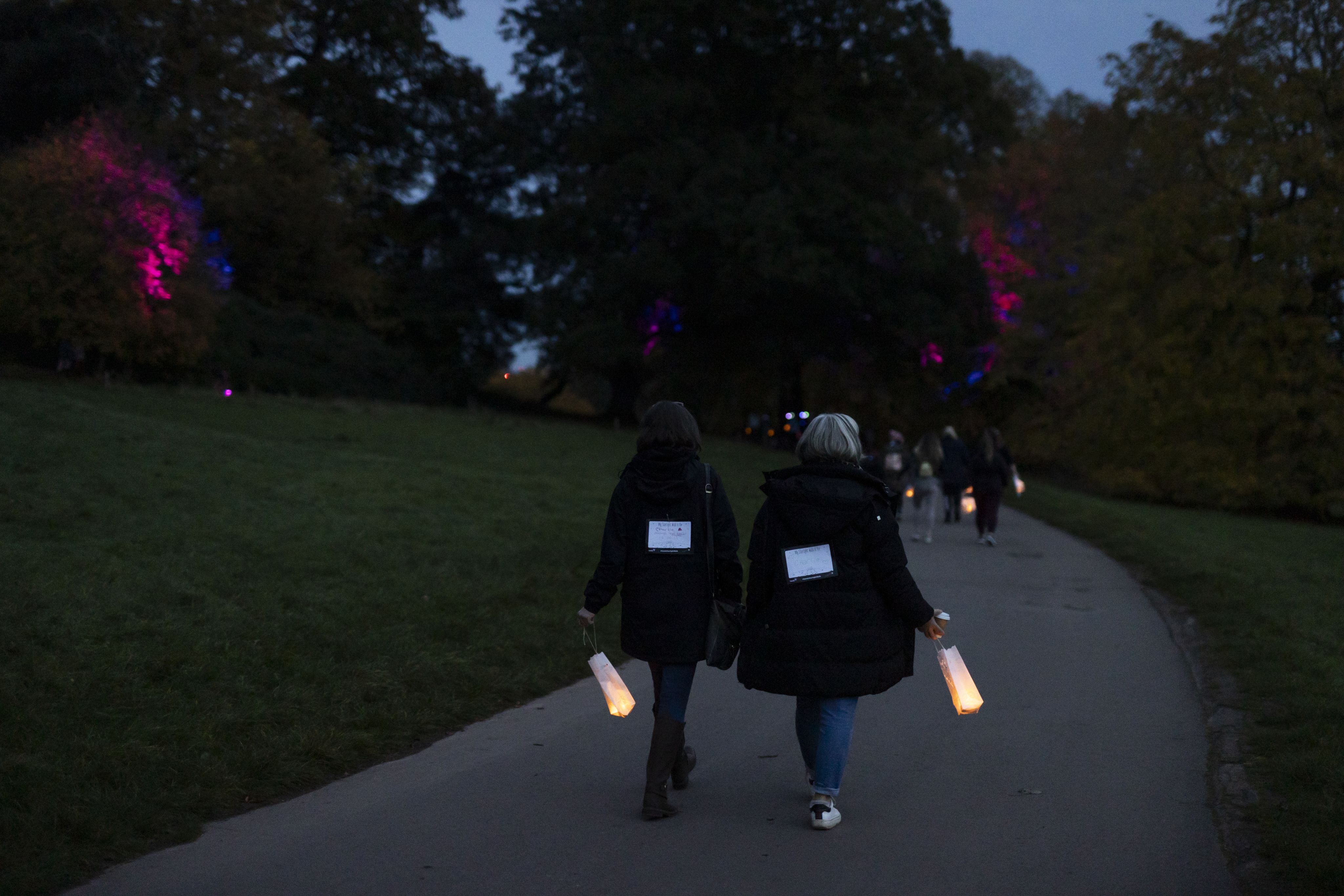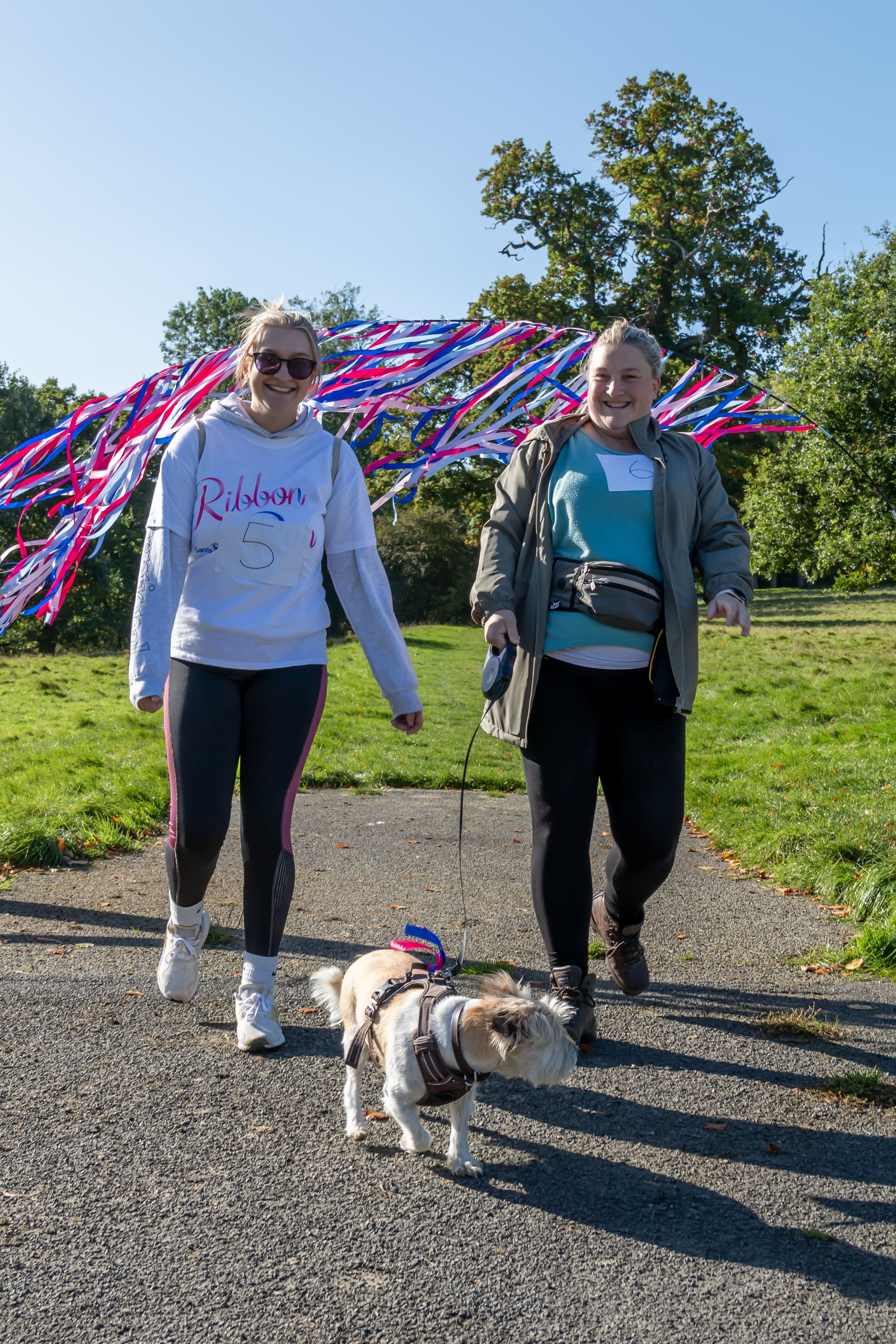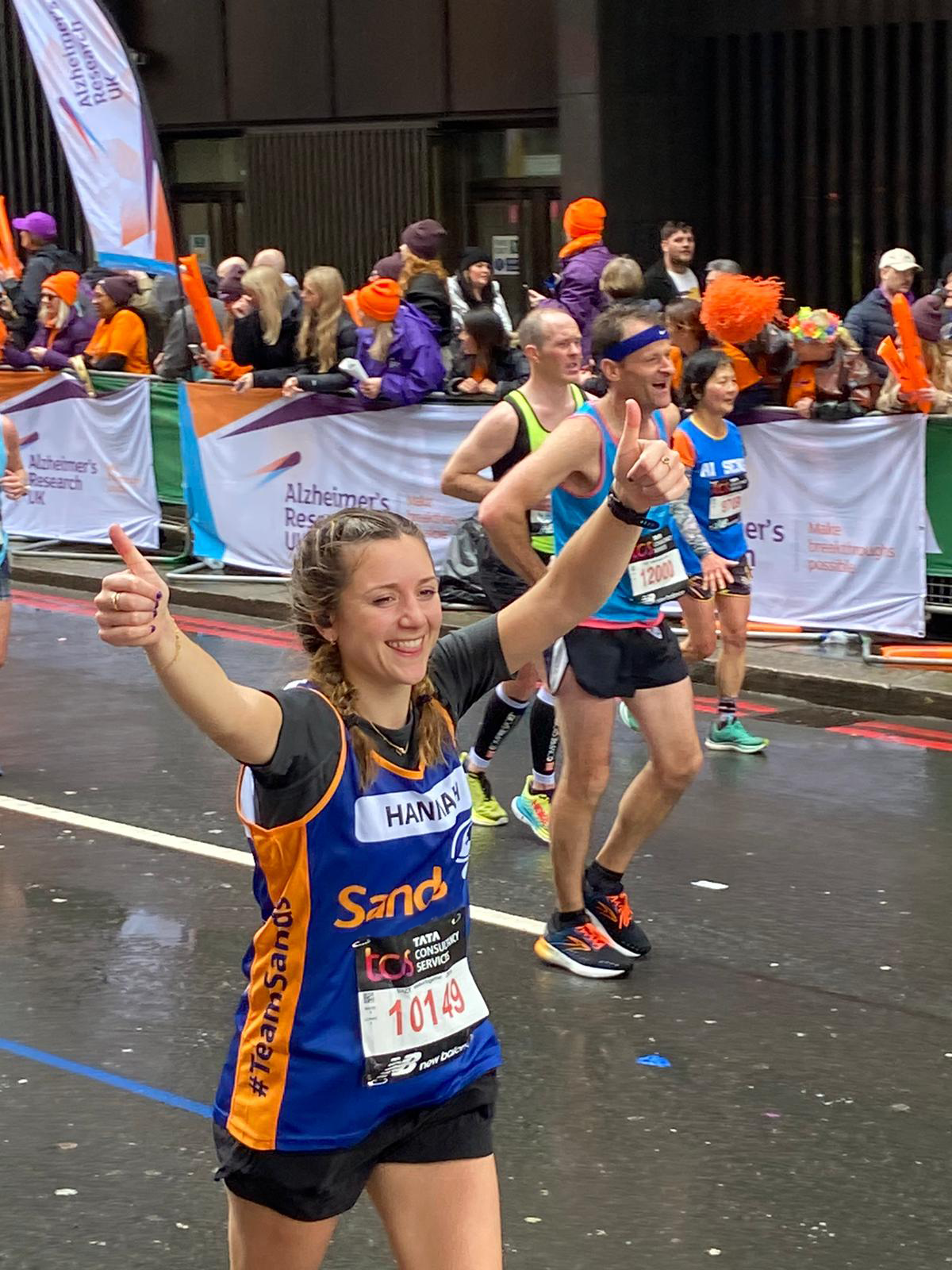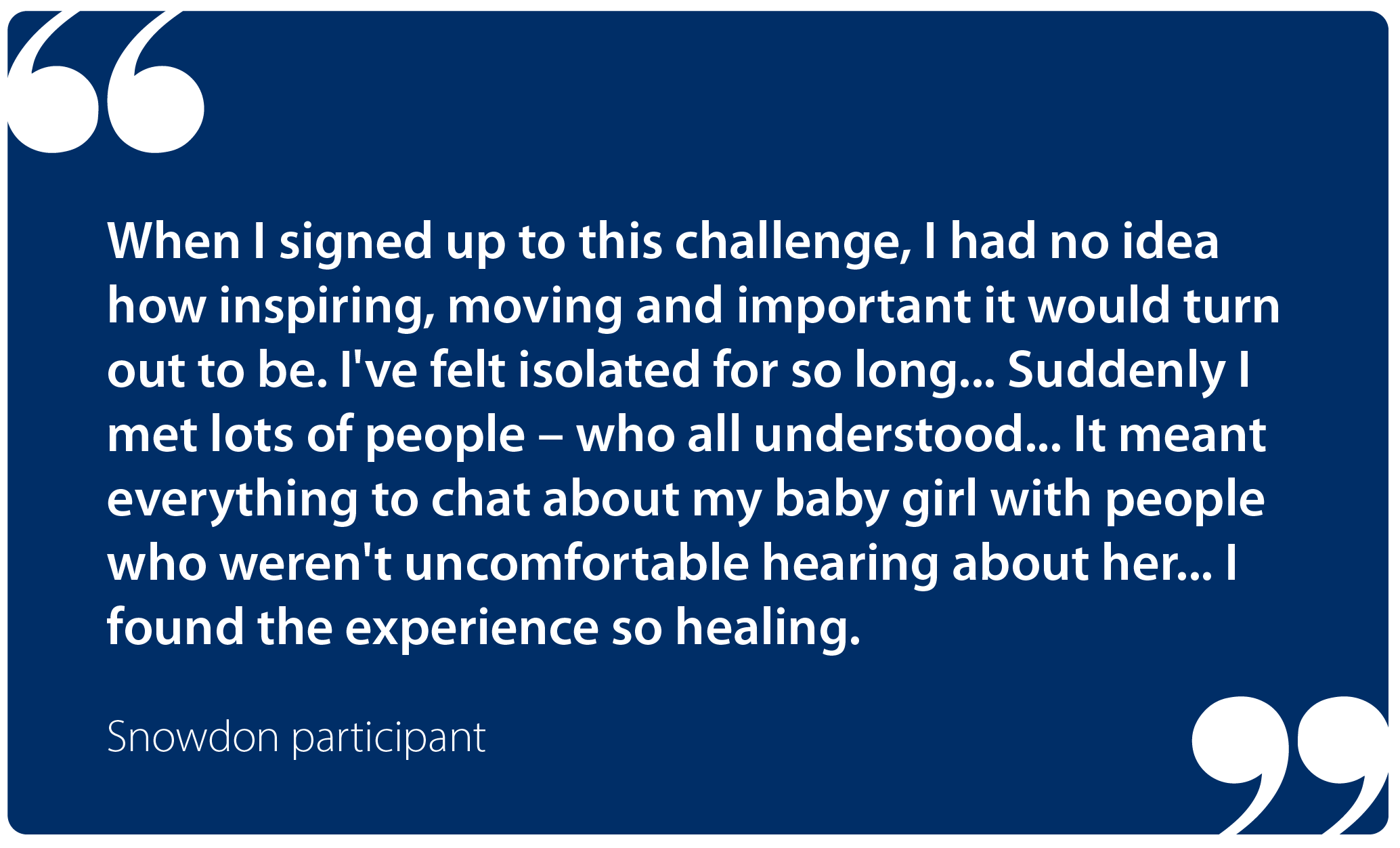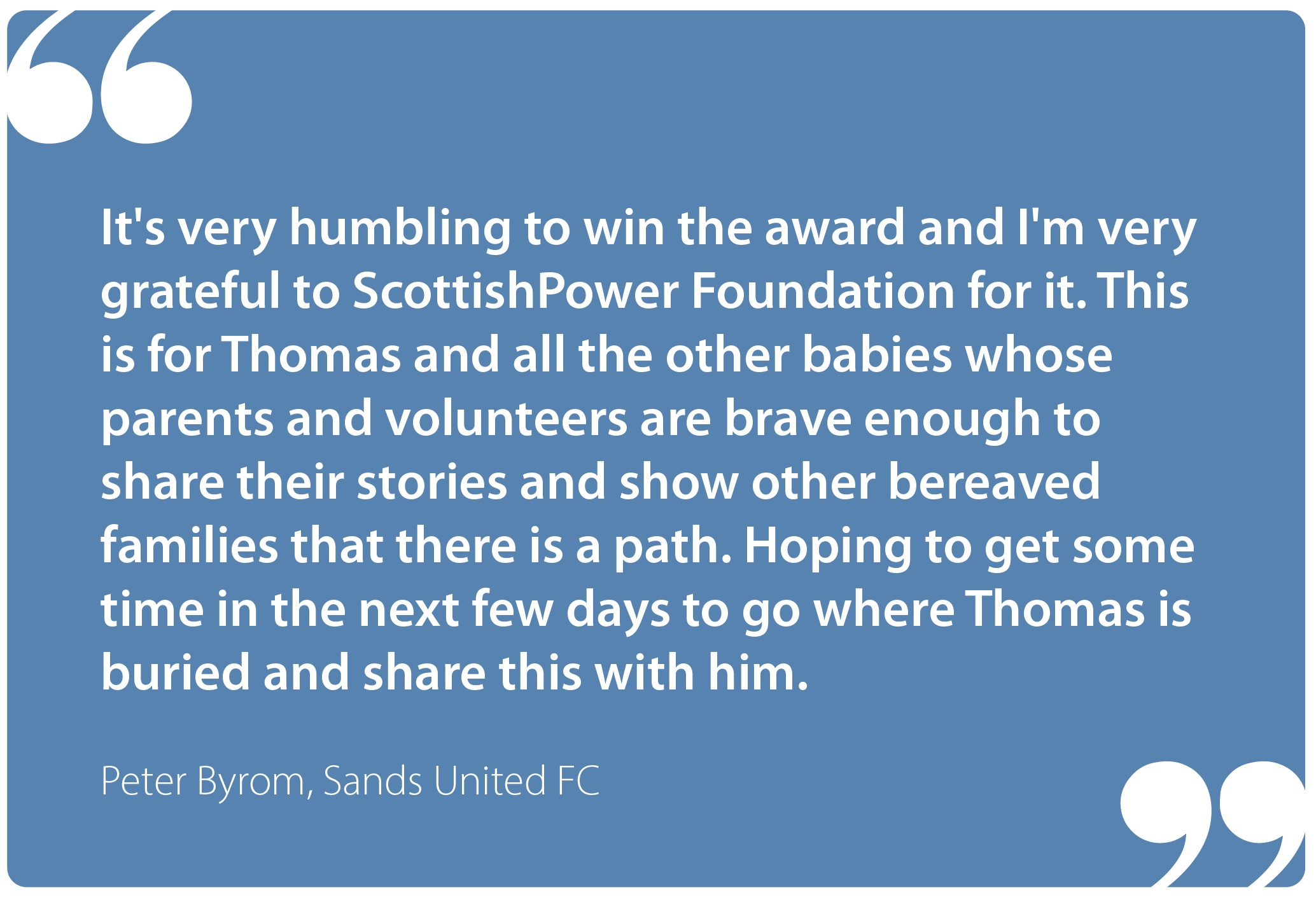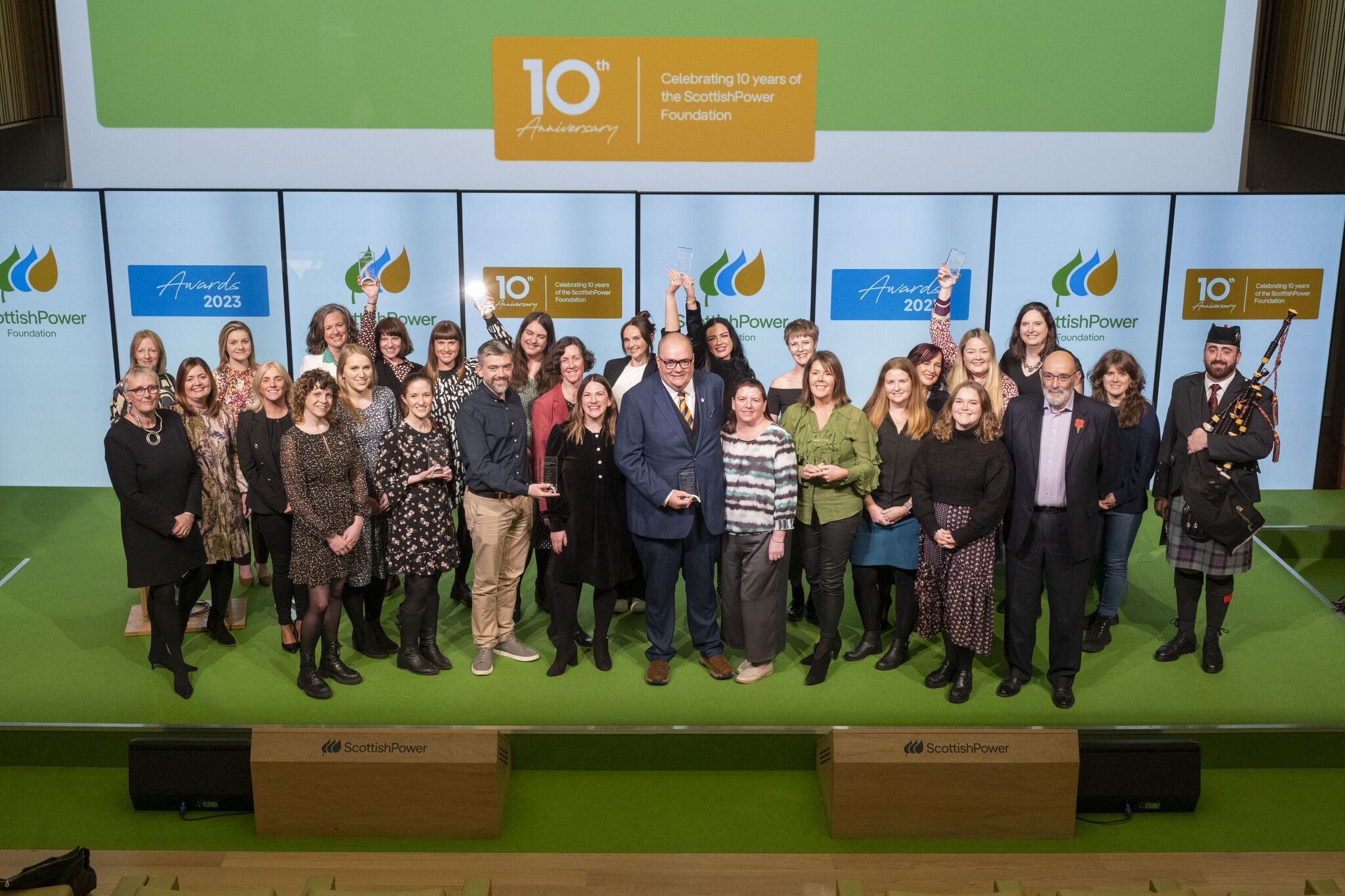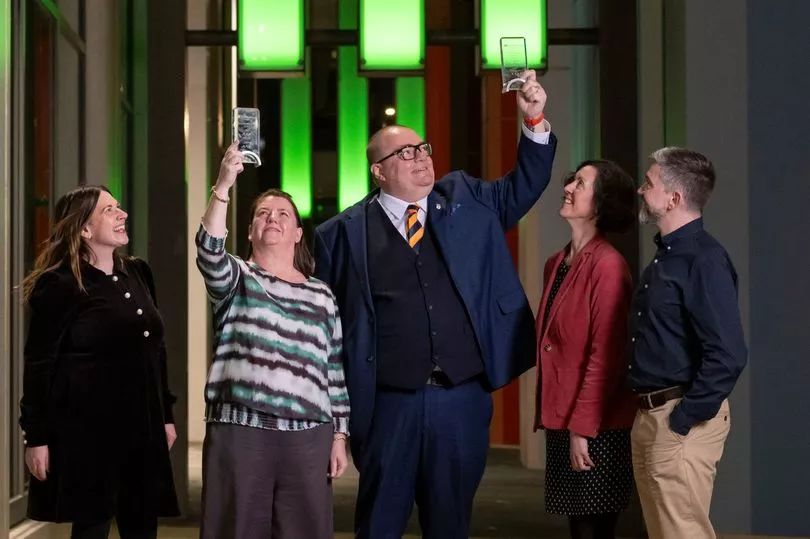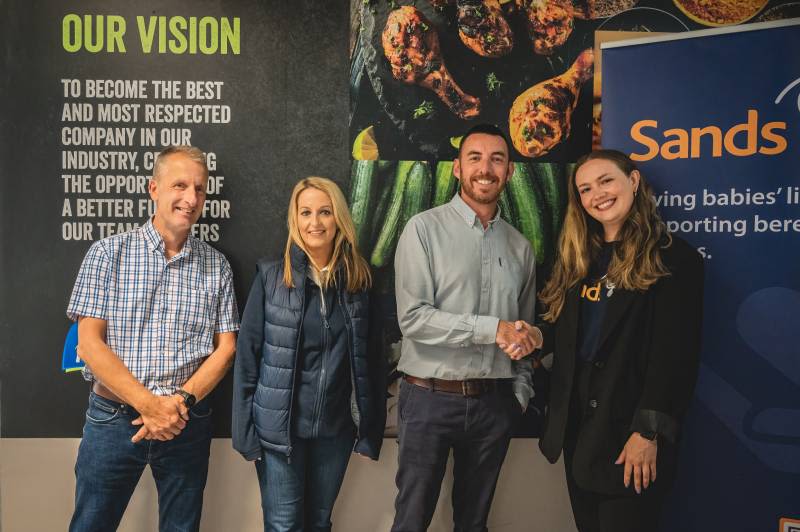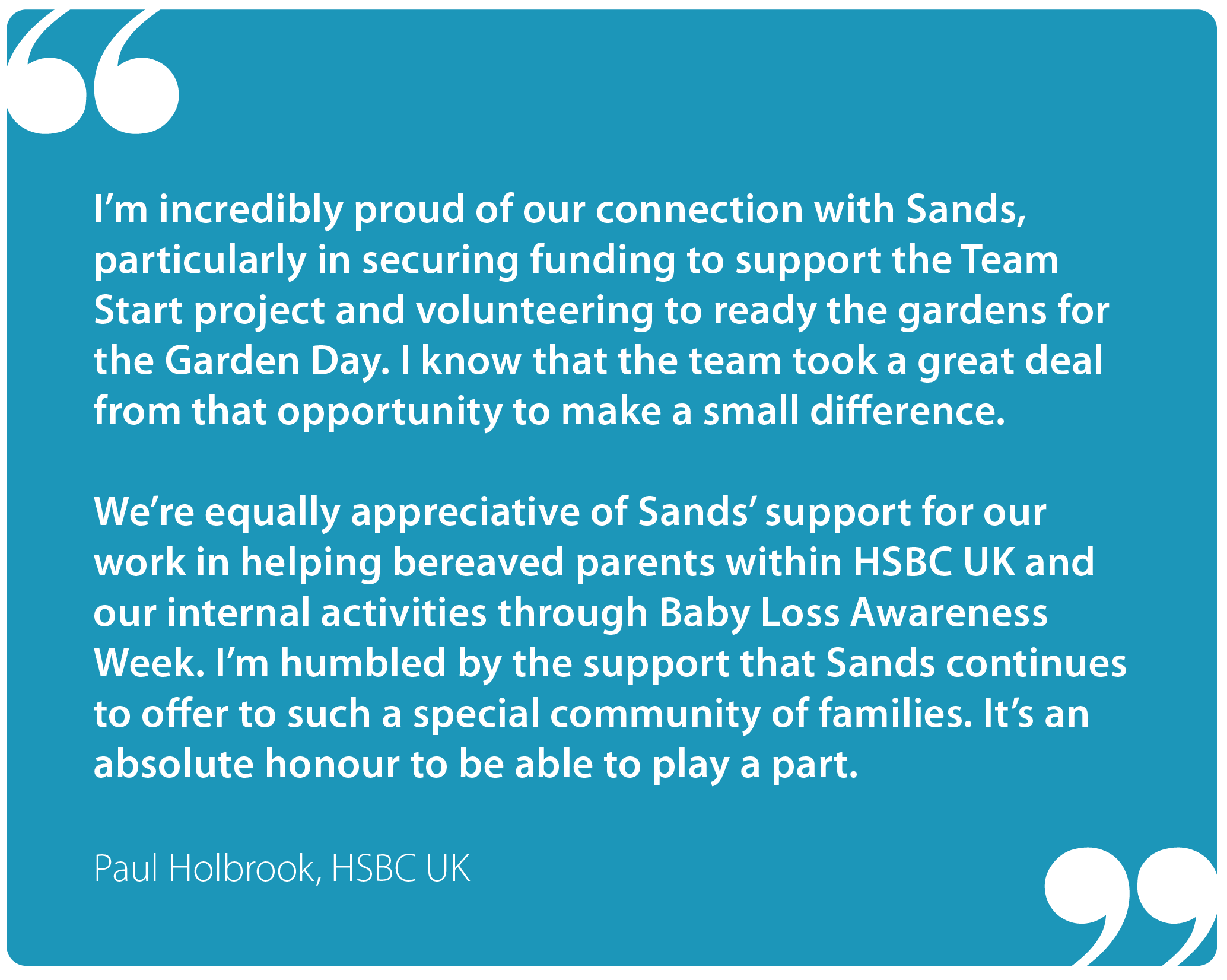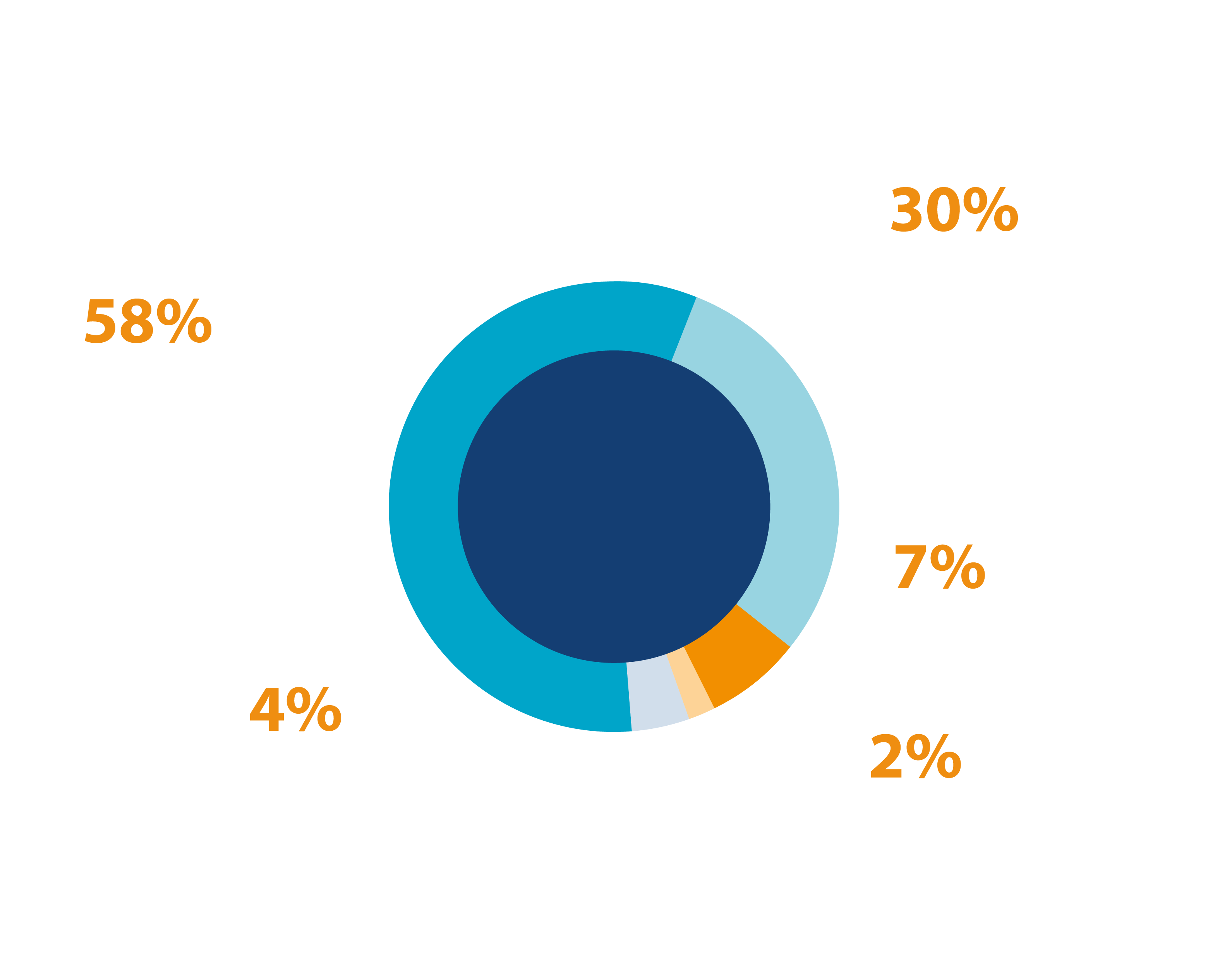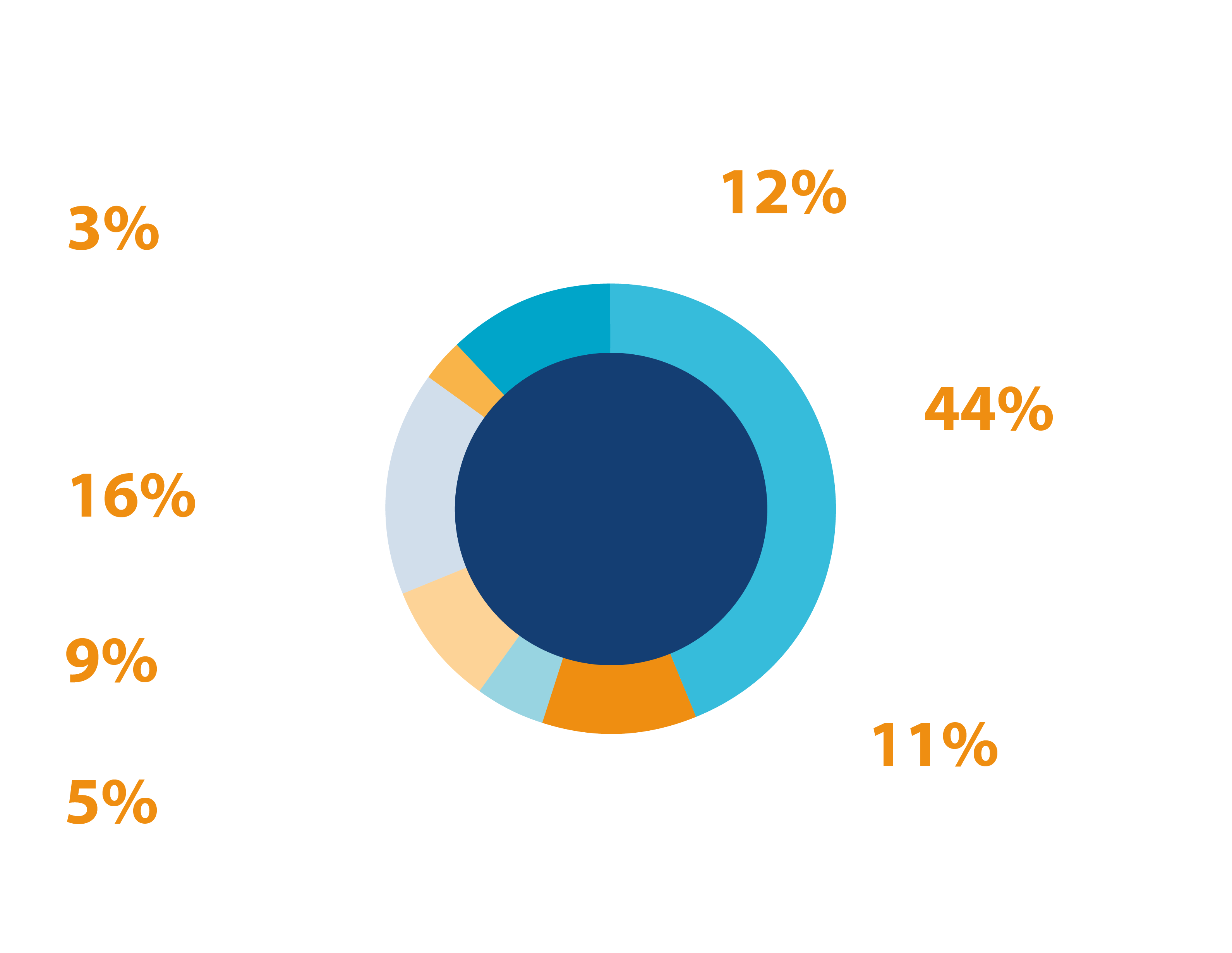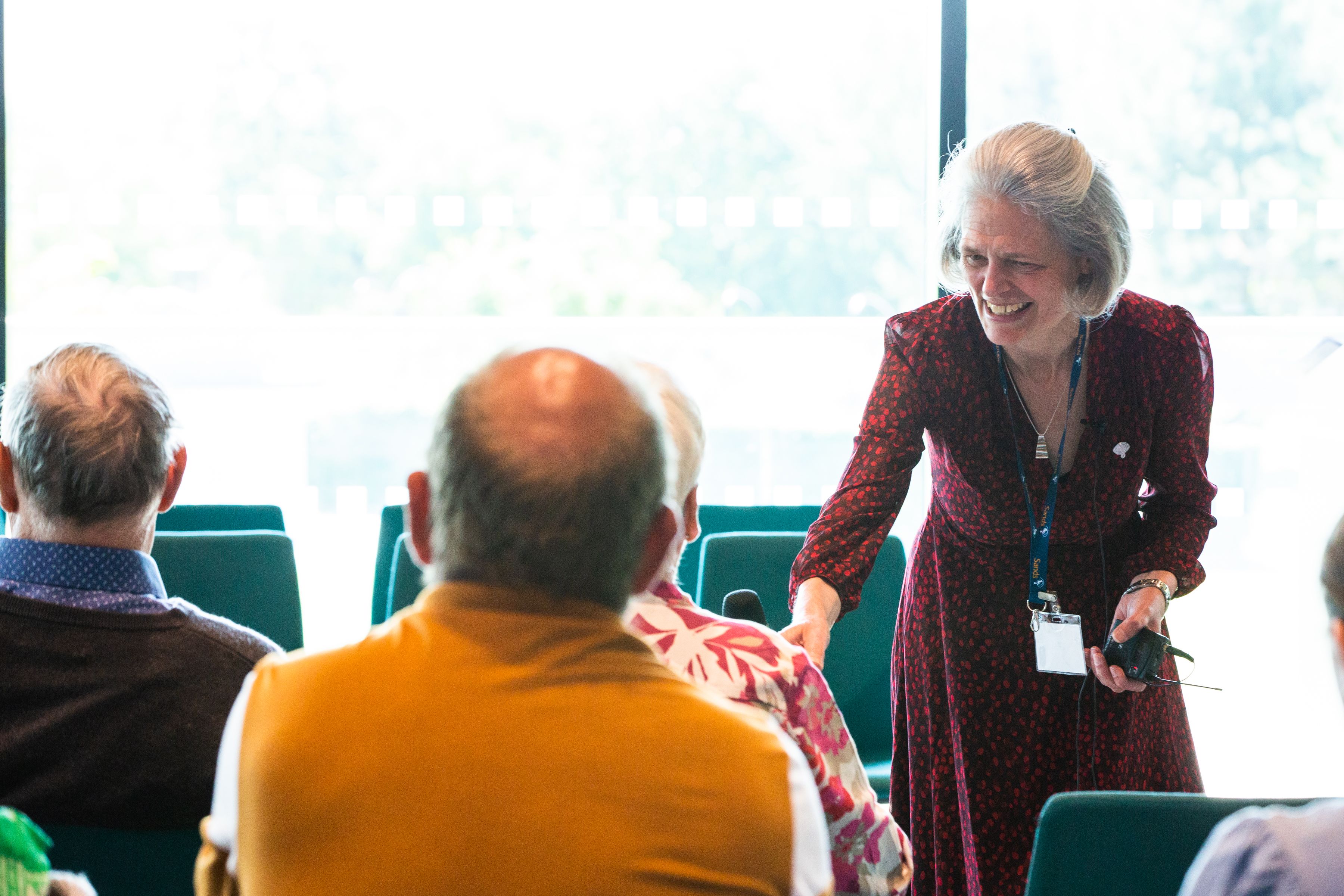Together,
We Are Sands
Sands Impact 2023-2024
Saving babies' lives. Supporting bereaved families.
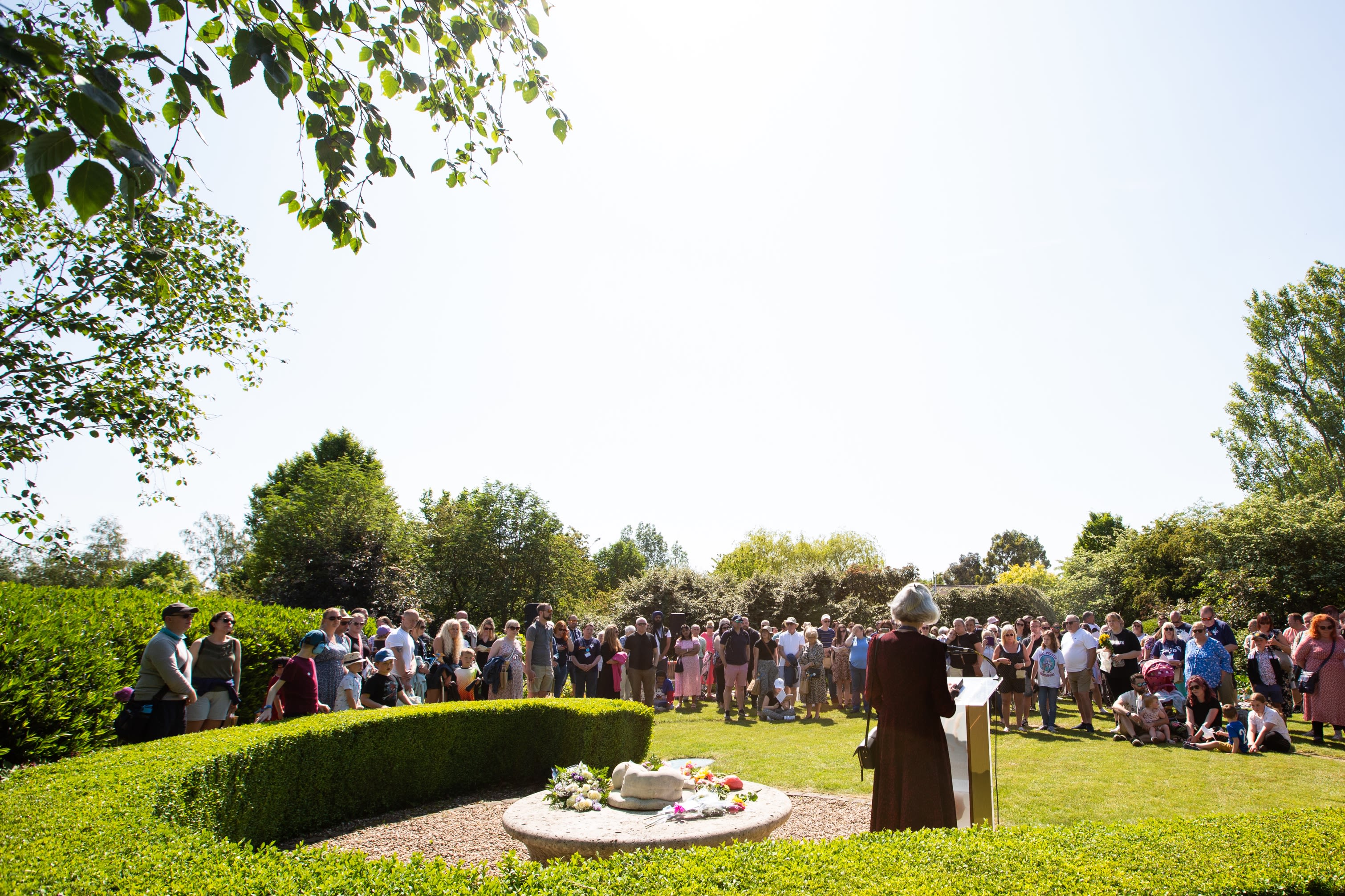
Welcome
Welcome to Sands’ impact report 2023-24, a snapshot of all the amazing work that has happened in the last financial year.
Behind every number and statistic in this report is the Sands community. Sands staff, volunteers, supporters and partners who work together to save babies' lives and support bereaved families.
As this report is published, I will have completed my six-year term as Chair of the Board of Trustees. Congratulations to Dr David Hall, who takes over from me, and who I know will do a fantastic job.
Looking back over my term, I'm incredibly proud of the way Sands has grown – grown in the help provided to bereaved families, grown in influence and stature with those in power, and grown in the huge effort to reduce the number of babies dying.
In 2018, 15 babies died shortly before, during or soon after birth every day in the UK, and now, in 2024, that number has reduced to 13 babies each day. This number is still far too high and is what drives us to keep doing all we can so that in the future, more families have a different story to tell. Using the most up-to-date evidence from our Joint Policy Unit, our campaigners are playing a key role in ensuring that those in positions of power know exactly what needs to change to keep lowering that number and saving more babies' lives.
Our work with colleagues in the NHS has been at the heart of improving bereavement care across the UK. Whilst we know nothing can take away the pain of pregnancy loss or baby death, good bereavement care can make this devastating experience feel more manageable.
Seeing Sands lead the implementation of the National Bereavement Care Pathway (NBCP) demonstrates that with commitment and collaboration, together, we can make change happen. The NBCP began in 2017 with 11 pilot hospitals in England, and by 2023, 140 hospitals across England and Scotland had signed up to the pathways. We've also completed the groundwork to develop the NBCP in Northern Ireland and agreed a way forward for pathways to be developed in Wales too.
But perhaps most powerful of all is seeing Sands strive to reach more people, breaking the silence and tackling stigma and taboos still associated with pregnancy and baby loss. Through bespoke support for Black and South Asian bereaved parents and families, support groups and Sands United football clubs for men, training in workplaces and more, we aim to bring bereavement support to people where they need it most.
In the last year alone, nearly 760,000 people have accessed our range of pregnancy and baby loss support, and our safer pregnancy advice. We've developed a post-graduate qualification for Bereavement Midwives with the University of West London and published our Sands Listening Project report and recommendations, highlighting the barriers, biases and poor care contributing to inequalities in baby deaths in the UK.
Sands is doing much more than ever before – yet there is always so much more that's needed. I'm confident with the great board of trustees that we have, an amazing staff team and the whole Sands community – including you – working together, we will continue to grow and be there for every family and every baby that needs us.
Oliver Reichardt, Outgoing Chair of Sands Board of Trustees
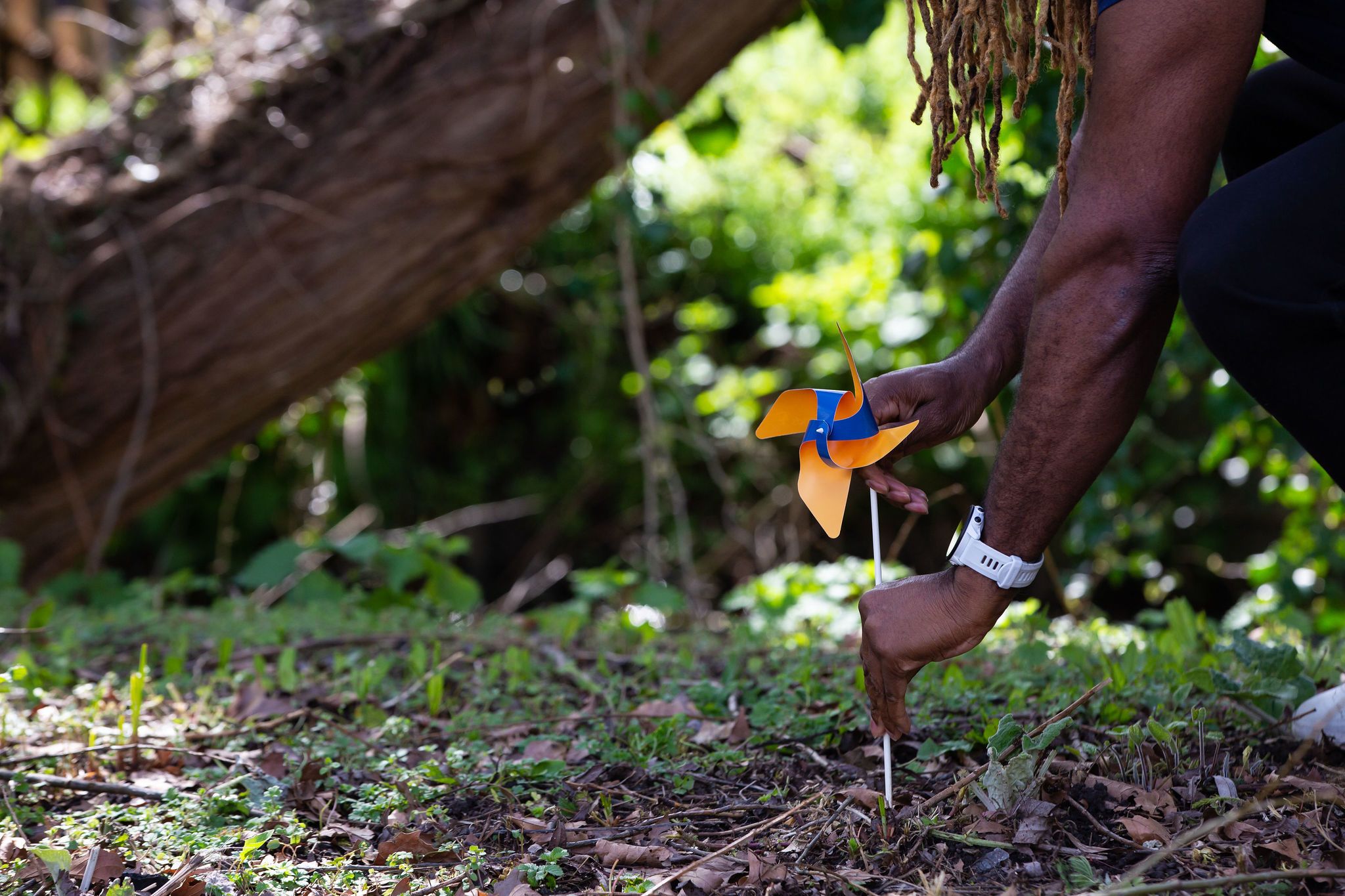





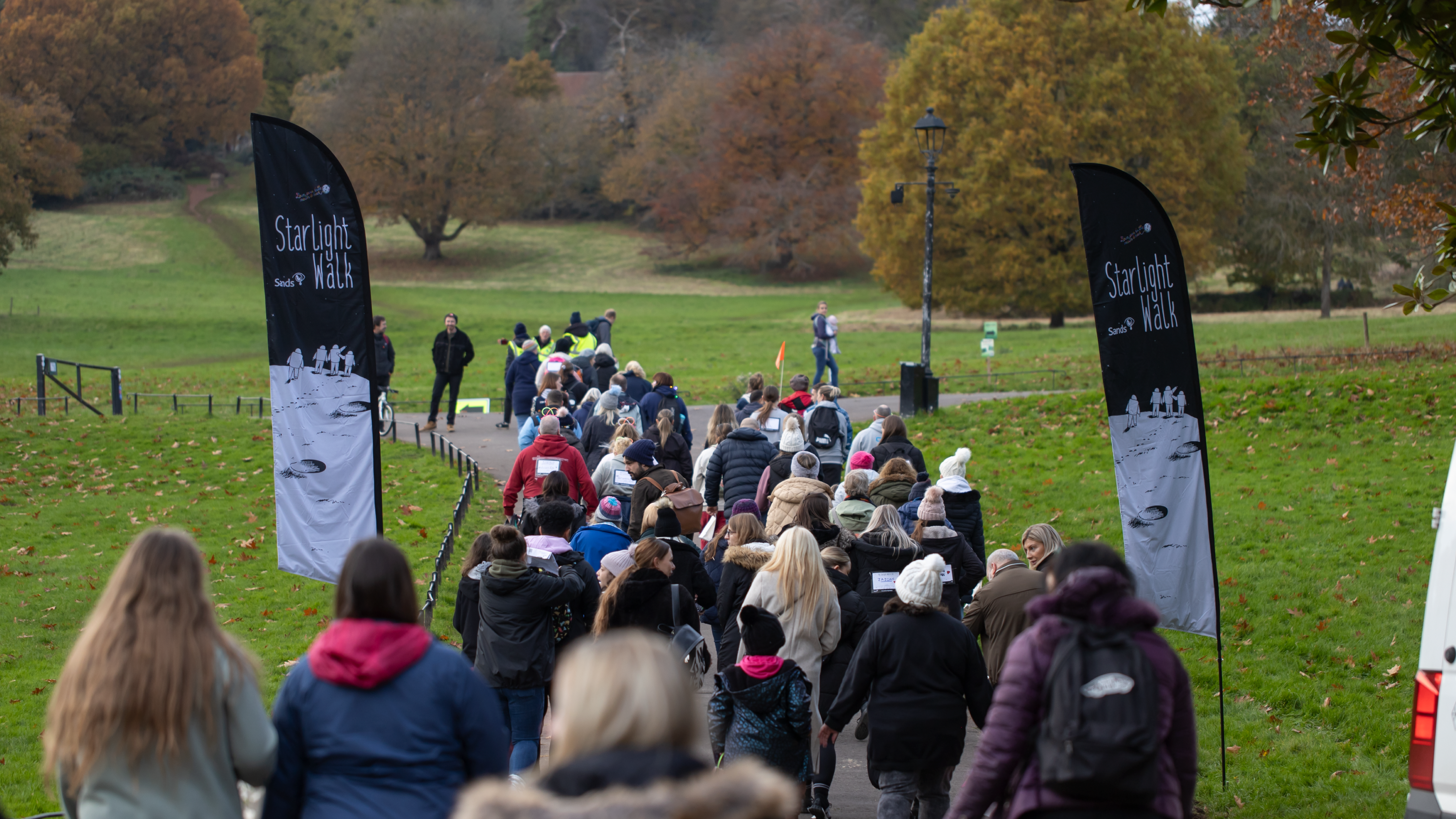
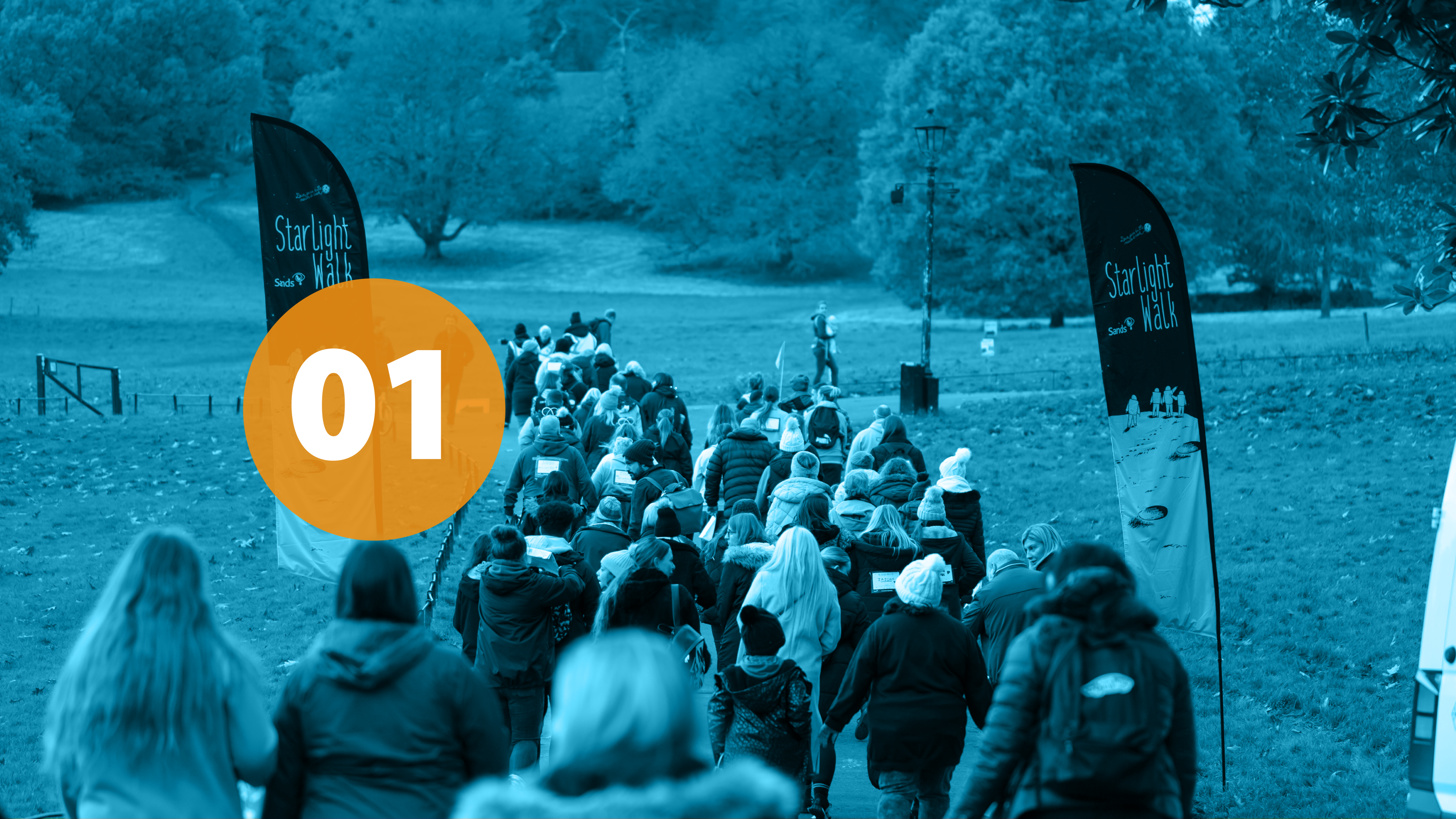
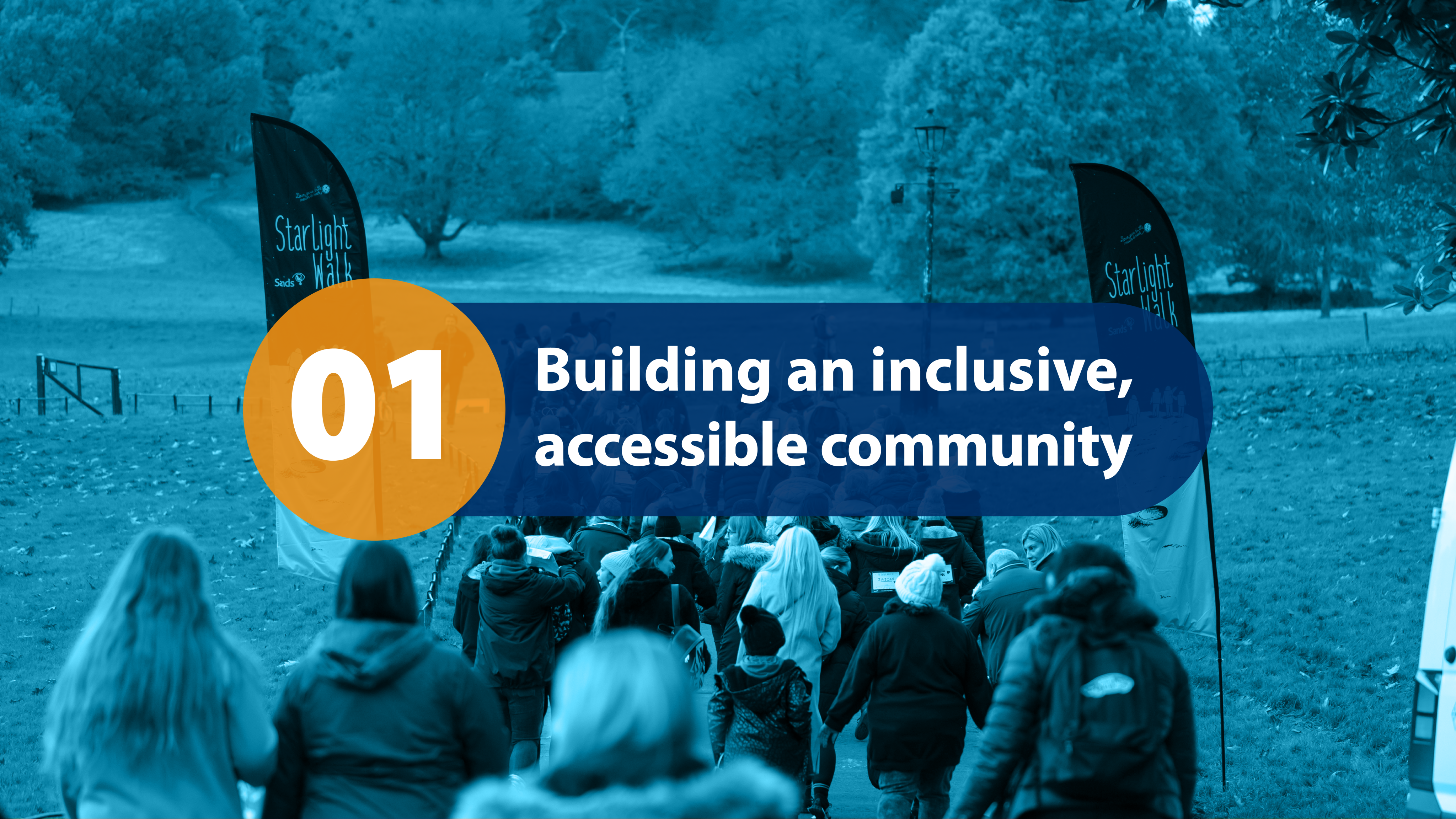
“We are here to support everyone touched by pregnancy loss or the death of a baby. Always. And we’re working hard to make sure that our support reflects and respects the differences and unique experiences of individuals on their grief journey. By working together with bereaved parents, community groups and leaders, partners in our sector and beyond, we’re creating more compassionate and understanding communities, so no one feels alone.”
Welcoming everyone who
needs our support
Together, we're connecting and supporting bereaved parents and families
We're here for everyone, regardless of who they are or their experience of pregnancy or baby loss. Yet we know that accessing support can be more difficult for some than others.
This year, we continued improving and expanding how and where bereaved parents and families can find comfort, solace and understanding with Sands.
Building supportive conversations in Black and South Asian communities
Thanks to our dedicated support groups run by Sands staff and volunteer Befrienders, more parents and families from Black and South Asian communities now have a safe space to talk openly about pregnancy and baby loss.
Women in these communities face some of the highest rates of pregnancy loss and baby death. Yet such experiences can be stigmatised and may not be spoken about.
Sands' dedicated monthly online meetings, webinars and events connect parents and help families feel less isolated, more supported and understood.
Meanwhile, our work with volunteers like Asiya is helping shape our support around diverse needs and encourage more open conversation within the South Asian community.
Our two roundtable groups for South Asian and Black communities continue to provide opportunities for conversations and learning as we develop our work alongside parents.
After experiencing multiple miscarriages, Asiya is determined no one feels alone after the loss of their baby. Asiya is a volunteer member of the Sands South Asian Roundtable Group, helping to shape the services and support offered to South Asian communities.
"Baby and pregnancy loss can be a bit of a taboo subject in the South Asian community. It's not talked about, and people brush it under the carpet.
I want to get people talking about it and normalise it. That's why I joined Sands Roundtable. Alongside other volunteers, I help feed in the voice of South Asian parents to Sands' work, sharing experiences to make sure Sands' bereavement support is suitable for all, accessible and represents the needs of every community.
Being part of the community is so rewarding. I know I am amplifying the voices of bereaved parents, and I'm proud to be part of making change happen. I've had people reach out to me and tell me how grateful they are for me sharing my story."
Making sure support remains relevant and meaningful with the help of bereaved parents
We're listening to parents' experiences and working together to review and develop our resources to meet the diverse and evolving needs of families.
We seek ongoing feedback on items like our Memory and Care Boxes – a special place to keep meaningful items collected before and after saying goodbye to babies. And parents have shared thoughts on new ideas, such as a Wellbeing Journal to support their ongoing bereavement journey in empowering ways.
Breaking barriers for deaf and hearing-impaired parents and family members
After feedback from our bereavement support service users, we committed to improving accessibility for bereaved parents and family members who are deaf or hearing-impaired.
This year we introduced British Sign Language (BSL) interpretation across all our central support services, helping families get the support they need more easily.
Connecting military families with support
With Dandelion Military Families, we piloted an online group specifically for bereaved parents and families in the armed forces across the UK and overseas. This has helped us adapt our support channels to meet the needs of military families.
Proactively bringing people to Sands
Together, we're making sure no family feels alone
The right support at the right time can make a profound difference for bereaved parents after pregnancy loss or the death of a baby.
Parents tell us that compassionate bereavement care at crucial moments deeply impacts their memories and shapes their grief journey.
That's why our work within hospitals is essential—supporting healthcare professionals to provide understanding and support to families in the moment they feel most alone.
Guiding more bereaved families to support when it matters most
Our Hospital Liaison programme continues to go from strength to strength, growing to over 100 Hospital Liaison Volunteers (HLVs) this year.
HLVs link healthcare professionals, parents and families with Sands, local Sands groups and our central bereavement services. With their help, bereaved parents can find compassionate support at a time when the right care is crucial.
Additionally, HLVs across England, Northern Ireland, Scotland and Wales are a critical step in connecting more healthcare professionals with Sands' bereavement training and resources, ensuring they can provide the best care to parents in those important moments around the death of their baby.
Shaping better bereavement care in maternity services
The Hospital Liaison Volunteer is also one of the ways Sands listens to parents and healthcare professionals to improve bereavement care in maternity services.
Hearing about hospital experiences from parents and staff informs our work with hospital trusts and boards and supports the development of the National Bereavement Care Pathway (NBCP) project led by Sands.
Through the NBCP, we're embedding set standards for excellent and equal bereavement care in maternity services after pregnancy loss or the death of a baby.
Putting exceptional bereavement support in the spotlight
This year saw Sands relaunch the Elaine Thorp Award for Bereavement Care to recognise and strengthen the vital work of midwives, nurses and other health professionals caring for bereaved parents.
Nominations from parents and families stretched to more than 100 individuals, showing the long-lasting impact of compassionate care at such a devastating time.
Gemma Sayer, a bereavement support midwife at Airedale General Hospital in West Yorkshire, was named this year's winner after being nominated by Sarah Weatherly, whose baby Rory died in 2020.
Sarah nominated her Bereavement Midwife, Gemma, for the Elaine Thorp Award for Bereavement Care, and shared with us why.
"I first met Gemma 24 hours after my son Rory was stillborn. She supported us as we moved to the bereavement suite to spend time and make memories with Rory. The calm, safe space made so much difference to us.
I really wanted to dress Rory myself as he still wasn't dressed, and I always wanted my babies snug and warm. At first I was nervous - he felt even more fragile than a living baby.
Gemma was amazing. She didn't really speak. Instead, she held the space for us; she had a quiet, calming presence. We knew she was there but just quietly as a reassurance. Gemma listened, really listened, she used Rory's name, and told us how perfect our Rory was. She asked Callum, Rory's dad, how he was too and continues to ask.
On the day we were leaving, Gemma came in before her shift. She asked another wonderful midwife to escort us out of the building while she stayed with our Rory, which was really important to me. Although she was always professional, it felt like Gemma, over those few days, had become a close friend; this helped knowing we were leaving Rory with her, and I still say now that we left Rory with Gemma."
Putting people's needs first
Volunteers are at the heart of Sands. From Befrienders, Hospital Liaison Volunteers (HLVs), Sands United Football Club leaders, campaigners and fundraisers to those taking part in projects that amplify the voices of bereaved parents, shape our support, help others find us and campaign for much-needed change.
We're dedicated to empowering and championing every Sands volunteer so that together, we can make the changes we want to see across our communities.
Celebrating our volunteers
Sands again recognised our volunteers' remarkable dedication and compassion through our annual Volunteer Awards. With over 40 nominations, choosing the winners was no easy task.
However, we celebrated 11 deserving winners during the Awards Ceremony at the Sands Garden Day in June, held at the National Memorial Arboretum.
New Befrienders boost Sands' support
The first volunteers who came to Sands in response to the video inviting bereaved parents to join our befriending community are now fully trained Befrienders.
Our dedicated Befrienders went the extra mile for Sands once again when they took part in the inspiring Befriender film funded by The ScottishPower Foundation. And more people than ever applied to become part of the very special volunteer community this year.
Befrienders are the heart of Sands support groups, hosting meetings and running activities to make sure every bereaved parent and family can find support in a way that works best for them.
As someone with lived experience of pregnancy or baby loss, they know first-hand how isolating it can be, and they generously give their time to make sure others feel heard and have space to express their grief and find connection.
Together, we're making peer support available for even more families.
Volunteers bringing care closer for more bereaved parents
Five new support groups will soon be up and running in more locations across the UK. This year, we supported Befrienders in setting up groups in Orkney, Edinburgh, Andover, Amersham & Chesham and Worcester.
We've also been working with volunteers and groups in new ways, including introducing new activity-based support and new resources to ensure all groups have what they need to maintain and evolve the peer support they provide to bereaved parents.
As the need for our support grows, so does our commitment to making sure it's available for people wherever they are.

Meeting needs locally and nationally
Together, we're reaching bereaved parents and families, wherever they are
Creating moments to remember across local communities
Sands volunteers and supporters went the extra mile again this year to organise over 30 local Lights of Love memory events.
Events spanning the length and breadth of the UK brought families together to find peace and comfort at what can be a difficult time, connecting communities in remembering much-loved babies gone too soon.
Connecting and celebrating the Sands community
As well as bringing together local communities, we gathered the wider Sands community from across the UK at the annual Sands Garden Day.
Held at the National Memorial Arboretum during Sands Awareness Month, we joined more than 200 bereaved families and others who support our work.
Together, we thanked and reflected on achievements and together we remembered all our babies.
Raise awareness of our cause and work
Baby Loss Awareness Week 2023
Baby Loss Awareness Week (BLAW) has brought bereaved families together for 21 years. Since 2002, the campaign has reached communities across the UK to encourage compassion and drive change in healthcare, policy and social support systems.
Sands leading the way
Sands chairs the Baby Loss Awareness Week Alliance, leading the campaign and coordinating activities with over 130 organisations to break the silence and improve support for bereaved families.
Sparking conversations across the country
Together, across local communities, online and in parliament, we sparked vital conversations about baby loss. National landmarks lit the sky pink and blue, and more than 172 local events offered comfort to bereaved families.
Connecting our Sands community
We marked the week with our Sands community too. Sands volunteers and supporters organised more than 150 ribbon displays in shop windows, on trees, tied to railings and other locations within neighbourhoods up and down the UK, providing a space for local families to remember their babies and connect people to Sands' support.
Nearly 7,000 people came together for our annual Ribbon Run. This year, 48 local Ribbon Run Champions organised community runs and walks for the first time, connecting families impacted by baby loss and creating a supportive space to talk, run, walk and raise money together.
Championing support in businesses
Our activities were also supported by 35 businesses showing their commitment to breaking the stigma around pregnancy and baby loss by becoming BLAW Champions. The newly launched role brought employers and their employees together throughout the week to encourage conversation about baby loss and how they can best support each other. They joined NatWest Group, who generously supported Baby Loss Awareness Week for the fifth year running in partnership with Sands.
The global Wave of Light marked the end of a moving week with people worldwide lighting a candle in support and remembrance of all babies who have died and pregnancies lost.
Honouring a legacy of love: BLAW wins Campaign of the Year
What began as a small group of parents handmaking blue and pink ribbon pins and speaking out about their personal experiences has grown into a UK-wide campaign. One that brings together millions of people to remember much-loved and missed babies and raises awareness of pregnancy and baby loss.
This year, the inspiring work of the founders, including Sands staff members Marion Currie and Carolyn Bray, and the ongoing actions and efforts by bereaved parents to grow BLAW have been recognised with a GLOMAMA Award for Campaign of the Year.
Sands Awareness Month 2023
Together, #WeAreSands
A month-long campaign once again united communities in honouring babies who have died and supported families through shared understanding and compassion.
Together, we're breaking the silence around baby loss, building a community of care and inspiring change to save lives.
Sands Awareness Month 2023 shone a light on the importance of connections for bereaved families. Never-forgotten babies lost before or after birth connect bereaved parents with the Sands community and create a unifying bond with others who understand. So no one needs to feel alone or isolated.
Throughout the month, we championed this powerful community and the safe space it provides for anyone who has experienced pregnancy or baby loss.
Bereaved parents and families, like Nihal, Ritu and Claire, shared their stories about meaningful connections made possible by Sands, and our groups and volunteers who provide online and in-person support across communities.
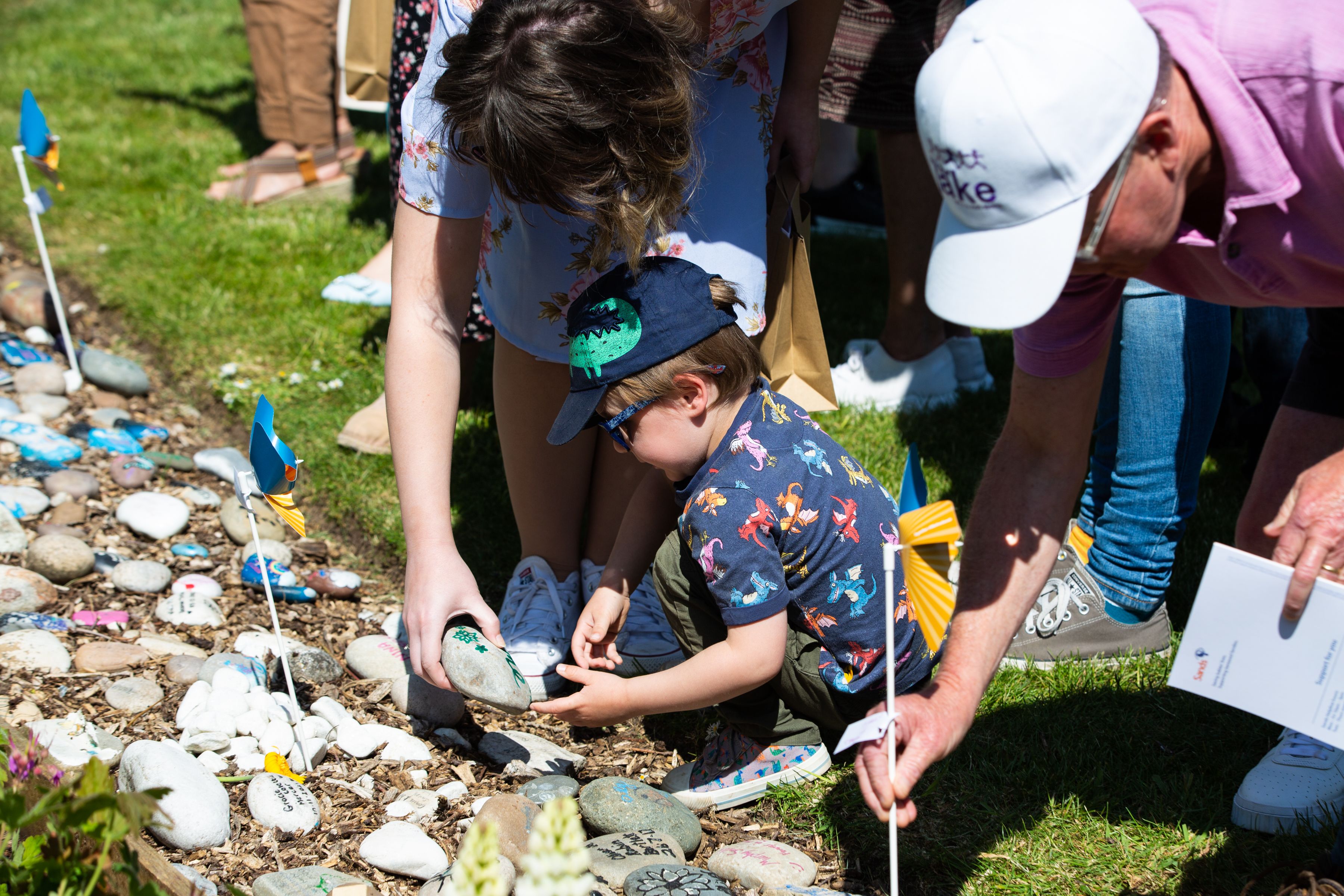
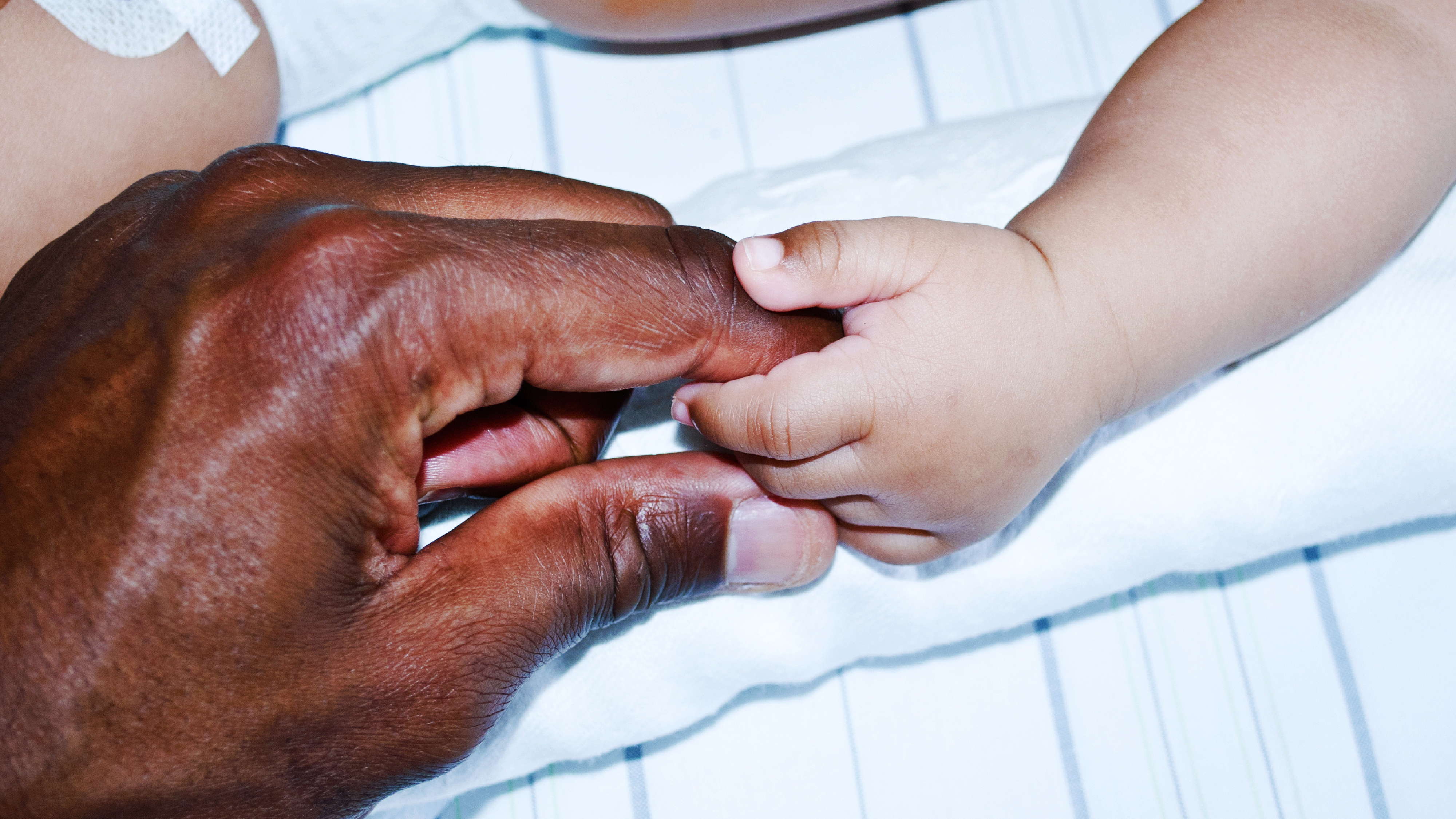
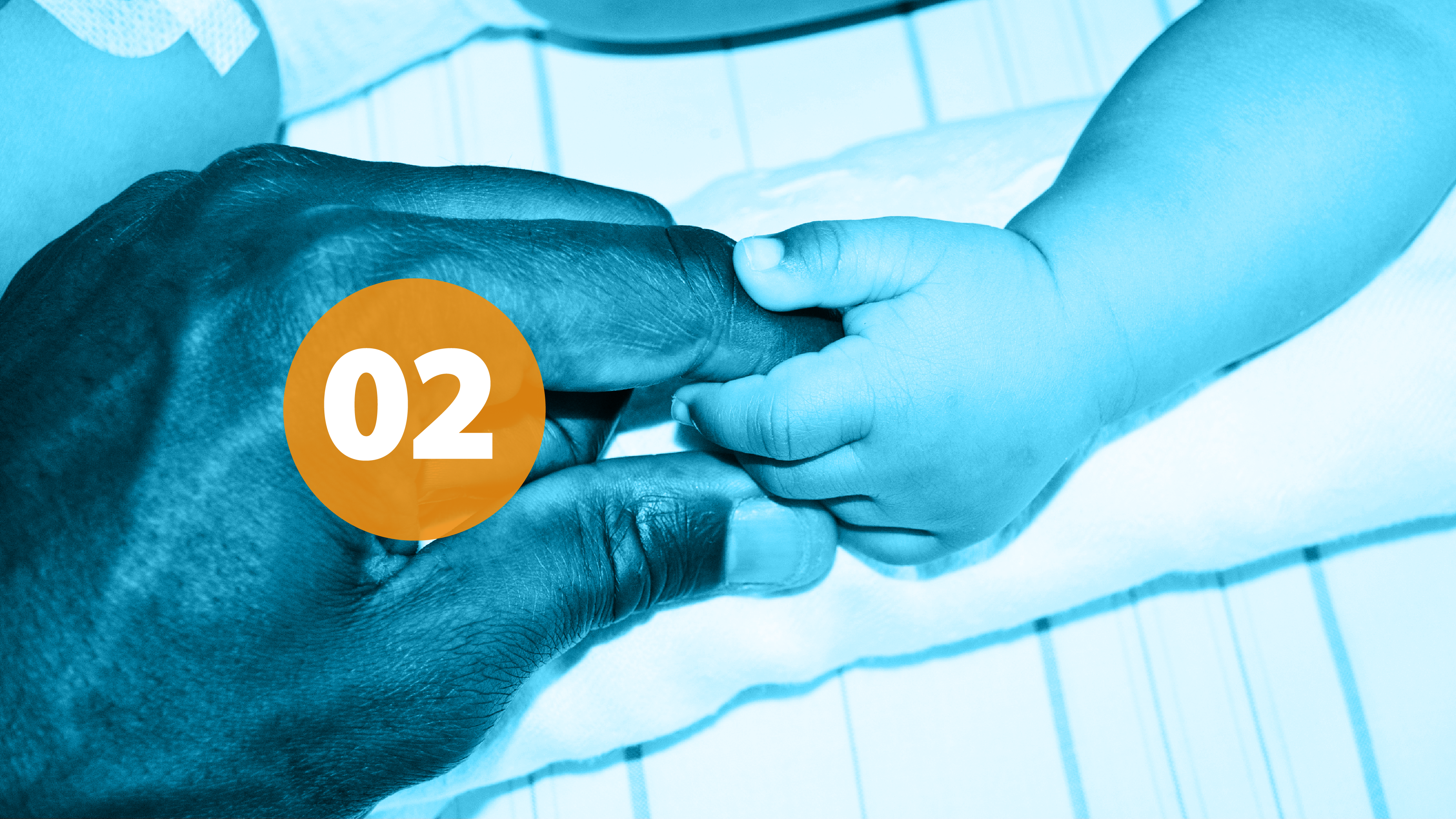
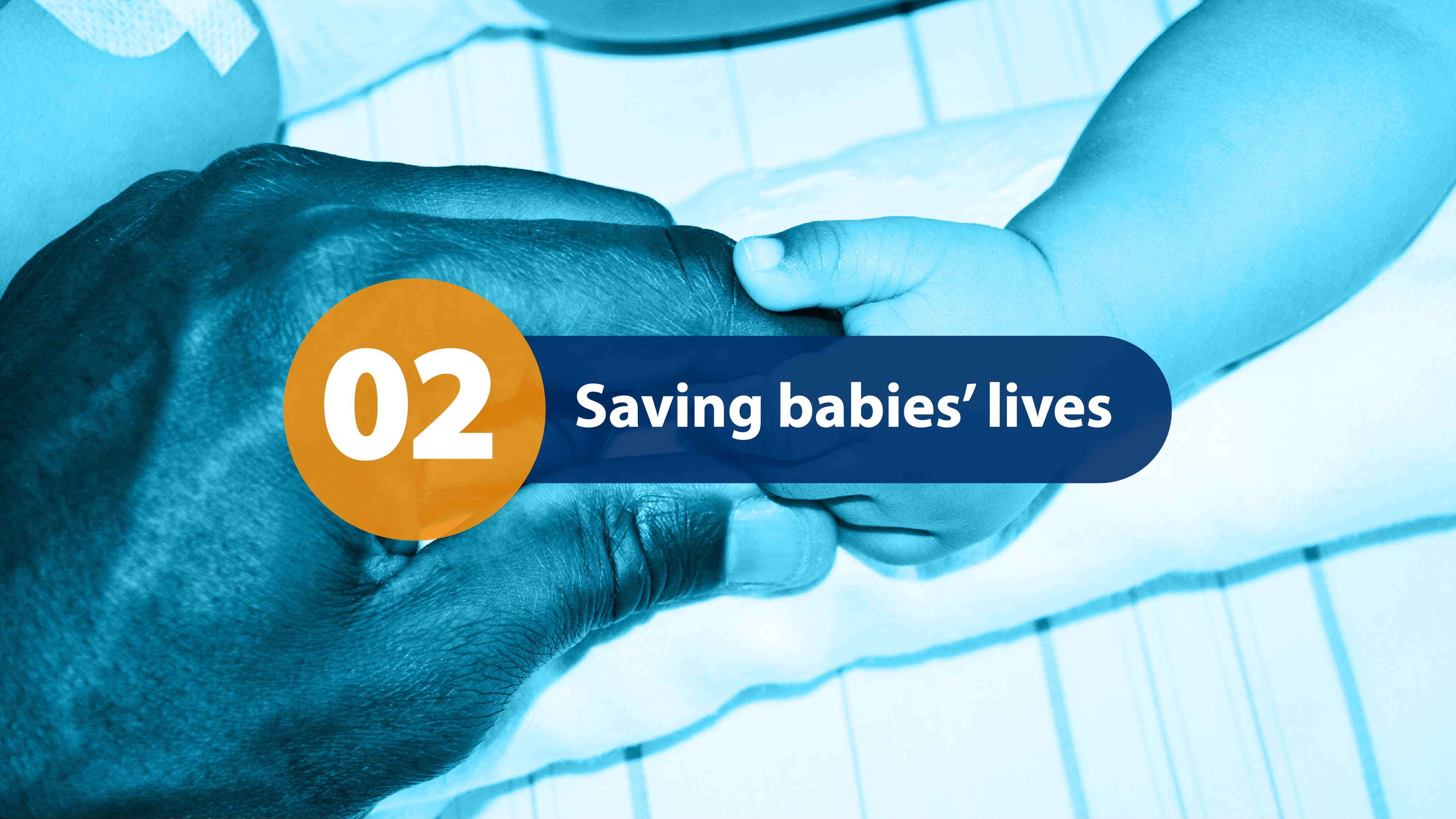
“One in two of us, or somebody we know, has experienced the loss of a pregnancy or death of a baby. Too often, we don’t understand why. That’s why we need to take action. We work with researchers, academics, healthcare professionals and policy makers to help make the UK one of the safest places in the world to have a baby. And we always champion the parent voice. So their experiences are at the heart of research, campaigns, education and training, and together we can save babies’ lives.”
Collaborating and learning
Together, we're working to make the UK one of the safest places in the world to have a baby
Writing a different future for families through the most promising research
We know that research and better care can save babies' lives. This year, we continued to support and deliver research projects with the potential to make the biggest impact.
With a newly developed framework for identifying studies with the best chance of making a difference, we're ensuring every research initiative we support has the potential to drive real change for families and healthcare professionals.
Putting lived experience at the heart of life-saving studies
We actively supported over 90 research studies, working alongside researchers and healthcare professionals to find answers to why babies die and translate findings into practical improvements that could change the story for parents. Other studies looked at how to make bereavement care the best it can be.
By feeding in parents' perspectives at every step – from shaping studies to influencing key decisions – we're driving research that informs and transforms care practices to make them safer and more compassionate.
Uncovering environmental risks in pregnancy
Too often, we don't understand why babies die. But Sands-funded research is helping change that.
One of those studies, with the University of Edinburgh, is determining how the environmental factors a woman is exposed to during pregnancy, such as the amount of sunlight, temperature and air pollution, might affect the health of mum and baby and whether they might influence the risk of stillbirth.
Gaining a better understanding of the different risk factors potentially associated with stillbirth will help researchers, clinicians and policymakers to ensure that public health information for pregnant women is clear and up to date. And ultimately, stop preventable deaths.
Improving care for babies born unexpectedly out of hospital
We know that by improving care, we can save babies' lives, and research supported by Sands plays a vital role in achieving this.
An award-winning study at the University of the West of England focussed on how to best keep babies warm when they're born unexpectedly out of hospital.
The study uncovered that across the Southwest, more than a third of babies born in these circumstances were hypothermic by the time they reached hospital.
It highlighted gaps in care, including 999 call scripts that didn't always provide clear advice on keeping babies warm and paramedics lacking access to equipment to accurately measure newborn babies' temperatures.
Linking research to real experiences
Sands played an important role in supporting this research, connecting the researcher with bereaved parents from the Southwest to shape and oversee the project, ensuring it was grounded in real-life experiences.
We also attended workshops alongside paramedics to emphasise the importance of the study and to share the perspective of bereaved families.
National and international impact
As a result of this research, changes in paramedic practices have been made in the Southwest and for 999 call handlers nationally and internationally.
The researcher collaborated with the Southwestern Ambulance Service NHS Foundation Trust to improve paramedic training and ambulance equipment.
They also worked to revise 999 call handler scripts, ensuring clearer guidance for parents and professionals on keeping babies warm.
We have since shared the findings with our audiences and Ambulance Service Trusts across the UK, ensuring the impact of this vital work continues to grow.
Hearing and acting on the experiences of bereaved families
We listened to the experiences of over 1,600 families this year when our community came together for Sands' largest-ever survey of bereaved parents. Parents of all ages and backgrounds from across the UK answered questions about their care during pregnancy, birth, bereavement and follow-up investigations, such as post-mortems. While it was reassuring to hear that there has been much improvement over the past three years, it's clear there's still much more to be done.
Already, we're sharing what we learned with key stakeholders, including politicians and teams across the NHS, as we continue pushing for improvements in care so every mother, baby and family experiences high standards of care, no matter who they are or where they live. We're also making sure the researchers we work with can access the findings to focus research on areas that matter most to parents.
Making parents a priority in the perinatal pathology crisis
The severe shortage of specialist doctors who carry out post-mortems on babies who die is leaving more bereaved parents than ever without answers for sometimes over a year after their loss.
Navigating the trauma, processing their grief and planning whether to try for a baby again goes on hold.
Listening to bereaved parents
Sands' 2023 survey of bereaved parents captured the devastating experiences of families like Laurellie's.
We're feeding those experiences into new plans being developed by NHS England and the Royal College of Pathologists to address the crisis, putting parent voices at the heart of the service reorganisation. We're also updating our model form so that parents are supported in giving fully informed consent.
Together, we're emphasising the profound and unacceptable impact of the failing system on an increasing number of parents and the urgency of making sure they're a priority.
Getting stories heard
Sands used Baby Loss Awareness Week as a key moment to ensure that the impact of the perinatal pathology crisis on bereaved families is kept in the public eye and on the political agenda.
Working with parents like Laurellie, we secured national press coverage to highlight the problems with the service and the additional trauma this brings.
Our accompanying e-action saw Sands supporters contacting their MPs to raise this issue, with questions asked in the House and the All-Party Parliamentary Group on Baby Loss calling on the government to commit to recognising that no parent should ever have to wait more than six months for post-mortem results for their baby.
Holding attention
Progress is slow, but we have worked hard to escalate the issue to the highest levels within the NHS and government. We know it's vital to keep stories being heard, always representing the parent experience and needs.
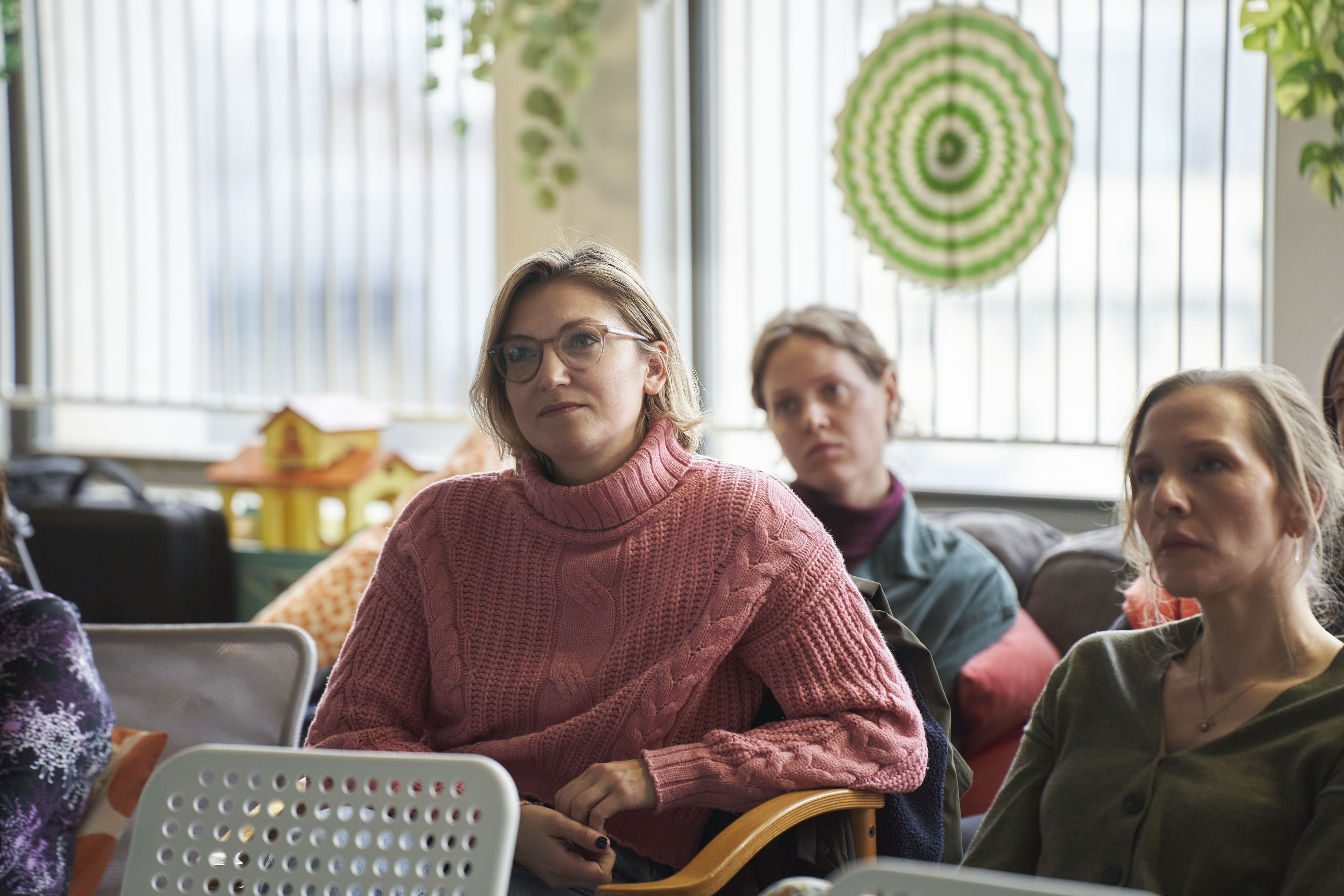
Improving safety in pregnancy, birth and the neonatal period
In 2022, Sands and Tommy's formed the Joint Policy Unit (JPU). Together, we're focused on achieving policy change that will save more babies' lives during pregnancy and the neonatal period and tackling inequalities in loss so everyone can benefit from the best possible outcomes.
Now in its second year, the JPU is an established, credible voice on baby loss grounded in the insights and experiences of bereaved families. And this year, we leveraged our combined expertise to deliver an undisputable call to action to policymakers.
Evidence-based call to action for policymakers
Our first-ever Saving Babies' Lives progress report 2023 was published, revealing worrying signs that rates of pregnancy loss and baby death are heading in the wrong direction.
The report, aimed at policymakers and labelled 'a wake-up call' for leaders from the government and the NHS, sets out where focus must be placed to drive meaningful change that's long overdue.
Through subsequent reports, we will monitor progress and keep on the pressure that's needed to prevent avoidable deaths.
Driving improved safety and quality starting with NHS trust boards
We also pushed for better NHS trust board oversight of maternity and neonatal services after our report raised questions about trust boards' ability to have full oversight of the safety and quality of maternity and neonatal services.
Analysis of the current system for sharing and reviewing relevant information and actions taken highlighted significant issues in their ability to deliver on their responsibility for safety of care.
We presented our findings to NHS England (NHSE) stakeholders and continue to meet with the NHSE policy team to accelerate change.
Making pregnancy and baby loss a priority on the government's agenda
With a General Election looming, in March 2024, we set out clear priorities for the next government if they're to deliver safer maternity and neonatal services.
Increasing policy focus over recent years hasn't been sufficient, and there's still a long way to go to make the UK one of the safest place in the world to have a baby.
Our joint 'Priorities for the next government' document, published jointly with Tommy's and the JPU, focuses on five key areas that will drive fundamental improvements and change the story for one in five babies and parents.
- Renew the national maternity safety ambitions
- Eliminate inequalities in pregnancy and baby loss
- Deliver a fully funded workforce
- Put in place a system that supports safe care
- Provide the best possible support throughout pregnancy and following loss
The Maternity Consortium: A collaboration for progress
The Maternity Consortium, part of the government's Health and Wellbeing Alliance and co-led by Sands and Tommy's, made great strides in its third year.
Using our collective expertise, we continued joining national and local voices behind a common agenda: to reduce health inequalities for families throughout the pregnancy journey from pre-conception through the first year of a baby's life.
Progress this year includes:
- Making outputs from the Maternity Consortium available on the National Voices website as part of their library of resources which supports training and more.
- Supporting the implementation of Local Maternity and Neonatal Systems (LMNS) Equity and Equality plans by the NHS to address disparities in maternal and neonatal care.
- Supporting work with young parents on safer sleep for babies.
Supporting national progress to make UK births safer
- Sands' Chief Executive, Clea Harmer, was invited to give evidence to the House of Lords Pre-term Birth Committee inquiry into the prevention and consequences of pre-term birth.
- Sands responded to the Health Select Committee's call for submissions to its inquiry to examine leadership, performance and patient safety in the NHS.
- We made the case for additional investment into maternity and neonatal services in our submission to the HM Treasury ahead of the autumn statement and spring budget.
Highlighting care concerns sooner
As an MBRRACE-UK collaborator (the national programme for collecting data from hospitals about every baby's death), we ensured that the hospital data about baby deaths is collated and analysed more quickly than it has ever been, providing more timely information about trust and health board level outcomes and trends.
The data is publicly available and presented visually for easy understanding, improving transparency and helping families get the detailed information they want.
It's vital that the data is used to pick up potential safety issues as early as possible and a system is now in place to alert the NHS to units where a problem may be developing so that help can be put in place.
Alongside, MBRRACE-UK supports a digital tool in every unit, which enables them to monitor their own data, in detail and in real-time, to highlight trends immediately and point to areas of their care that need improvement.
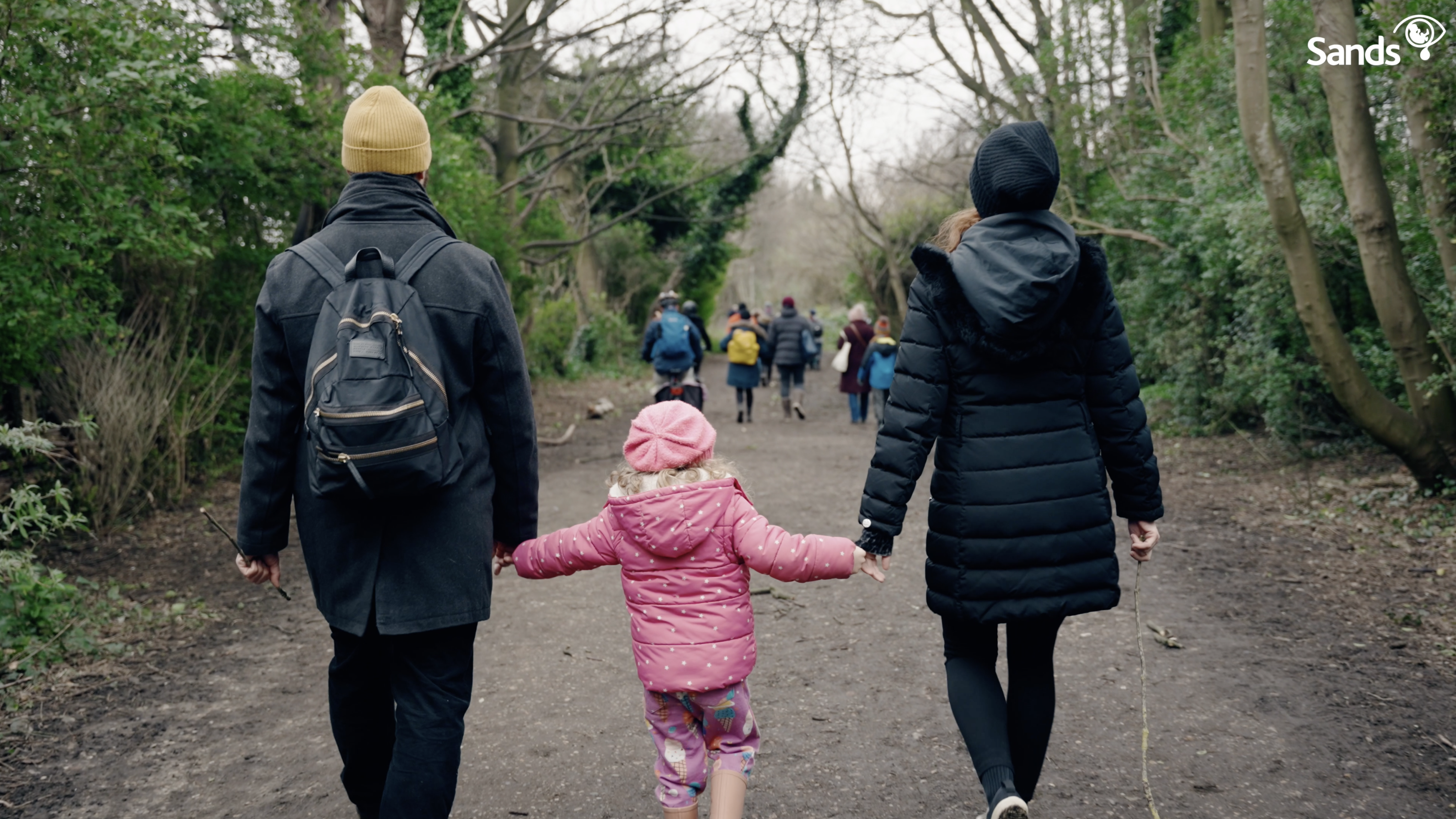
Campaigning
Together, we're a powerful voice for change
Sands kept up its campaigning momentum this year to change the story for families in the future. With our supporters, we continued pushing for policy changes to reduce preventable baby deaths and strengthen bereavement care across the UK.
Working alongside partners, government bodies and healthcare leaders, we advocated for essential reforms in maternity and neonatal services, aiming to make the UK one of the safest places to have a baby.
Listening, learning and eliminating inequalities, together
Influencing safer care through safer staffing
Maternity services across England gained a vital boost with an additional £35 million committed over three years.
This funding commitment follows our dedicated advocacy efforts through the All-Party Parliamentary Group (APPG) on Baby Loss, through which we persistently championed the need for safer staffing in maternity care.
Alongside this, our bereavement care training campaign highlighted the critical importance of dedicated training time during working hours for healthcare professionals caring for bereaved parents.
The government and NHS England set out plans to recruit 160 additional midwives and deliver specialist training for thousands of healthcare workers.
The welcome move will also ensure that women's experiences are considered and acted upon, fostering improvements in maternity and neonatal care.
Strengthening our advocacy network
This year's increased engagement with parliamentarians presents a crucial opportunity to influence key decision makers for the coming year and beyond.
The launch of the inaugural Joint Policy Unit (JPU) progress report successfully convened over 35 parliamentarians, senior NHS figures, governments, Royal Colleges, researchers and colleagues from like-minded organisations. And through our collaboration with the All-Party Parliamentary Group on Baby Loss (APPG), for which Sands is the secretariat, and the cultivation of new connections with peers and members of devolved parliaments, we've expanded our network to include over 100 supportive parliamentarians.
These relationships are essential for amplifying our voice and ensuring that the needs of bereaved families are prioritised in legislative discussions, paving the way for impactful policies that can save babies' lives.
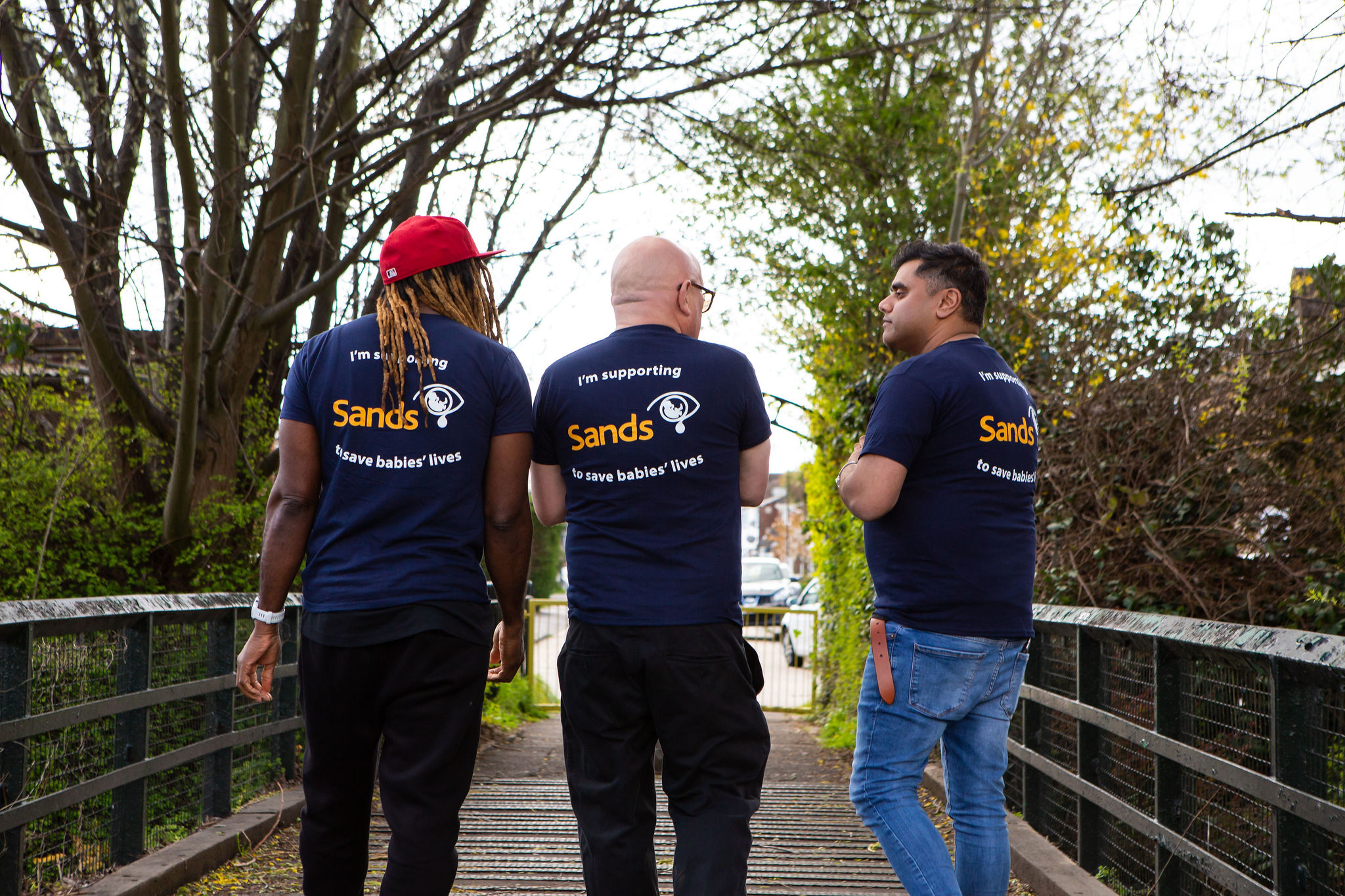
This year saw Sands release a powerful report shaped by several critical areas of work and with the potential to change the story for Black and Asian families.
The Listening Project made for urgent reading when we launched it alongside the MBRACCE-UK Confidential Enquiries to make parents’ voices heard and lived experiences recognised.
Now work is underway to make the recommendations in the report a reality and reduce the inequalities in care that leave babies at higher risk of dying depending on their parents’ postcode, ethnicity and income.
Together, we can save babies’ lives.
The stark reality of inequalities
In 2019, 432 fewer babies would have died in England and Wales if stillbirth and neonatal death rates for Black and Asian babies had been the same as for White babies.
But unacceptable inequalities mean Black and Asian families face disproportionately high rates of baby loss - their voices often go unheard and their experiences are often overlooked.
Our call for urgent action
So, we called for the government to urgently fund an enquiry into Black and Black British, and Asian and Asian British baby deaths in the UK.
While Sands welcomed agreement from the government to fund an enquiry into the deaths of Black and Black British babies, it didn’t go far enough.
Rallying support
In response to the government’s decision, we launched a powerful campaign urging it to extend the enquiry to Asian and Asian British babies.
We picked up the pace during Baby Loss Awareness Week when we met with MPs to run debates, wrote to Ministers and called on the Sands community to do the same.
Sands Ambassador Shetal Joshi, who lost her son Shivai, became a pivotal voice for the Asian community and provided a platform for families to share their stories and concerns.
A significant breakthrough
The campaign’s persistence paid off when a Confidential Enquiry into Asian and Asian British baby deaths in the UK was commissioned to run alongside the enquiry into Black and Black British babies.
This was a huge win. But for Sands and bereaved families, this still didn’t go far enough.
MBRRACE-UK enquiries focus on the clinical care of mothers and babies using medical notes. In isolation, they don’t tell the full story.
So we committed to running our own research project to put lived experience alongside the data and viewpoints of professionals.
Amplifying parents’ voices
The Sands Listening Project captured the experiences of more than 50 bereaved parents from Black and Asian backgrounds.
Parents like Bhavna and Amber, whose babies died during pregnancy or shortly after birth, courageously shared their experiences of maternity, neonatal and bereavement care.
We heard from families who weren’t listened to and whose concerns weren’t taken seriously. Parents told us of investigations not being carried out and opportunities to save babies’ lives being missed.
Crucially, we listened and learnt what needs to change – from breaking down barriers to addressing cultural and social factors that impact care.
A double triumph for award-winning campaign
A huge win for parents in the form of a Confidential Enquiry into the deaths of Asian and British Asian babies led to a prestigious award for Sands this year.
The Amplifying Voices award from the Sheila McKechnie National Campaigner Awards 2023 recognised our tireless work and that of almost 1,000 Sands supporters in securing the enquiry. The successful campaign made significant headway in ensuring lessons would be learnt and preventable deaths avoided.
A roadmap for change
Launched side-by-side with the MBRRACE-UK Confidential Enquiries, the report revealed the full picture by connecting professional insights with parent experiences.
The report and its recommendations are already serving as a tool for advocacy and the foundation for action-driven dialogue with policymakers and healthcare providers.
We also shared our findings with key organisations such as the NHS, maternity professionals, and others who have the power to make change.
While an e-launch put the report in front of parliamentarians where it became a topic of conversation in Westminster, the Scottish Parliament and Northern Ireland Assembly.
Sands’ #EndInequalityInBabyLoss campaign will continue challenging unacceptable inequalities, ensuring no family is left unheard and no preventable loss goes unaddressed.
While academia, charities, the life sciences industry, patient groups, and other experts will join forces to establish a consortium targeting health inequalities before, during and after pregnancy. And Sands is working with key research organisations to lend our expertise and parent voice.
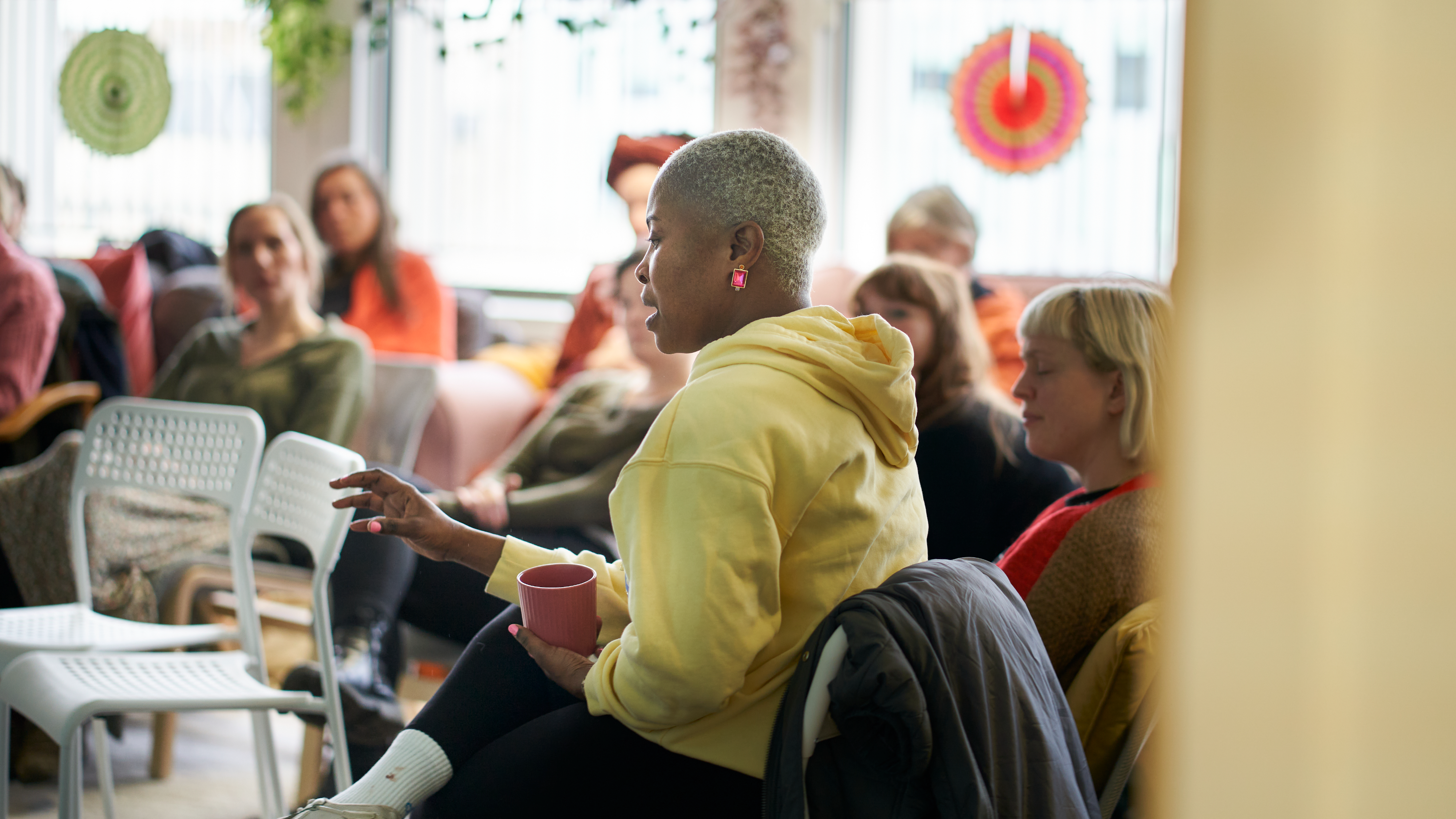
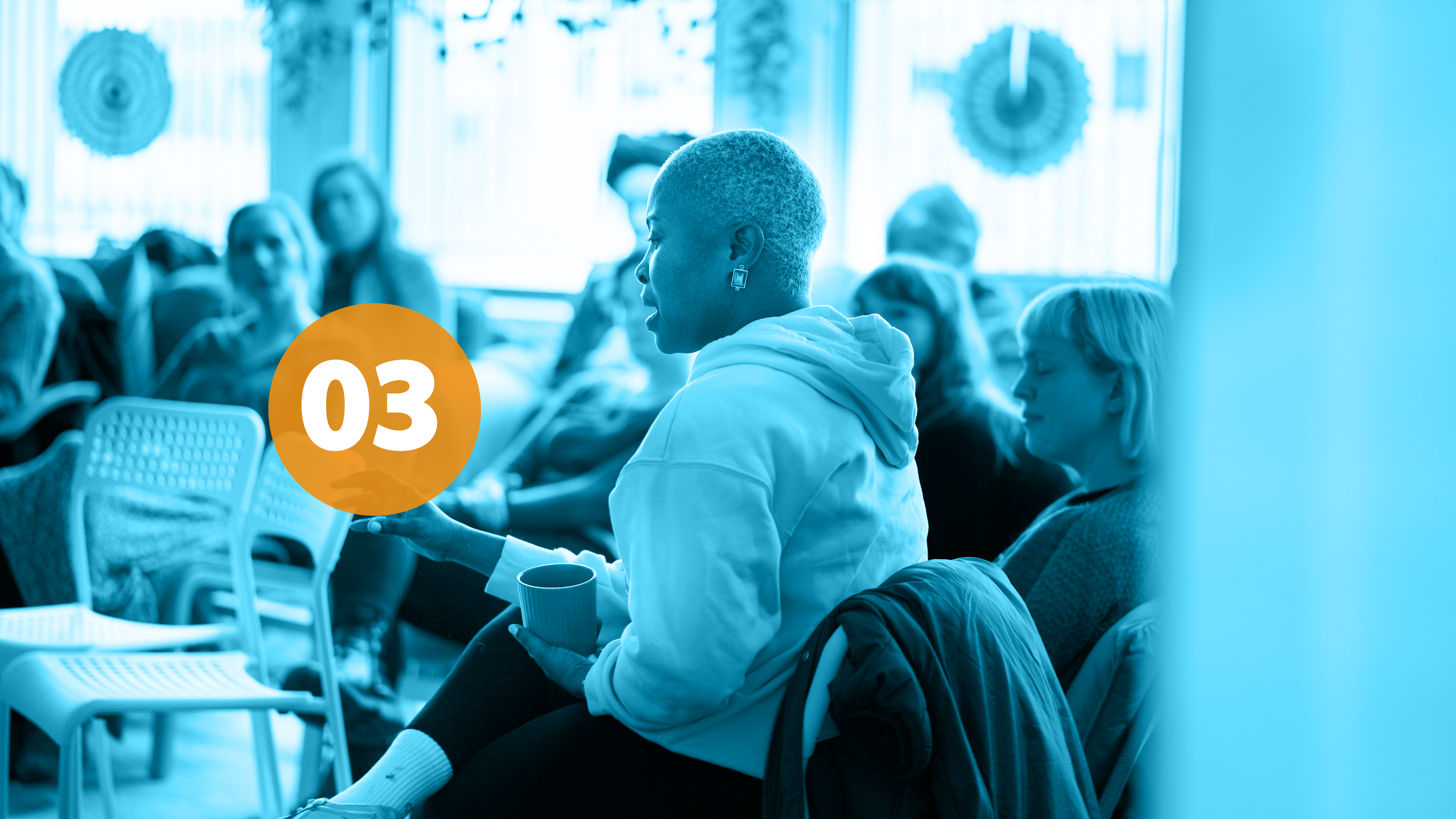
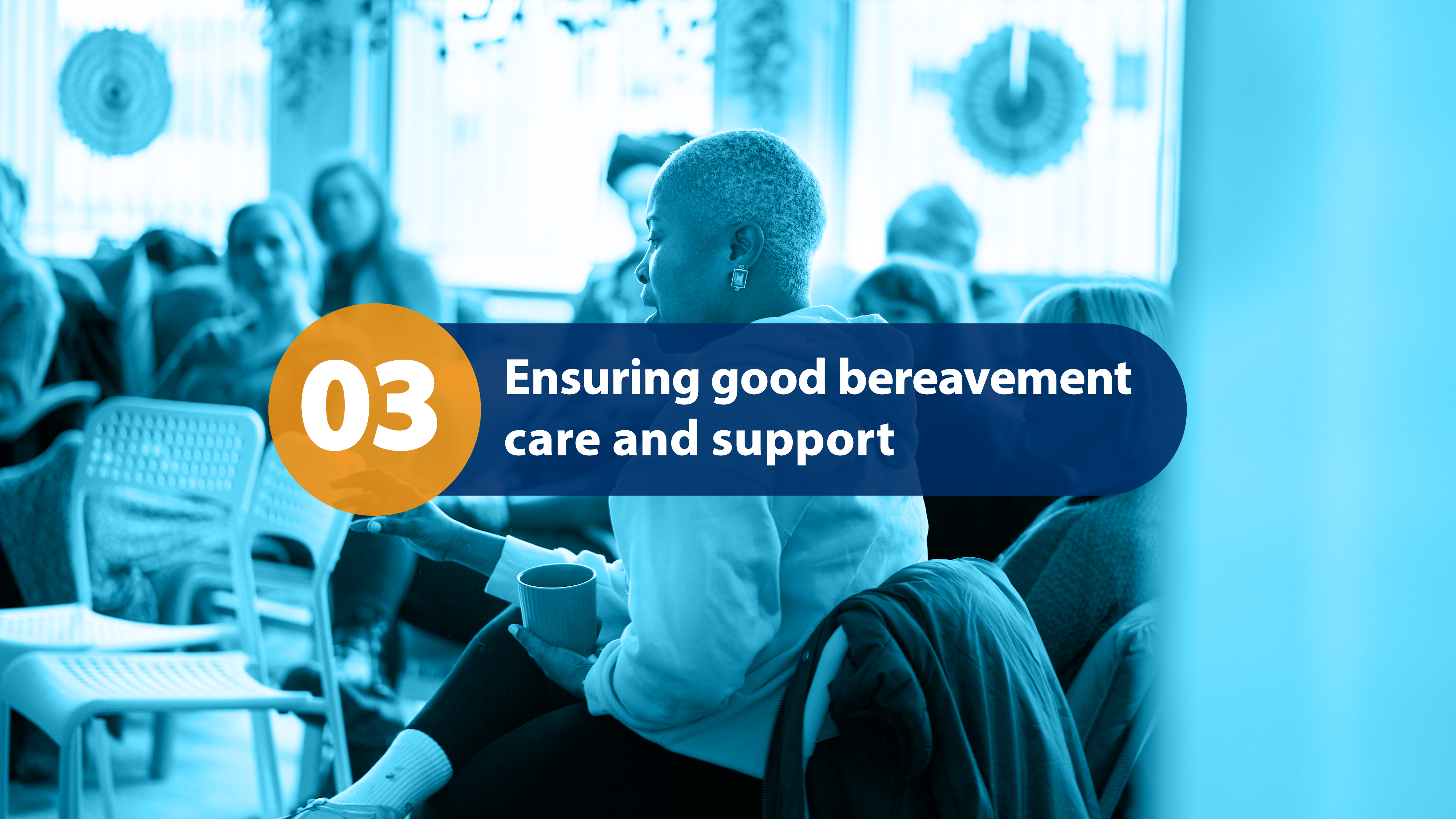
“We champion good care to be available in all healthcare settings, no matter where you live. Good care can’t take away the pain of the death of a baby, but can help parents through this devastating time. The need for support doesn’t end when a parent leaves the hospital. Sands is committed to being there whenever someone needs us. Offering trauma-informed support online, over the phone and in person. And our work with healthcare professionals and workplaces means together we can build awareness, compassion and understanding of the impact of pregnancy and baby loss.”
Supporting families
Together, we're making the right support at the right time available for all families
Empowering parents to find answers and feel heard
New parent-led resources are empowering bereaved parents to find much-needed answers after their baby has died.
Nothing can prepare parents for losing their baby. But understanding why it happened can help make sense of an often unexpected tragedy and bring comfort as they grieve.
Yet navigating mortality reviews and post-mortems can feel daunting. Now, with guidance and practical tools, families can more confidently ask the right questions, have their experiences addressed, and, importantly, feel heard.
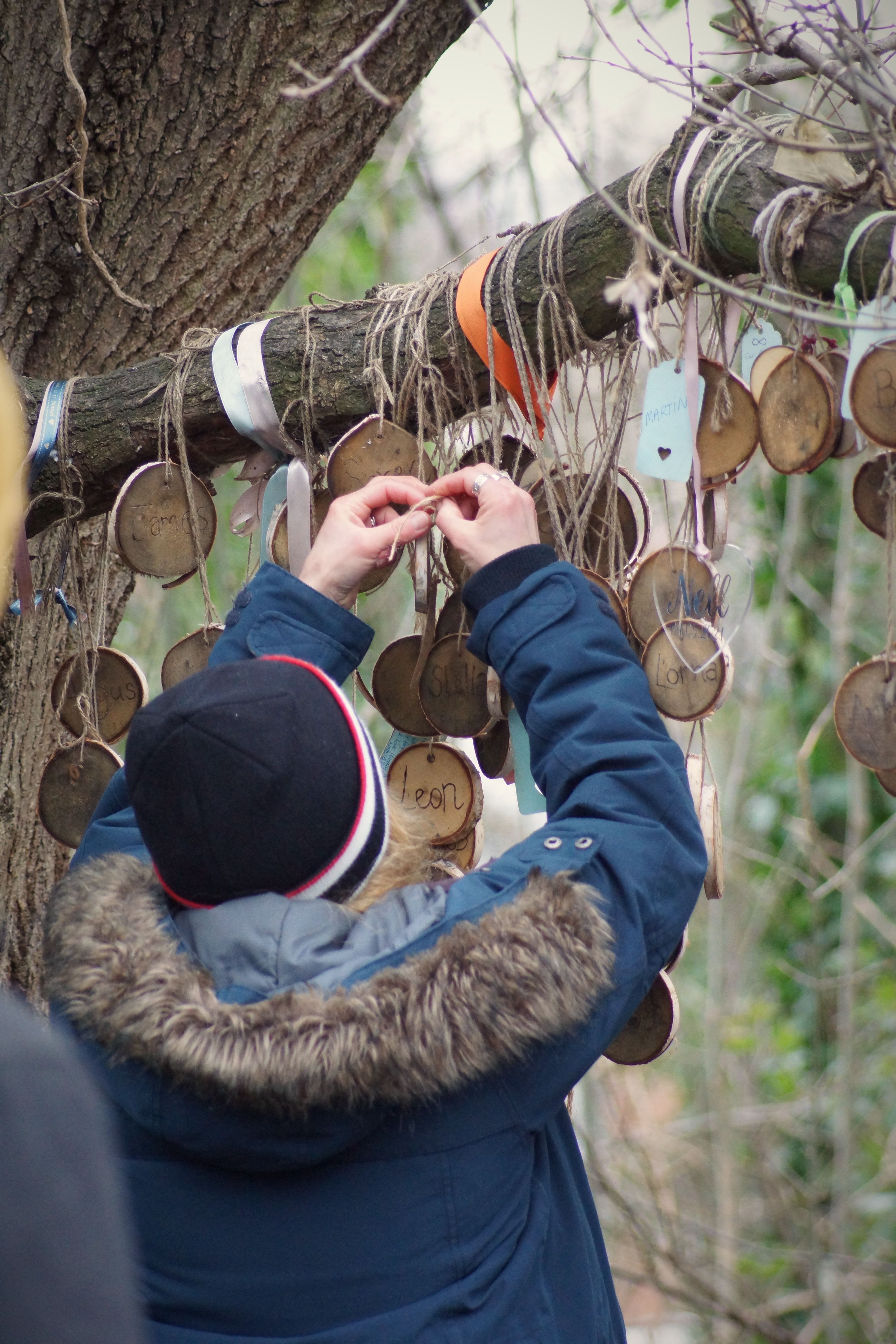
Leading the way to drive improvements in bereavement care across the UK
Setting the standard for bereavement care across NHS trusts and boards
The National Bereavement Care Pathway (NBCP) has a single vision: to improve the quality and consistency of bereavement care in the NHS for families after pregnancy loss or the death of a baby.
Sands leads the NBCP in partnership with several baby loss charities and Royal Colleges, parent groups, local hospital trusts and NHS organisations, connecting all those who share its ambition.
At its core is a continuous improvement program built around nine care standards and guidance materials, empowering healthcare professionals to provide compassionate, respectful and high-quality care to every family after the loss of their baby.
Since its launch in 2017 at 11 pilot hospitals, we've expanded to 99% of NHS England hospital sites, all NHS hospital boards in Scotland have adopted the pathways and we're gaining momentum in Northern Ireland and Wales.
England
- A further 11 hospital trusts adopted the pathway, taking the total to 126 out of 128 trusts.
- We continued working with hospital trusts and boards to embed the pathway and best practice.
- We supported the delivery of in-person and online workshops to over 300 healthcare professionals to learn from four new toolkit modules. The modules include best practices around sensitively engaging with parents to put them at the forefront of shaping and improving bereavement care services.
Scotland
- We engaged a further nine NHS hospital boards, meaning all 14 boards in Scotland have adopted the pathway across units and services in hospitals and the community.
- A detailed, independent evaluation got underway to hear from bereaved parents and health professionals caring for bereaved families about their experiences of bereavement care in Scotland. Findings will be published in 24/25.
- We secured a long-term commitment to the NBCP in Scotland from the Scottish Government, meaning we can continue to support healthcare professionals in delivering consistently high-quality bereavement care through the NBCP programme.
Wales and Northern Ireland
- We received commitments from the Welsh Government and Public Health Agency Northern Ireland to fund the development of bereavement care pathways in these nations.
- Over 40 parents and 40 healthcare professionals joined listening events to share their experiences of bereavement care in preparation for the project in Wales.
Recognising babies' lives, however short
We made sure bereaved parents were at the heart of the newly launched Scottish Memorial Book of Pregnancy and Baby Loss when we contributed to its development earlier this year.
The book, jointly produced by the Scottish Government and National Records of Scotland, will give parents a way to commemorate the loss of their baby before 24 weeks with a physical record.
Bereaved parents in England who lost their baby before 24 weeks since September 1 2018, can also now acknowledge their baby with a Baby Loss Certificate.
We know from listening to parents that the certificates can help bring comfort to many by recognising their loss and acknowledging that these tiny lives matter. However, we know it's not the same for everyone. That's why we urged the government to make them non-compulsory and welcomed the decision.
We will continue to support the call for similar government schemes to be made available in Wales and Northern Ireland.
At Sands, we understand how important it is for those who experience baby loss at any stage in pregnancy to have the choice to have their baby acknowledged and remembered. And Sands' commemorative 'birth certificates' remain available for all bereaved parents, wherever they live in the UK.
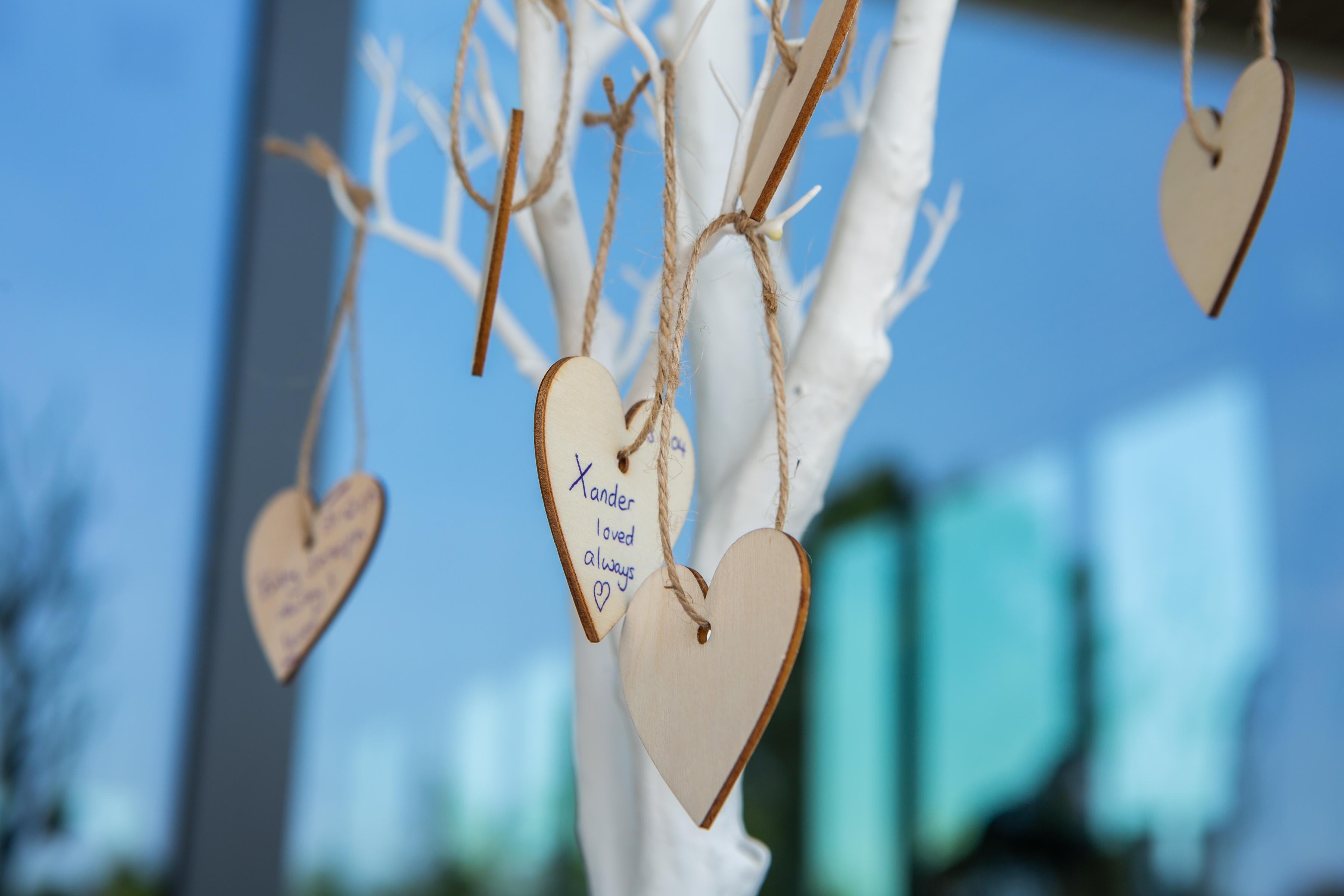
Equipping professionals and volunteers with the skills and knowledge they need
Enabling compassionate bereavement care in community settings
Thanks to Sands’ newly launched training for community-based professionals, bereaved families can receive ongoing support in their grief beyond the hospital setting, ensuring they never have to navigate their loss alone.
Social workers, health visitors, mortuary staff, coroners and GPs are instrumental in providing ongoing support after initial hospital care. Understanding the experience of pregnancy, the birth and death of a baby for the whole family is essential.
The free and paid-for training is underpinned by the voices of those who have experienced loss and the needs of the people supporting them, equipping health professionals with the sensitivity and understanding needed to handle conversations around baby loss.
Pioneering education in bereavement care
This year saw the first cohort of specialist perinatal bereavement midwives work towards a post-graduate certificate for bereavement specialists. It’s a first in the UK and will ensure midwives can give deeply sensitive and compassionate support to bereaved families with confidence, preparedness and emotional resilience.
In collaboration with Dr Jones at the University of West London, we developed a curriculum that equips midwives with practical tools and strategies specifically designed to navigate the unique challenges of supporting grieving parents in maternity settings.
Well-informed consent conversations
A newly launched Sands workshop is empowering healthcare professionals to handle sensitive conversations with bereaved parents regarding post-mortems.
This workshop complements eLearning developed by Keele University and University Hospitals of North Midlands to build professional understanding and confidence.
By equipping them with the skills needed to guide parents compassionately through the consent process, families can make informed decisions during one of the most challenging times in their lives.
Creating supportive workplaces
Almost 38,000 employees now have the confidence to start sensitive conversations with colleagues coping with pregnancy loss or the death of their baby.
Sands Bereavement in the Workplace training, made possible by a Department of Health and Social Care grant, supports employers in creating a compassionate, inclusive culture around baby loss.
We know from listening to those who have been through such loss that having a supportive workplace is vital for their wellbeing. However, managers and colleagues often tell us they don’t know what to say and are worried about saying something wrong.
With our expert-led live webinars, online learning modules and digital toolkits, we’re helping everyone in the workplace find the words so bereaved colleagues know they’re not alone.
Consistent access to better bereavement care across Northern Ireland
The opening of the new suite at Craigavon Area Hospital in August, supported and funded by Sands, represents a crucial step for bereavement care in Northern Ireland.
Now, every maternity unit in the country provides bereaved families with a dedicated, peaceful and safe space to create lasting memories with their baby or to grieve their loss with comfort and dignity.
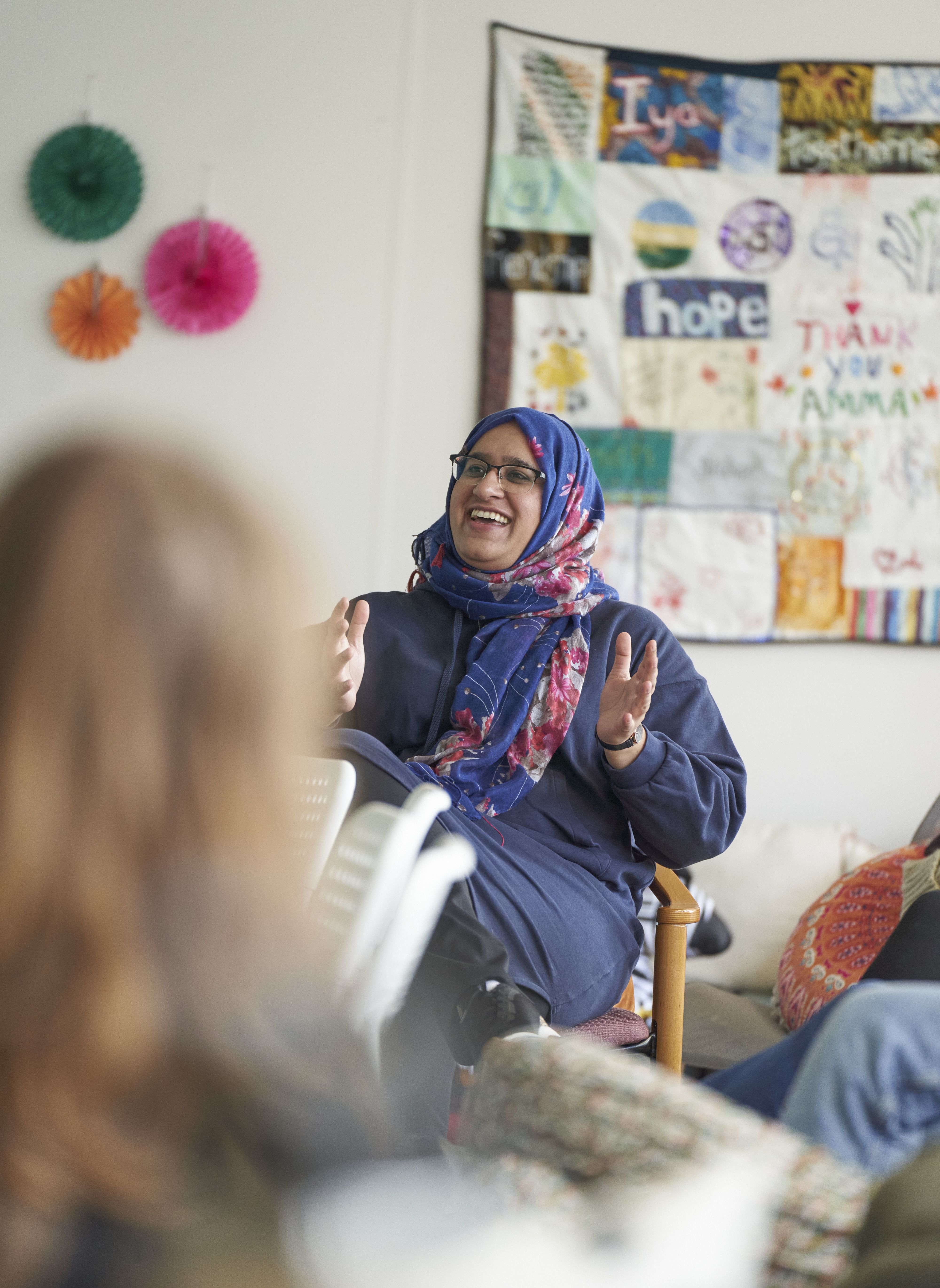
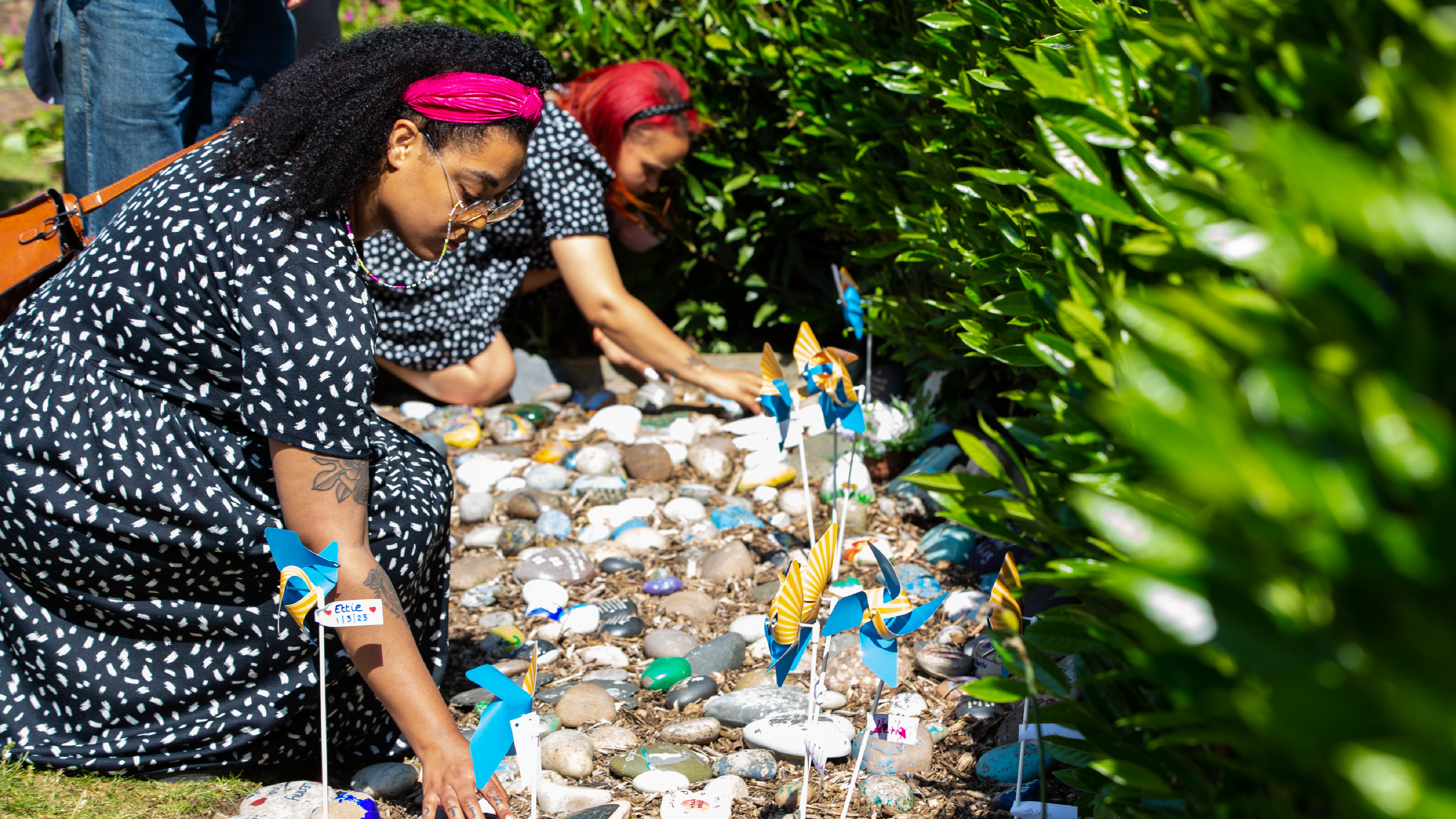
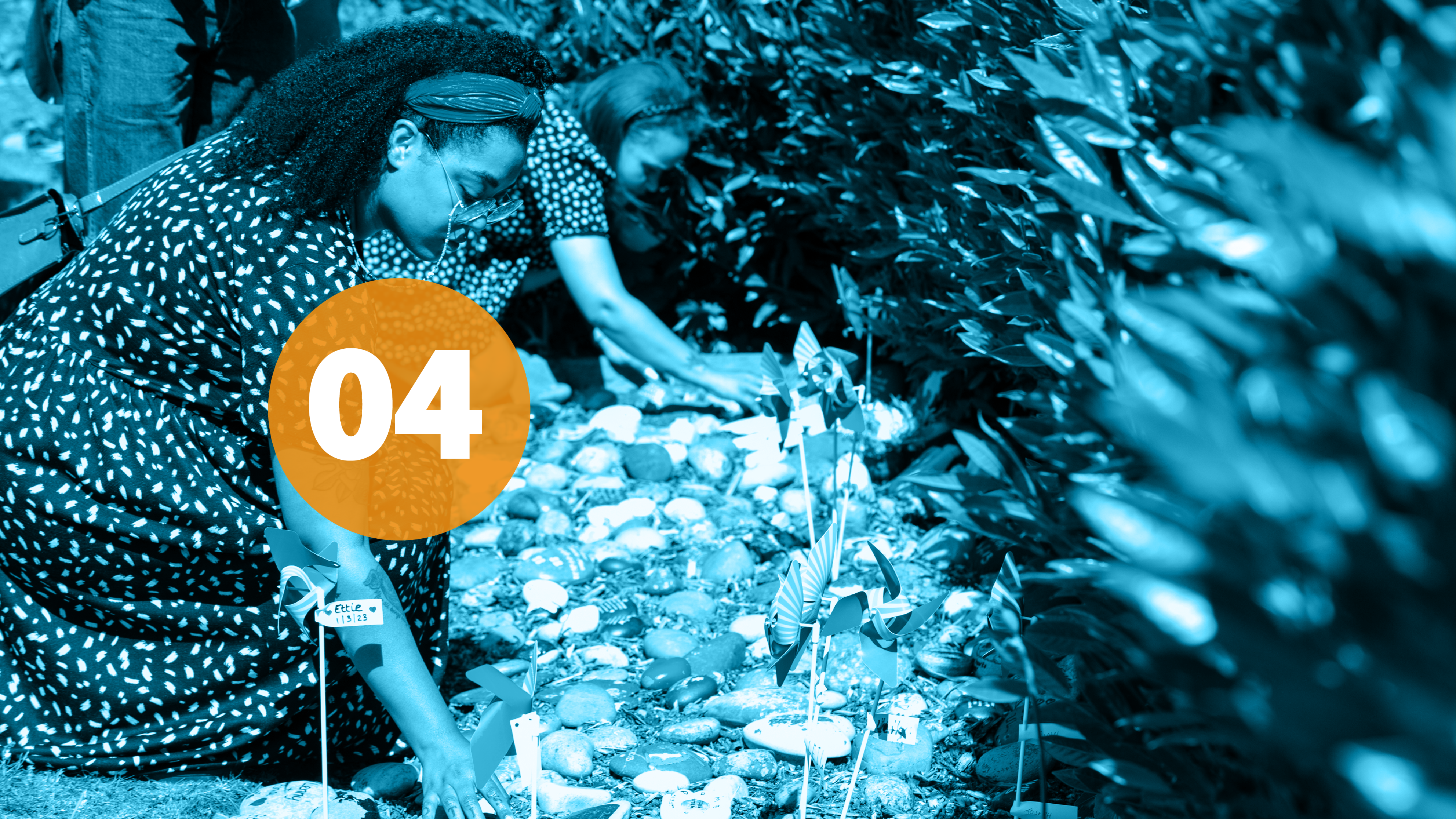
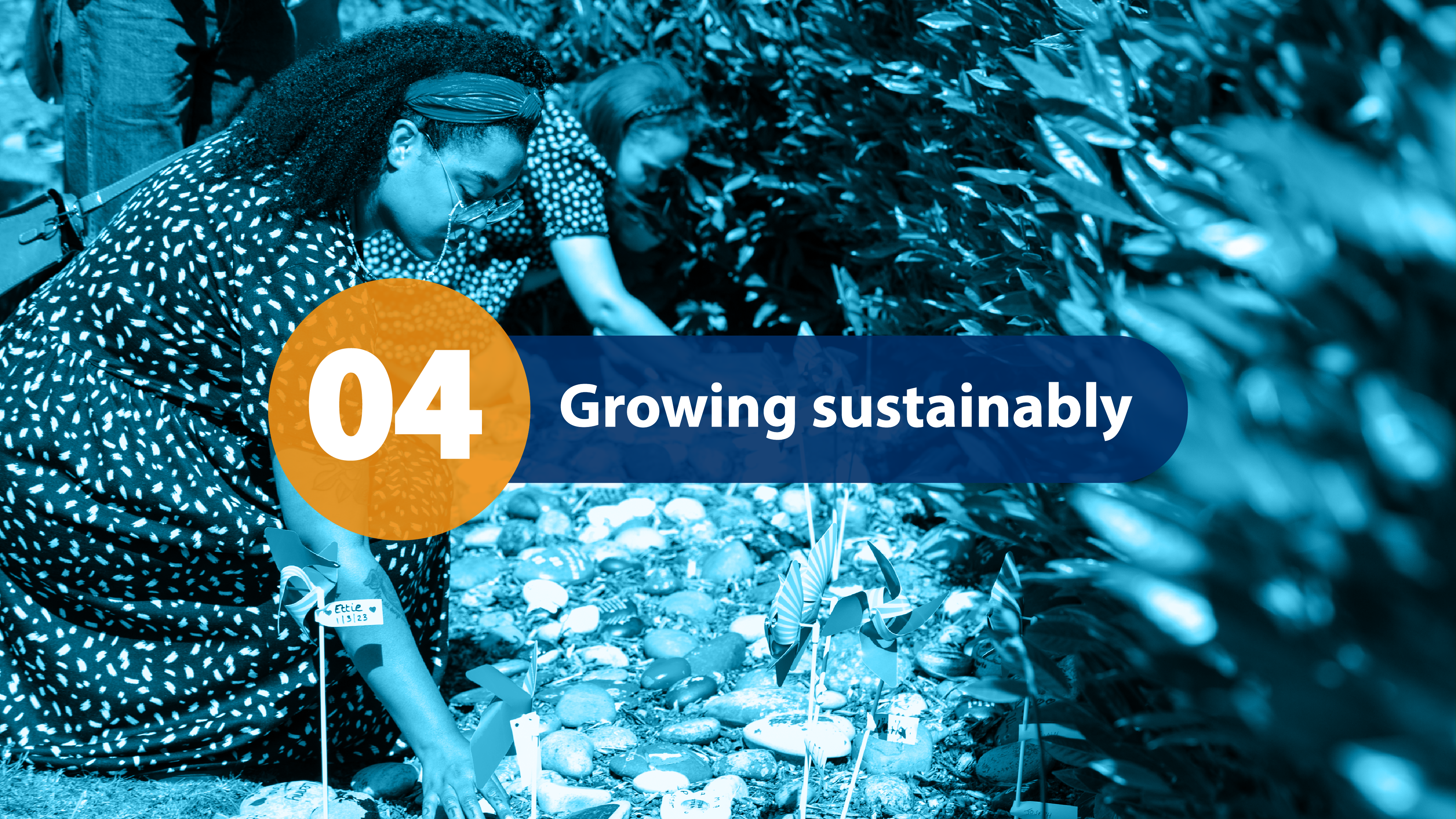
“Our growing community of volunteers, supporters, partners and fundraisers raise the money we need to save babies’ lives and provide vital support when people need it most. Thank you. Together we are making a difference.”
Using every opportunity
to raise awareness
Starting conversations through sport
Teeing up support for golfers
Sands Ambassador Genelle Aldred championed the charity through this year's Sands Golf Challenge. Genelle teamed up with Golf Monthly editor Mike Harris not only to fundraise but also to use sport as a powerful way to get pregnancy and baby loss talked about in different settings.
Together, they took Sands' mission to new spaces—on golf courses, through sector-leading media coverage and into the social media feeds of golfers.
Kicking down barriers
When Sands United FC Solihull player and bereaved dad Zane Murray shared his story with football media giant Copa90's vast audience, he took an important step in bringing crucial conversations into spaces where they're rarely discussed. Football fans were introduced to the reality of baby loss and the support available for grieving parents.
In the video, part of gaming brand EA Sports' Saved By The Ball project celebrating the transformative role of football in rebuilding and shaping communities, Zane opens up about how Sands United helped him process his grief after his daughter Ophelia, passed away shortly after her birth in May 2022.
The football team provides a vital support network where bereaved men can feel safe sharing their stories. By sharing his story more widely, Zane is making sure more men feel able to talk about babies who have died.
Inspiring support so more families get to take their baby home
We were overwhelmed by the response to this year's Winter Appeal. Taking a fresh approach to sharing Sands' mission of saving babies' lives, we reached and inspired far more people than we could have hoped, motivating them to support our work.
A powerful story of loss and remembrance
Bhavna and Vijay lost their baby son, Joshan, in May 2019. This year, they generously lent their voice and experience to our winter campaign, including our appeal film.
They shared why they took part in Sands' research, the Listening Project, as one of the ways they honour and remember Joshan, alongside fundraising challenges, joining one of our roundtable groups and Bhavna's volunteer befriending.
Throughout the Winter Appeal and beyond, Bhavna and Vijay have spoken out about the vital work Sands is doing to tackle inequalities in baby loss. Bhavna shared her story with national publication, The Metro, and talked about why she wants to see change for the South Asian community.
Keeping the conversation going
A coordinated launch of our Winter Appeal and Sands Listening Project secured impactful media coverage, including the BBC and The Voice.
The approach amplified the voices of Black and South Asian bereaved parents, placing their experiences at the heart of the conversation and reinforcing why Sands is so committed to ending inequalities in baby deaths.
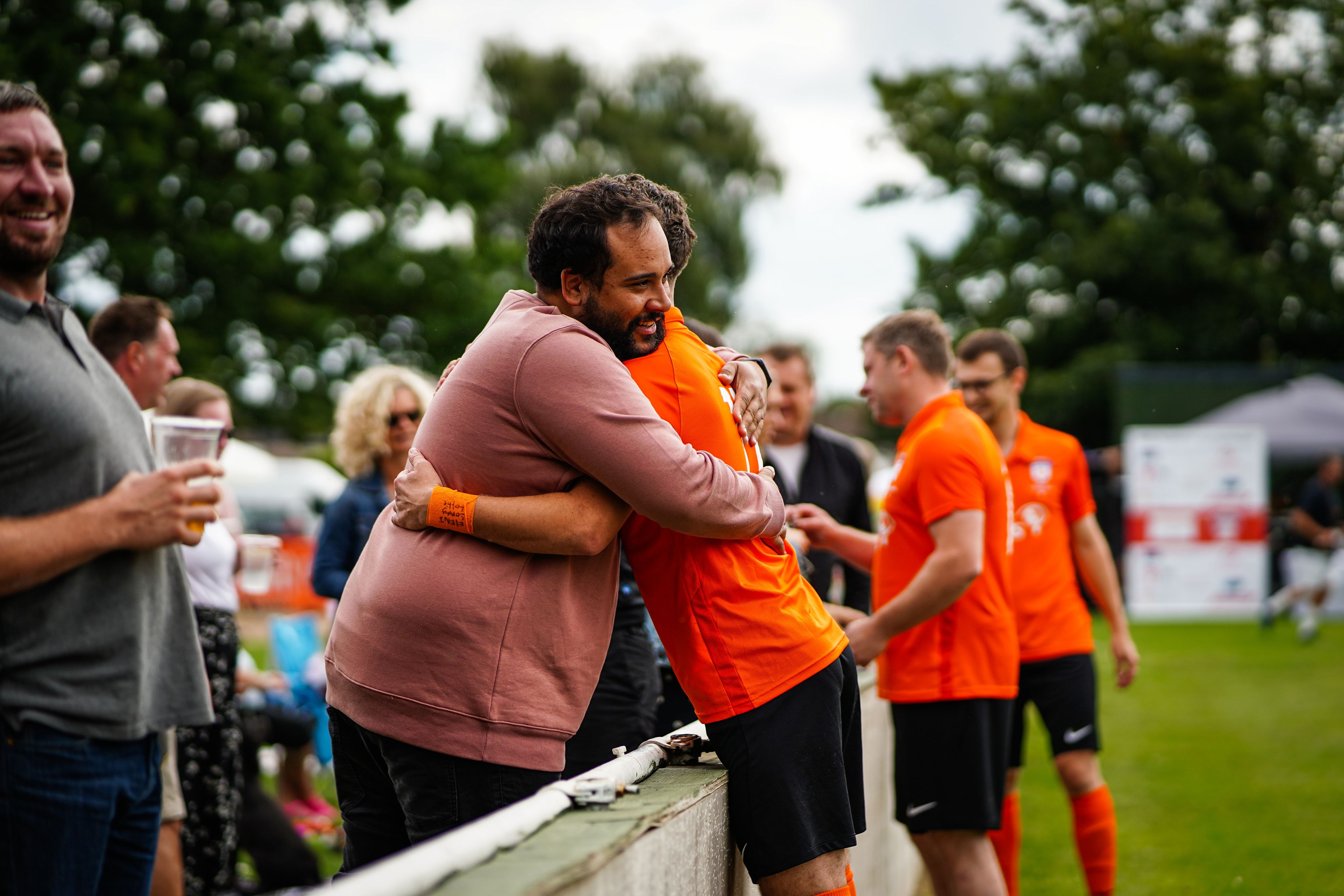
Fundraising focus: The highlights
Sands community
Sands exists because of the unwavering commitment, generosity and courage of its community. From bereaved parents and grandparents bravely sharing their stories to volunteers dedicating their time, supporters giving generously and healthcare professionals going above and beyond, each plays a vital role in making Sands' mission possible.
Together, this incredible network allows us to amplify the voices of those who have experienced unimaginable loss, advocate for lifesaving policy and practice changes and support other families facing their own loss. Thank you for being at the heart of everything Sands accomplishes.
Sands fundraising team
This year marked a period of consolidation and steady growth in fundraising at Sands.
We focused on testing new approaches and learning along the way to better understand how our supporters want to connect with us while enhancing the experience for everyone who chooses to fundraise for Sands.
We explored fresh ways to engage and inspire, including piloting fundraising on TikTok.
At the heart of our efforts was a commitment to building the Sands community, finding new ways to support fundraisers in their challenges and connecting them with the impact they are making every day - saving lives and supporting bereaved families.
Challenge events
Sands' annual events like Ribbon Run and Starlight Walks offer moments of connection, remembrance and solidarity for everyone touched by baby loss and others who stand in support. We share experiences, and together, we find comfort.
These events are equally important for raising vital funds to continue and grow our efforts to bring about much-needed change so more parents get to take their baby home, and when a baby does die, families can turn to us for support.
Starlight Walk
The Starlight Walk has become a heartfelt tradition, gathering people to walk and remember their much-loved and missed babies.
Under the night sky, people joined our country-wide events, took part in locally organised walks and came together virtually. Together, we walked in memory and raised even more vital funds than last year to support bereaved families today and change the future for babies yet to be born.
Ribbon Run
The community event continued to grow this year with almost 7,000 runners, walkers, joggers and wheelchair users as well as people pushing prams and buggies signing up. Some arrived together, while others joined in solo and left feeling part of a very special community.
We took steps to take the event into more communities this year too. For the first time, we recruited Ribbon Run Champions to organise events in their local area. An incredible 48 champions picked up the baton with support from Sands.
Securing multi-year funding
Two awards at The ScottishPower Foundation Awards were awarded to Sands alongside £20,000 to help continue our vital work.
The Community Engagement Award recognises the vital work of our Hospital Liaison Volunteers, who are instrumental in bridging the gap between bereaved parents and healthcare professionals and ensuring access to Sands' invaluable resources after baby loss.
The Community Champion Award is presented to an outstanding individual who has gone the extra mile to help a charity achieve its goals. Sands nominated Peter Byrom, father to Thomas, who was stillborn in 2004, after he helped start Sands United Football Club in Bristol.
Last year, The ScottishPower Foundation also generously granted £95,000 to expand our Befriender programme. This year, we put the funding to work, taking Sands into locations where we know support is most needed and developing our resources to welcome people from all backgrounds and cultures.
The Foundation also provided pro bono support to help us create a powerful video showcasing our work and shared it across their social media channels, ensuring more people can easily find the support Sands offers.
Unlocking new funding
We secured our place in the national fundraising scheme, Big Give, for the first time in 2023. The match-funding initiative doubled donations to two Sands appeals, with one exceeding the target by an incredible 74%. With the promise of matched donations, supporters gave very generously, and new donors joined our fundraising community.
Building meaningful partnerships
Sands continued collaborating with a diverse range of businesses through 28 new Charity of the Year partnerships. Joining forces with national organisations and smaller businesses including Pilgrim's Europe Moy Park Ltd, HLW International Ltd and Lightfoots Solicitors, helps fuel our mission to bring about much-needed change to save babies' lives and help Sands be there for anyone coping with the death of their baby.
A team effort with HSBC UK
Thanks to a Team Start grant from HSBC UK, more men affected by pregnancy and baby loss will be able to access support through Sands United Football Clubs in their communities. The generous funding means we can support the set-up of ten new teams and create lasting resources to support these and future teams as they navigate their first six months.
Seeds of support from NEXT
The Sands Awareness Month Flower Bouquet with NEXT marked the beginning of a beautiful partnership. The national retailer donated a percentage of the sales from their bouquet of the month, raising awareness and funds for Sands' lifesaving work.
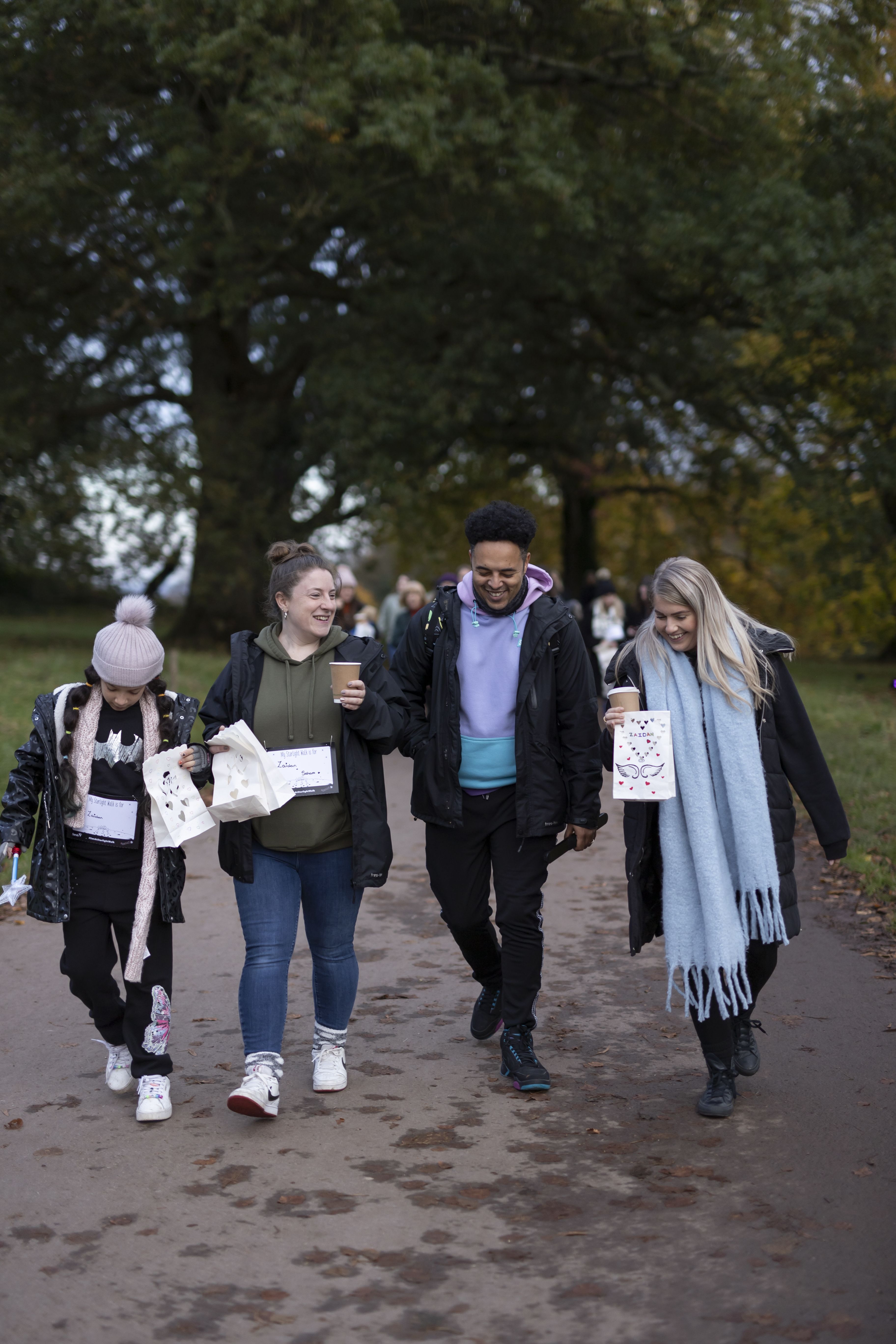
Finance focus: The highlights
Text
Looking ahead
There is no doubt that listening to parents saves babies’ lives, and as we move forward we must continue to ensure parents' voices are always at the heart of research and policy changes to improve maternity safety and reduce inequalities.
We will continue to use the Listening Project research, and the policy reports produced by the Sands and Tommy’s Joint Policy Unit, alongside our parent-led campaigns group, to hold decision makers and policy influencers to account. The stark and persistent inequalities in baby loss cannot be ignored.
In challenging inequalities, we must also look at the services and support we offer at Sands, and commit to making sure we’re welcoming to all. This isn’t always easy, and we might get things wrong along the way, but we are committed to learning and improving, because every baby and every family matters to us and our wonderful community is at the heart of all we do.
We are doing this work together in a challenging economic environment, and every year I am struck by the new and innovative ways our amazing supporters raise money for Sands. I’m proud of the supportive communities that are created online, in local neighbourhoods and workplaces, thanks to the connections Sands volunteers, fundraisers and partners make. Together we’ll make sure no-one feels alone, together we’ll speak up about pregnancy and baby loss, and together we will save babies’ lives. For babies everywhere.
Clea Harmer, Chief Executive, Sands
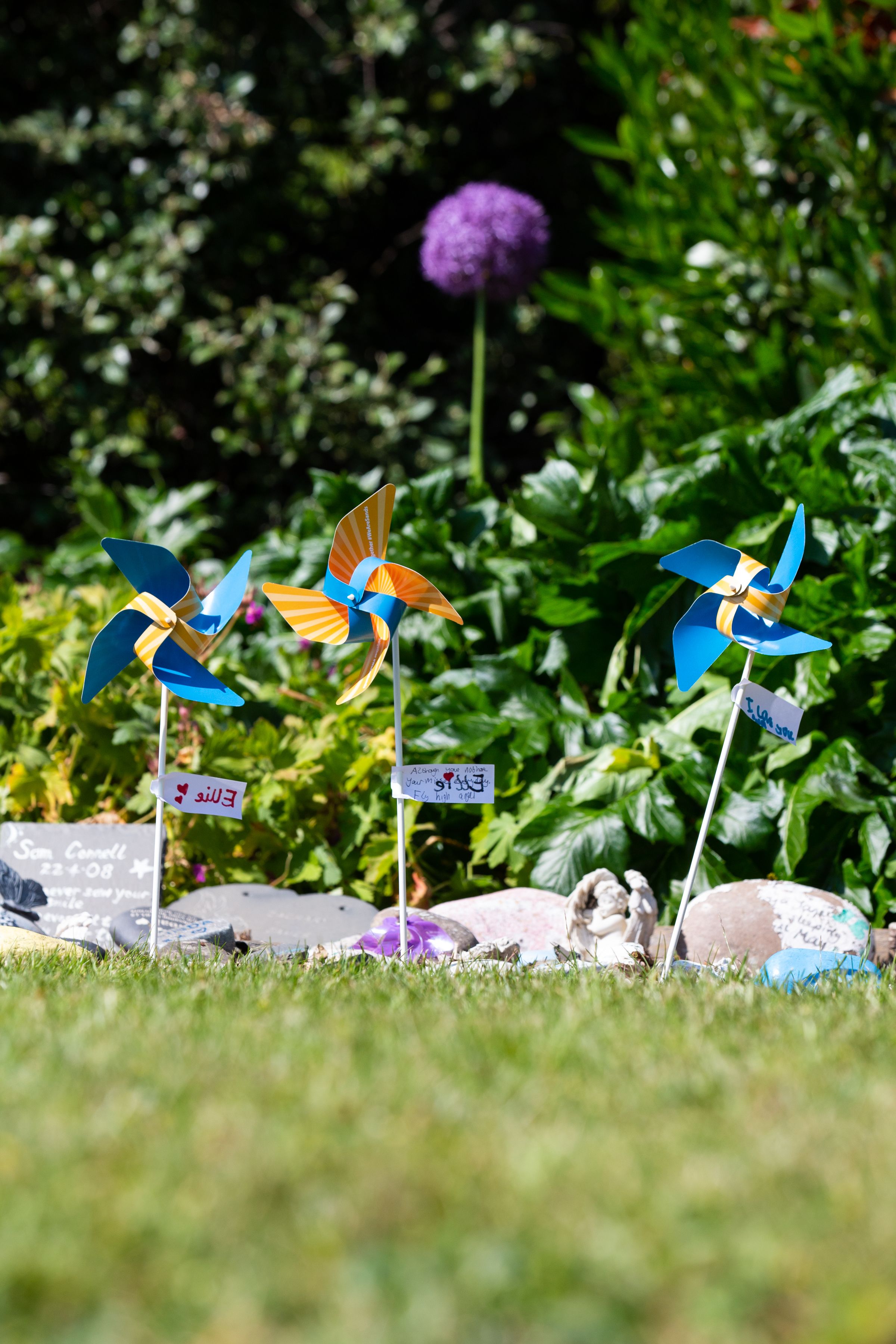
Thank you
We're doing all we can to bring about the day when no baby dies. But we can't do it alone.
That's why we collaborate with families, professionals, researchers, donors, fundraisers, campaigners, government departments, parliamentarians, Royal Colleges and other organisations to create the change that's needed. And until that day comes, we rely on you to help make sure the right care and support is there for every bereaved family, whenever, wherever and however they need it.
So thank you. Thank you for everything you have helped make possible so far. And for all you might do for parents, families and babies in the future.
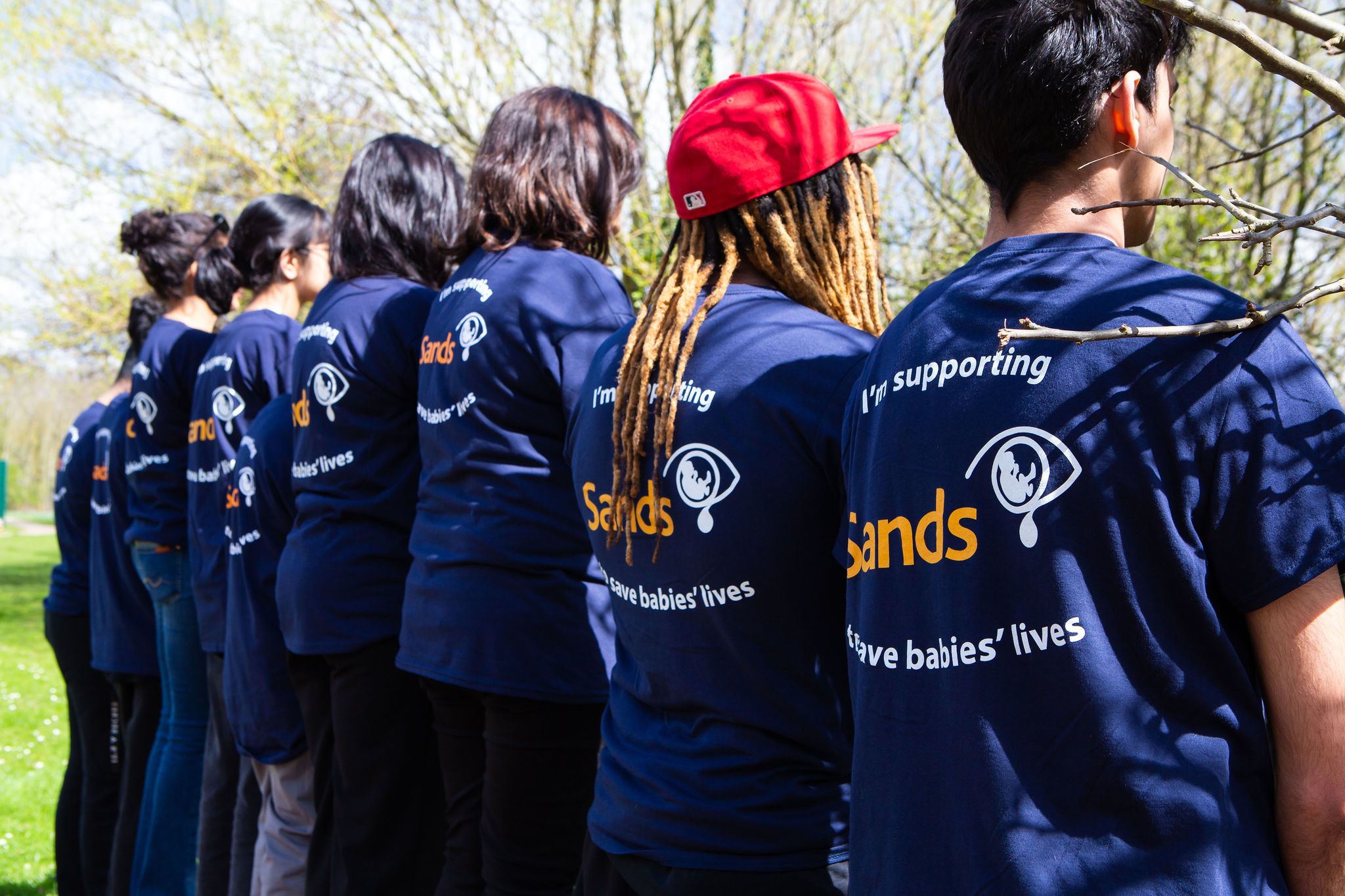
Thank you to our partners:
AE3 Media
AES Global
AkzoNobel
Appleyard Lees
Armourers & Brasiers’ Gauntlet Trust
Aspect Capital
Aviva Commercial Lines Team Glasgow
Ayvens
Azra International
B-Secur
Bank of Scotland Foundation
Black Baby Loss Awareness
Cambridge Management Consulting
Carrie Elizabeth Jewellery
Centrica PLC
Colliers
Countrywide Legal Indemnities
Credit Safe UK
Croud
Department for Health and Social Care
Dignity Funerals Group
Enterprise Mobility
GAP Group Limited
Girl Torque Team
GJK (Durham) Ltd
HLW International Ltd
HSBC UK
Ian MacTaggart Trust
Inseto
Institute of Cemetery and Crematorium Management
James Inglis Foundation
Jory&Co - Creativity with conscience
Justin Law Solicitors
Kellanova
Kings College Hospital NHS Foundation Trust
Legal & General Group
Lewis Golden LLP
LexisNexis
Lightfoots Solicitors
Lloyds Banking Group
Lola-Rose Foundation
Longwater Air Target Club
Masonic Charitable Foundation
Mothers of Angels
NatWest Group
NorthStandard Limited
OCU Group
P F Charitable Trust
Peterborough Family Hubs
Phillips 66 Ltd (Humber Refinery)
Pilgrim’s Europe Moy Park Ltd
PMD Business Finance
Public Health Agency Northern Ireland
Purity Soft Drinks Ltd, manufacturers of Juiceburst and Firefly Drinks
Refresh PR
Renishaw plc
Rhondda Cynon Taf County Borough Council
Sainsbury’s
Samworth Charitable Trust
Sands Round Table Group for Black Communities
Sands Round Table Group for South Asian Communities
Scottish Government
Scottish Power Foundation
Sea Meadow Trust
Severfield Commercial and Industrial NI Ltd
Simple Life Homes (The PRS REIT plc)
Sky Creative
Softcat
Solace Jewellery
Southern Co-op Funeralcare
Specialist Group
Specsavers Crystal Peaks, Sheffield
Teddy’s Wish
The Big Give
The Birmingham Medico-Legal Society
The Davies Foundation
The Fitness Box
The Ian Mactaggart Trust
The Morrisons Foundation
The Motherhood Group
The Perinatal Specialist
The Pilkington Charities Fund
The Stanton Ballard Charitable Trust
The Stewarts Foundation
The White Foundation
University of West London
Welsh Government
Wiseman Family Charitable Trust
XL Associates
Together, We Are Sands
Support us and make an impact.
If you’d like to support our work to save babies’ lives and support bereaved families, you can:
If you need our support:
Sands (Stillbirth and Neonatal Death Society). Charity Registered in Scotland SC042789, England and Wales 299679. We also operate in Northern Ireland. Company Limited by Guarantee Number: 2212082. Registered Address: 10–18 Union Street, London, SE1 1SZ.
